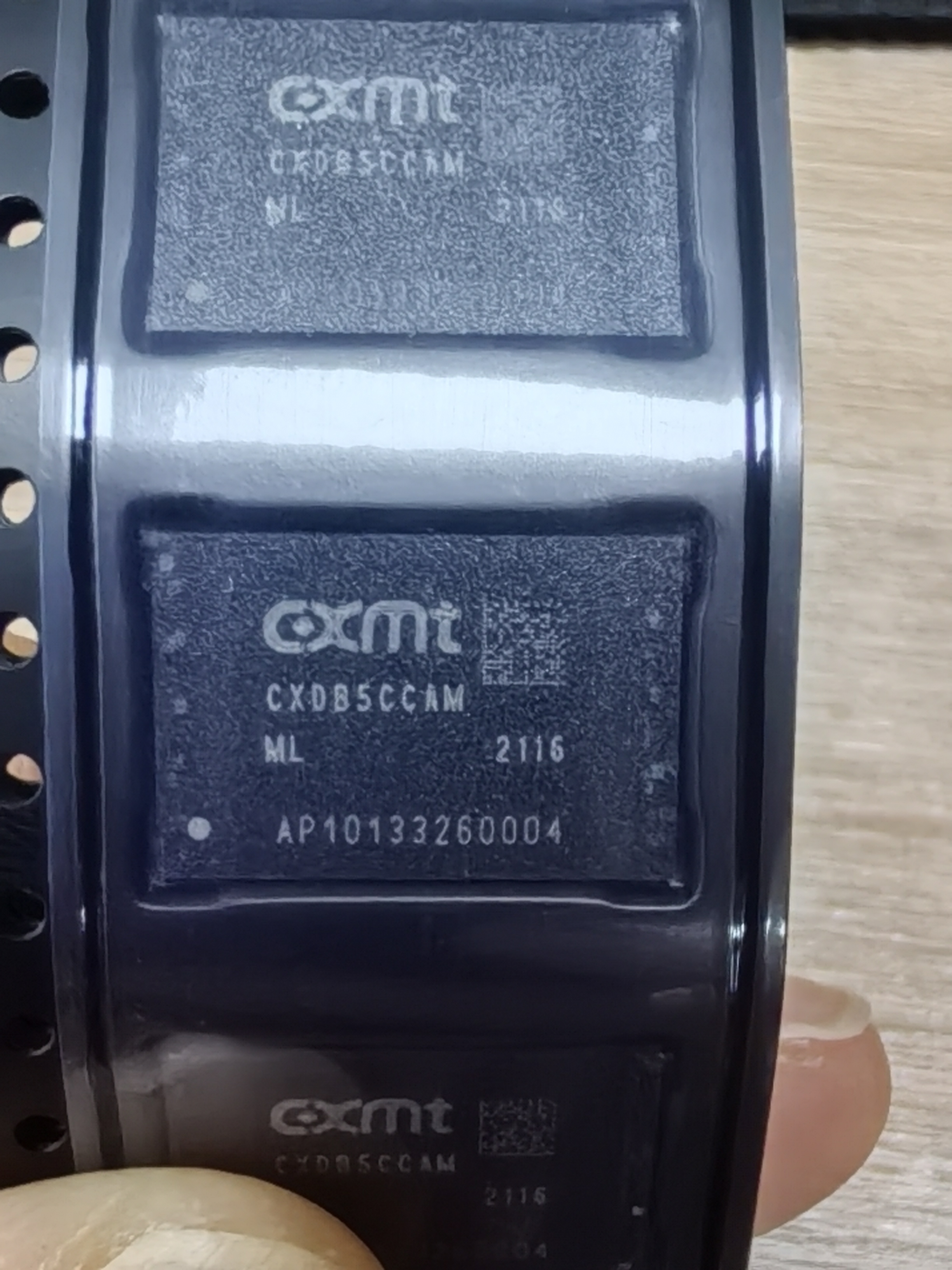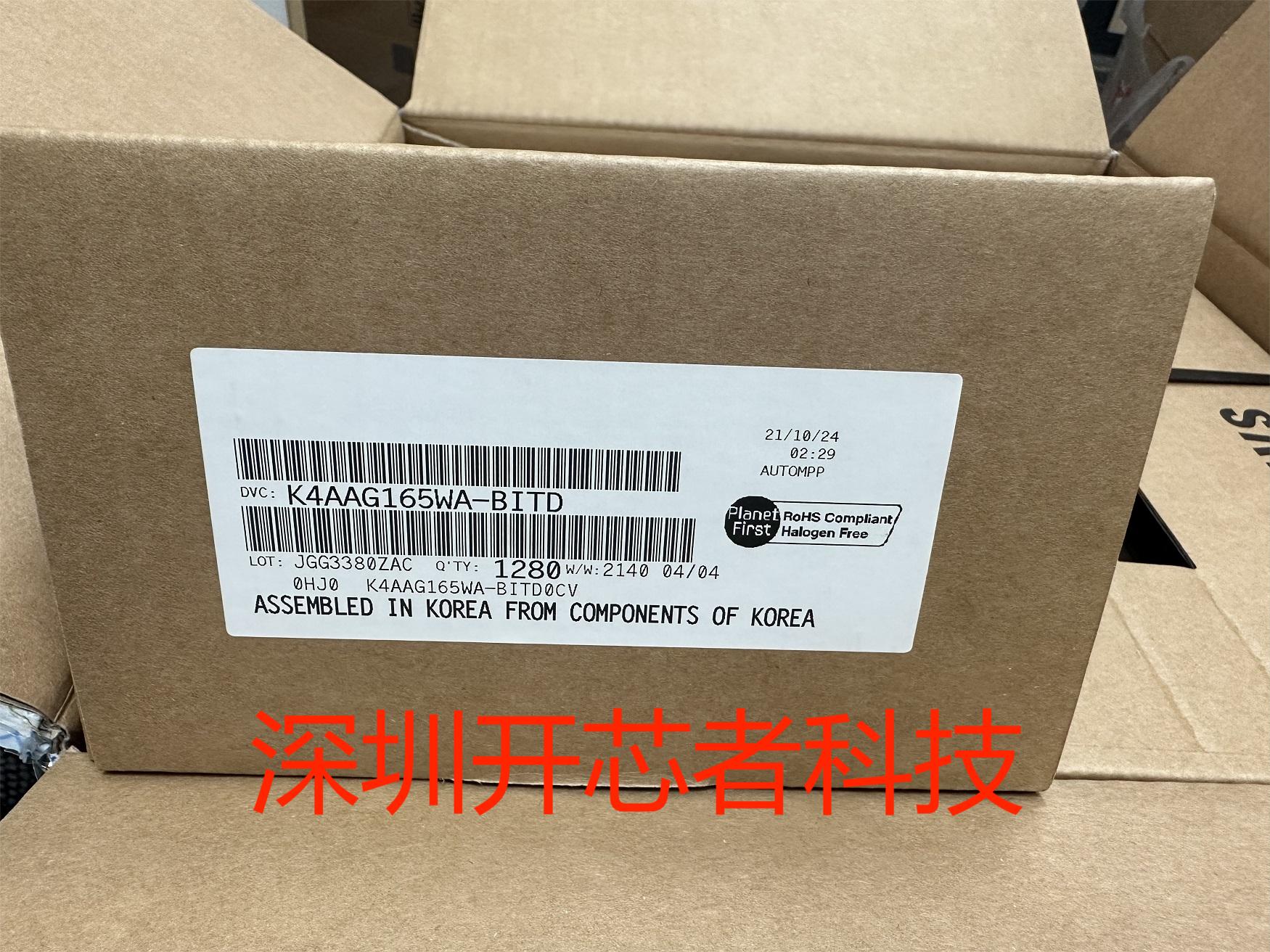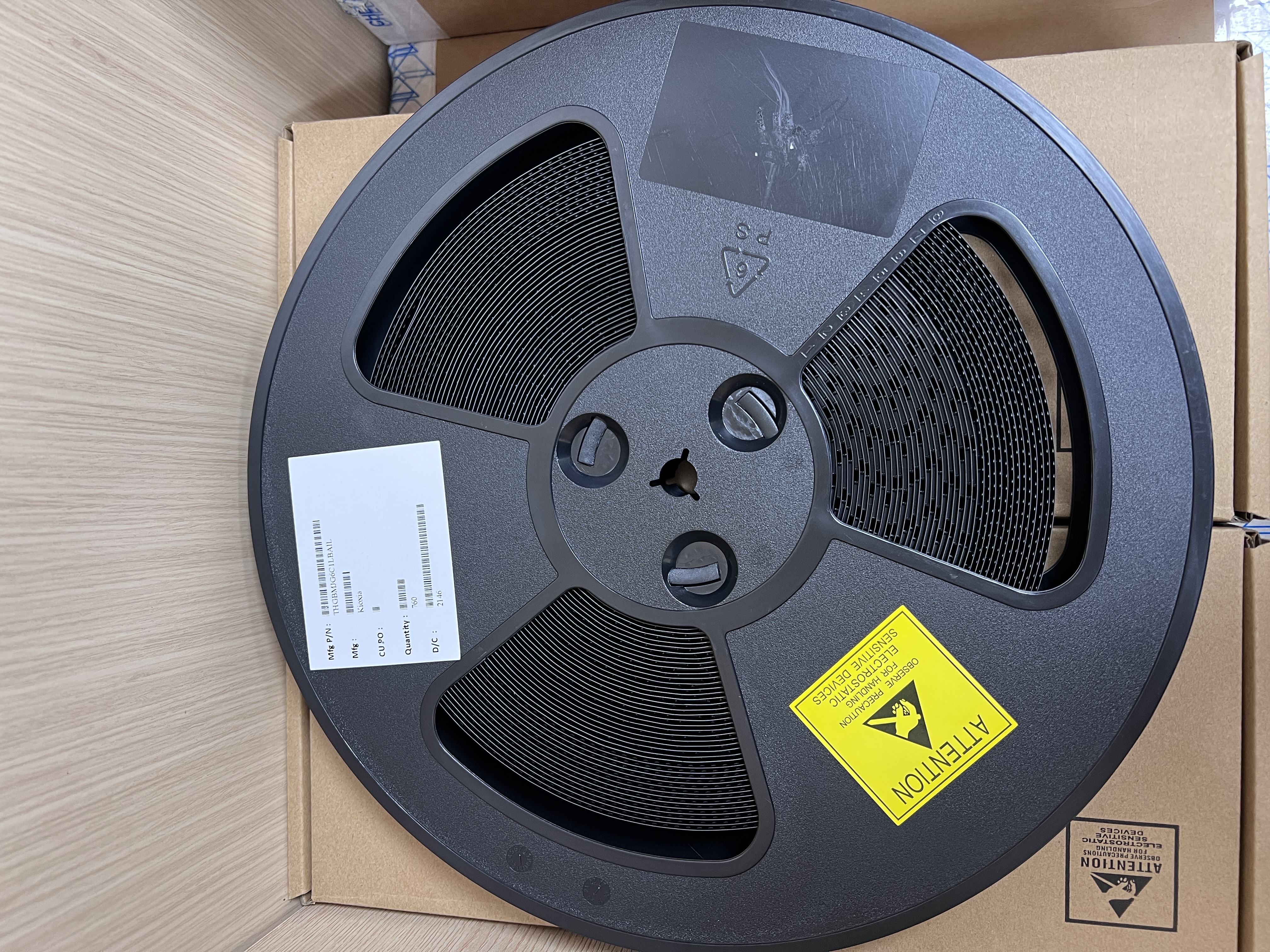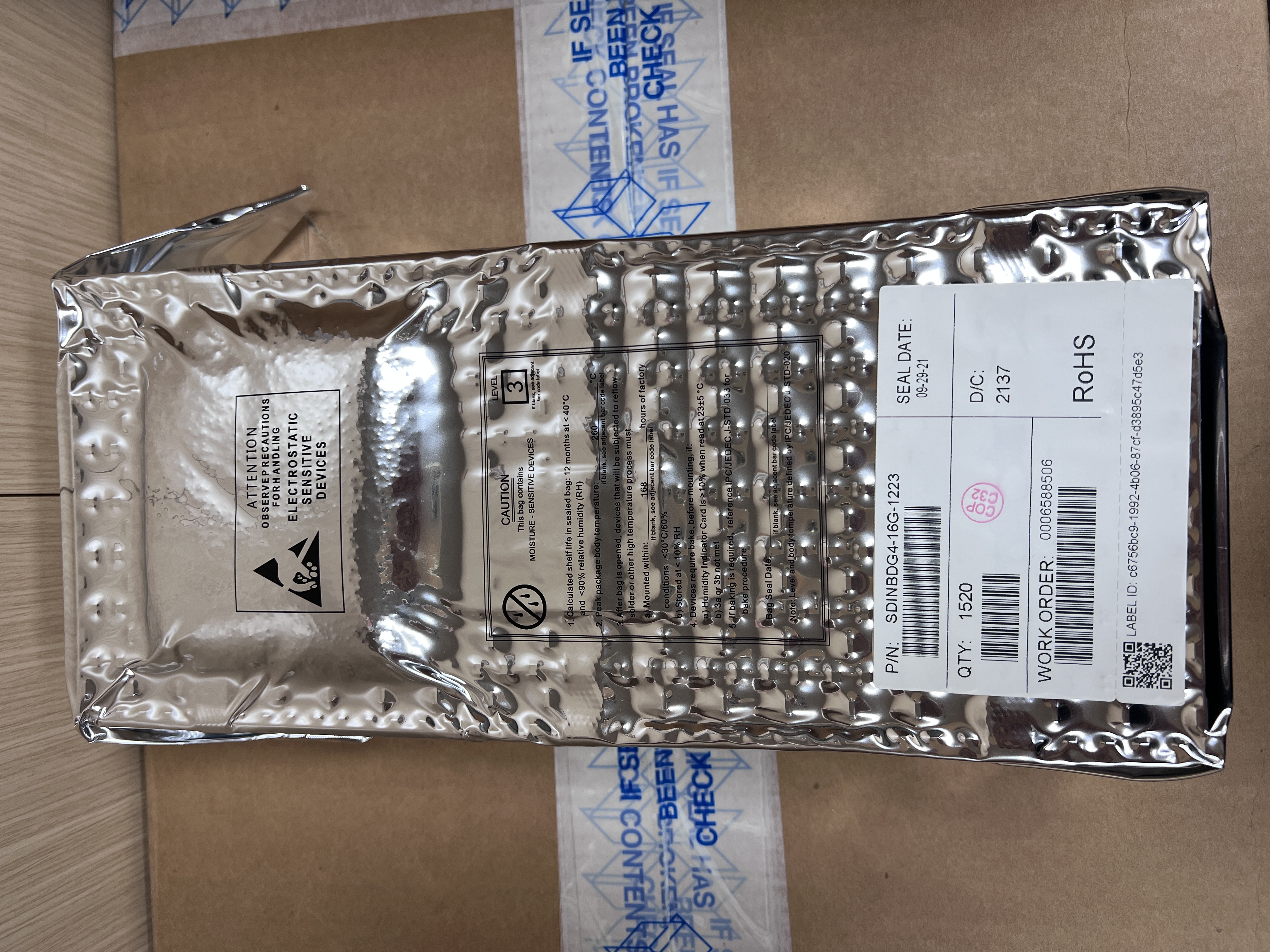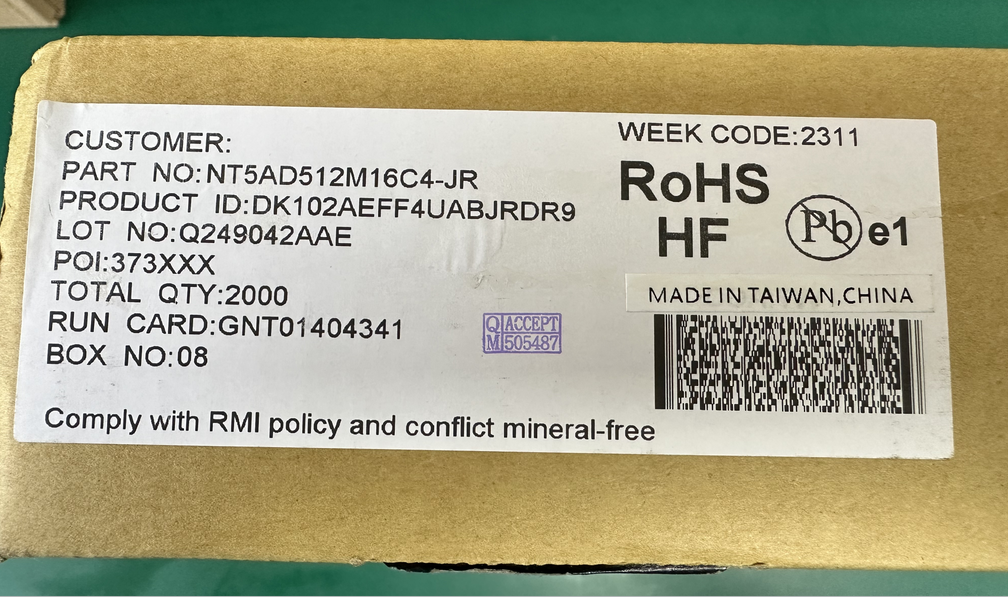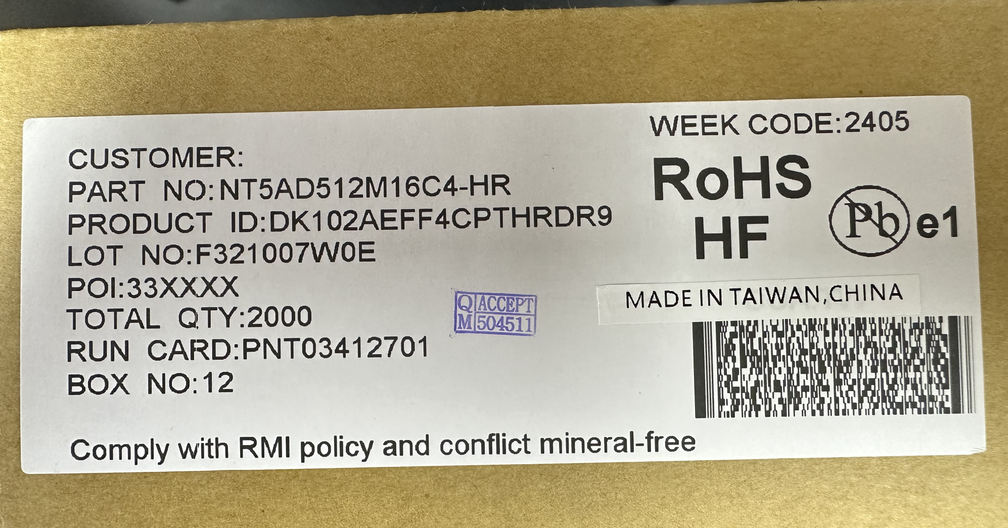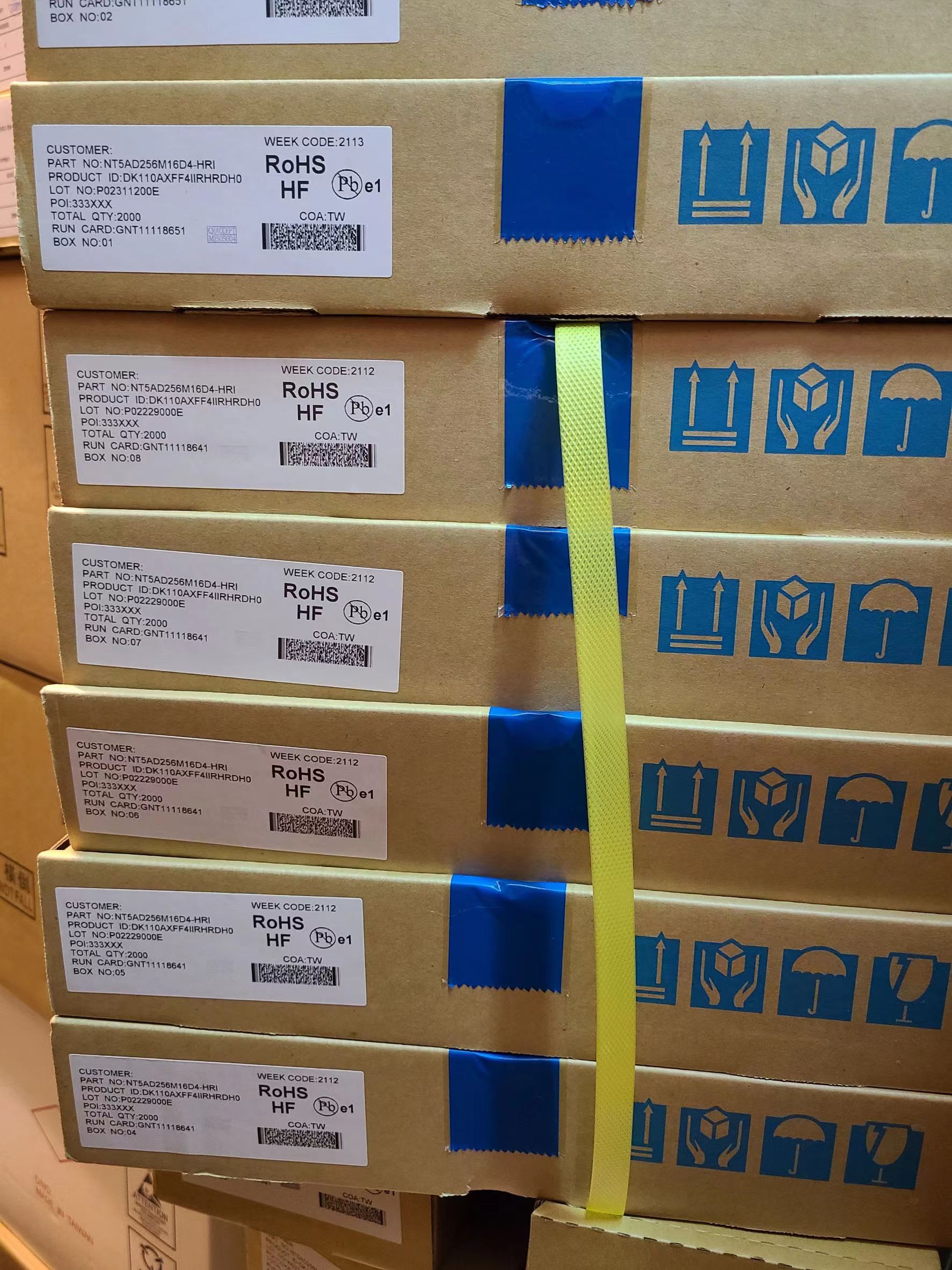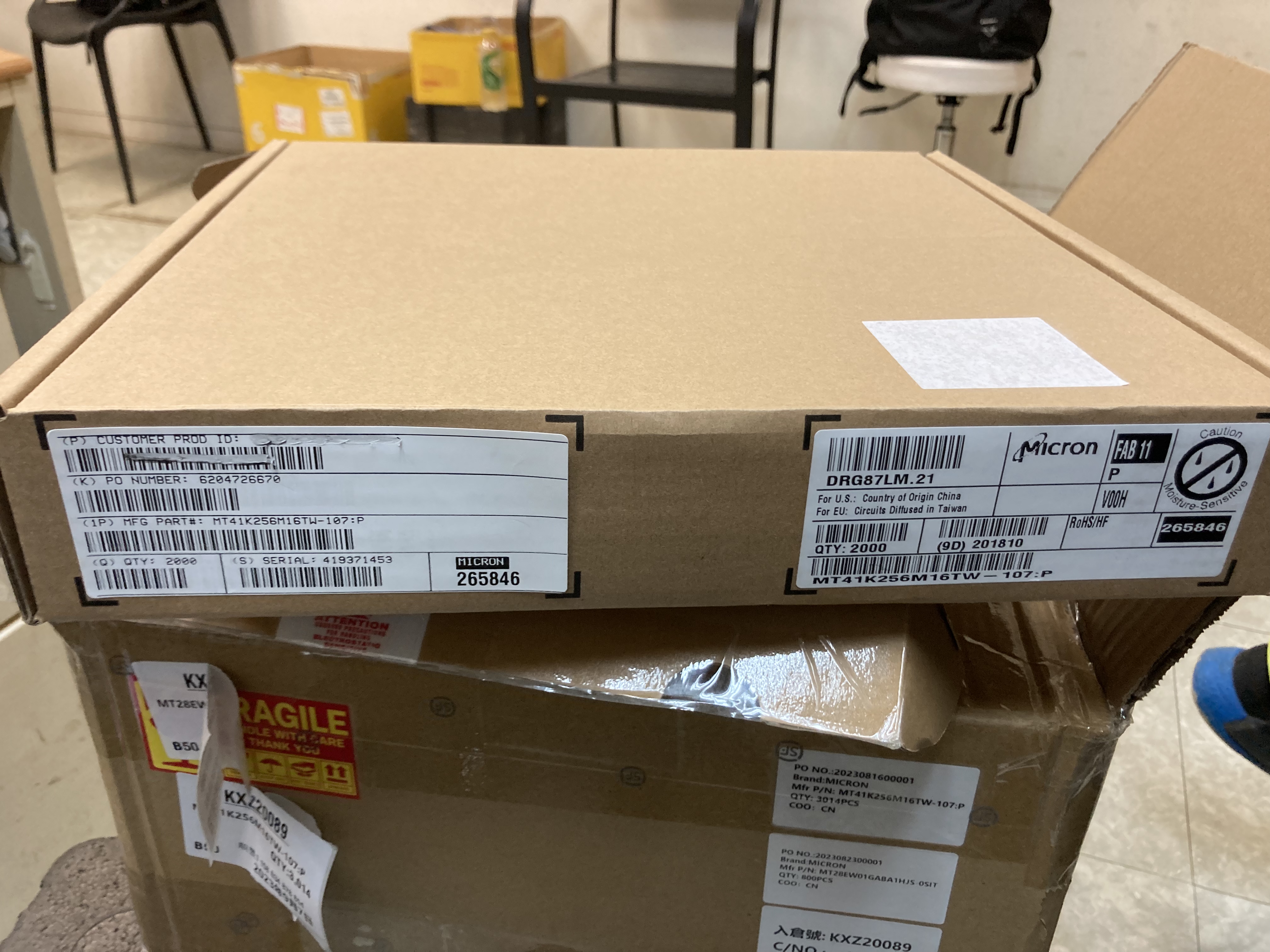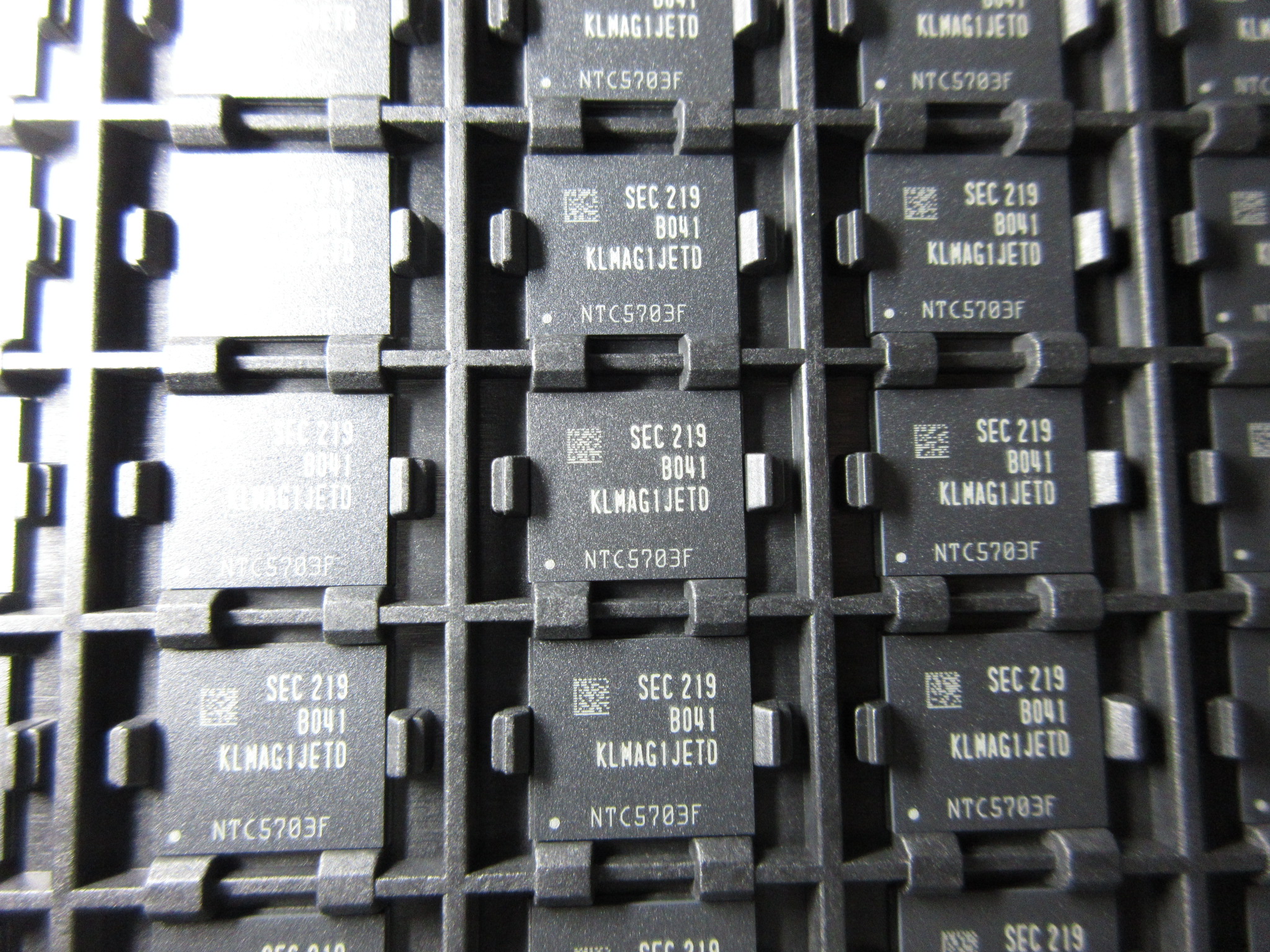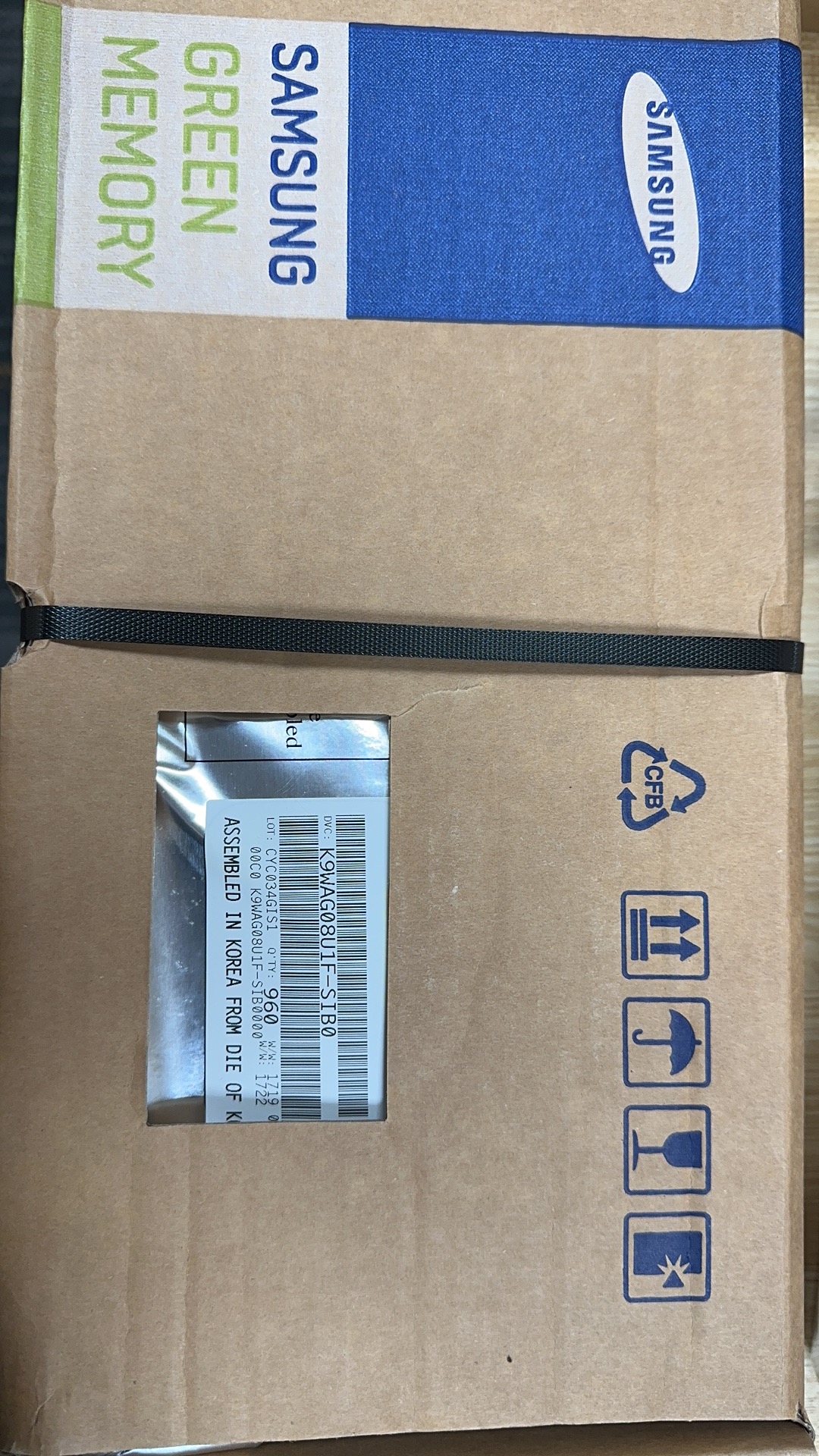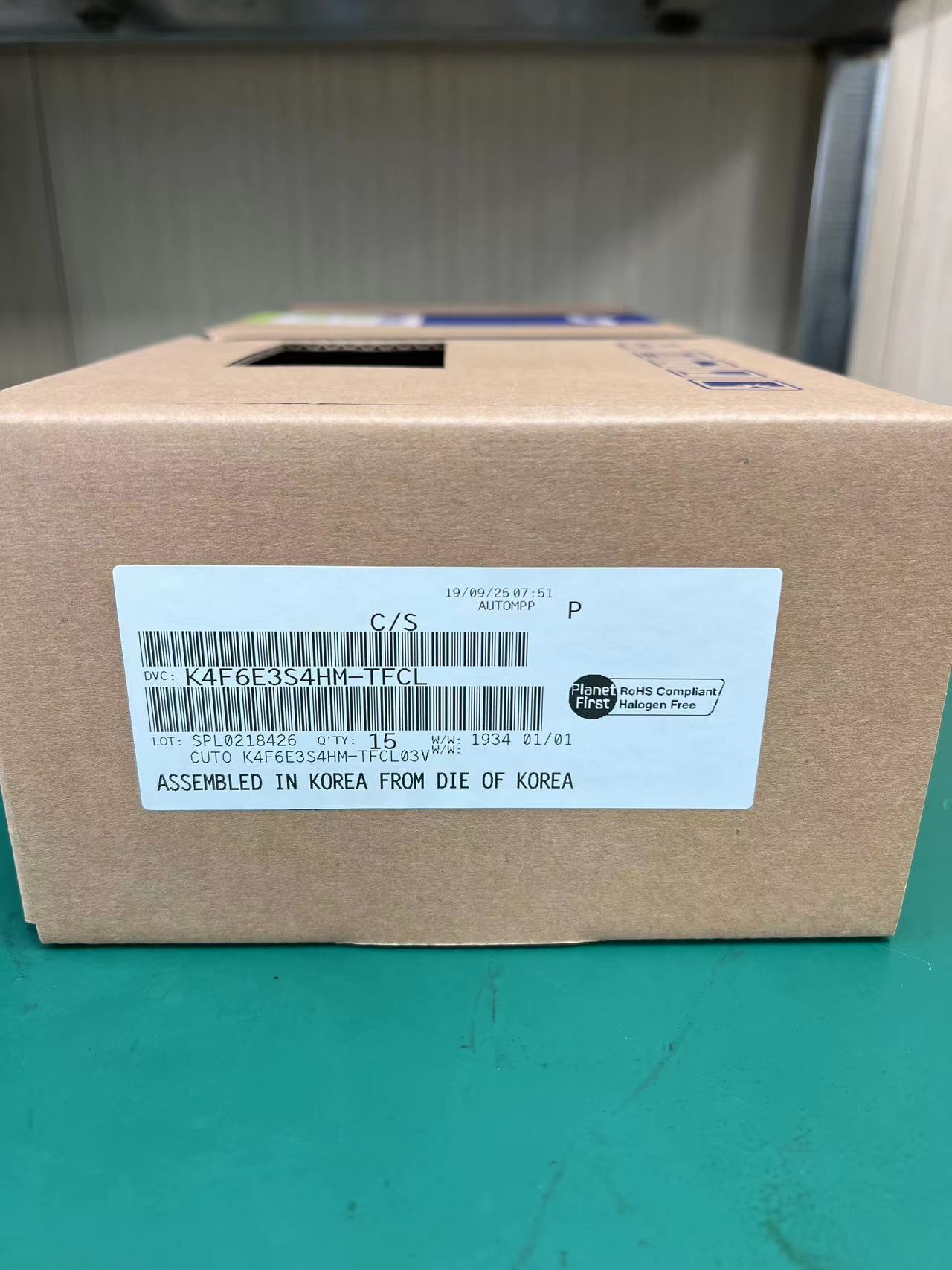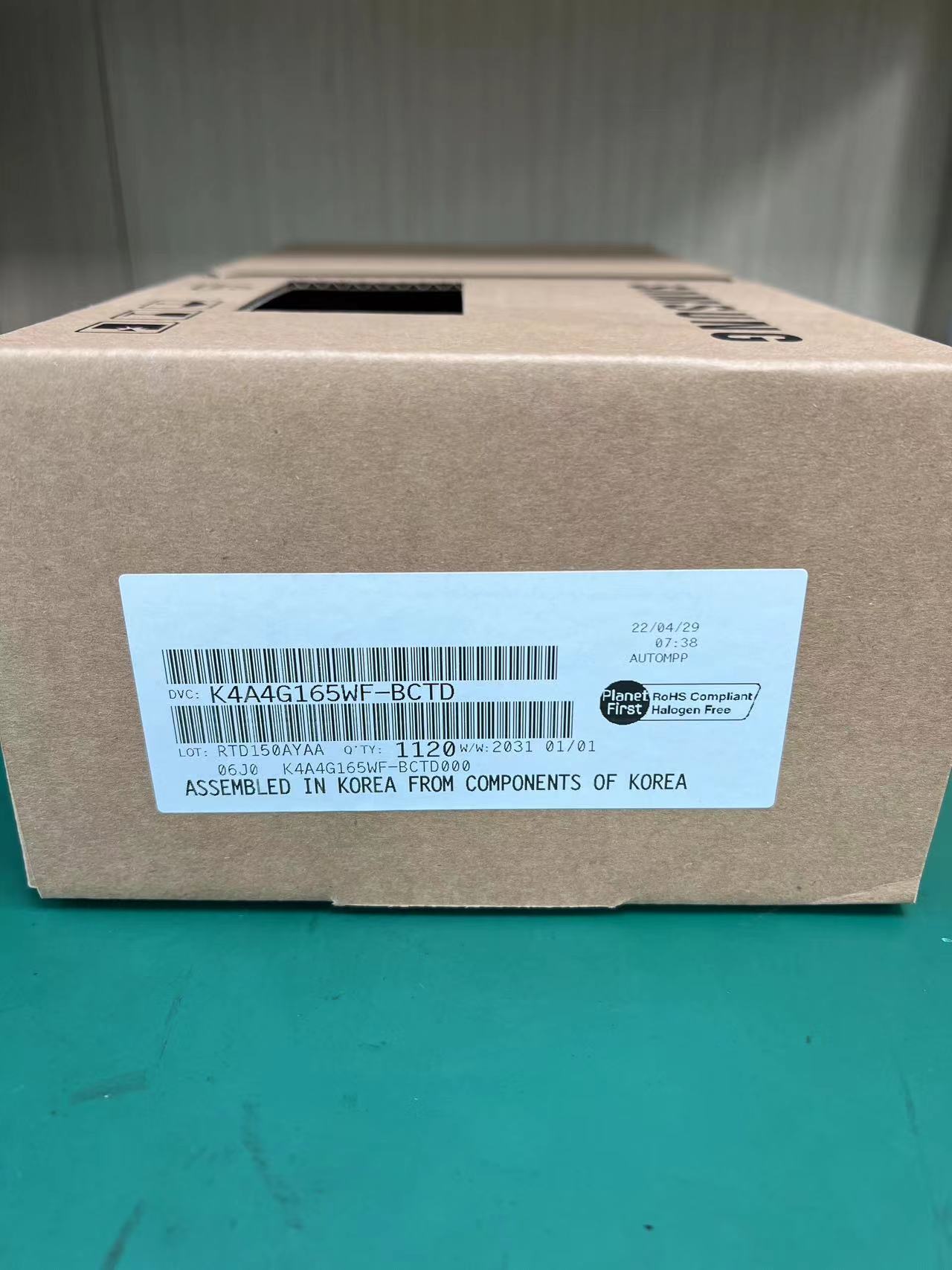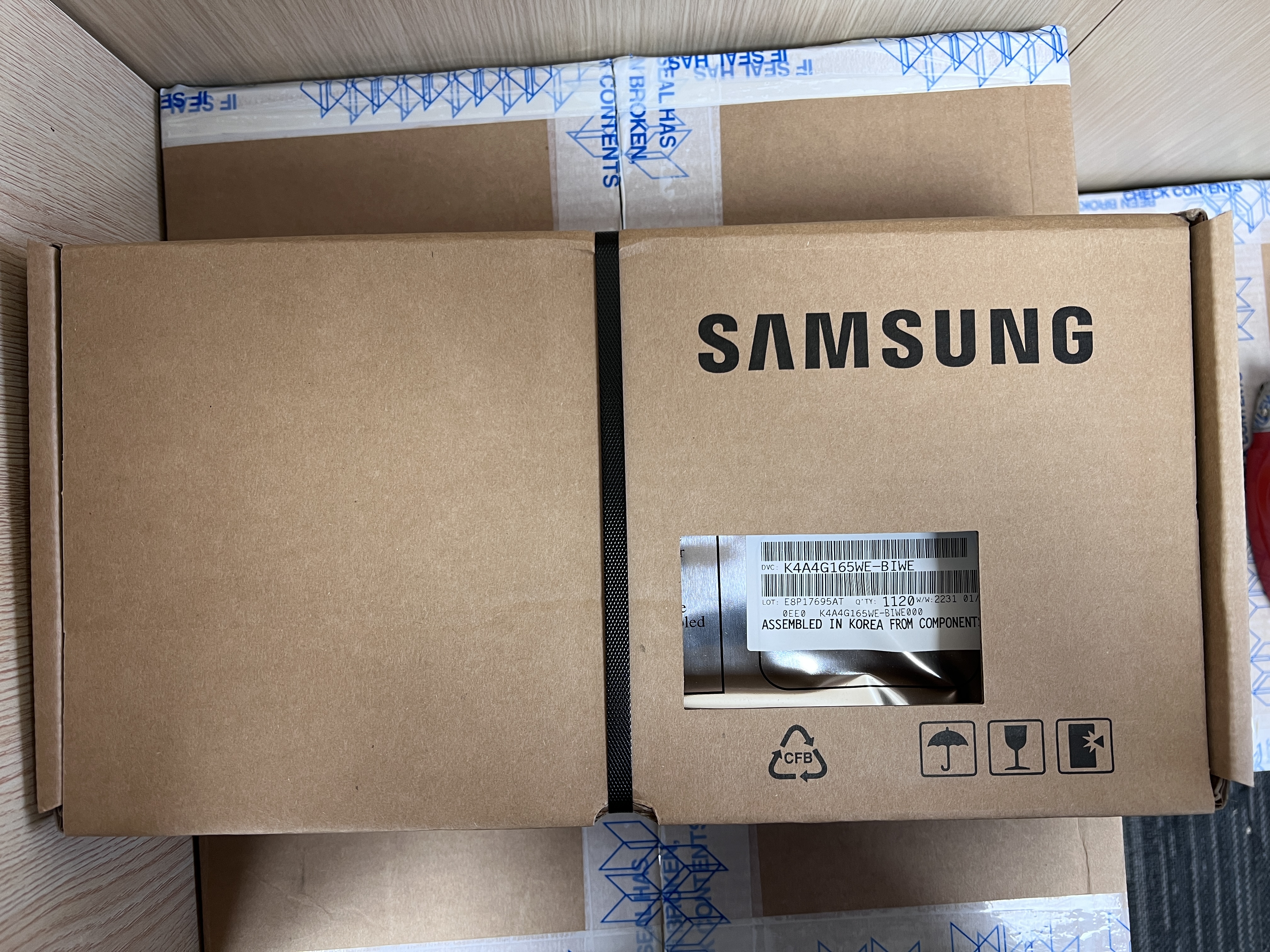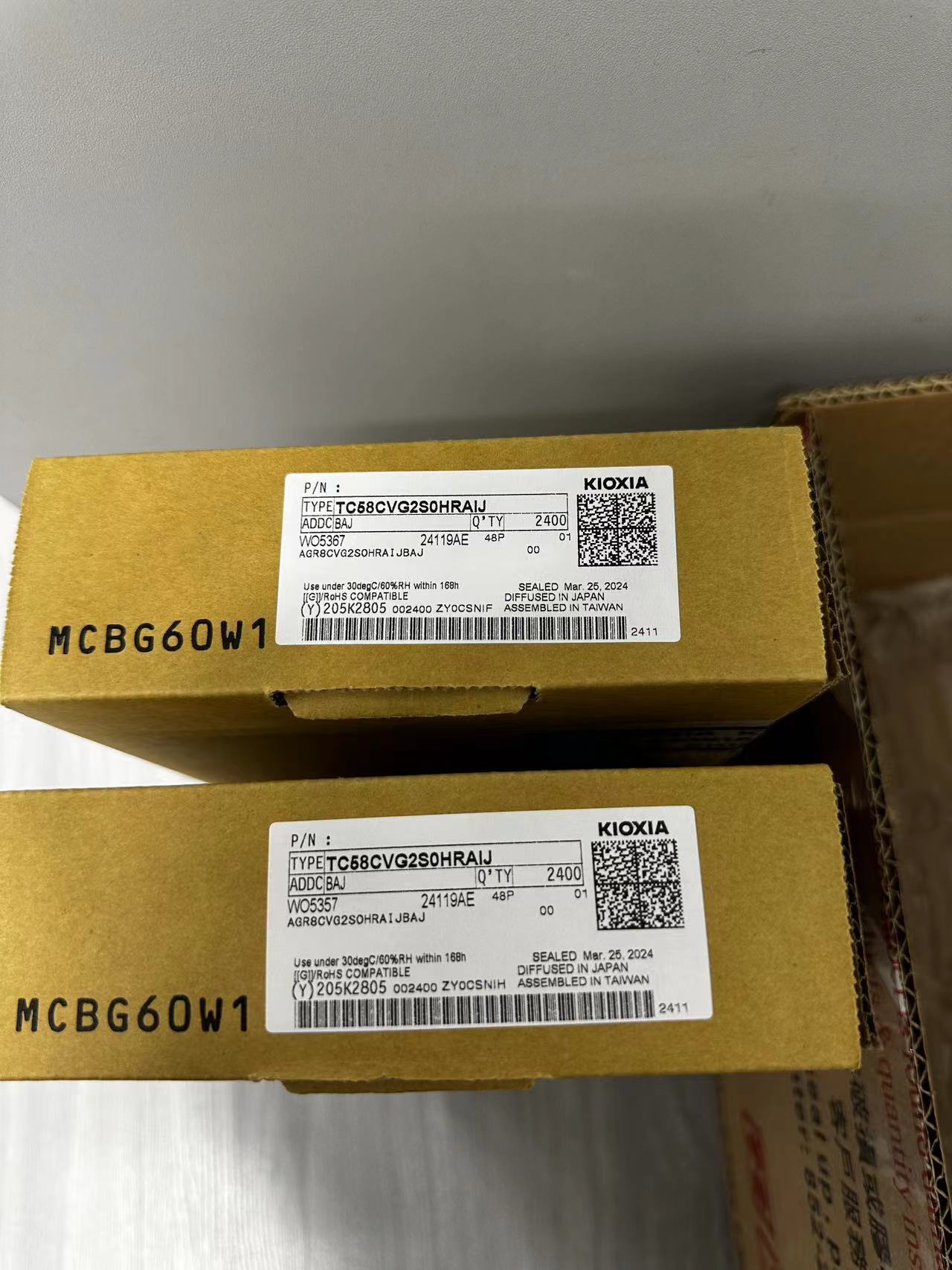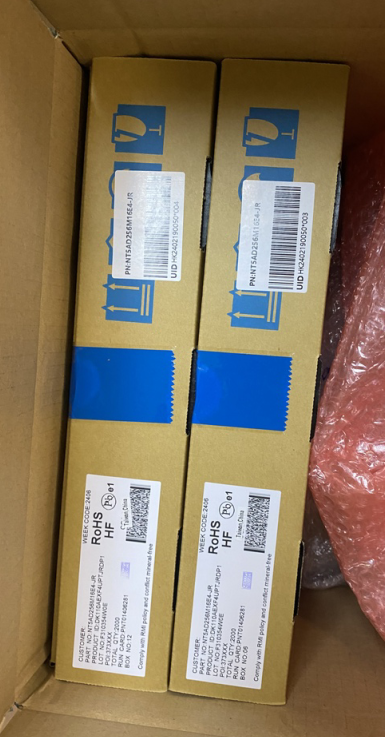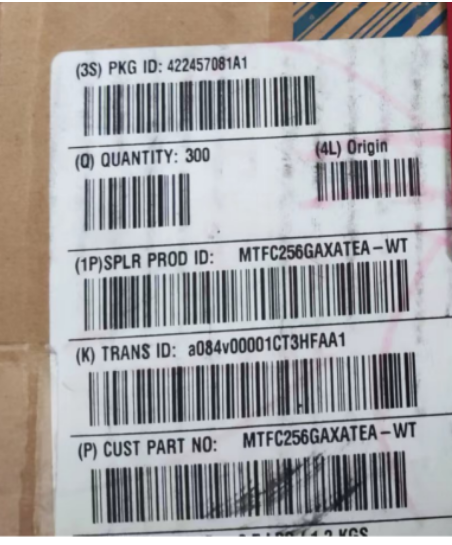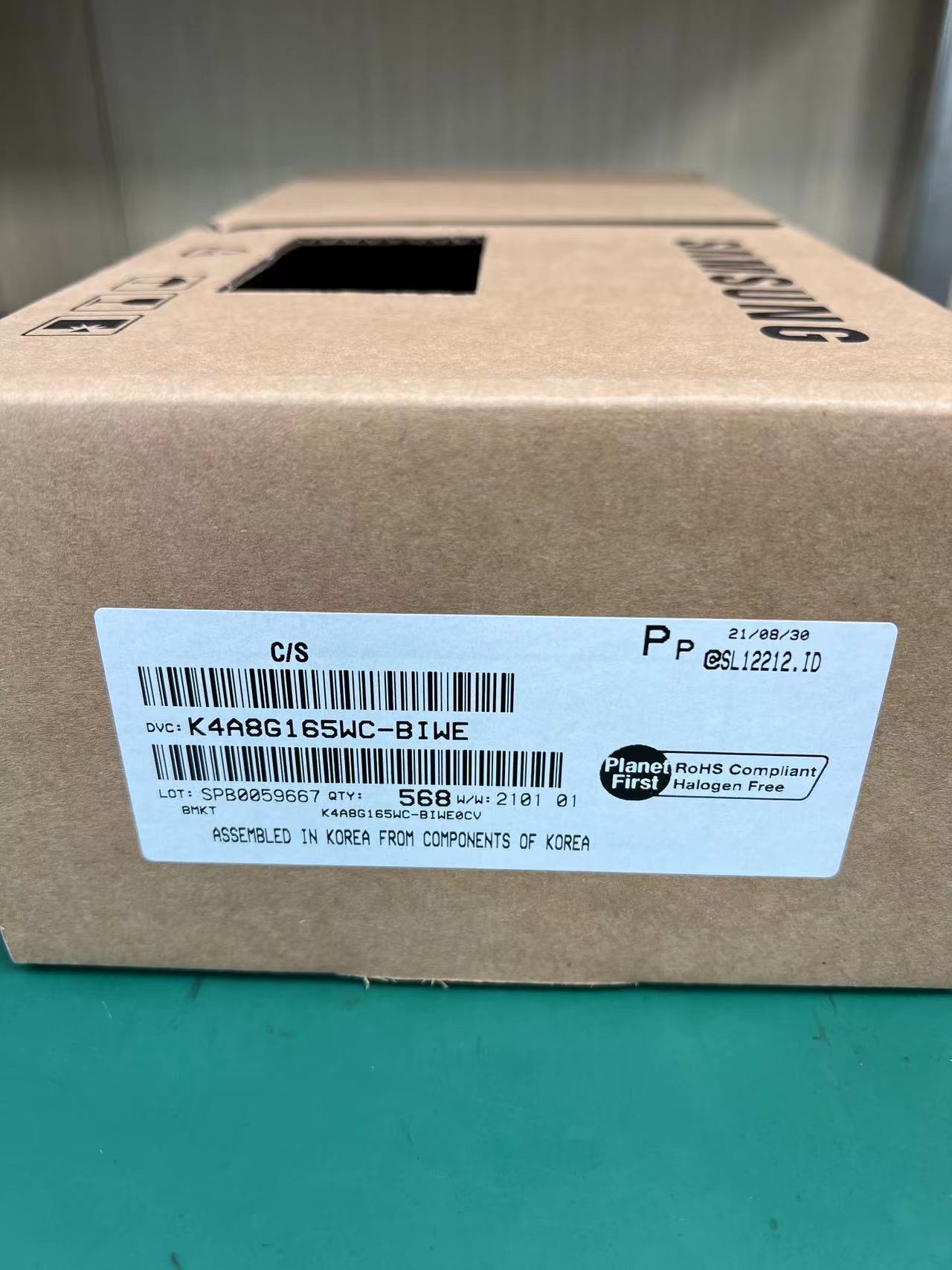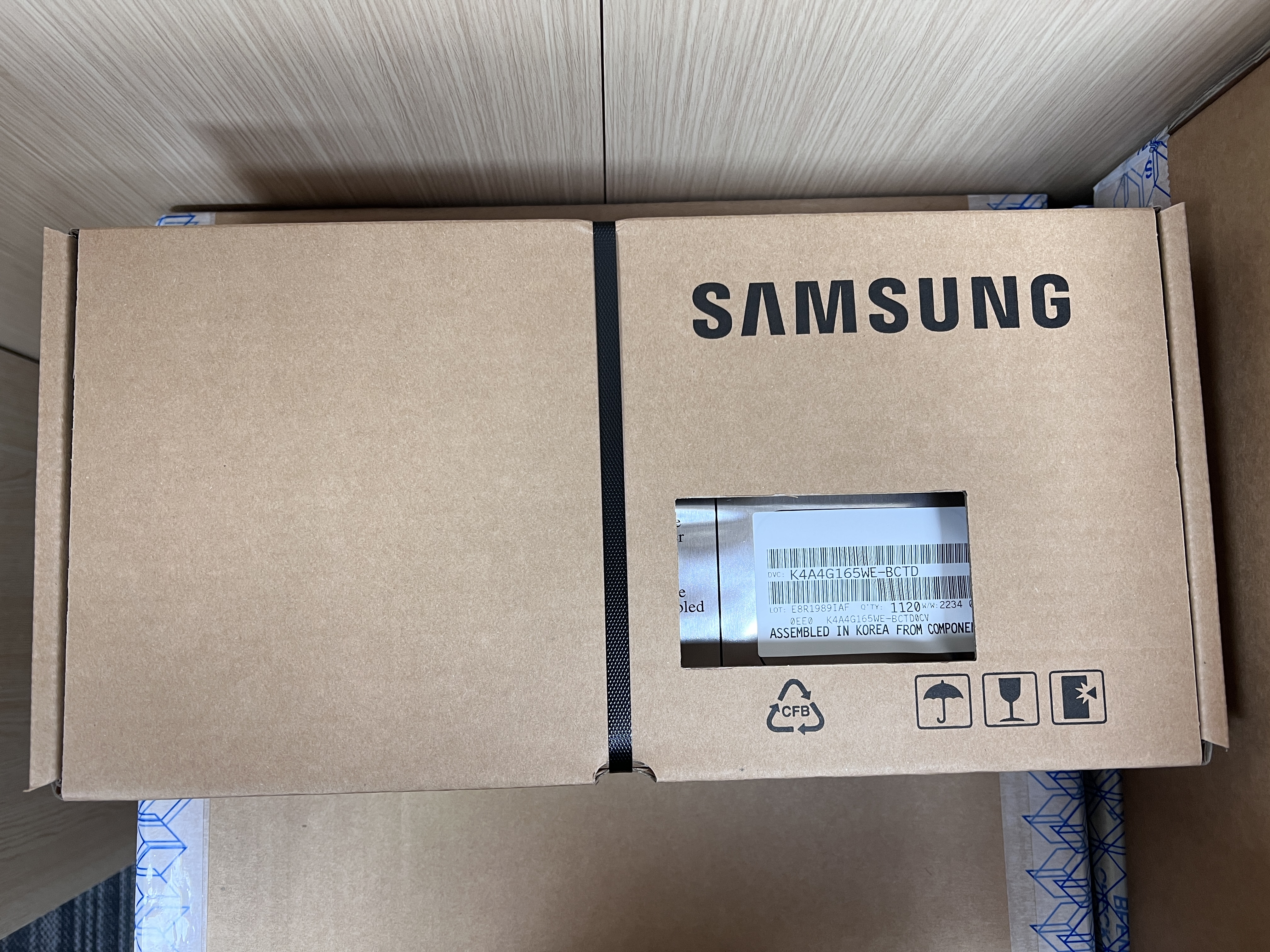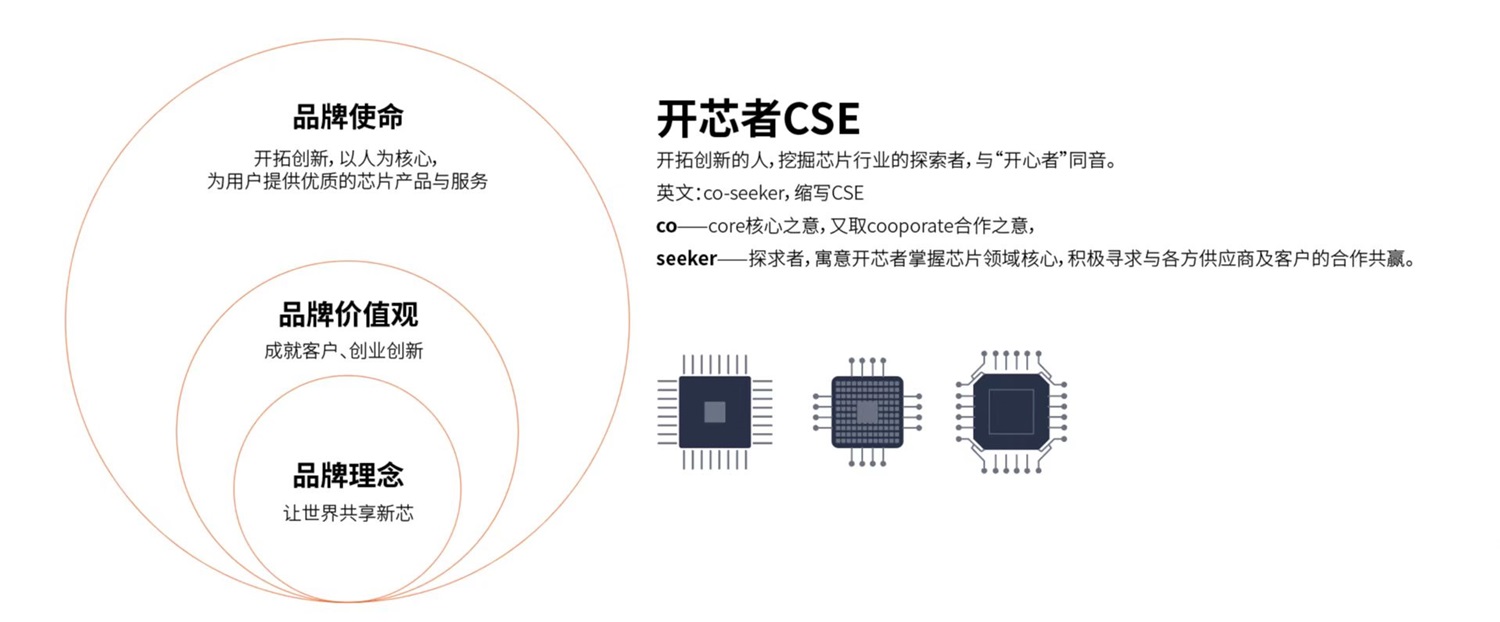
$2.5800

$2.6300
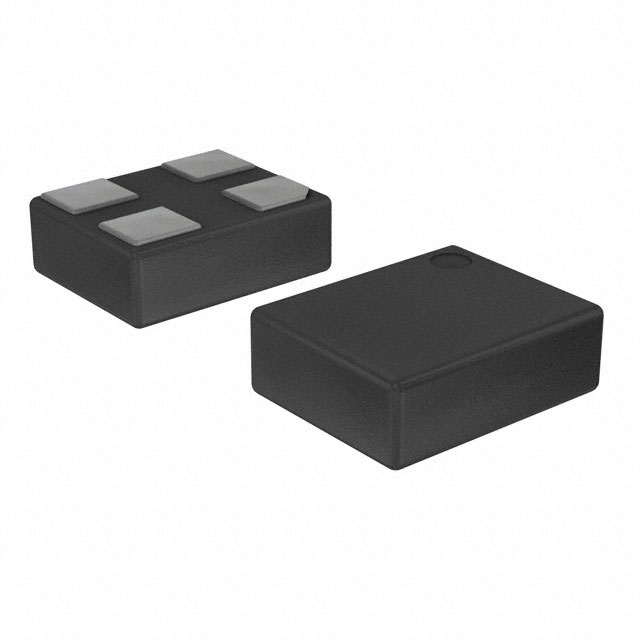
$6.0400

$5.9500

$4.1100

$3.9200

$18.6100
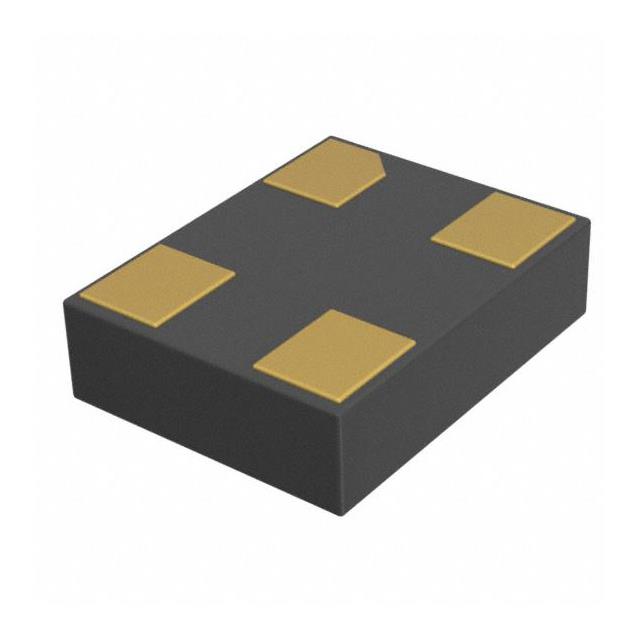
$3.8400
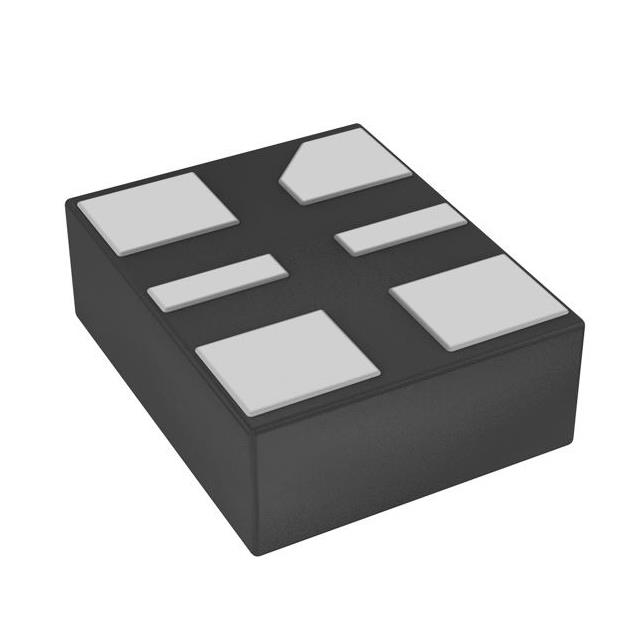
$9.7400
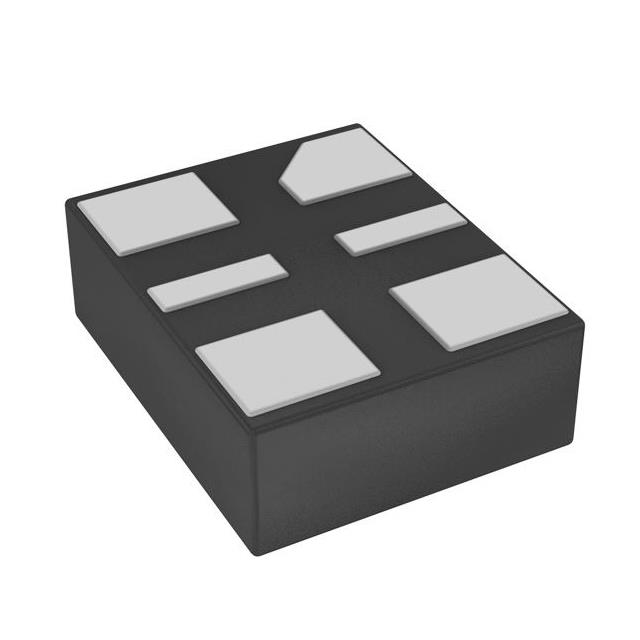
$9.7400

$4.1100
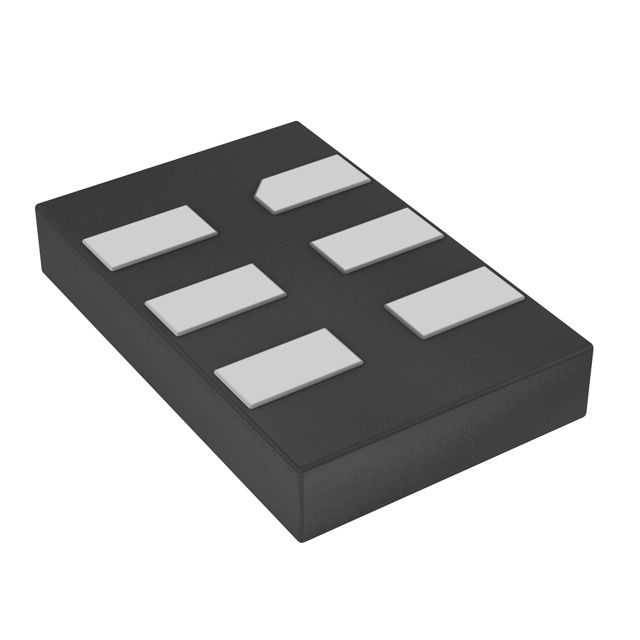
$9.8300

$3.9500
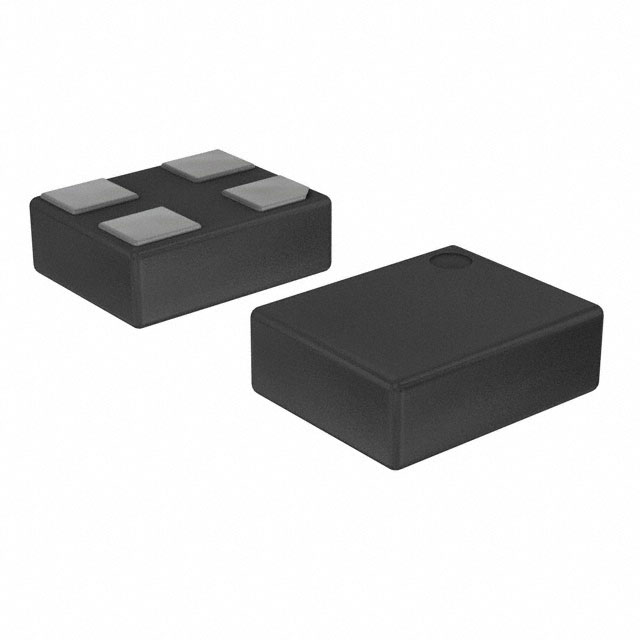
$2.7400
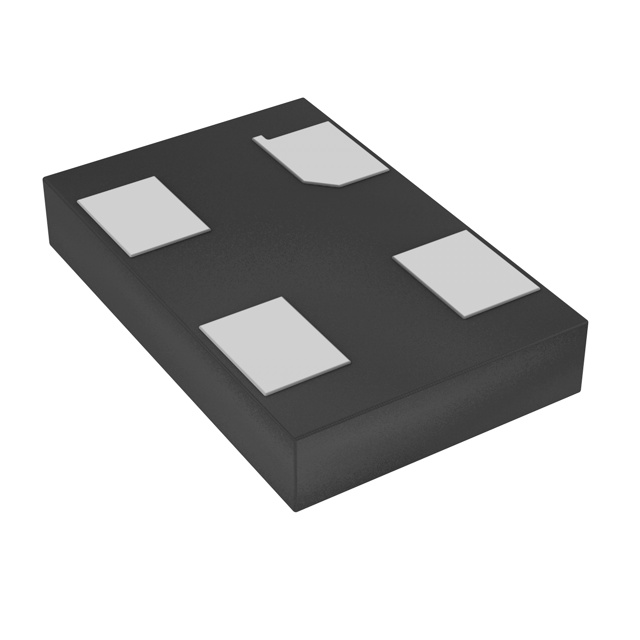
$9.2100
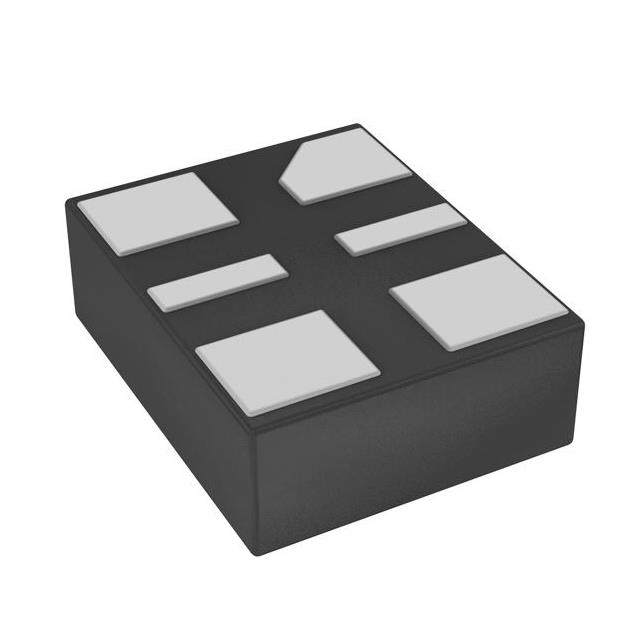
$3.5800

$9.3100

$5.8000

$5.7100

$10.1200
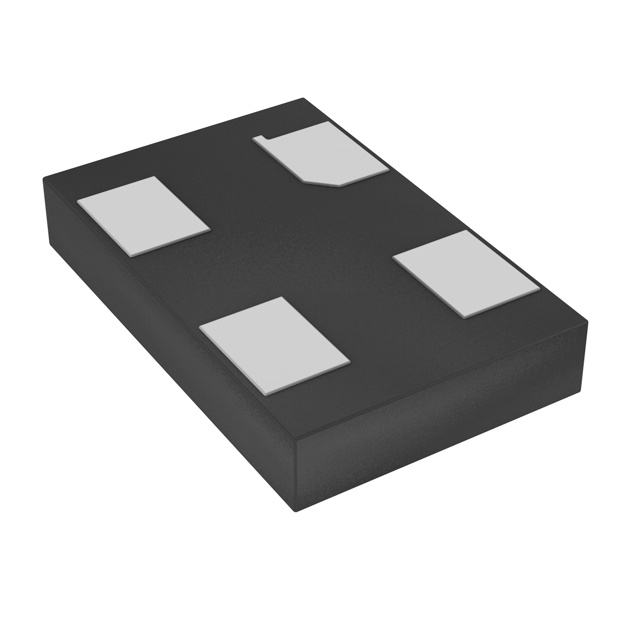
$4.0700
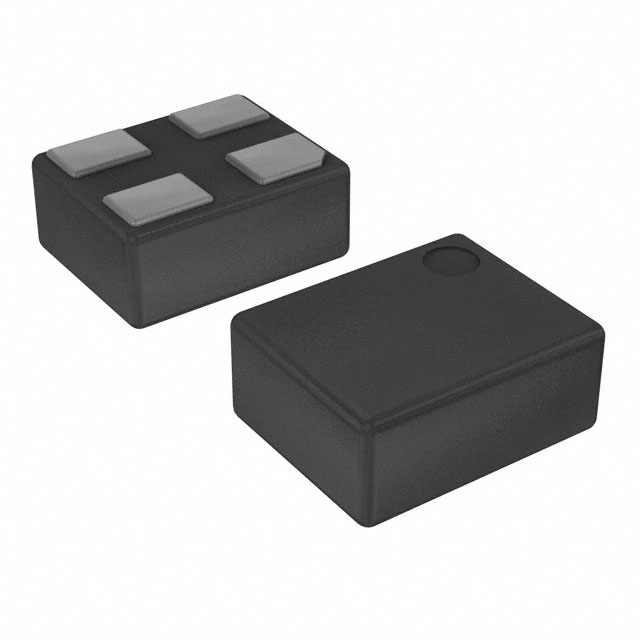
$2.9300
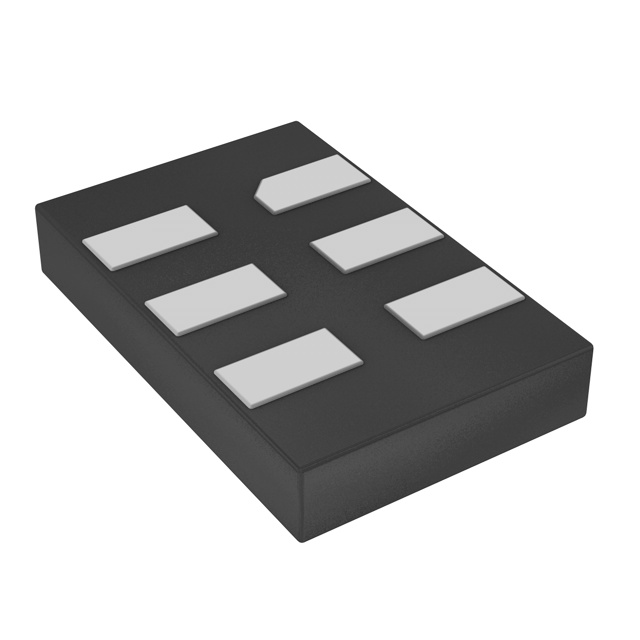
$4.0700
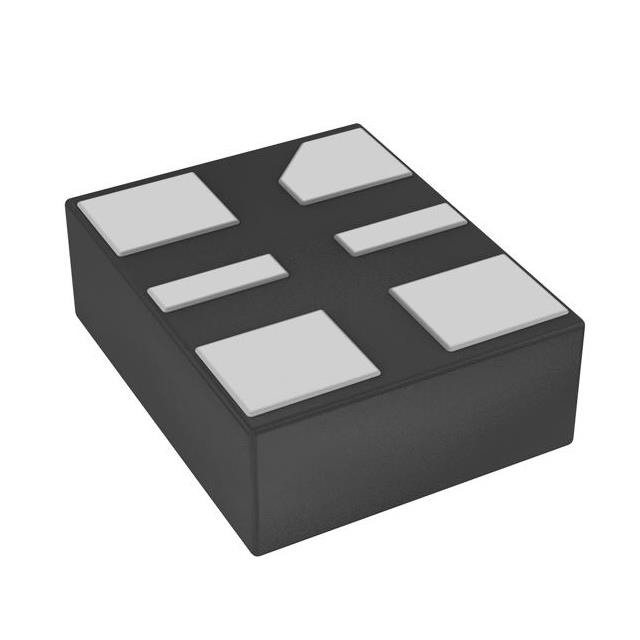
$9.7400
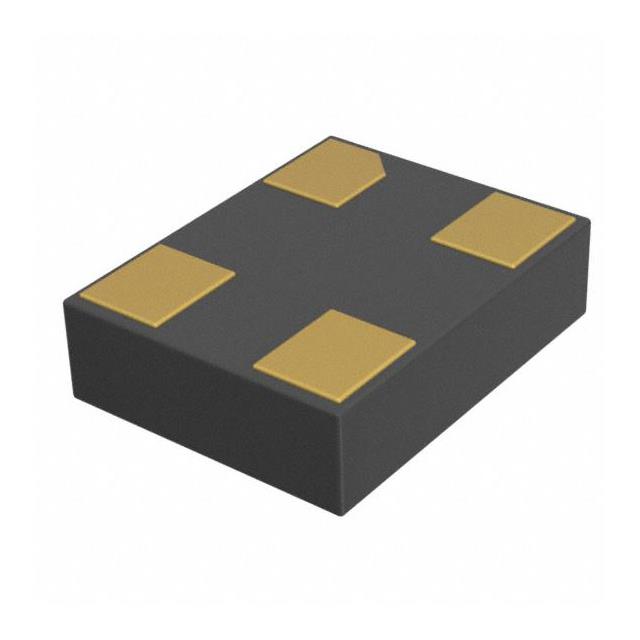
$2.5200

$3.3500

$6.0400
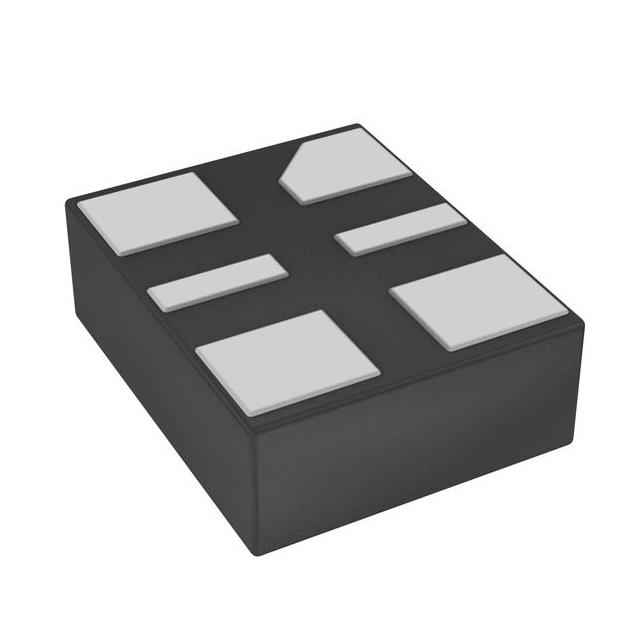
$3.9500

$9.7400
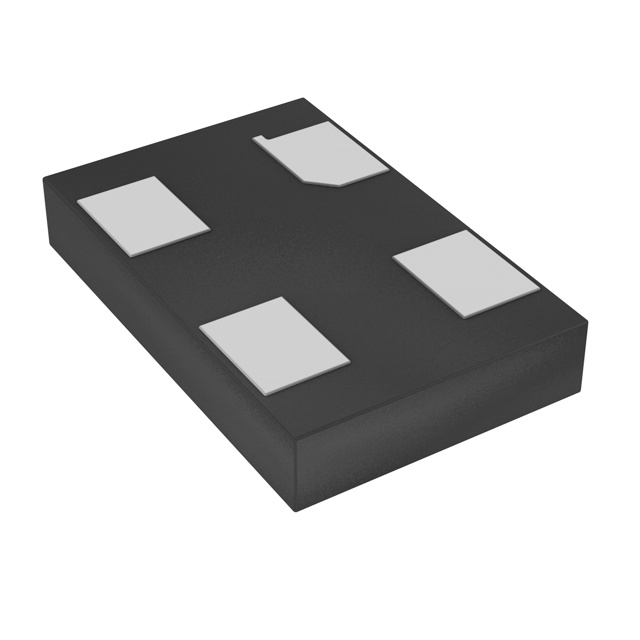
$9.2100
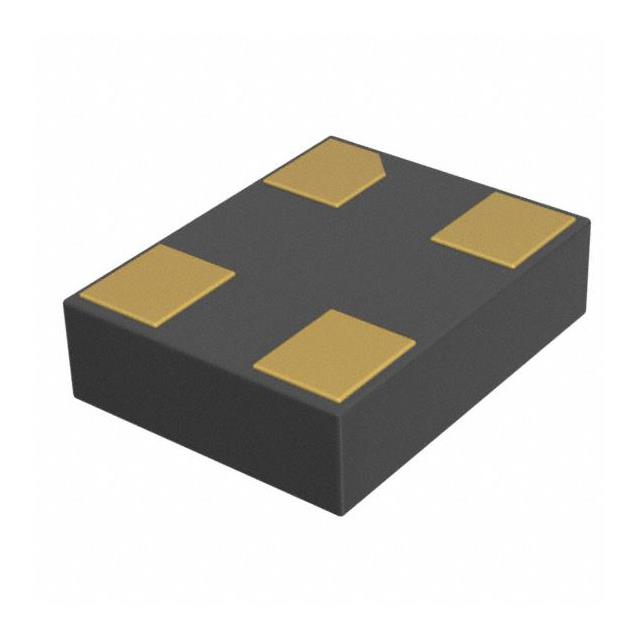
$2.5200
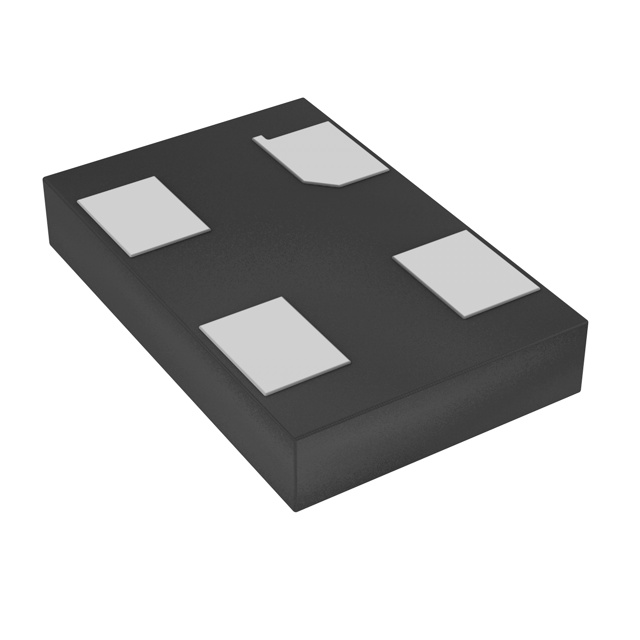
$2.6100

$2.9300

$6.3600

$2.5200

$4.1400
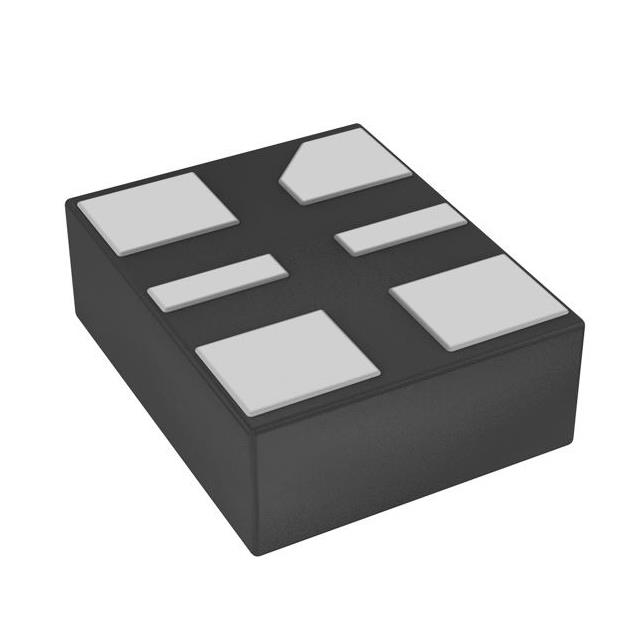
$4.1000
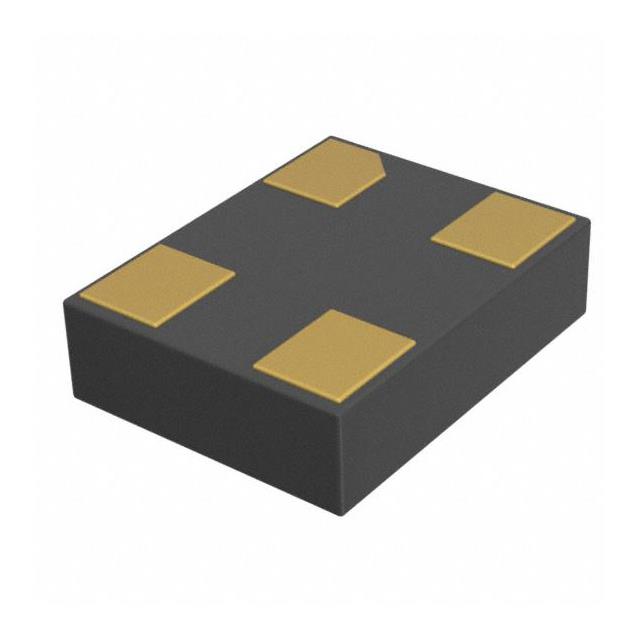
$3.8400

$5.7100

$2.6300

Samsung eMCP UMCP
Part number
Capacity
Version
DRAM Capacity
DRAM
Package
Rate
Production
KM2F8001CM-B707
256GB
UFS2.1
48Gb
LPDDR4X
254FBGA
4266Mbps
MassProduction
KM2P8001CM-B518
64GB
UFS2.1
48Gb
LPDDR4X
254FBGA
4266Mbps
Sample
KM3P6001CM-B517
64GB
eMMC
48Gb
LPDDR4X
254FBGA
4266Mbps
Sample
KM5C7001DM-B622
64GB
UFS2.1
32Gb
LPDDR4X
254FBGA
4266Mbps
MassProduction
KM5H80018M-B424
64GB
UFS2.1
24Gb
LPDDR4X
254FBGA
4266Mbps
MassProduction
KM5P8001DM-B424
64GB
UFS2.1
32Gb
LPDDR4X
254FBGA
4266Mbps
Sample
KM8F8001JA-B813
256GB
UFS2.1
64Gb
LPDDR4X
254FBGA
4266Mbps
MassProduction
KM8F8001JM-B813
256GB
UFS2.1
64Gb
LPDDR4X
254FBGA
4266Mbps
MassProduction
KM4X6001KM-B321
32GB
eMMC5.1
16Gb
LPDDR4X
254FBGA
4266Mbps
MassProduction
KM8V8001JM-B813
128GB
UFS2.1
64Gb
LPDDR4X
254FBGA
4266Mbps
MassProduction
KMDP60018M-B425
64GB
eMMC5.1
24Gb
LPDDR4X
254FBGA
4266Mbps
MassProduction
KMFN60012B-B214
8GB
eMMC5.1
8Gb
LPDDR3
221FBGA
1866Mbps
MassProduction
KMGX6001BA-B514
32GB
eMMC5.1
24Gb
LPDDR3
221FBGA
1866Mbps
MassProduction
KMQE60013B-B318
16GB
eMMC5.1
16Gb
LPDDR3
221FBGA
1866Mbps
MassProduction
KM2V8001CM-B707
128GB
UFS2.1
48Gb
LPDDR4X
254FBGA
4266Mbps
MassProduction
KMGP6001BA-B514
32GB
eMMC5.1
16Gb
LPDDR3
221FBGA
1866Mbps
MassProduction
KMQX60013A-B419
32GB
eMMC5.1
16Gb
LPDDR3
221FBGA
1866Mbps
MassProduction
Samsung EMMC
Part number
Version
Capacity
VCC
接口
Package
Temperature
Production
KLMCG2UCTB-B041
eMMC5.1
64GB
1.8/3.3V
HS400
11.5x13x0.8mm
-25~85°C
MassProduction
KLMDG4UCTB-B041
eMMC5.1
128GB
1.8/3.3V
HS400
11.5x13x1.0mm
-25~85°C
MassProduction
KLM4G1FETE-B041
eMMC5.1
4GB
1.8,3.3V/3.3V
HS400
11x10x0.8mm
-25~85°C
MassProduction
KLM8G1GEUF-B04P
eMMC5.1
8GB
1.8/3.3V
HS400
11.5x13x0.8mm
-40~85°C
MassProduction
KLM8G1GEUF-B04Q
eMMC5.1
8GB
1.8/3.3V
HS400
11.5x13x0.8mm
-40~105°C
MassProduction
KLMAG2GEUF-B04P
eMMC5.1
16GB
1.8/3.3V
HS400
11.5x13x0.8mm
-40~85°C
MassProduction
KLMAG2GEUF-B04Q
eMMC5.1
16GB
1.8/3.3V
HS400
11.5x13x0.8mm
-40~105°C
MassProduction
KLMBG4GEUF-B04P
eMMC5.1
32GB
1.8/3.3V
HS400
11.5x13x0.8mm
-40~85°C
MassProduction
KLMBG4GEUF-B04Q
eMMC5.1
32GB
1.8/3.3V
HS400
11.5x13x0.8mm
-40~105°C
MassProduction
KLMCG2KCTA-B041
eMMC5.1
64GB
1.8/3.3V
HS400
11.5x13x0.8mm
-25~85°C
MassProduction
KLMCG2UCTA-B041
eMMC5.1
64GB
1.8/3.3V
HS400
11.5x13x0.8mm
-25~85°C
MassProduction
KLMDG4UCTA-B041
eMMC5.1
128GB
1.8/3.3V
HS400
11.5x13x1.0mm
-25~85°C
MassProduction
KLMEG8UCTA-B041
eMMC5.1
256GB
1.8/3.3V
HS400
11.5x13x1.0mm
-25~85°C
MassProduction
KLM8G1GEME-B041
eMMC5.1
8GB
1.8/3.3V
HS400
11.5x13x0.8mm
-25~85°C
EOL
KLM8G1GEND-B031
eMMC5.0
8GB
1.8/3.3V
HS400
11.5x13x0.8mm
-25~85°C
EOL
KLM8G1GESD-B03P
eMMC5.0
8GB
1.8/3.3V
HS400
11.5x13x0.8mm
-40~85°C
MassProduction
KLM8G1GESD-B03Q
eMMC5.0
8GB
1.8/3.3V
HS400
11.5x13x0.8mm
-40~105°C
MassProduction
KLM8G1GESD-B04P
eMMC5.1
8GB
1.8/3.3V
HS400
11.5x13x0.8mm
-40~85°C
MassProduction
KLM8G1GESD-B04Q
eMMC5.1
8GB
1.8/3.3V
HS400
11.5x13x0.8mm
-40~105°C
MassProduction
KLM8G1GETF-B041
eMMC5.1
8GB
1.8,3.3V/3.3V
HS400
11.5x13x0.8mm
-25~85°C
MassProduction
KLM8G1WEPD-B031
eMMC5.0
8GB
1.8/3.3V
HS400
11.5x13x0.8mm
-25~85°C
EOL
KLMAG1JENB-B041
eMMC5.1
16GB
1.8/3.3V
HS400
11.5x13x0.8mm
-25~85°C
EOL
KLMAG1JETD-B041
eMMC5.1
16GB
1.8,3.3V/3.3V
HS400
11.5x13x0.8mm
-25~85°C
MassProduction
KLMAG2GEND-B031
eMMC5.0
16GB
1.8/3.3V
HS400
11.5x13x0.8mm
-25~85°C
EOL
KLMAG2GEND-B041
eMMC5.1
16GB
1.8/3.3V
HS400
11.5x13x0.8mm
-25~85°C
EOL
KLMAG2GESD-B03P
eMMC5.0
16GB
1.8/3.3V
HS400
11.5x13x0.8mm
-40~85°C
MassProduction
KLMAG2GESD-B03Q
eMMC5.0
16GB
1.8/3.3V
HS400
11.5x13x0.8mm
-40~105°C
MassProduction
KLMAG2GESD-B04P
eMMC5.1
16GB
1.8/3.3V
HS400
11.5x13x0.8mm
-40~85°C
MassProduction
KLMAG2GESD-B04Q
eMMC5.1
16GB
1.8/3.3V
HS400
11.5x13x0.8mm
-40~105°C
MassProduction
KLMAG2WEPD-B031
eMMC5.0
16GB
1.8/3.3V
HS400
11.5x13x0.8mm
-25~85°C
EOL
KLMBG2JENB-B041
eMMC5.1
32GB
1.8/3.3V
HS400
11.5x13x1.0mm
-25~85°C
EOL
KLMBG2JETD-B041
eMMC5.1
32GB
1.8,3.3V/3.3V
HS400
11.5x13x0.8mm
-25~85°C
MassProduction
KLMBG4GEND-B031
eMMC5.0
32GB
1.8/3.3V
HS400
11.5x13x1.0mm
-25~85°C
EOL
KLMBG4GEND-B041
eMMC5.1
32GB
1.8/3.3V
HS400
11.5x13x1.0mm
-25~85°C
EOL
KLMBG4GESD-B03P
eMMC5.0
32GB
1.8/3.3V
HS400
11.5x13x1.0mm
-40~85°C
MassProduction
KLMBG4GESD-B03Q
eMMC5.0
32GB
1.8/3.3V
HS400
11.5x13x1.0mm
-40~105°C
MassProduction
KLMBG4GESD-B04P
eMMC5.1
32GB
1.8/3.3V
HS400
11.5x13x1.0mm
-40~85°C
MassProduction
KLMBG4GESD-B04Q
eMMC5.1
32GB
1.8/3.3V
HS400
11.5x13x1.0mm
-40~85°C
MassProduction
KLMBG4WEBD-B031
eMMC5.0
32GB
1.8/3.3V
HS400
11.5x13x0.8mm
-25~85°C
EOL
KLMBG4WERD-B041
eMMC5.1
32GB
1.8/3.3V
HS400
11.5x13x1.0mm
-25~85°C
EOL
KLMCG2KETM-B041
eMMC5.1
64GB
1.8/3.3V
HS400
11.5x13x1.0mm
-25~85°C
EOL
KLMCG4JENB-B041
eMMC5.1
64GB
1.8/3.3V
HS400
11.5x13x1.0mm
-25~85°C
EOL
KLMCG4JETD-B041
eMMC5.1
64GB
1.8,3.3V/3.3V
HS400
11.5x13x1.0mm
-25~85°C
MassProduction
KLMCG4JEUD-B04P
eMMC5.1
64GB
1.8/3.3V
HS400
11.5x13x1.2mm
-40~85°C
Massproduction
KLMCG4JEUD-B04Q
eMMC5.1
64GB
1.8/3.3V
HS400
11.5x13x1.2mm
-40~105°C
Massproduction
KLMCG4VERF-B041
eMMC5.1
64GB
1.8/3.3V
HS400
11.5x13x1.0mm
-25~85°C
EOL
KLMCG8GEND-B031
eMMC5.0
64GB
1.8/3.3V
HS400
11.5x13x1.0mm
-25~85°C
EOL
KLMCG8GEND-B041
eMMC5.1
64GB
1.8/3.3V
HS400
11.5x13x1.0mm
-25~85°C
EOL
KLMCG8GESD-B03P
eMMC5.0
64GB
1.8/3.3V
HS400
11.5x13x1.0mm
-40~85°C
MassProduction
KLMCG8GESD-B03Q
eMMC5.0
64GB
1.8/3.3V
HS400
11.5x13x1.0mm
-40~105°C
MassProduction
KLMCG8GESD-B04P
eMMC5.1
64GB
1.8/3.3V
HS400
11.5x13x1.0mm
-40~85°C
MassProduction
KLMCG8GESD-B04Q
eMMC5.1
64GB
1.8/3.3V
HS400
11.5x13x1.0mm
-40~105°C
MassProduction
KLMCG8WEBD-B031
eMMC5.0
64GB
1.8/3.3V
HS400
11.5x13x1.0mm
-25~85°C
EOL
KLMDG4UERM-B041
eMMC5.1
128GB
1.8/3.3V
HS400
11.5x13x1.0mm
-25~85°C
EOL
KLMDG8JENB-B041
eMMC5.1
128GB
1.8/3.3V
HS400
11.5x13x1.2mm
-25~85°C
EOL
KLMDG8JEUD-B04P
eMMC5.1
128GB
1.8/3.3V
HS400
11.5x13x1.2mm
-40~85°C
Massproduction
KLMDG8JEUD-B04Q
eMMC5.1
128GB
1.8/3.3V
HS400
11.5x13x1.2mm
-40~105°C
Massproduction
KLMDG8VERF-B041
eMMC5.1
128GB
1.8/3.3V
HS400
11.5x13x1.0mm
-25~85°C
EOL
KLMDGAWEBD-B031
eMMC5.0
128GB
1.8/3.3V
HS400
11.5x13x1.4mm
-25~85°C
EOL
KLMEG8UERM-C041
eMMC5.1
256GB
1.8/3.3V
HS400
11.5x13x1.0mm
-25~85°C
EOL
Samsung UFS
Part number
Version
Capacity
VCC
接口
Package
Temperature
Production
KLUBG4G1ZF-C0CP
UFS2.1
32GB
1.8/3.3V
G32Lane
11.5x13x1.2mm
-40~95°C
MassProduction
KLUBG4G1ZF-C0CQ
UFS2.1
32GB
1.8/3.3V
G32Lane
11.5x13x1.2mm
-40~105°C
MassProduction
KLUCG4J1ZD-C0CP
UFS2.1
64GB
1.8/3.3V
G32Lane
11.5x13x1.2mm
-40~95°C
MassProduction
KLUCG4J1ZD-C0CQ
UFS2.1
64GB
1.8/3.3V
G32Lane
11.5x13x1.2mm
-40~105°C
MassProduction
KLUDG8J1ZD-C0CP
UFS2.1
128GB
1.8/3.3V
G32Lane
11.5x13x1.2mm
-40~95°C
MassProduction
KLUDG8J1ZD-C0CQ
UFS2.1
128GB
1.8/3.3V
G32Lane
11.5x13x1.2mm
-40~105°C
MassProduction
KLUEGAJ1ZD-C0CP
UFS2.1
256GB
1.8/3.3V
G32Lane
11.5x13x1.72mm
-40~95°C
MassProduction
KLUEGAJ1ZD-C0CQ
UFS2.1
256GB
1.8/3.3V
G32Lane
11.5x13x1.72mm
-40~105°C
MassProduction
KLUCG2UHYB-B0EP
UFS3.1
64GB
1.2/2.5V
G42Lane
11.5x13x1.2mm
-40~95°C
MassProduction
KLUCG2UHYB-B0EQ
UFS3.1
64GB
1.2/2.5V
G42Lane
11.5x13x1.2mm
-40~105°C
MassProduction
KLUDG4UHYB-B0EP
UFS3.1
128GB
1.2/2.5V
G42Lane
11.5x13x1.2mm
-40~95°C
MassProduction
KLUDG4UHYB-B0EQ
UFS3.1
128GB
1.2/2.5V
G42Lane
11.5x13x1.2mm
-40~105°C
MassProduction
KLUEG8UHYB-B0EP
UFS3.1
256GB
1.2/2.5V
G42Lane
11.5x13x1.2mm
-40~95°C
MassProduction
KLUEG8UHYB-B0EQ
UFS3.1
256GB
1.2/2.5V
G42Lane
11.5x13x1.2mm
-40~105°C
MassProduction
KLUFGAUHYB-B0EP
UFS3.1
512GB
1.2/2.5V
G42Lane
11.5x13x1.72mm
-40~95°C
MassProduction
KLUFGAUHYB-B0EQ
UFS3.1
512GB
1.2/2.5V
G42Lane
11.5x13x1.72mm
-40~105°C
MassProduction
KLUDG4UHDB-B2E1
UFS3.1
128GB
1.2/2.5V
G42Lane
11.5x13x0.8mm
-25~85°C
MassProduction
KLUDG4UHDC-B0E1
UFS3.1
128GB
1.2/2.5V
G42Lane
11.5x13x0.8mm
-25~85°C
MassProduction
KLUEG8UHDB-C2E1
UFS3.1
256GB
1.2/2.5V
G42Lane
11.5x13x1.0mm
-25~85°C
MassProduction
KLUEG8UHDC-B0E1
UFS3.1
256GB
1.2/2.5V
G42Lane
11.5x13x0.8mm
-25~85°C
MassProduction
KLUFG8RHDA-B2E1
UFS3.1
512GB
1.2/2.5V
G42Lane
11.5x13x1.0mm
-25~85°C
MassProduction
KLUFG8RHDB-B0E1
UFS3.1
512GB
1.2/2.5V
G42Lane
11.5x13x1.0mm
-25~85°C
MassProduction
KLUBG4G1CE-B0B1
UFS2.0
32GB
1.8/3.3V
G31Lane
11.5x13x1.0mm
-25~85°C
EOL
KLUBG4G1ZF-B0CP
UFS2.1
32GB
1.8/3.3V
G32Lane
11.5x13x1.2mm
-40~85°C
MassProduction
KLUBG4G1ZF-B0CQ
UFS2.1
32GB
1.8/3.3V
G32Lane
11.5x13x1.2mm
-40~105°C
MassProduction
KLUCG2K1EA-B0C1
UFS2.1
64GB
1.8/3.3V
G32Lane
11.5x13x1.0mm
-25~85°C
MassProduction
KLUCG2U1YB-B0CP
UFS2.1
64GB
1.8/3.3V
G32Lane
11.5x13x1.2mm
-40~85°C
MassProduction
KLUCG2U1YB-B0CQ
UFS2.1
64GB
1.8/3.3V
G32Lane
11.5x13x1.2mm
-40~105°C
MassProduction
KLUCG4J1BB-B0B1
UFS2.0
64GB
1.8/3.3V
G22Lane
11.5x13x1.0mm
-25~85°C
EOL
KLUCG4J1CB-B0B1
UFS2.0
64GB
1.8/3.3V
G31Lane
11.5x13x1.0mm
-25~85°C
EOL
KLUCG4J1ED-B0C1
UFS2.1
64GB
1.8/3.3V
G32Lane
11.5x13x1.0mm
-25~85°C
MassProduction
KLUCG4J1ZD-B0CP
UFS2.1
64GB
1.8/3.3V
G32Lane
11.5x13x1.2mm
-40~85°C
MassProduction
KLUCG4J1ZD-B0CQ
UFS2.1
64GB
1.8/3.3V
G32Lane
11.5x13x1.2mm
-40~105°C
MassProduction
KLUDG4U1EA-B0C1
UFS2.1
128GB
1.8/3.3V
G32Lane
11.5x13x1.0mm
-25~85°C
MassProduction
KLUDG4U1FB-B0C1
UFS2.1
128GB
1.8/3.3V
G32Lane
11.5x13x1.0mm
-25~85°C
MassProduction
KLUDG4U1YB-B0CP
UFS2.1
128GB
1.8/3.3V
G32Lane
11.5x13x1.2mm
-40~85°C
MassProduction
KLUDG4U1YB-B0CQ
UFS2.1
128GB
1.8/3.3V
G32Lane
11.5x13x1.2mm
-40~105°C
MassProduction
KLUDG8J1BB-B0B1
UFS2.0
128GB
1.8/3.3V
G22Lane
11.5x13x1.2mm
-25~85°C
EOL
KLUDG8J1CB-B0B1
UFS2.0
128GB
1.8/3.3V
G31Lane
11.5x13x1.2mm
-25~85°C
EOL
KLUDG8J1ZD-B0CP
UFS2.1
128GB
1.8/3.3V
G32Lane
11.5x13x1.2mm
-40~85°C
MassProduction
KLUDG8J1ZD-B0CQ
UFS2.1
128GB
1.8/3.3V
G32Lane
11.5x13x1.2mm
-40~105°C
MassProduction
KLUDG8V1EE-B0C1
UFS2.1
128GB
1.8/3.3V
G32Lane
11.5x13x1.0mm
-25~85°C
EOL
KLUEG8U1EA-B0C1
UFS2.1
256GB
1.8/3.3V
G32Lane
11.5x13x1.0mm
-25~85°C
MassProduction
KLUEG8U1EM-B0B1
UFS2.0
256GB
1.8/3.3V
G32Lane
11.5x13x1.2mm
-25~85°C
EOL
KLUEG8U1EM-B0C1
UFS2.1
256GB
1.8/3.3V
G32Lane
11.5x13x1.0mm
-25~85°C
EOL
KLUEG8U1YB-B0CP
UFS2.1
256GB
1.8/3.3V
G32Lane
11.5x13x1.2mm
-40~85°C
MassProduction
KLUEG8U1YB-B0CQ
UFS2.1
256GB
1.8/3.3V
G32Lane
11.5x13x1.2mm
-40~105°C
MassProduction
KLUEGAJ1ZD-B0CP
UFS2.1
256GB
1.8/3.3V
G32Lane
11.5x13x1.72mm
-40~85°C
MassProduction
KLUEGAJ1ZD-B0CQ
UFS2.1
256GB
1.8/3.3V
G32Lane
11.5x13x1.72mm
-40~105°C
MassProduction
KLUFG8R1EM-B0C1
UFS2.1
512GB
1.8/3.3V
G32Lane
11.5x13x1.0mm
-25~85°C
MassProduction
KLUGGAR1FA-B2C1
UFS2.1
1TB
1.8/3.3V
G32Lane
11.5x13x1.4mm
-25~85°C
MassProduction
KLUGGARHDA-B0D1
UFS3.0
1TB
1.2/2.5V
G42Lane
11.5x13x1.25mm
-25~85°C
MassProduction
Samsung LPDDR5X
Part Number
Capacity
Rate
VCC
Temperature
Package
K3KL3L30CM-BGCT
64Gb
x64
7500Mbps
1.8/1.05/0.9/0.5V
-25~85°C
496FBGA
K3KL3L30CM-JGCT
64Gb
x64
7500Mbps
1.8/1.05/0.9/0.5V
-25~85°C
441FBGA
K3KL3L30CM-MGCT
64Gb
x32
7500Mbps
1.8/1.05/0.9/0.5V
-25~85°C
315FBGA
K3KL4L40DM-BGCT
96Gb
x64
7500Mbps
1.8/1.05/0.9/0.5V
-25~85°C
496FBGA
K3KL5L50CM-BGCT
128Gb
x64
7500Mbps
1.8/1.05/0.9/0.5V
-25~85°C
496FBGA
K3KL5L50CM-MGCT
128Gb
x32
7500Mbps
1.8/1.05/0.9/0.5V
-25~85°C
315FBGA
K3KL8L80CM-MGCT
32Gb
x32
7500Mbps
1.8/1.05/0.9/0.5V
-25~85°C
315FBGA
SamsungLPDDR5
Part Number
Capacity
架构
Rate
VCC
Temperature
Package
Production
K3LK2K20BM-BGCN
48Gb
x64
5500Mbps
1.8/1.05/0.9/0.5V
-25~85°C
496FBGA
Sample
Samsung LPDDR4x
Part Number
架构
Rate
VCC
Temperature
Package
Production
K3UH5H50AM-JGCR
x64
4266Mbps
1.8/1.1/0.6V
-25~85°C
432FBGA
Sample
K3UH7H70AM-JGCR
x64
4266Mbps
1.8/1.1/0.6V
-25~85°C
432FBGA
Sample
K4U6E3S4AA-MGCR
x32
4266Mbps
1.8/1.1/0.6V
-25~85°C
200FBGA
Sample
K4UBE3D4AA-MGCR
x32
4266Mbps
1.8/1.1/0.6V
-25~85°C
200FBGA
Sample
K4UCE3Q4AA-MGCR
x32
4266Mbps
1.8/1.1/0.6V
-25~85°C
200FBGA
Sample
K3UH5H50AM-JGCL
x64
4266Mbps
1.8/1.1/0.6V
-25~85°C
432FBGA
MassProduction
K3UH7H70AM-JGCL
x64
4266Mbps
1.8/1.1/0.6V
-25~85°C
432FBGA
MassProduction
K3UHAHA0AM-AGCL
x64
4266Mbps
1.8/1.1/0.6V
-25~85°C
556FBGA
MassProduction
K4U6E3S4AA-MGCL
x32
4266Mbps
1.8/1.1/0.6V
-25~85°C
200FBGA
MassProduction
K4UBE3D4AA-MGCL
x32
4266Mbps
1.8/1.1/0.6V
-25~85°C
200FBGA
MassProduction
K4UCE3Q4AA-MGCL
x32
4266Mbps
1.8/1.1/0.6V
-25~85°C
200FBGA
MassProduction
K4U8E3S4AD-GFCL
x32
4266Mbps
1.8/1.1/0.6V
-40~95°C
200FBGA
MassProduction
K4U8E3S4AD-GHCL
x32
4266Mbps
1.8/1.1/0.6V
-40~105°C
200FBGA
MassProduction
K4U8E3S4AD-GUCL
x32
4266Mbps
1.8/1.1/0.6V
-40~125°C
200FBGA
MassProduction
K3UH5H50AM-AGCL
x64
4266Mbps
1.8/1.1/0.6V
-25~85°C
556FBGA
批量生产
K3UH6H60BM-AGCL
x64
4266Mbps
1.8/1.1/0.6V
-25~85°C
556FBGA
MassProduction
K3UH7H70AM-AGCL
x64
4266Mbps
1.8/1.1/0.6V
-25~85°C
556FBGA
MassProduction
K4U2E3S4AA-GFCL
x32
4266Mbps
1.8/1.1/0.6V
-40~95°C
200FBGA
MassProduction
K4U2E3S4AA-GHCL
x32
4266Mbps
1.8/1.1/0.6V
-40~105°C
200FBGA
MassProduction
K4U2E3S4AA-GUCL
x32
4266Mbps
1.8/1.1/0.6V
-40~125°C
200FBGA
MassProduction
K4U6E3S4AM-GFCL
x32
4266Mbps
1.8/1.1/0.6V
-40~95°C
200FBGA
MassProduction
K4U6E3S4AM-GHCL
x32
4266Mbps
1.8/1.1/0.6V
-40~105°C
200FBGA
MassProduction
K4U6E3S4AM-GUCL
x32
4266Mbps
1.8/1.1/0.6V
-40~125°C
200FBGA
MassProduction
K4UBE3D4AM-GFCL
x32
4266Mbps
1.8/1.1/0.6V
-40~95°C
200FBGA
MassProduction
K4UBE3D4AM-GHCL
x32
4266Mbps
1.8/1.1/0.6V
-40~105°C
200FBGA
Sample
K4UBE3D4AM-GUCL
x32
4266Mbps
1.8/1.1/0.6V
-40~125°C
200FBGA
MassProduction
K4UHE3D4AA-GFCL
x32
4266Mbps
1.8/1.1/0.6V
-40~95°C
200FBGA
MassProduction
K4UHE3D4AA-GHCL
x32
4266Mbps
1.8/1.1/0.6V
-40~105°C
200FBGA
Sample
K4UHE3D4AA-GUCL
x32
4266Mbps
1.8/1.1/0.6V
-40~125°C
200FBGA
MassProduction
Samsung LPDDR4
Part Number
架构
Rate
VCC
Temperature
Package
Production
K4F2E3S4HA-TFCL
x32
4266Mbps
1.8/1.1/1.1V
-40~95°C
200FBGA
MassProduction
K4F2E3S4HA-THCL
x32
4266Mbps
1.8/1.1/1.1V
-40~105°C
200FBGA
MassProduction
K4F2E3S4HA-TUCL
x32
4266Mbps
1.8/1.1/1.1V
-40~125°C
200FBGA
MassProduction
K4F6E3S4HM-TFCL
x32
4266Mbps
1.8/1.1/1.1V
-40~95°C
200FBGA
MassProduction
K4F6E3S4HM-THCL
x32
4266Mbps
1.8/1.1/1.1V
-40~105°C
200FBGA
MassProduction
K4F6E3S4HM-TUCL
x32
4266Mbps
1.8/1.1/1.1V
-40~125°C
200FBGA
MassProduction
K4FBE3D4HM-TFCL
x32
4266Mbps
1.8/1.1/1.1V
-40~95°C
200FBGA
MassProduction
K4FBE3D4HM-THCL
x32
4266Mbps
1.8/1.1/1.1V
-40~105°C
200FBGA
MassProduction
K4FBE3D4HM-TUCL
x32
4266Mbps
1.8/1.1/1.1V
-40~125°C
200FBGA
MassProduction
K4FHE3D4HA-TFCL
x32
4266Mbps
1.8/1.1/1.1V
-40~95°C
200FBGA
MassProduction
K4FHE3D4HA-THCL
x32
4266Mbps
1.8/1.1/1.1V
-40~105°C
200FBGA
MassProduction
K4FHE3D4HA-TUCL
x32
4266Mbps
1.8/1.1/1.1V
-40~125°C
200FBGA
MassProduction
K4F6E304HB-MGCJ
x32
3733Mbps
1.8/1.1/1.1V
-25~85°C
200FBGA
MassProduction
K4F6E3S4HM-MGCJ
x32
3733Mbps
1.8/1.1/1.1V
-25~85°C
200FBGA
MassProduction
K4F8E3S4HD-MGCL
x32
4266Mbps
1.8/1.1/1.1V
-25~85°C
200FBGA
MassProduction
K4F8E3S4HD-GFCL
x32
4266Mbps
1.8/1.1/1.1V
-40~95°C
200FBGA
MassProduction
K4F8E3S4HD-GHCL
x32
4266Mbps
1.8/1.1/1.1V
-40~105°C
200FBGA
MassProduction
K4F8E3S4HD-GUCL
x32
4266Mbps
1.8/1.1/1.1V
-40~125°C
200FBGA
MassProduction
K4F2E3S4HA-GFCL
x32
4266Mbps
1.8/1.1/1.1V
-40~95°C
200FBGA
MassProduction
K4F2E3S4HA-GHCL
x32
4266Mbps
1.8/1.1/1.1V
-40~105°C
200FBGA
MassProduction
K4F2E3S4HA-GUCL
x32
4266Mbps
1.8/1.1/1.1V
-40~125°C
200FBGA
MassProduction
K4F2E3S4HM-MFCJ
x32
3733Mbps
1.8/1.1/1.1V
-40~95°C
200FBGA
MassProduction
K4F2E3S4HM-MHCJ
x32
3733Mbps
1.8/1.1/1.1V
-40~105°C
200FBGA
MassProduction
K4F4E3S4HF-GFCJ
x32
3733Mbps
1.8/1.1/1.1V
-40~95°C
200FBGA
MassProduction
K4F4E3S4HF-GHCJ
x32
3733Mbps
1.8/1.1/1.1V
-40~105°C
200FBGA
MassProduction
K4F4E3S4HF-GUCJ
x32
3733Mbps
1.8/1.1/1.1V
-40~125°C
200FBGA
MassProduction
K4F6E3D4HB-MFCJ
x32
3733Mbps
1.8/1.1/1.1V
-40~95°C
200FBGA
MassProduction
K4F6E3D4HB-MHCJ
x32
3733Mbps
1.8/1.1/1.1V
-40~105°C
200FBGA
MassProduction
K4F6E3S4HM-GFCL
x32
4266Mbps
1.8/1.1/1.1V
-40~95°C
200FBGA
MassProduction
K4F6E3S4HM-GHCL
x32
4266Mbps
1.8/1.1/1.1V
-40~105°C
200FBGA
MassProduction
K4F6E3S4HM-GUCL
x32
4266Mbps
1.8/1.1/1.1V
-40~125°C
200FBGA
MassProduction
K4F8E3S4HB-MFCJ
x32
3733Mbps
1.8/1.1/1.1V
-40~95°C
200FBGA
MassProduction
K4F8E3S4HB-MHCJ
x32
3733Mbps
1.8/1.1/1.1V
-40~105°C
200FBGA
MassProduction
K4FBE3D4HM-GFCL
x32
4266Mbps
1.8/1.1/1.1V
-40~95°C
200FBGA
MassProduction
K4FBE3D4HM-GHCL
x32
4266Mbps
1.8/1.1/1.1V
-40~105°C
200FBGA
MassProduction
K4FBE3D4HM-GUCL
x32
4266Mbps
1.8/1.1/1.1V
-40~125°C
200FBGA
MassProduction
K4FHE3D4HA-GFCL
x32
4266Mbps
1.8/1.1/1.1V
-40~95°C
200FBGA
MassProduction
K4FHE3D4HA-GHCL
x32
4266Mbps
1.8/1.1/1.1V
-40~105°C
200FBGA
MassProduction
K4FHE3D4HA-GUCL
x32
4266Mbps
1.8/1.1/1.1V
-40~125°C
200FBGA
MassProduction
K4FHE3D4HM-MFCJ
x32
3733Mbps
1.8/1.1/1.1V
-40~95°C
200FBGA
MassProduction
K4FHE3D4HM-MHCJ
x32
3733Mbps
1.8/1.1/1.1V
-40~105°C
200FBGA
MassProduction
Samsung LPDDR3
Part Number
Capacity
架构
Rate
VCC
Temperature
Package
production
K4E6E304EC-EGCG
16Gb
x32
2133Mbps
1.8/1.2/1.2V
-25~85°C
178FBGA
MassProduction
K4E8E324EB-EGCG
8Gb
x32
2133Mbps
1.8/1.2/1.2V
-25~85°C
178FBGA
MassProduction
K4EBE304EC-EGCG
32Gb
x32
2133Mbps
1.8/1.2/1.2V
-25~85°C
178FBGA
MassProduction
K4E6E304ED-EGCG
16Gb
x32
2133Mbps
1.8/1.2/1.2V
-25~85°C
178FBGA
MassProduction
K4E8E324ED-EGCG
8Gb
x32
2133Mbps
1.8/1.2/1.2V
-25~85°C
178FBGA
MassProduction
K4EBE304ED-EGCG
32Gb
x32
2133Mbps
1.8/1.2/1.2V
-25~85°C
178FBGA
MassProduction
Samsung DDR3
Part Number
Capacity
架构
Rate
VCC
Temperature
Package
Production
K4B1G1646I-BYNB
1Gb
64Mx16
2133Mbps
1.35V
0~85°C
96FBGA
MassProduction
K4B2G1646F-BYNB
2Gb
128Mx16
2133Mbps
1.35V
0~85°C
96FBGA
MassProduction
K4B4G0846E-YCK0
4Gb
512Mx8
1600Mbps
1.35V
0~85°C
78FBGA
MassProduction
K4B4G0846E-YCMA
4Gb
512Mx8
1866Mbps
1.35V
0~85°C
78FBGA
MassProduction
K4B4G1646E-YCK0
4Gb
512Mx8
1600Mbps
1.35V
0~85°C
96FBGA
MassProduction
K4B4G1646E-YCMA
4Gb
512Mx8
1866Mbps
1.35V
0~85°C
96FBGA
MassProduction
K4B8G0846D-MMMA
8Gb
1Gx8
1866Mbps
1.35V
-40~95°C
78FBGA
EOL
K4B8G1646D-MMMA
8Gb
512Mx16
1866Mbps
1.35V
0~85°C
96FBGA
EOL
K4B1G0846I-BYNB
1Gb
128Mx8
2133Mbps
1.35V
0~85°C
78FBGA
MassProduction
K4B8G0846D-MCK0
8Gb
1Gx8
1600Mbps
1.5V
0~85°C
78FBGA
EOL
K4B8G0846D-MCMA
8Gb
1Gx8
1866Mbps
1.5V
0~85°C
78FBGA
EOL
K4B8G0846D-MCNB
8Gb
1Gx8
2133Mbps
1.5V
0~85°C
78FBGA
EOL
K4B8G0846D-MMK0
8Gb
1Gx8
1600Mbps
1.35V
-40~95°C
78FBGA
EOL
K4B8G0846D-MYK0
8Gb
1Gx8
1600Mbps
1.35V
0~85°C
78FBGA
EOL
K4B8G0846D-MYMA
8Gb
1Gx8
1866Mbps
1.35V
0~85°C
78FBGA
EOL
K4B8G1646D-MCK0
8Gb
512Mx16
1600Mbps
1.5V
0~85°C
96FBGA
EOL
K4B8G1646D-MCMA
8Gb
512Mx16
1866Mbps
1.5V
0~85°C
96FBGA
EOL
K4B8G1646D-MCNB
8Gb
512Mx16
2133Mbps
1.5V
0~85°C
96FBGA
EOL
K4B8G1646D-MMK0
8Gb
512Mx16
1600Mbps
1.35V
0~85°C
96FBGA
EOL
K4B8G1646D-MYK0
8Gb
512Mx16
1600Mbps
1.35V
-40~95°C
96FBGA
EOL
K4B8G1646D-MYMA
8Gb
512Mx16
1866Mbps
1.35V
-40~95°C
96FBGA
EOL
K4B1G0846I-BCK0
1Gb
128Mx8
1600Mbps
1.5V
0~85°C
78FBGA
MassProduction
K4B1G0846I-BCMA
1Gb
128Mx8
1866Mbps
1.5V
0~85°C
78FBGA
MassProduction
K4B1G0846I-BCNB
1Gb
128Mx8
2133Mbps
1.5V
0~85°C
78FBGA
MassProduction
K4B1G0846I-BMK0
1Gb
128Mx8
1600Mbps
1.35V
-40~95°C
78FBGA
MassProduction
K4B1G0846I-BMMA
1Gb
128Mx8
1600Mbps
1.35V
-40~95°C
78FBGA
MassProduction
K4B1G0846I-BYK0
1Gb
128Mx8
1600Mbps
1.35V
0~85°C
78FBGA
MassProduction
K4B1G0846I-BYMA
1Gb
128Mx8
1866Mbps
1.35V
0~85°C
78FBGA
MassProduction
K4B1G1646I-BCK0
1Gb
64Mx16
1600Mbps
1.5V
0~85°C
96FBGA
MassProduction
K4B1G1646I-BCMA
1Gb
64Mx16
1866Mbps
1.5V
0~85°C
96FBGA
MassProduction
K4B1G1646I-BCNB
1Gb
64Mx16
2133Mbps
1.5V
0~85°C
96FBGA
MassProduction
K4B1G1646I-BFMA
1Gb
64Mx16
1866Mbps
1.35V
-40~95°C
96FBGA
MassProduction
K4B1G1646I-BHMA
1Gb
64Mx16
1866Mbps
1.35V
-40~105°C
96FBGA
MassProduction
K4B1G1646I-BMK0
1Gb
64Mx16
1600Mbps
1.35V
-40~95°C
96FBGA
MassProduction
K4B1G1646I-BMMA
1Gb
64Mx16
1600Mbps
1.35V
-40~95°C
96FBGA
MassProduction
K4B1G1646I-BYK0
1Gb
64Mx16
1600Mbps
1.35V
0~85°C
96FBGA
MassProduction
K4B1G1646I-BYMA
1Gb
64Mx16
1866Mbps
1.35V
0~85°C
96FBGA
MassProduction
K4B2G0846F-BCK0
2Gb
256Mx8
1600Mbps
1.5V
0~85°C
78FBGA
MassProduction
K4B2G0846F-BCMA
2Gb
256Mx8
1866Mbps
1.5V
0~85°C
78FBGA
MassProduction
K4B2G0846F-BCNB
2Gb
256Mx8
2133Mbps
1.5V
0~85°C
78FBGA
MassProduction
K4B2G0846F-BMK0
2Gb
256Mx8
1600Mbps
1.35V
-40~95°C
78FBGA
MassProduction
K4B2G0846F-BMMA
2Gb
256Mx8
1600Mbps
1.35V
-40~95°C
78FBGA
MassProduction
K4B2G0846F-BYK0
2Gb
256Mx8
1600Mbps
1.35V
0~85°C
78FBGA
MassProduction
K4B2G0846F-BYMA
2Gb
256Mx8
1866Mbps
1.35V
0~85°C
78FBGA
MassProduction
K4B2G0846F-BYNB
2Gb
256Mx8
2133Mbps
1.35V
0~85°C
78FBGA
MassProduction
K4B2G1646F-BCK0
2Gb
128Mx16
1600Mbps
1.5V
0~85°C
96FBGA
MassProduction
K4B2G1646F-BCMA
2Gb
128Mx16
1866Mbps
1.5V
0~85°C
96FBGA
MassProduction
K4B2G1646F-BCNB
2Gb
128Mx16
2133Mbps
1.5V
0~85°C
96FBGA
MassProduction
K4B2G1646F-BFMA
2Gb
128Mx16
1866Mbps
1.35V
-40~95°C
96FBGA
MassProduction
K4B2G1646F-BHMA
2Gb
128Mx16
1866Mbps
1.35V
-40~105°C
96FBGA
MassProduction
K4B2G1646F-BMK0
2Gb
128Mx16
1600Mbps
1.35V
-40~95°C
96FBGA
MassProduction
K4B2G1646F-BMMA
2Gb
128Mx16
1600Mbps
1.35V
-40~95°C
96FBGA
MassProduction
K4B2G1646F-BYK0
2Gb
128Mx16
1600Mbps
1.35V
0~85°C
96FBGA
MassProduction
K4B2G1646F-BYMA
2Gb
128Mx16
1866Mbps
1.35V
0~85°C
96FBGA
MassProduction
K4B4G0846D-BCH9
4Gb
512Mx8
1333Mbps
1.5V
0~85°C
78FBGA
MassProduction
K4B4G0846D-BCK0
4Gb
512Mx8
1600Mbps
1.5V
0~85°C
78FBGA
MassProduction
K4B4G0846D-BCMA
4Gb
512Mx8
1866Mbps
1.5V
0~85°C
78FBGA
MassProduction
K4B4G0846D-BCNB
4Gb
512Mx8
2133Mbps
1.5V
0~85°C
78FBGA
MassProduction
K4B4G0846D-BMK0
4Gb
512Mx8
1600Mbps
1.35V
-40~95°C
78FBGA
MassProduction
K4B4G0846D-BMMA
4Gb
512Mx8
1600Mbps
1.35V
-40~95°C
78FBGA
MassProduction
K4B4G0846D-BYH9
4Gb
512Mx8
1333Mbps
1.35V
0~85°C
78FBGA
MassProduction
K4B4G0846D-BYK0
4Gb
512Mx8
1600Mbps
1.35V
0~85°C
78FBGA
MassProduction
K4B4G0846D-BYMA
4Gb
512Mx8
1866Mbps
1.35V
0~85°C
78FBGA
MassProduction
K4B4G0846D-BYNB
4Gb
512Mx8
2133Mbps
1.35V
0~85°C
78FBGA
MassProduction
K4B4G0846E-BCK0
4Gb
512Mx8
1600Mbps
1.5V
0~85°C
78FBGA
MassProduction
K4B4G0846E-BCMA
4Gb
512Mx8
1866Mbps
1.5V
0~85°C
78FBGA
MassProduction
K4B4G0846E-BMK0
4Gb
512Mx8
1600Mbps
1.35V
-40~95°C
78FBGA
MassProduction
K4B4G0846E-BMMA
4Gb
512Mx8
1600Mbps
1.35V
-40~95°C
78FBGA
MassProduction
K4B4G0846E-BYK0
4Gb
512Mx8
1600Mbps
1.35V
0~85°C
78FBGA
MassProduction
K4B4G0846E-BYMA
4Gb
512Mx8
1866Mbps
1.35V
0~85°C
78FBGA
MassProduction
K4B4G0846R-BFMA
4Gb
512Mx8
1866Mbps
1.35V
-40~95°C
78FBGA
MassProduction
K4B4G0846R-BHMA
4Gb
512Mx8
1866Mbps
1.35V
-40~105°C
78FBGA
MassProduction
K4B4G1646D-BCH9
4Gb
256Mx16
1333Mbps
1.5V
0~85°C
96FBGA
MassProduction
K4B4G1646D-BCK0
4Gb
256Mx16
1600Mbps
1.5V
0~85°C
96FBGA
MassProduction
K4B4G1646D-BCMA
4Gb
256Mx16
1866Mbps
1.5V
0~85°C
96FBGA
MassProduction
K4B4G1646D-BCNB
4Gb
256Mx16
2133Mbps
1.5V
0~85°C
96FBGA
MassProduction
K4B4G1646D-BFMA
4Gb
256Mx16
1866Mbps
1.35V
-40~95°C
96FBGA
MassProduction
K4B4G1646D-BHMA
4Gb
256Mx16
1866Mbps
1.35V
-40~105°C
96FBGA
MassProduction
K4B4G1646D-BMK0
4Gb
256Mx16
1600Mbps
1.35V
-40~95°C
96FBGA
MassProduction
K4B4G1646D-BMMA
4Gb
256Mx16
1600Mbps
1.35V
-40~95°C
96FBGA
MassProduction
K4B4G1646D-BYH9
4Gb
256Mx16
1333Mbps
1.35V
0~85°C
96FBGA
MassProduction
K4B4G1646D-BYK0
4Gb
256Mx16
1600Mbps
1.35V
0~85°C
96FBGA
MassProduction
K4B4G1646D-BYMA
4Gb
256Mx16
1866Mbps
1.35V
0~85°C
96FBGA
MassProduction
K4B4G1646D-BYNB
4Gb
256Mx16
2133Mbps
1.35V
0~85°C
96FBGA
MassProduction
K4B4G1646E-BCK0
4Gb
512Mx8
1600Mbps
1.5V
0~85°C
96FBGA
MassProduction
K4B4G1646E-BCMA
4Gb
512Mx8
1866Mbps
1.5V
0~85°C
96FBGA
MassProduction
K4B4G1646E-BMK0
4Gb
256Mx16
1600Mbps
1.35V
-40~95°C
96FBGA
MassProduction
K4B4G1646E-BMMA
4Gb
256Mx16
1600Mbps
1.35V
-40~95°C
96FBGA
MassProduction
K4B4G1646E-BYK0
4Gb
512Mx8
1600Mbps
1.35V
0~85°C
96FBGA
MassProduction
K4B4G1646E-BYMA
4Gb
512Mx8
1866Mbps
1.35V
0~85°C
96FBGA
MassProduction
Samsung DDR4
Part Number
Capacity
架构
Rate
VCC
Temperature
Package
Production
K4AAG085WA-BCWE
16Gb
2Gx8
3200Mbps
1.2V
0~85°C
78FBGA
Sample
K4AAG165WA-BCWE
16Gb
1Gx16
3200Mbps
1.2V
0~85°C
96FBGA
Sample
K4ABG085WA-MCWE
32Gb
4Gx8
3200Mbps
1.2V
0~85°C
78FBGA
Sample
K4ABG165WA-MCWE
32Gb
2Gx16
3200Mbps
1.2V
0~85°C
96FBGA
Sample
K4A4G085WF-BCTD
4Gb
512Mx8
2666Mbps
1.2V
0~85°C
78FBGA
MassProduction
K4A4G085WF-BITD
4Gb
512Mx8
2666Mbps
1.2V
-40~95°C
78FBGA
Sample
K4A4G165WE-BCWE
4Gb
256Mx16
3200Mbps
1.2V
0~85°C
96FBGA
MassProduction
K4A4G165WF-BCTD
4Gb
256Mx16
2666Mbps
1.2V
0~85°C
96FBGA
MassProduction
K4A4G165WF-BITD
4Gb
256Mx16
2666Mbps
1.2V
-40~95°C
96FBGA
Sample
K4A8G085WC-BCWE
8Gb
1Gx8
3200Mbps
1.2V
0~85°C
78FBGA
MassProduction
K4A8G085WC-BITD
8Gb
1Gx8
2666Mbps
1.2V
-40~95°C
78FBGA
MassProduction
K4A8G085WC-BIWE
8Gb
1Gx8
3200Mbps
1.2V
-40~95°C
78FBGA
MassProduction
K4A8G165WB-BCWE
8Gb
512Mx16
3200Mbps
1.2V
0~85°C
96FBGA
MassProduction
K4A8G165WC-BCWE
8Gb
512Mx16
3200Mbps
1.2V
0~85°C
96FBGA
MassProduction
K4A8G165WC-BITD
8Gb
512Mx16
2666Mbps
1.2V
-40~95°C
96FBGA
MassProduction
K4A8G165WC-BIWE
8Gb
512Mx16
3200Mbps
1.2V
-40~95°C
96FBGA
MassProduction
K4AAG085WA-BCTD
16Gb
2Gx8
2666Mbps
1.2V
0~85°C
78FBGA
MassProduction
K4ABG085WA-MCTD
32Gb
4Gx8
2666Mbps
1.2V
0~85°C
78FBGA
MassProduction
K4ABG165WA-MCTD
32Gb
2Gx16
2666Mbps
1.2V
0~85°C
96FBGA
MassProduction
K4AAG085WB-MCPB
16Gb
2Gx8
2133Mbps
1.2V
0~85°C
78FBGA
MassProduction
K4AAG085WB-MCRC
16Gb
2Gx8
2400Mbps
1.2V
0~85°C
78FBGA
MassProduction
K4AAG165WA-BCTD
16Gb
1Gx16
2666Mbps
1.2V
0~85°C
96FBGA
MassProduction
K4AAG165WB-MCPB
16Gb
1Gx16
2133Mbps
1.2V
0~85°C
96FBGA
MassProduction
K4AAG165WB-MCRC
16Gb
1Gx16
2400Mbps
1.2V
0~85°C
96FBGA
MassProduction
K4AAG165WB-MCTD
16Gb
1Gx16
2666Mbps
1.2V
0~85°C
96FBGA
MassProduction
K4A4G045WE-BCPB
4Gb
1Gx4
2133Mbps
1.2V
0~85°C
78FBGA
MassProduction
K4A4G045WE-BCRC
4Gb
1Gx4
2400Mbps
1.2V
0~85°C
78FBGA
MassProduction
K4A4G045WE-BCTD
4Gb
1Gx4
2666Mbps
1.2V
0~85°C
78FBGA
MassProduction
K4A4G085WE-BCPB
4Gb
512Mx8
2133Mbps
1.2V
0~85°C
78FBGA
MassProduction
K4A4G085WE-BCRC
4Gb
512Mx8
2400Mbps
1.2V
0~85°C
78FBGA
MassProduction
K4A4G085WE-BCTD
4Gb
512Mx8
2666Mbps
1.2V
0~85°C
78FBGA
MassProduction
K4A4G085WE-BIRC
4Gb
512Mx8
2400Mbps
1.2V
-40~95°C
78FBGA
MassProduction
K4A4G085WE-BITD
4Gb
512Mx8
2666Mbps
1.2V
-40~95°C
78FBGA
MassProduction
K4A4G165WE-BCPB
4Gb
256Mx16
2133Mbps
1.2V
0~85°C
96FBGA
MassProduction
K4A4G165WE-BCRC
4Gb
256Mx16
2400Mbps
1.2V
0~85°C
96FBGA
MassProduction
K4A4G165WE-BCTD
4Gb
256Mx16
2666Mbps
1.2V
0~85°C
96FBGA
MassProduction
K4A4G165WE-BIRC
4Gb
256Mx16
2400Mbps
1.2V
-40~95°C
96FBGA
MassProduction
K4A4G165WE-BITD
4Gb
256Mx16
2666Mbps
1.2V
-40~95°C
96FBGA
MassProduction
K4A4G165WE-BIWE
4Gb
256Mx16
3200Mbps
1.2V
-40~95°C
96FBGA
MassProduction
K4A8G045WB-BCPB
8Gb
2Gx4
2133Mbps
1.2V
0~85°C
78FBGA
MassProduction
K4A8G045WB-BCRC
8Gb
2Gx4
2400Mbps
1.2V
0~85°C
78FBGA
MassProduction
K4A8G045WB-BCTD
8Gb
2Gx4
2666Mbps
1.2V
0~85°C
78FBGA
MassProduction
K4A8G045WC-BCPB
8Gb
2Gx4
2133Mbps
1.2V
0~85°C
78FBGA
MassProduction
K4A8G045WC-BCRC
8Gb
2Gx4
2400Mbps
1.2V
0~85°C
78FBGA
MassProduction
K4A8G045WC-BCTD
8Gb
2Gx4
2666Mbps
1.2V
0~85°C
78FBGA
MassProduction
K4A8G085WB-BCPB
8Gb
1Gx8
2133Mbps
1.2V
0~85°C
78FBGA
MassProduction
K4A8G085WB-BCRC
8Gb
1Gx8
2400Mbps
1.2V
0~85°C
78FBGA
MassProduction
K4A8G085WB-BCTD
8Gb
1Gx8
2666Mbps
1.2V
0~85°C
78FBGA
MassProduction
K4A8G085WB-BIRC
8Gb
1Gx8
2400Mbps
1.2V
-40~95°C
78FBGA
MassProduction
K4A8G085WB-BITD
8Gb
1Gx8
2666Mbps
1.2V
-40~95°C
78FBGA
MassProduction
K4A8G085WC-BCPB
8Gb
1Gx8
2133Mbps
1.2V
0~85°C
78FBGA
MassProduction
K4A8G085WC-BCRC
8Gb
1Gx8
2400Mbps
1.2V
0~85°C
78FBGA
MassProduction
K4A8G085WC-BCTD
8Gb
1Gx8
2666Mbps
1.2V
0~85°C
78FBGA
MassProduction
K4A8G165WB-BCPB
8Gb
512Mx16
2133Mbps
1.2V
0~85°C
96FBGA
MassProduction
K4A8G165WB-BCRC
8Gb
512Mx16
2400Mbps
1.2V
0~85°C
96FBGA
MassProduction
K4A8G165WB-BCTD
8Gb
512Mx16
2666Mbps
1.2V
0~85°C
96FBGA
MassProduction
K4A8G165WB-BIRC
8Gb
512Mx16
2400Mbps
1.2V
-40~95°C
96FBGA
MassProduction
K4A8G165WB-BITD
8Gb
512Mx16
2666Mbps
1.2V
-40~95°C
96FBGA
MassProduction
K4A8G165WB-BIWE
8Gb
512Mx16
3200Mbps
1.2V
-40~95°C
96FBGA
MassProduction
K4A8G165WC-BCPB
8Gb
512Mx16
2133Mbps
1.2V
0~85°C
96FBGA
MassProduction
K4A8G165WC-BCRC
8Gb
512Mx16
2400Mbps
1.2V
0~85°C
96FBGA
MassProduction
K4A8G165WC-BCTD
8Gb
512Mx16
2666Mbps
1.2V
0~85°C
96FBGA
MassProduction
Samsung DDR5
Part Number
Apply
Capacity
架构
Rate
VCC
temperature
Package
Production
K4RAH086VB-BCWM
AI, Server, 5G & Connectivity
16 Gb
2G x 8
5600 Mbps
1.1 V
0 ~ 85 °C
82 FBGA
Mass Production
K4RAH086VB-BIQK
AI, Server, 5G & Connectivity
16 Gb
2G x 8
4800 Mbps
1.1 V
-40 ~ 95 °C
82 FBGA
Mass Production
K4RAH086VB-BIWM
AI, Server, 5G & Connectivity
16 Gb
2G x 8
5600 Mbps
1.1 V
-40 ~ 95 °C
82 FBGA
Mass Production
K4RAH086VP-BCWM
AI, Server, 5G & Connectivity, PC & Gaming
16 Gb
2G x 8
5600 Mbps
1.1 V
0 ~ 85 °C
82 FBGA
Mass Production
K4RAH165VB-BCWM
AI, Server, 5G & Connectivity
16 Gb
1G x 16
5600 Mbps
1.1 V
0 ~ 85 °C
106 FBGA
Mass Production
K4RAH165VB-BIQK
AI, Server, 5G & Connectivity
16 Gb
1G x 16
4800 Mbps
1.1 V
-40 ~ 95 °C
106 FBGA
Mass Production
K4RAH165VB-BIWM
AI, Server, 5G & Connectivity
16 Gb
1G x 16
5600 Mbps
1.1 V
-40 ~ 95 °C
106 FBGA
Mass Production
K4RAH165VP-BCWM
AI, Server, 5G & Connectivity, PC & Gaming
16 Gb
1G x 16
5600 Mbps
1.1 V
0 ~ 85 °C
106 FBGA
Mass Production
K4RHE086VB-BCWM
AI, Server, 5G & Connectivity, PC & Gaming
24 Gb
2G x 8
5600 Mbps
1.1 V
0 ~ 85 °C
82 FBGA
Mass Production
K4RHE165VB-BCWM
AI, Server, 5G & Connectivity, PC & Gaming
24 Gb
1G x 16
5600 Mbps
1.1 V
0 ~ 85 °C
106 FBGA
Mass Production
K4RCH046VM-2CLP
AI, Server, 5G & Connectivity
32 Gb
4G x 4
6400 Mbps
1.1 V
0 ~ 85 °C
78 FBGA
Sample
K4RBH046VM-BCCP
AI, Server, 5G & Connectivity
32 Gb
2G x 4
6400 Mbps
1.1 V
0 ~ 85 °C
78 FBGA
Sample
K4RCH046VM-2CCM
AI, Server, 5G & Connectivity
32 Gb
4G x 4
5600 Mbps
1.1 V
0 ~ 85 °C
78 FBGA
Sample
K4RBH046VM-BCWM
AI, Server, 5G & Connectivity
32 Gb
2G x 4
5600 Mbps
1.1 V
0 ~ 85 °C
78 FBGA
Sample
K4RAH086VB-BCQK
AI, Server, 5G & Connectivity
16 Gb
2G x 8
4800 Mbps
1.1 V
0 ~ 85 °C
82 FBGA
Mass Production
K4RAH165VB-BCQK
AI, Server, 5G & Connectivity
16 Gb
1G x 16
4800 Mbps
1.1 V
0 ~ 85 °C
106 FBGA

eMMC
MTFC128GAPALBH-AIT
128GB
WFBGA
2.7V-3.6V
5.1
-40C to +85C
153-ball
13x11.5x1.1
Automotive
x8
MTFC128GAPALNS-AAT
128GB
TFBGA
2.7V-3.6V
5.1
-40C to +105C
153-ball
13x11.5x1.2
Automotive
x8
MTFC128GAPALNS-AIT
128GB
TFBGA
2.7V-3.6V
5.1
-40C to +85C
153-ball
13x11.5x1.2
Automotive
x8
MTFC128GAXAQEA
128GB
WFBGA
3.3V
5.1
-25C to +85C
(Empty)
(Empty)
(Empty)
x8
MTFC128GAZAQJP-AAT
128GB
VFBGA
2.7V-3.6V
5.1
-40C to +105C
(Empty)
(Empty)
Automotive
x8
MTFC128GAZAQJP-AIT
128GB
VFBGA
2.7V-3.6V
5.1
-40C to +85C
(Empty)
(Empty)
Automotive
x8
MTFC128GAZAQJP-IT
128GB
VFBGA
2.7V-3.6V
5.1
-40C to +85C
(Empty)
(Empty)
Automotive
x8
MTFC16GAKAEDQ-AAT
16GB
LBGA
System.Object[]
5
-40C to +105C
100-ball
14 x 18 x 1.4
Automotive
x8
MTFC16GAKAEEF-AAT
16GB
TFBGA
System.Object[]
5
-40C to +105C
169-ball
14 x 18 x 1.2
Automotive
x8
MTFC16GAPALBH-AAT
16GB
TFBGA
2.7V-3.6V
5.1
-40C to +105C
153-ball
13x11.5x1.1
Automotive
x8
MTFC16GAPALBH-AIT
16GB
TFBGA
2.7V-3.6V
5.1
-40C to +85C
153-ball
13x11.5x1.1
Automotive
x8
MTFC16GAPALBH-IT
16GB
TFBGA
3.3V
5.1
-40C to +85C
153-ball
11.5 x 13 x 1.1
(Empty)
x8
MTFC16GAPALGT-AAT
16GB
WFBGA
2.7V-3.6V
5.1
-40C to +105C
153-ball
13x11.5x0.8
Automotive
x8
MTFC16GAPALGT-AIT
16GB
WFBGA
2.7V-3.6V
5.1
-40C to +85C
153-ball
13x11.5x0.8
Automotive
x8
MTFC16GAPALNA-AAT
16GB
TBGA
2.7V-3.6V
5.1
-40C to +105C
100-ball
18x14x1.2
Automotive
x8
MTFC16GAPALNA-AIT
16GB
TBGA
2.7V-3.6V
5.1
-40C to +85C
100-ball
18x14x1.2
Automotive
x8
MTFC256GBCAQTC-AAT
256GB
LFBGA
3.3V
5.1
-40C to +105C
(Empty)
(Empty)
(Empty)
x8
MTFC32GAKAEDQ-AAT
32GB
LBGA
System.Object[]
5
-40C to +105C
100-ball
14 x 18 x 1.4
Automotive
x8
MTFC32GAKAEEF-AAT
32GB
TFBGA
System.Object[]
5
-40C to +105C
169-ball
14 x 18 x 1.2
Automotive
x8
MTFC32GAPALBH-IT
32GB
TFBGA
3.3V
5.1
-40C to +85C
153-ball
11.5 x 13 x 1.1
(Empty)
x8
MTFC32GAPALGT-AAT
32GB
WFBGA
2.7V-3.6V
5.1
-40C to +105C
153-ball
13x11.5x0.8
Automotive
x8
MTFC32GAPALGT-AIT
32GB
WFBGA
2.7V-3.6V
5.1
-40C to +85C
153-ball
13x11.5x0.8
Automotive
x8
MTFC32GAPALHT-AIT
32GB
VBGA
2.7V-3.6V
5.1
-40C to +85C
100-ball
18x14x1
Automotive
x8
MTFC32GAPALNA-AAT
32GB
TBGA
2.7V-3.6V
5.1
-40C to +105C
100-ball
18x14x1.2
Automotive
x8
MTFC32GAPALNA-AIT
32GB
TBGA
2.7V-3.6V
5.1
-40C to +85C
100-ball
18x14x1.2
Automotive
x8
MTFC32GAZAQDW-AAT
32GB
LBGA
2.7V-3.6V
5.1
-40C to +105C
(Empty)
(Empty)
Automotive
x8
MTFC32GAZAQHD-AAT
32GB
VFBGA
2.7V-3.6V
5.1
-40C to +105C
(Empty)
(Empty)
Automotive
x8
MTFC32GAZAQHD-AIT
32GB
VFBGA
2.7V-3.6V
5.1
-40C to +85C
(Empty)
(Empty)
Automotive
x8
MTFC32GAZAQHD-IT
32GB
VFBGA
2.7V-3.6V
5.1
-40C to +85C
(Empty)
(Empty)
Automotive
x8
MTFC32GAZAQHD-WT
32GB
VFBGA
2.7V-3.6V
5.1
-25C to +85C
(Empty)
(Empty)
Automotive
x8
MTFC4GLGDQ-AIT A
32GB
LBGA
3.3V
4.41
-40C to +85C
100-ball
14 x 18 x 1.4
Automotive
x8
MTFC4GLWDM-4M AAT A
32GB
TFBGA
3.3V
4.51
-40C to +105C
153-ball
(Empty)
Automotive
x8
MTFC64GAPALGT-AAT
64GB
WFBGA
2.7V-3.6V
5.1
-40C to +105C
153-ball
13x11.5x0.8
Automotive
x8
MTFC64GAPALGT-AIT
64GB
WFBGA
2.7V-3.6V
5.1
-40C to +85C
153-ball
13x11.5x0.8
Automotive
x8
MTFC64GAPALHT-AIT
64GB
VBGA
2.7V-3.6V
5.1
-40C to +85C
100-ball
18x14x1
Automotive
x8
MTFC64GAPALNA-AAT
64GB
TBGA
2.7V-3.6V
5.1
-40C to +105C
100-ball
18x14x1.2
Automotive
x8
MTFC64GAXAQEA-WT
512GB
WFBGA
3.3V
5.1
-25C to +85C
(Empty)
(Empty)
(Empty)
x8
MTFC64GAZAQHD-AAT
64GB
VFBGA
2.7V-3.6V
5.1
-40C to +105C
(Empty)
(Empty)
Automotive
x8
MTFC64GAZAQHD-AIT
64GB
VFBGA
2.7V-3.6V
5.1
-40C to +85C
(Empty)
(Empty)
Automotive
x8
MTFC64GAZAQHD-IT
64GB
VFBGA
2.7V-3.6V
5.1
-40C to +85C
(Empty)
(Empty)
Automotive
x8
MTFC64GAZAQHD-WT
64GB
VFBGA
2.7V-3.6V
5.1
-25C to +85C
(Empty)
(Empty)
Automotive
x8
MTFC8GACAEDQ-AAT
8GB
LBGA
System.Object[]
5
-40C to +105C
100-ball
14 x 18 x 1.4
Automotive
x8
MTFC8GACAENS-AAT
8GB
TFBGA
System.Object[]
5
-40C to +105C
153-ball
11.5 x 13 x 1.2
Automotive
x8
MTFC8GAMALBH-AAT
8GB
TFBGA
2.7V-3.6V
5.1
-40C to +105C
153-ball
13x11.5x1.1
Automotive
x8
MTFC8GAMALBH-AIT
8GB
TFBGA
2.7V-3.6V
5.1
-40C to +85C
153-ball
13x11.5x1.1
Automotive
x8
MTFC8GAMALBH-IT
8GB
TFBGA
3.3V
5.1
-40C to +85C
153-ball
(Empty)
Automotive
x8
MTFC8GAMALGT-AAT
8GB
WFBGA
2.7V-3.6V
5.1
-40C to +105C
153-ball
13x11.5x0.8
Automotive
x8
MTFC8GAMALGT-AIT
8GB
WFBGA
2.7V-3.6V
5.1
-40C to +85C
153-ball
13x11.5x0.8
Automotive
x8
MTFC8GAMALHT-AAT
8GB
VBGA
2.7V-3.6V
5.1
-40C to +105C
153-ball
18x14x1
Automotive
x8
MTFC8GAMALHT-AIT
8GB
VBGA
2.7V-3.6V
5.1
-40C to +85C
153-ball
18x14x1
Automotive
x8
MTFC8GAMALNA-AAT
8GB
TBGA
2.7V-3.6V
5.1
-40C to +105C
100-ball
18x14x1.2
Automotive
x8
MTFC8GAMALNA-AIT
8GB
TBGA
2.7V-3.6V
5.1
-40C to +85C
100-ball
18x14x1.2
Automotive
x8
MTFC128GAPALBH-AIT
128GB
WFBGA
2.7V-3.6V
5.1
-40C to +85C
153-ball
13x11.5x1.1
Automotive
x8
MTFC128GAPALNS-AAT
128GB
TFBGA
2.7V-3.6V
5.1
-40C to +105C
153-ball
13x11.5x1.2
Automotive
x8
MTFC128GAPALNS-AIT
128GB
TFBGA
2.7V-3.6V
5.1
-40C to +85C
153-ball
13x11.5x1.2
Automotive
x8
MTFC128GAZAQJP-AAT
128GB
VFBGA
2.7V-3.6V
5.1
-40C to +105C
(Empty)
(Empty)
Automotive
x8
MTFC128GAZAQJP-AIT
128GB
VFBGA
2.7V-3.6V
5.1
-40C to +85C
(Empty)
(Empty)
Automotive
x8
MTFC128GAZAQJP-IT
128GB
VFBGA
2.7V-3.6V
5.1
-40C to +85C
(Empty)
(Empty)
Automotive
x8
MTFC16GAKAEDQ-AAT
16GB
LBGA
System.Object[]
5
-40C to +105C
100-ball
14 x 18 x 1.4
Automotive
x8
MTFC16GAKAEEF-AAT
16GB
TFBGA
System.Object[]
5
-40C to +105C
169-ball
14 x 18 x 1.2
Automotive
x8
MTFC16GAPALBH-AAT
16GB
TFBGA
2.7V-3.6V
5.1
-40C to +105C
153-ball
13x11.5x1.1
Automotive
x8
MTFC16GAPALBH-AIT
16GB
TFBGA
2.7V-3.6V
5.1
-40C to +85C
153-ball
13x11.5x1.1
Automotive
x8
MTFC16GAPALGT-AAT
16GB
WFBGA
2.7V-3.6V
5.1
-40C to +105C
153-ball
13x11.5x0.8
Automotive
x8
MTFC16GAPALGT-AIT
16GB
WFBGA
2.7V-3.6V
5.1
-40C to +85C
153-ball
13x11.5x0.8
Automotive
x8
MTFC16GAPALNA-AAT
16GB
TBGA
2.7V-3.6V
5.1
-40C to +105C
100-ball
18x14x1.2
Automotive
x8
MTFC16GAPALNA-AIT
16GB
TBGA
2.7V-3.6V
5.1
-40C to +85C
100-ball
18x14x1.2
Automotive
x8
MTFC32GAKAEDQ-AAT
32GB
LBGA
System.Object[]
5
-40C to +105C
100-ball
14 x 18 x 1.4
Automotive
x8
MTFC32GAKAEEF-AAT
32GB
TFBGA
System.Object[]
5
-40C to +105C
169-ball
14 x 18 x 1.2
Automotive
x8
MTFC32GAPALGT-AAT
32GB
WFBGA
2.7V-3.6V
5.1
-40C to +105C
153-ball
13x11.5x0.8
Automotive
x8
MTFC32GAPALGT-AIT
32GB
WFBGA
2.7V-3.6V
5.1
-40C to +85C
153-ball
13x11.5x0.8
Automotive
x8
MTFC32GAPALHT-AIT
32GB
VBGA
2.7V-3.6V
5.1
-40C to +85C
100-ball
18x14x1
Automotive
x8
MTFC32GAPALNA-AAT
32GB
TBGA
2.7V-3.6V
5.1
-40C to +105C
100-ball
18x14x1.2
Automotive
x8
MTFC32GAPALNA-AIT
32GB
TBGA
2.7V-3.6V
5.1
-40C to +85C
100-ball
18x14x1.2
Automotive
x8
MTFC32GAZAQDW-AAT
32GB
LBGA
2.7V-3.6V
5.1
-40C to +105C
(Empty)
(Empty)
Automotive
x8
MTFC32GAZAQHD-AAT
32GB
VFBGA
2.7V-3.6V
5.1
-40C to +105C
(Empty)
(Empty)
Automotive
x8
MTFC32GAZAQHD-AIT
32GB
VFBGA
2.7V-3.6V
5.1
-40C to +85C
(Empty)
(Empty)
Automotive
x8
MTFC32GAZAQHD-IT
32GB
VFBGA
2.7V-3.6V
5.1
-40C to +85C
(Empty)
(Empty)
Automotive
x8
MTFC32GAZAQHD-WT
32GB
VFBGA
2.7V-3.6V
5.1
-25C to +85C
(Empty)
(Empty)
Automotive
x8
MTFC4GLGDQ-AIT A
32GB
LBGA
3.3V
4.41
-40C to +85C
100-ball
14 x 18 x 1.4
Automotive
x8
MTFC4GLWDM-4M AAT A
32GB
TFBGA
3.3V
4.51
-40C to +105C
153-ball
(Empty)
Automotive
x8
MTFC64GAPALGT-AAT
64GB
WFBGA
2.7V-3.6V
5.1
-40C to +105C
153-ball
13x11.5x0.8
Automotive
x8
MTFC64GAPALGT-AIT
64GB
WFBGA
2.7V-3.6V
5.1
-40C to +85C
153-ball
13x11.5x0.8
Automotive
x8
MTFC64GAPALHT-AIT
64GB
VBGA
2.7V-3.6V
5.1
-40C to +85C
100-ball
18x14x1
Automotive
x8
MTFC64GAPALNA-AAT
64GB
TBGA
2.7V-3.6V
5.1
-40C to +105C
100-ball
18x14x1.2
Automotive
x8
MTFC64GAZAQHD-AAT
64GB
VFBGA
2.7V-3.6V
5.1
-40C to +105C
(Empty)
(Empty)
Automotive
x8
MTFC64GAZAQHD-AIT
64GB
VFBGA
2.7V-3.6V
5.1
-40C to +85C
(Empty)
(Empty)
Automotive
x8
MTFC64GAZAQHD-IT
64GB
VFBGA
2.7V-3.6V
5.1
-40C to +85C
(Empty)
(Empty)
Automotive
x8
MTFC64GAZAQHD-WT
64GB
VFBGA
2.7V-3.6V
5.1
-25C to +85C
(Empty)
(Empty)
Automotive
x8
MTFC8GACAEDQ-AAT
8GB
LBGA
System.Object[]
5
-40C to +105C
100-ball
14 x 18 x 1.4
Automotive
x8
MTFC8GACAENS-AAT
8GB
TFBGA
System.Object[]
5
-40C to +105C
153-ball
11.5 x 13 x 1.2
Automotive
x8
MTFC8GAMALBH-AAT
8GB
TFBGA
2.7V-3.6V
5.1
-40C to +105C
153-ball
13x11.5x1.1
Automotive
x8
MTFC8GAMALBH-AIT
8GB
TFBGA
2.7V-3.6V
5.1
-40C to +85C
153-ball
13x11.5x1.1
Automotive
x8
MTFC8GAMALBH-IT
8GB
TFBGA
3.3V
5.1
-40C to +85C
153-ball
(Empty)
Automotive
x8
MTFC8GAMALGT-AAT
8GB
WFBGA
2.7V-3.6V
5.1
-40C to +105C
153-ball
13x11.5x0.8
Automotive
x8
MTFC8GAMALGT-AIT
8GB
WFBGA
2.7V-3.6V
5.1
-40C to +85C
153-ball
13x11.5x0.8
Automotive
x8
MTFC8GAMALHT-AAT
8GB
VBGA
2.7V-3.6V
5.1
-40C to +105C
153-ball
18x14x1
Automotive
x8
MTFC8GAMALHT-AIT
8GB
VBGA
2.7V-3.6V
5.1
-40C to +85C
153-ball
18x14x1
Automotive
x8
MTFC8GAMALNA-AAT
8GB
TBGA
2.7V-3.6V
5.1
-40C to +105C
100-ball
18x14x1.2
Automotive
x8
MTFC8GAMALNA-AIT
8GB
TBGA
2.7V-3.6V
5.1
-40C to +85C
100-ball
18x14x1.2
Automotive
x8
MCP
MT29AZ5A3CHHWD-18AAT
4Gb
(Empty)
LPDDR2
2Gb
x8
x32
1.8V
VFBGA
162-ball
MT29AZ5A3CHHWD-18AIT
4Gb
(Empty)
LPDDR2
2Gb
x8
x32
1.8V
VFBGA
162-ball
MT29C1G12MAAJVAMD-5 IT
1Gb
(Empty)
LPDDR
512Mb
x8
x16
1.7V-1.9V
VFBGA
130-ball
MT29C2G24MAAAAKAKD-5 IT
2Gb
(Empty)
LPDDR
1Gb
x8
x32
1.7V-1.9V
TFBGA
137-ball
MT29C2G24MAAAAKAMD-5 IT
2Gb
(Empty)
LPDDR
1Gb
x8
x32
1.7V-1.9V
VFBGA
130-ball
MT29C2G24MAABAHAMD-5 IT
2Gb
(Empty)
LPDDR
1Gb
x16
x16
1.7V-1.9V
VFBGA
130-ball
MT29C4G48MAAGBBAKS-48 IT
4Gb
(Empty)
LPDDR
2Gb
x8
x32
1.7V-1.9V
VFBGA
137-ball
MT29C4G48MAYBBAKS-48 IT
4Gb
(Empty)
LPDDR
2Gb
x8
x16
1.7V-1.9V
VFBGA
137-ball
MT29C4G48MAYBBAMR-48 IT
4Gb
(Empty)
LPDDR
2Gb
x8
x32
1.7V-1.9V
VFBGA
130-ball
MT29C4G48MAZBBAKB-48 IT
4Gb
(Empty)
LPDDR
2Gb
x16
x16
1.7V-1.9V
WFBGA
168-ball
MT29C4G48MAZBBAKS-48 IT
4Gb
(Empty)
LPDDR
2Gb
x16
x32
1.7V-1.9V
VFBGA
137-ball
MT29GZ5A3BPGGA-046IT
4Gb
(Empty)
(Empty)
2Gb
x16
(Empty)
(Empty)
VFBGA
(Empty)
MT29GZ5A3BPGGA-53IT
4Gb
(Empty)
(Empty)
(Empty)
(Empty)
(Empty)
(Empty)
(Empty)
(Empty)
MT29GZ5A5BPGGA-046AAT
4Gb
(Empty)
(Empty)
(Empty)
x16
x32
1.8V
WFBGA
(Empty)
MT29GZ5A5BPGGA-046AIT
4Gb
(Empty)
(Empty)
(Empty)
x16
x32
1.8V
WFBGA
(Empty)
MT29GZ5A5BPGGA-046IT
4Gb
(Empty)
(Empty)
(Empty)
x16
x32
1.8V
WFBGA
(Empty)
MT29GZ5A5BPGGA-53AAT
4Gb
(Empty)
LPDDR4
4Gb
x8
x32
1.8V
WFBGA
149-ball
MT29GZ5A5BPGGA-53AIT
4Gb
(Empty)
(Empty)
(Empty)
x8
x32
1.8V
(Empty)
(Empty)
MT29GZ5A5BPGGA-53IT
4Gb
(Empty)
LPDDR4
4Gb
x8
x32
1.8V
WFBGA
149-ball
MT29GZ6A6BPIET-046AAT
8Gb
(Empty)
(Empty)
8Gb
x16
(Empty)
(Empty)
VFBGA
(Empty)
MT29GZ6A6BPIET-046AIT
8Gb
(Empty)
(Empty)
8Gb
x16
(Empty)
(Empty)
VFBGA
(Empty)
MT29GZ6A6BPIET-046IT
8Gb
(Empty)
(Empty)
8Gb
x16
(Empty)
(Empty)
VFBGA
(Empty)
MT29GZ6A6BPIET-53AAT
8Gb
(Empty)
(Empty)
8Gb
x16
(Empty)
(Empty)
VFBGA
(Empty)
MT29GZ6A6BPIET-53AAT
8Gb
(Empty)
(Empty)
8Gb
x16
(Empty)
(Empty)
VFBGA
(Empty)
MT29GZ6A6BPIET-53AIT
8Gb
(Empty)
(Empty)
8Gb
x16
(Empty)
(Empty)
VFBGA
(Empty)
MT29GZ6A6BPIET-53IT
8Gb
(Empty)
(Empty)
8Gb
x16
(Empty)
(Empty)
VFBGA
(Empty)
MT29RZ1C1CZZHGTN-18I
1Gb
(Empty)
LPDDR2
512Mb
x8
x16
1.8V
WFBGA
121-ball
MT29RZ1CVCZZHGTN-18 I
1Gb
(Empty)
LPDDR2
512Mb
x16
x16
1.8V
WFBGA
121-ball
MT29RZ4B2DZZHHTB-18I
4Gb
(Empty)
LPDDR2
2Gb
x32
x32
1.8V
VFBGA
162-ball
MT29RZ4B2DZZHHTB-18W
4Gb
(Empty)
LPDDR2
2Gb
x32
x32
1.8V
VFBGA
162-ball
MT29RZ4B2DZZHHWD-18I
4Gb
(Empty)
LPDDR2
2Gb
x32
x32
1.8V
VFBGA
162-ball
MT29RZ4B4DZZMGWD-18I
4Gb
(Empty)
LPDDR2
4Gb
x8
x32
1.8V
VFBGA
162-ball
MT29V5D7GVESL-046I
256GB
(Empty)
(Empty)
16Gb
x32
(Empty)
(Empty)
VFBGA
(Empty)
MT29VZZZ5D8JQFSL-053
64Gb
(Empty)
(Empty)
(Empty)
x32
x16
(Empty)
VFBGA
254-ball
MT29VZZZ7D8FQFSL-046 W
64GB
UFS 2.1
LPDDR4x
24Gb
x32
x32
1.8V
VFBGA
254-ball
MT29VZZZ7D8GUFSL-046
536Gb
(Empty)
(Empty)
(Empty)
x16
x16
(Empty)
(Empty)
(Empty)
MT29VZZZAD81SFSL-046
64GB
UFS 2.2
LPDDR4x
32Gb
x32
x16
(Empty)
(Empty)
(Empty)
MT29VZZZAD8FQFSL-046 W
64GB
UFS 2.1
LPDDR4x
32Gb
x32
x32
1.8V
VFBGA
254-ball
MT29VZZZAD8GQFSL-046
256Gb
(Empty)
(Empty)
32Gb
x32
x16
(Empty)
(Empty)
254-ball
MT29VZZZAD8GUFSL-046
544Gb
(Empty)
(Empty)
(Empty)
x16
x16
(Empty)
(Empty)
(Empty)
MT29VZZZAD9FQFSM-046 W
128GB
UFS 2.1
LPDDR4x
32Gb
x32
x32
(Empty)
VFBGA
254-ball
MT29VZZZAD9GQFSM-046
256Gb
(Empty)
(Empty)
32Gb
x32
x16
(Empty)
VFBGA
254-ball
MT29VZZZBD8FQKSM-046 W
64GB
UFS 2.1
LPDDR4x
48Gb
x32
x32
1.8V
VFBGA
254-ball
MT29VZZZBD91SLSM-046
128GB
UFS 2.2
LPDDR4x
48Gb
x16,x32
x16
(Empty)
(Empty)
(Empty)
MT29VZZZBD9FQKPR-046 W
128GB
UFS 2.1
LPDDR4x
48Gb
x32
x32
1.8V
TFBGA
254-ball
MT29VZZZBDA1SLPR-046
256GB
UFS 2.2
LPDDR4x
48Gb
x16,x32
x16
(Empty)
(Empty)
(Empty)
MT29VZZZBDAFQKBA-046 W
256GB
UFS 2.1
LPDDR4x
48Gb
x32
x32
1.8V
TFBGA
254-ball
MT29VZZZBDAFQKWL-046 W
256GB
UFS 2.1
LPDDR4x
48Gb
x32
x32
1.8V
TFBGA
254-ball
MT29VZZZCD91SFSM-046
128GB
UFS 2.2
LPDDR4x
32Gb
x32
x16
(Empty)
(Empty)
(Empty)
MT29VZZZCD91SKSM-046
128GB
UFS 2.2
LPDDR4x
64Gb
x16
x16
(Empty)
(Empty)
(Empty)
MT29VZZZCD9FQKPR-046 W
128GB
UFS 2.1
LPDDR4x
64Gb
x32
x32
1.8V
TFBGA
254-ball
MT29VZZZCD9GQKPR-046
256Gb
(Empty)
(Empty)
64Gb
x16
x16
(Empty)
TFBGA
(Empty)
MT29VZZZCDA1SKPR-046
256GB
UFS 2.2
LPDDR4x
64Gb
x16
x16
(Empty)
(Empty)
(Empty)
MT29VZZZCDAFQKBA-046 W
256GB
UFS 2.1
LPDDR4x
64Gb
x32
x32
1.8V
TFBGA
254-ball
MT29VZZZCDAFQKWL-046 W
256GB
UFS 2.1
LPDDR4x
64Gb
x32
x32
1.8V
TFBGA
254-ball
MT30AZZZCD9ZTOQS-031 W
128GB
UFS 3.1
LPDDR5
64Gb
x32
x32
1.8V
TFBGA
297-ball
MT30AZZZCDAZTOWL-031 W
256GB
UFS 3.1
LPDDR5
64Gb
x32
x32
1.8V
TFBGA
297-ball
MT30AZZZDD9ZTPWL-031 W
128GB
UFS 3.1
LPDDR5
96Gb
x32
x32
1.8V
TFBGA
297-ball
MT30AZZZDDAZTPEQ-031 W
256GB
UFS 3.1
LPDDR5
96Gb
x32
x32
1.8V
LFBGA
297-ball
3D NAND
MT29F128G08CBCEBJ4-37ITR
128Gb
Mass Storage
MLC
(Empty)
-40C to +85C
3.3V
VBGA
132-ball
533 MT/s
MT29F16T08EWLCHD6-T
16Tb
3D NAND
TLC
FortisMax
0C to +70C
(Empty)
LFBGA
(Empty)
(Empty)
MT29F1T08EBLCHD4-R
1Tb
3D NAND
TLC
FortisFlash
0C to +70C
2.5V
VFBGA
(Empty)
(Empty)
MT29F1T08EBLCHD4-T
1Tb
3D NAND
TLC
FortisMax
0C to +70C
(Empty)
VFBGA
(Empty)
(Empty)
MT29F1T08EEHAFJ4-3R
1Tb
3D NAND
TLC
FortisFlash
0C to +70C
3.3V
VBGA
132-ball
667 MT/s
MT29F1T08EEHAFJ4-3T
1Tb
3D NAND
TLC
FortisMax
0C to +70C
3.3V
VBGA
132-ball
667 MT/s
MT29F1T08EEHBFJ4-R
1Tb
3D NAND
TLC
FortisFlash
0C to +70C
3.3V
VBGA
132-ball
800 MT/s
MT29F1T08EEHBFJ4-T
1Tb
3D NAND
TLC
FortisMax
0C to +70C
3.3V
VBGA
132-ball
800 MT/s
MT29F1T08EELCEJ4-R
1Tb
3D NAND
TLC
FortisFlash
0C to +70C
2.5V
VBGA
132-ball
1200 MT/s
MT29F1T08EELEEJ4-R
1Tb
3D NAND
TLC
FortisFlash
0C to +70C
2.5V
VBGA
(Empty)
(Empty)
MT29F1T08EELEEJ4-T
1Tb
3D NAND
TLC
FortisMax
0C to +70C
2.5V
VBGA
(Empty)
(Empty)
MT29F1T08EMHAFJ4-3R
1Tb
3D NAND
TLC
FortisFlash
0C to +70C
3.3V
VBGA
132-ball
667 MT/s
MT29F256G08CECEBJ4-37ITR
256Gb
Mass Storage
SLC
(Empty)
-40C to +85C
3.3V
VBGA
132-ball
533 MT/s
MT29F256G08EBCAGB16A3WC1
256Gb
3D NAND
TLC
(Empty)
0C to +70C
3.3V
Wafer
(Empty)
(Empty)
MT29F256G08EBHAFJ4-3R
256Gb
3D NAND
TLC
FortisFlash
0C to +70C
3.3V
VBGA
132-ball
667 MT/s
MT29F2T08EELCHD4-R
2Tb
3D NAND
TLC
FortisFlash
0C to +70C
(Empty)
(Empty)
(Empty)
(Empty)
MT29F2T08EELCHD4-T
2Tb
3D NAND
TLC
FortisMax
0C to +70C
(Empty)
VFBGA
(Empty)
(Empty)
MT29F2T08EMHAFJ4-3R
2Tb
3D NAND
TLC
FortisFlash
0C to +70C
3.3V
VBGA
132-ball
667 MT/s
MT29F2T08EMHAFJ4-3T
2Tb
3D NAND
TLC
FortisMax
0C to +70C
3.3V
VBGA
132-ball
667 MT/s
MT29F2T08EMHBFJ4-R
2Tb
3D NAND
TLC
FortisFlash
0C to +70C
3.3V
VBGA
132-ball
800 MT/s
MT29F2T08EMHBFJ4-T
2Tb
3D NAND
TLC
FortisMax
0C to +70C
3.3V
VBGA
132-ball
800 MT/s
MT29F2T08EMLCEJ4-R
2Tb
3D NAND
TLC
FortisFlash
0C to +70C
2.5V
VBGA
132-ball
1200 MT/s
MT29F2T08EMLEEJ4-R
2Tb
3D NAND
TLC
FortisFlash
0C to +70C
2.5V
VBGA
(Empty)
(Empty)
MT29F2T08EMLEEJ4-T
2Tb
3D NAND
TLC
FortisMax
0C to +70C
2.5V
VBGA
(Empty)
(Empty)
MT29F4T08EMLCHD4-R
4Tb
3D NAND
TLC
FortisFlash
0C to +70C
2.5V
VFBGA
(Empty)
(Empty)
MT29F4T08EMLCHD4-T
4Tb
3D NAND
TLC
FortisMax
0C to +70C
(Empty)
VFBGA
(Empty)
(Empty)
MT29F4T08EUHAFM4-3R
4Tb
3D NAND
TLC
FortisFlash
0C to +70C
3.3V
LBGA
132-ball
667 MT/s
MT29F4T08EUHAFM4-3T
4Tb
3D NAND
TLC
FortisMax
0C to +70C
3.3V
LBGA
132-ball
667 MT/s
MT29F4T08EUHBFM4-R
4Tb
3D NAND
TLC
FortisFlash
0C to +70C
3.3V
LBGA
132-ball
800 MT/s
MT29F4T08EUHBFM4-T
4Tb
3D NAND
TLC
FortisMax
0C to +70C
3.3V
LBGA
132-ball
800 MT/s
MT29F4T08EULCEM4-R
4Tb
3D NAND
TLC
FortisFlash
0C to +70C
2.5V
LBGA
132-ball
1200 MT/s
MT29F4T08EULEEM4-R
4Tb
3D NAND
TLC
FortisFlash
0C to +70C
2.5V
LBGA
(Empty)
(Empty)
MT29F4T08EULEEM4-T
4Tb
3D NAND
TLC
FortisMax
0C to +70C
2.5V
LBGA
(Empty)
(Empty)
MT29F512G08CMCEBJ4-37ITR
512Gb
Mass Storage
MLC
(Empty)
-40C to +85C
3.3V
VBGA
132-ball
533 MT/s
MT29F512G08EBHAFB17A3WC1
512Gb
3D NAND
TLC
(Empty)
0C to +70C
3.3V
Wafer
(Empty)
(Empty)
MT29F512G08EBHAFJ4-3R
512Gb
3D NAND
TLC
FortisFlash
0C to +70C
3.3V
VBGA
132-ball
667 MT/s
MT29F512G08EBHAFJ4-3T
512Gb
3D NAND
TLC
FortisMax
0C to +70C
3.3V
VBGA
132-ball
667 MT/s
MT29F512G08EBHBFB27A3WC1-R
512Gb
3D NAND
TLC
FortisFlash
0C to +70C
3.3V
Wafer
(Empty)
(Empty)
MT29F512G08EBHBFJ4-R
512Gb
3D NAND
TLC
FortisFlash
0C to +70C
3.3V
VBGA
132-ball
800 MT/s
MT29F512G08EBHBFJ4-T
512Gb
3D NAND
TLC
FortisMax
0C to +70C
3.3V
VBGA
132-ball
800 MT/s
MT29F512G08EBLCEB27B3WC1-R
512Gb
3D NAND
TLC
FortisFlash
0C to +70C
2.5V
Wafer
(Empty)
(Empty)
MT29F512G08EBLCEJ4-R
512Gb
3D NAND
TLC
FortisFlash
0C to +70C
2.5V
VBGA
132-ball
1200 MT/s
MT29F512G08EBLEEB47R3WC1-R
512Gb
3D NAND
TLC
FortisFlash
0C to +70C
2.5V
(Empty)
(Empty)
(Empty)
MT29F512G08EBLEEJ4-R
512Gb
3D NAND
TLC
FortisFlash
0C to +70C
2.5V
VBGA
(Empty)
(Empty)
MT29F512G08EBLEEJ4-T
512Gb
3D NAND
TLC
FortisMax
0C to +70C
2.5V
VBGA
(Empty)
(Empty)
MT29F512G08EEHAFJ4-3R
512Gb
3D NAND
TLC
FortisFlash
0C to +70C
3.3V
VBGA
132-ball
667 MT/s
MT29F8T08EULCHD5-R
8Tb
3D NAND
TLC
FortisFlash
0C to +70C
2.5V
LFBGA
(Empty)
(Empty)
MT29F8T08EULCHD5-T
8Tb
3D NAND
TLC
FortisMax
0C to +70C
(Empty)
LFBGA
(Empty)
(Empty)
MT29F8T08EWHAFJ6-3R
8Tb
3D NAND
TLC
FortisFlash
0C to +70C
3.3V
LBGA
132-ball
667 MT/s
MT29F8T08EWHAFJ6-3T
8Tb
3D NAND
TLC
FortisMax
0C to +70C
3.3V
LBGA
132-ball
667 MT/s
MT29F8T08EWLEEM5-R
8Tb
3D NAND
TLC
FortisFlash
0C to +70C
2.5V
LBGA
(Empty)
(Empty)
MT29F8T08EWLEEM5-T
8Tb
3D NAND
TLC
FortisMax
0C to +70C
2.5V
LBGA
(Empty)
(Empty)
MLC-NAND
MT29E1T08CUCCBH8-6
1Tb
2D
0C to +70C
3.3V
LBGA
152-ball
x8
333 MT/s
(Empty)
MT29E2T08CTCCBJ7-6
2Tb
2D
0C to +70C
3.3V
LBGA
152-ball
x8
333 MT/s
(Empty)
MT29E512G08CKCCBH7-6
512Gb
2D
0C to +70C
3.3V
TBGA
152-ball
x8
333 MT/s
(Empty)
MT29F128G08CBCEBJ4-37ITR
128Gb
3D
-40C to +85C
3.3V
VBGA
132-ball
x8
533 MT/s
(Empty)
MT29F128G08CFABBWP-12IT
128Gb
2D
-40C to +85C
3.3V
TSOP
48-pin
x8
166 MT/s
(Empty)
MT29F16G08CBACAWP
16Gb
2D
0C to +70C
3.3V
TSOP
48-pin
x8
(Empty)
(Empty)
MT29F32G08CBACAWP-Z
32Gb
2D
0C to +70C
3.3V
TSOP
48-pin
x8
(Empty)
(Empty)
MT29F32G08CBADAL83A3WC1
32Gb
2D
0C to +70C
3.3V
Die
n/a
x8
(Empty)
(Empty)
MT29F32G08CBEDBL83A3WC1
32Gb
2D
0C to +70C
3.3V
Die
n/a
x8
(Empty)
(Empty)
MT29F512G08CMCEBJ4-37ITR
512Gb
3D
-40C to +85C
3.3V
VBGA
132-ball
x8
533 MT/s
(Empty)
MT29F64G08CBABAL84A3WC1
64Gb
2D
0C to +70C
3.3V
Wafer
n/a
x8
n/a
(Empty)
MT29F64G08CBABBWP-12IT
64Gb
2D
-40C to +85C
3.3V
TSOP
48-pin
x8
166 MT/s
(Empty)
MT29F64G08CBEBBL84A3WC1
64Gb
2D
0C to +70C
3.3V
Wafer
n/a
x8
n/a
(Empty)
SLC NAND
MT29F1G01AAADDH4-ITX
1Gb
x1
3.3V
VFBGA
63-ball
SLC
-40C to +85C
MT29F1G01ABAFD12-AAT
1Gb
x1
3.3V
TBGA
24-ball
SLC
-40C to +105C
MT29F1G01ABAFD12-IT
1Gb
x1
3.3V
TBGA
24-ball
SLC
-40C to +85C
MT29F1G01ABAFDSF-AAT
1Gb
x1
3.3V
SOIC
16-pin
SLC
-40C to +105C
MT29F1G01ABAFDWB-IT
1Gb
x1
3.3V
U-PDFN-8
8-pin
SLC
-40C to +85C
MT29F1G01ABBFD12-AAT
1Gb
x1
1.8V
TBGA
24-ball
SLC
-40C to +105C
MT29F1G01ABBFDWB-IT
1Gb
x1
1.8V
U-PDFN-8
8-pin
SLC
-40C to +85C
MT29F2G01ABAGD12-AAT
2Gb
x1
3.3V
TBGA
24-ball
SLC
-40C to +105C
MT29F2G01ABAGD12-IT
2Gb
x1
3.3V
TBGA
24-ball
SLC
-40C to +85C
MT29F2G01ABAGDM79A3WC1
2Gb
x1
3.3V
Wafer
n/a
SLC
0C to +70C
MT29F2G01ABAGDWB-IT
2Gb
x1
3.3V
U-PDFN-8
8-pin
SLC
-40C to +85C
MT29F2G01ABBGD12-AAT
2Gb
x1
1.8V
TBGA
24-ball
SLC
-40C to +105C
MT29F2G01ABBGD12-AATES
2Gb
x1
1.8V
TBGA
24-ball
SLC
-40C to +105C
MT29F2G01ABBGDM79A3WC1
2Gb
x1
1.8V
Wafer
n/a
SLC
0C to +70C
MT29F2G01ABBGDWB-IT
2Gb
x1
1.8V
U-PDFN-8
8-pin
SLC
-40C to +85C
MT29F2G01ABBGDWB-IT
2Gb
x1
1.8V
U-PDFN-8
8-pin
SLC
-40C to +85C
MT29F4G01AAADDHC-ITX
4Gb
x1
3.3V
VFBGA
63-ball
SLC
-40C to +85C
MT29F4G01ABAFD12-AAT
4Gb
x1
3.3V
TBGA
24-ball
SLC
-40C to +105C
MT29F4G01ABAFD12-IT
4Gb
x1
3.3V
TBGA
24-ball
SLC
-40C to +85C
MT29F4G01ABAFDWB-IT
4Gb
x1
3.3V
TBGA
24-ball
SLC
-40C to +85C
MT29F4G01ABBFD12-AAT
4Gb
x1
1.8V
TBGA
(Empty)
SLC
-40C to +105C
MT29F4G01ABBFD12-IT
4Gb
x1
1.8V
TBGA
(Empty)
SLC
-40C to +85C
MT29F4G01ABBFDWB-IT
4Gb
x1
1.8V
U-PDFN-8
(Empty)
SLC
-40C to +85C
MT29F8G01ADAFD12-AAT
8Gb
x1
3.3V
TBGA
24-ball
SLC
-40C to +105C
MT29F8G01ADAFD12-IT
8Gb
x1
3.3V
TBGA
24-ball
SLC
-40C to +85C
MT29F8G01ADBFD12-AAT
8Gb
x1
1.8V
TSOP
24-ball
SLC
-40C to +105C
MT29F8G01ADBFD12-IT
8Gb
x1
1.8V
TSOP
24-ball
SLC
-40C to +85C
MT29F128G08AECBBH6-6IT
128Gb
x8
3.3V
VBGA
152-ball
333 MT/s
-40C to +85C
MT29F128G08AJAAAWP-ITZ
128Gb
x8
3.3V
TSOP
48-pin
(Empty)
-40C to +85C
MT29F128G08AJAAAWP-Z
128Gb
x8
3.3V
TSOP
48-pin
(Empty)
0C to +70C
MT29F128G08AKCABH2-10
128Gb
x8
3.3V
TBGA
100-ball
200 MT/s
0C to +70C
MT29F128G08AKCABH2-10IT
128Gb
x8
3.3V
TBGA
100-ball
200 MT/s
-40C to +85C
MT29F128G08AMCABH2-10ITZ
128Gb
x8
3.3V
TBGA
100-ball
200 MT/s
-40C to +85C
MT29F128G08AMCABJ2-10Z
128Gb
x8
3.3V
TBGA
132-ball
200 MT/s
0C to +70C
MT29F128G08AMCDBJ5-6
128Gb
x8
3.3V
TBGA
132-ball
333 MT/s
0C to +70C
MT29F16G08ABABAM62B3WC1
16Gb
x8
3.3V
Wafer
n/a
(Empty)
0C to +70C
MT29F16G08ABABAWP-AIT
16Gb
x8
3.3V
TSOP
48-pin
(Empty)
-40C to +85C
MT29F16G08ABABAWP-IT
16Gb
x8
3.3V
TSOP
48-pin
(Empty)
-40C to +85C
MT29F16G08ABACAM72A3WC1
16Gb
x8
3.3V
Wafer
n/a
(Empty)
0C to +70C
MT29F16G08ABACAWP
16Gb
x8
3.3V
TSOP
48-pin
(Empty)
0C to +70C
MT29F16G08ABACAWP-ITZ
16Gb
x8
3.3V
TSOP
48-pin
(Empty)
-40C to +85C
MT29F16G08ABACAWP-Z
16Gb
x8
3.3V
TSOP
48-pin
(Empty)
0C to +70C
MT29F16G08ABCBBH1-12AIT
16Gb
x8
3.3V
VBGA
100-ball
166 MT/s
-40C to +85C
MT29F16G08ABCBBM62B3WC1
16Gb
x8
3.3V
Wafer
n/a
(Empty)
0C to +70C
MT29F16G08ABCCBH1-10ITZ
16Gb
x8
3.3V
VBGA
100-ball
200 MT/s
-40C to +85C
MT29F16G08ABECBM72A3WC1
16Gb
x8
3.3V
Wafer
n/a
(Empty)
0C to +70C
MT29F16G08ADBCAH4
16Gb
x8
1.8V
VFBGA
63-ball
(Empty)
0C to +70C
MT29F16G08AJADAWP-IT
16Gb
x8
3.3V
TSOP
48-pin
(Empty)
-40C to +85C
MT29F1G01AAADDH4-ITX
1Gb
x1
3.3V
VFBGA
63-ball
(Empty)
-40C to +85C
MT29F1G01ABAFD12-AAT
1Gb
x1
3.3V
TBGA
24-ball
(Empty)
-40C to +105C
MT29F1G01ABAFD12-IT
1Gb
x1
3.3V
TBGA
24-ball
(Empty)
-40C to +85C
MT29F1G01ABAFDSF-AAT
1Gb
x1
3.3V
SOIC
16-pin
(Empty)
-40C to +105C
MT29F1G01ABAFDWB-IT
1Gb
x1
3.3V
U-PDFN-8
8-pin
(Empty)
-40C to +85C
MT29F1G01ABBFD12-AAT
1Gb
x1
1.8V
TBGA
24-ball
(Empty)
-40C to +105C
MT29F1G01ABBFDWB-IT
1Gb
x1
1.8V
U-PDFN-8
8-pin
(Empty)
-40C to +85C
MT29F1G08ABADAH4
1Gb
x8
3.3V
VFBGA
63-ball
(Empty)
0C to +70C
MT29F1G08ABADAH4-IT
1Gb
x8
3.3V
VFBGA
63-ball
(Empty)
-40C to +85C
MT29F1G08ABADAH4-ITX
1Gb
x8
3.3V
VFBGA
63-ball
(Empty)
-40C to +85C
MT29F1G08ABADAWP
1Gb
x8
3.3V
TSOP
48-pin
(Empty)
0C to +70C
MT29F1G08ABADAWP-IT
1Gb
x8
3.3V
TSOP
48-pin
(Empty)
-40C to +85C
MT29F1G08ABADAWP-ITX
1Gb
x8
3.3V
TSOP
48-pin
(Empty)
-40C to +85C
MT29F1G08ABAEAH4
1Gb
x8
3.3V
VFBGA
63-ball
(Empty)
0C to +70C
MT29F1G08ABAEAH4-AATX
1Gb
x8
3.3V
VFBGA
63-ball
(Empty)
-40C to +105C
MT29F1G08ABAEAH4-AITX
1Gb
x8
3.3V
VFBGA
63-ball
(Empty)
-40C to +85C
MT29F1G08ABAEAH4-ITX
1Gb
x8
3.3V
VFBGA
63-ball
(Empty)
-40C to +85C
MT29F1G08ABAEAM68M3WC1
1Gb
x8
3.3V
Wafer
n/a
(Empty)
0C to +70C
MT29F1G08ABAEAWP
1Gb
x8
3.3V
TSOP
48-pin
(Empty)
0C to +70C
MT29F1G08ABAEAWP-AATX
1Gb
x8
3.3V
TSOP
48-pin
(Empty)
-40C to +105C
MT29F1G08ABAEAWP-AITX
1Gb
x8
3.3V
TSOP
48-pin
(Empty)
-40C to +85C
MT29F1G08ABAEAWP-IT
1Gb
x8
3.3V
TSOP
48-pin
(Empty)
-40C to +85C
MT29F1G08ABAEAWP-ITX
1Gb
x8
3.3V
TSOP
48-pin
(Empty)
-40C to +85C
MT29F1G08ABAFAH4-AAT
1Gb
x8
3.3V
VFBGA
63-ball
(Empty)
-40C to +105C
MT29F1G08ABAFAH4-AATES
1Gb
x8
3.3V
VFBGA
63-ball
(Empty)
-40C to +105C
MT29F1G08ABAFAH4-ITE
1Gb
x8
3.3V
VFBGA
63-ball
(Empty)
-40C to +85C
MT29F1G08ABAFAM78A3WC1
1Gb
x8
3.3V
Die
n/a
(Empty)
(Empty)
MT29F1G08ABAFAM78A3WC1L
1Gb
x8
3.3V
Die
n/a
(Empty)
(Empty)
MT29F1G08ABAFAWP-AAT
1Gb
x8
3.3V
TSOP
48-pin
(Empty)
-40C to +105C
MT29F1G08ABAFAWP-AATES
1Gb
x8
3.3V
TSOP
48-pin
(Empty)
-40C to +105C
MT29F1G08ABAFAWP-ITE
1Gb
x8
3.3V
TSOP
48-pin
(Empty)
-40C to +85C
MT29F1G08ABBDAH4
1Gb
x8
1.8V
VFBGA
63-ball
(Empty)
0C to +70C
MT29F1G08ABBDAH4-ITX
1Gb
x8
3.3V
VFBGA
63-ball
(Empty)
-40C to +85C
MT29F1G08ABBDAHC-IT
1Gb
x8
1.8V
VFBGA
63-ball
(Empty)
-40C to +85C
MT29F1G08ABBEAH4-AITX
1Gb
x8
1.8V
VFBGA
63-ball
(Empty)
-40C to +85C
MT29F1G08ABBEAH4-IT
1Gb
x8
1.8V
VFBGA
63-ball
(Empty)
-40C to +85C
MT29F1G08ABBEAH4-ITX
1Gb
x8
1.8V
VFBGA
63-ball
(Empty)
-40C to +85C
MT29F1G08ABBEAM68M3WC1
1Gb
x8
1.8V
Wafer
n/a
(Empty)
0C to +70C
MT29F1G08ABBFAH4-AAT
1Gb
x8
1.8V
VFBGA
63-ball
(Empty)
-40C to +105C
MT29F1G08ABBFAH4-AATES
1Gb
x8
1.8V
VFBGA
63-ball
(Empty)
-40C to +105C
MT29F1G08ABBFAH4-ITE
1Gb
x8
1.8V
VFBGA
63-ball
(Empty)
-40C to +85C
MT29F1G16ABBDAH4-ITX
1Gb
x16
1.8V
VFBGA
63-ball
(Empty)
-40C to +85C
MT29F1G16ABBDAHC-IT
1Gb
x16
1.8V
VFBGA
63-ball
(Empty)
-40C to +85C
MT29F1G16ABBEAH4-AITX
1Gb
x16
1.8V
VFBGA
63-ball
(Empty)
-40C to +85C
MT29F1G16ABBEAH4-ITX
1Gb
x16
1.8V
VFBGA
63-ball
(Empty)
-40C to +85C
MT29F1G16ABBFAH4-AAT
1Gb
x16
1.8V
VFBGA
63-ball
(Empty)
-40C to +105C
MT29F1G16ABBFAH4-AATES
1Gb
x16
1.8V
VFBGA
63-ball
(Empty)
-40C to +105C
MT29F1G16ABBFAH4-IT
1Gb
x16
1.8V
VFBGA
63-ball
(Empty)
-40C to +85C
MT29F256G08AMCBBH7-6IT
256Gb
x8
3.3V
TBGA
152-ball
333 MT/s
-40C to +85C
MT29F256G08AMEBBH7-12
256Gb
x8
3.3V
TBGA
152-ball
166 MT/s
0C to +70C
MT29F256G08AUCABH3-10ITZ
256Gb
x8
3.3V
LBGA
100-ball
200 MT/s
-40C to +85C
MT29F256G08AUCABH3-10Z
256Gb
x8
3.3V
LBGA
100-ball
200 MT/s
0C to +70C
MT29F256G08AUCABJ3-10Z
256Gb
x8
3.3V
LBGA
132-ball
200 MT/s
0C to +70C
MT29F2G01ABAGD12-AAT
2Gb
x1
3.3V
TBGA
24-ball
(Empty)
-40C to +105C
MT29F2G01ABAGD12-IT
2Gb
x1
3.3V
TBGA
24-ball
(Empty)
-40C to +85C
MT29F2G01ABAGDM79A3WC1
2Gb
x1
3.3V
Wafer
n/a
(Empty)
0C to +70C
MT29F2G01ABAGDSF-IT
2Gb
x1/x2/x4
3.3V
SOIC
16-pin
(Empty)
-40C to +85C
MT29F2G01ABAGDWB-IT
2Gb
x1
3.3V
U-PDFN-8
8-pin
(Empty)
-40C to +85C
MT29F2G01ABBGD12-AAT
2Gb
x1
1.8V
TBGA
24-ball
(Empty)
-40C to +105C
MT29F2G01ABBGD12-AATES
2Gb
x1
1.8V
TBGA
24-ball
(Empty)
-40C to +105C
MT29F2G01ABBGDM79A3WC1
2Gb
x1
1.8V
Wafer
n/a
(Empty)
0C to +70C
MT29F2G01ABBGDWB-IT
2Gb
x1
1.8V
U-PDFN-8
8-pin
(Empty)
-40C to +85C
MT29F2G01ABBGDWB-IT
2Gb
x1
1.8V
U-PDFN-8
8-pin
(Empty)
-40C to +85C
MT29F2G08ABAEAH4
2Gb
x8
3.3V
VFBGA
63-ball
(Empty)
0C to +70C
MT29F2G08ABAEAH4-AATX
2Gb
x8
3.3V
VFBGA
63-ball
(Empty)
-40C to +105C
MT29F2G08ABAEAH4-AITX
2Gb
x8
3.3V
VFBGA
63-ball
(Empty)
-40C to +85C
MT29F2G08ABAEAH4-IT
2Gb
x8
3.3V
VFBGA
63-ball
(Empty)
-40C to +85C
MT29F2G08ABAEAH4-ITX
2Gb
x8
3.3V
VFBGA
63-ball
(Empty)
-40C to +85C
MT29F2G08ABAEAWP
2Gb
x8
3.3V
TSOP
48-pin
(Empty)
0C to +70C
MT29F2G08ABAEAWP-AATX
2Gb
x8
3.3V
TSOP
48-pin
(Empty)
-40C to +105C
MT29F2G08ABAEAWP-AITX
2Gb
x8
3.3V
TSOP
48-pin
(Empty)
-40C to +85C
MT29F2G08ABAEAWP-IT
2Gb
x8
3.3V
TSOP
48-pin
(Empty)
-40C to +85C
MT29F2G08ABAEAWP-ITX
2Gb
x8
3.3V
TSOP
48-pin
(Empty)
-40C to +85C
MT29F2G08ABAGAH4-AAT
2Gb
x8
3.3V
VFBGA
63-ball
(Empty)
-40C to +105C
MT29F2G08ABAGAH4-AATES
2Gb
x8
3.3V
VFBGA
63-ball
(Empty)
-40C to +105C
MT29F2G08ABAGAH4-AIT
2Gb
x8
3.3V
VFBGA
63-ball
(Empty)
-40C to +85C
MT29F2G08ABAGAH4-AITES
2Gb
x8
3.3V
VFBGA
63-ball
(Empty)
-40C to +85C
MT29F2G08ABAGAH4-IT
2Gb
x8
3.3V
VFBGA
63-ball
(Empty)
-40C to +85C
MT29F2G08ABAGAH4-ITE
2Gb
x8
3.3V
VFBGA
63-ball
(Empty)
-40C to +85C
MT29F2G08ABAGAM79A3WC1
2Gb
x8
3.3V
Wafer
(Empty)
(Empty)
(Empty)
MT29F2G08ABAGAWP-AAT
2Gb
x8
3.3V
TSOP
(Empty)
(Empty)
(Empty)
MT29F2G08ABAGAWP-AATES
2Gb
x8
3.3V
TSOP
(Empty)
(Empty)
(Empty)
MT29F2G08ABAGAWP-AIT
2Gb
x8
3.3V
TSOP
(Empty)
(Empty)
(Empty)
MT29F2G08ABAGAWP-AITES
2Gb
x8
3.3V
TSOP
(Empty)
(Empty)
(Empty)
MT29F2G08ABAGAWP-IT
2Gb
x8
3.3V
TSOP
48-ball
(Empty)
-40C to +85C
MT29F2G08ABAGAWP-ITE
2Gb
x8
3.3V
TSOP
48-pin
(Empty)
-40C to +85C
MT29F2G08ABBEAH4
2Gb
x8
1.8V
VFBGA
63-ball
(Empty)
0C to +70C
MT29F2G08ABBEAH4-AITX
2Gb
x8
1.8V
VFBGA
63-ball
(Empty)
-40C to +85C
MT29F2G08ABBEAH4-IT
2Gb
x8
1.8V
VFBGA
63-ball
(Empty)
-40C to +85C
MT29F2G08ABBEAH4-ITX
2Gb
x8
1.8V
VFBGA
63-ball
(Empty)
-40C to +85C
MT29F2G08ABBEAHC-IT
2Gb
x8
1.8V
VFBGA
63-ball
(Empty)
-40C to +85C
MT29F2G08ABBGAH4-AAT
2Gb
x8
1.8V
VFBGA
63-ball
(Empty)
-40C to +105C
MT29F2G08ABBGAH4-AATES
2Gb
x8
1.8V
VFBGA
63-ball
(Empty)
-40C to +105C
MT29F2G08ABBGAH4-IT
2Gb
x8
1.8V
VFBGA
63-ball
(Empty)
-40C to +85C
MT29F2G08ABBGAM79A3WC
2Gb
x8
1.8V
Wafer
(Empty)
(Empty)
(Empty)
MT29F2G16AABWP-ET
2Gb
x16
3.3V
TSOP
48-pin
(Empty)
-40C to +85C
MT29F2G16ABAEAWP-AAT
2Gb
x16
3.3V
TSOP
48-pin
(Empty)
-40C to +85C
MT29F2G16ABAEAWP-AIT
2Gb
x16
3.3V
TSOP
48-pin
(Empty)
-40C to +85C
MT29F2G16ABAGAWP-AAT
2Gb
x16
3.3V
TSOP
48-pin
(Empty)
-40C to +105C
MT29F2G16ABAGAWP-AATES
2Gb
x16
3.3V
TSOP
48-pin
(Empty)
-40C to +105C
MT29F2G16ABAGAWP-AIT
2Gb
x16
3.3V
TSOP
48-pin
(Empty)
-40C to +85C
MT29F2G16ABAGAWP-AITES
2Gb
x16
3.3V
TSOP
48-pin
(Empty)
-40C to +85C
MT29F2G16ABBEAH4-AAT
2Gb
x16
1.8V
VFBGA
63-ball
(Empty)
0C to +85C
MT29F2G16ABBEAH4-IT
2Gb
x16
1.8V
VFBGA
63-ball
(Empty)
-40C to +85C
MT29F2G16ABBEAHC-AIT
2Gb
x16
1.8V
VFBGA
63-ball
(Empty)
-40C to +85C
MT29F2G16ABBGAH4-AATES
2Gb
x16
1.8V
VFBGA
63-ball
(Empty)
-40C to +105C
MT29F2G16ABBGAH4-AIT
2Gb
x16
1.8V
VFBGA
63-ball
(Empty)
-40C to +85C
MT29F2G16ABBGAH4-AITES
2Gb
x16
1.8V
VFBGA
63-ball
(Empty)
-40C to +85C
MT29F32G08ABAAAM73A3WC1
32Gb
x8
3.3V
Wafer
n/a
(Empty)
0C to +70C
MT29F32G08ABAAAWP-ITZ
32Gb
x8
3.3V
TSOP
48-pin
(Empty)
-40C to +85C
MT29F32G08ABAAAWP-Z
32Gb
x8
3.3V
TSOP
48-pin
(Empty)
0C to +70C
MT29F32G08ABCABH1-10ITZ
32Gb
x8
3.3V
VBGA
100-ball
200 MT/s
-40C to +85C
MT29F32G08ABCABH1-10Z
32Gb
x8
3.3V
VBGA
100-ball
200 MT/s
0C to +70C
MT29F32G08ABCDBJ4-6
32Gb
x8
3.3V
VBGA
132-ball
333 MT/s
0C to +70C
MT29F32G08ABEABM73A3WC1
32Gb
x8
3.3V
Wafer
n/a
(Empty)
0C to +70C
MT29F32G08AFABAWP-IT
32Gb
x8
3.3V
TSOP
48-pin
(Empty)
-40C to +85C
MT29F32G08AFACAWP-Z
32Gb
x8
3.3V
TSOP
48-pin
(Empty)
0C to +70C
MT29F4G01AAADDHC-ITX
4Gb
x1
3.3V
VFBGA
63-ball
(Empty)
-40C to +85C
MT29F4G01ABAFD12-AAT
4Gb
x1
3.3V
TBGA
24-ball
166 MT/s
-40C to +105C
MT29F4G01ABAFD12-AUT
4Gb
x1
3.3V
TBGA
24-ball
166 MT/s
-40C to +105C
MT29F4G01ABAFD12-IT
4Gb
x1
3.3V
TBGA
24-ball
166 MT/s
-40C to +85C
MT29F4G01ABAFDWB-IT
4Gb
x1
3.3V
TBGA
24-ball
166 MT/s
-40C to +85C
MT29F4G01ABBFD12-AAT
4Gb
x1
1.8V
TBGA
(Empty)
(Empty)
-40C to +105C
MT29F4G01ABBFD12-AUT
4Gb
x1
1.8V
TBGA
(Empty)
(Empty)
-40C to +125C
MT29F4G01ABBFD12-IT
4Gb
x1
1.8V
TBGA
(Empty)
(Empty)
-40C to +85C
MT29F4G01ABBFDWB-IT
4Gb
x1
1.8V
U-PDFN-8
(Empty)
(Empty)
-40C to +85C
MT29F4G01ADAGDWB-IT
4Gb
x1/x2/x4
3.3V
U-PDFN-8
8-pin
(Empty)
-40C to +85C
MT29F4G08ABADAH4
4Gb
x8
3.3V
VFBGA
63-ball
(Empty)
0C to +70C
MT29F4G08ABADAH4-AATX
4Gb
x8
3.3V
VFBGA
63-ball
(Empty)
-40C to +105C
MT29F4G08ABADAH4-AITX
4Gb
x8
3.3V
VFBGA
63-ball
(Empty)
-40C to +85C
MT29F4G08ABADAH4-IT
4Gb
x8
3.3V
VFBGA
63-ball
(Empty)
-40C to +85C
MT29F4G08ABADAH4-ITX
4Gb
x8
3.3V
VFBGA
63-ball
(Empty)
-40C to +85C
MT29F4G08ABADAWP
4Gb
x8
3.3V
TSOP
48-pin
(Empty)
0C to +70C
MT29F4G08ABADAWP-AATX
4Gb
x8
3.3V
TSOP
48-pin
(Empty)
-40C to +105C
MT29F4G08ABADAWP-AITX
4Gb
x8
3.3V
TSOP
48-pin
(Empty)
-40C to +85C
MT29F4G08ABADAWP-IT
4Gb
x8
3.3V
TSOP
48-pin
(Empty)
-40C to +85C
MT29F4G08ABADAWP-ITX
4Gb
x8
3.3V
TSOP
48-pin
(Empty)
-40C to +85C
MT29F4G08ABAEAH4
4Gb
x8
3.3V
VFBGA
63-ball
(Empty)
0C to +70C
MT29F4G08ABAEAH4-IT
4Gb
x8
3.3V
VFBGA
63-ball
(Empty)
-40C to +85C
MT29F4G08ABAEAH4-ITS
4Gb
x8
3.3V
VFBGA
63-ball
(Empty)
-40C to +85C
MT29F4G08ABAEAWP
4Gb
x8
3.3V
TSOP
48-pin
(Empty)
0C to +70C
MT29F4G08ABAEAWP-IT
4Gb
x8
3.3V
TSOP
48-pin
(Empty)
-40C to +85C
MT29F4G08ABAFAH4-AAT
4Gb
x8
3.3V
VFBGA
63-ball
(Empty)
-40C to +105C
MT29F4G08ABAFAH4-AIT
4Gb
x8
3.3V
VFBGA
63-ball
(Empty)
-40C to +85C
MT29F4G08ABAFAH4-IT
4Gb
x8
3.3V
VFBGA
63-ball
(Empty)
-40C to +85C
MT29F4G08ABAFAM70A3WC1
4Gb
x8
3.3V
Wafer
(Empty)
(Empty)
0C to +70C
MT29F4G08ABAFAWP-AAT
4Gb
x8
3.3V
TSOP
48-pin
(Empty)
-40C to +105C
MT29F4G08ABAFAWP-AIT
4Gb
x8
3.3V
TSOP
48-pin
(Empty)
-40C to +85C
MT29F4G08ABAFAWP-IT
4Gb
x8
3.3V
VFBGA
63-ball
(Empty)
-40C to +85C
MT29F4G08ABBDAH4
4Gb
x8
1.8V
VFBGA
63-ball
(Empty)
0C to +70C
MT29F4G08ABBDAH4-AITX
4Gb
x8
1.8V
VFBGA
63-ball
(Empty)
-40C to +85C
MT29F4G08ABBDAH4-IT
4Gb
x8
1.8V
VFBGA
63-ball
(Empty)
-40C to +85C
MT29F4G08ABBDAH4-ITX
4Gb
x8
1.8V
VFBGA
63-ball
(Empty)
-40C to +85C
MT29F4G08ABBDAHC-AIT
4Gb
x8
1.8V
VFBGA
63-ball
(Empty)
-40C to +85C
MT29F4G08ABBDAHC-IT
4Gb
x8
1.8V
VFBGA
63-ball
(Empty)
-40C to +85C
MT29F4G08ABBDAM60A3WC1
4Gb
x8
1.8V
Wafer
n/a
(Empty)
0C to +70C
MT29F4G08ABBEAH4
4Gb
x8
1.8V
VFBGA
63-ball
(Empty)
0C to +70C
MT29F4G08ABBEAH4-IT
4Gb
x8
1.8V
VFBGA
63-ball
(Empty)
-40C to +85C
MT29F4G08ABBFAH4-AAT
4Gb
x8
1.8V
VFBGA
63-ball
(Empty)
-40C to +105C
MT29F4G08ABBFAH4-AIT
4Gb
x8
1.8V
VFBGA
63-ball
(Empty)
-40C to +85C
MT29F4G08ABBFAH4-AITES
4Gb
x8
1.8V
VFBGA
63-ball
(Empty)
-40C to +85C
MT29F4G08ABBFAH4-IT
4Gb
x8
1.8V
VFBGA
63-ball
(Empty)
-40C to +85C
MT29F4G08ABBFAM70A3WC1
4Gb
x8
1.8V
Wafer
(Empty)
(Empty)
0C to +70C
MT29F4G16ABADAH4
4Gb
x16
3.3V
VFBGA
63-ball
(Empty)
0C to +70C
MT29F4G16ABADAH4-AIT
4Gb
x16
3.3V
VFBGA
63-ball
(Empty)
-40C to +85C
MT29F4G16ABADAWP-AIT
4Gb
x16
3.3V
TSOP
48-pin
(Empty)
-40C to +85C
MT29F4G16ABADAWP-IT
4Gb
x16
3.3V
TSOP
48-pin
(Empty)
-40C to +85C
MT29F4G16ABBDAH4-AIT
4Gb
x16
1.8V
VFBGA
63-ball
(Empty)
-40C to +85C
MT29F4G16ABBDAH4-IT
4Gb
x16
1.8V
VFBGA
63-ball
(Empty)
-40C to +85C
MT29F4G16ABBFAH4-AAT
4Gb
x16
1.8V
VFBGA
63-ball
(Empty)
-40C to +105C
MT29F64G08ABCBBH6-6IT
64Gb
x8
3.3V
VBGA
152-ball
333 MT/s
-40C to +85C
MT29F64G08AECABH1-10ITZ
64Gb
x8
3.3V
VBGA
100-ball
200 MT/s
-40C to +85C
MT29F64G08AECABH1-10Z
64Gb
x8
3.3V
VBGA
100-ball
200 MT/s
0C to +70C
MT29F64G08AECDBJ4-6
64Gb
x8
3.3V
VBGA
132-ball
333 MT/s
0C to +70C
MT29F64G08AFAAAWP-ITZ
64Gb
x8
3.3V
TSOP
48-pin
(Empty)
-40C to +85C
MT29F64G08AJABAWP-IT
64Gb
x8
3.3V
TSOP
48-pin
(Empty)
-40C to +85C
MT29F8G01ADAFD12-AAT
8Gb
x1
3.3V
TBGA
24-ball
133 MT/s
-40C to +105C
MT29F8G01ADAFD12-IT
8Gb
x1
3.3V
TBGA
24-ball
133 MT/s
-40C to +85C
MT29F8G01ADBFD12-AAT
8Gb
x1
1.8V
TSOP
24-ball
83 MT/s
-40C to +105C
MT29F8G01ADBFD12-IT
8Gb
x1
1.8V
TSOP
24-ball
83 MT/s
-40C to +85C
MT29F8G08ABABAM61A3WC1
8Gb
x8
3.3V
Wafer
n/a
(Empty)
0C to +70C
MT29F8G08ABABAWP
8Gb
x8
3.3V
TSOP
48-pin
(Empty)
0C to +70C
MT29F8G08ABABAWP-AATX
8Gb
x8
3.3V
TSOP
48-pin
(Empty)
-40C to +105C
MT29F8G08ABABAWP-AITX
8Gb
x8
3.3V
TSOP
48-pin
(Empty)
-40C to +85C
MT29F8G08ABABAWP-IT
8Gb
x8
3.3V
TSOP
48-pin
(Empty)
-40C to +85C
MT29F8G08ABABAWP-ITX
8Gb
x8
3.3V
TSOP
48-pin
(Empty)
-40C to +85C
MT29F8G08ABACAH4
8Gb
x8
3.3V
VFBGA
63-ball
(Empty)
0C to +70C
MT29F8G08ABACAH4-IT
8Gb
x8
3.3V
VFBGA
63-ball
(Empty)
-40C to +85C
MT29F8G08ABACAH4-ITS
8Gb
x8
3.3V
VFBGA
63-ball
(Empty)
-40C to +85C
MT29F8G08ABACAM71M3WC1
8Gb
x8
3.3V
Wafer
n/a
(Empty)
0C to +70C
MT29F8G08ABACAWP
8Gb
x8
3.3V
TSOP
48-pin
(Empty)
0C to +70C
MT29F8G08ABACAWP
8Gb
x8
3.3V
TSOP
48-pin
(Empty)
0C to +70C
MT29F8G08ABACAWP-IT
8Gb
x8
3.3V
TSOP
48-pin
(Empty)
-40C to +85C
MT29F8G08ABBCAH4-IT
8Gb
x8
1.8V
VFBGA
63-ball
(Empty)
-40C to +85C
MT29F8G08ABBCAM71M3WC1
8Gb
x8
1.8V
Wafer
n/a
(Empty)
0C to +70C
MT29F8G08ADADAH4-IT
8Gb
x8
3.3V
VFBGA
63-ball
(Empty)
-40C to +85C
MT29F8G08ADAFAH4-AAT
8Gb
x8
3.3V
VFBGA
63-ball
50 MT/s
-40C to +105C
MT29F8G08ADAFAWP-AAT
8Gb
x8
3.3V
TSOP
48-pin
50 MT/s
-40C to +105C
MT29F8G08ADAFAWP-AIT
8Gb
x8
3.3V
TSOP
48-pin
50 MT/s
-40C to +105C
MT29F8G08ADBDAH4-AAT
8Gb
x8
1.8V
VFBGA
63-ball
(Empty)
-40C to +105C
MT29F8G08ADBDAH4-IT
8Gb
x8
1.8V
VFBGA
63-ball
(Empty)
-40C to +85C
MT29F8G08ADBFAH4-AAT
8Gb
x8
1.8V
VFBGA
63-ball
50 MT/s
-40C to +105C
MT29F8G16ABACAWP-IT
8Gb
x16
3.3V
TSOP
48-pin
(Empty)
-40C to +85C
MT29F8G16ADADAH4-IT
8Gb
x16
3.3V
VFBGA
63-ball
(Empty)
-40C to +85C
MT29F8G16ADBDAH4-AIT
8Gb
x16
1.8V
VFBGA
63-ball
(Empty)
-40C to +85C
3D NAND
MT29F16T08EWLCHD6-T
16Tb
3D
0C to +70C
(Empty)
LFBGA
(Empty)
(Empty)
x8
MT29F1T08EBLCHD4-R
1Tb
3D
0C to +70C
2.5V
VFBGA
(Empty)
(Empty)
x8
MT29F1T08EBLCHD4-T
1Tb
3D
0C to +70C
(Empty)
VFBGA
(Empty)
(Empty)
x8
MT29F1T08EEHAFJ4-3R
1Tb
3D
0C to +70C
3.3V
VBGA
132-ball
667 MT/s
x8
MT29F1T08EEHAFJ4-3T
1Tb
3D
0C to +70C
3.3V
VBGA
132-ball
667 MT/s
x8
MT29F1T08EEHBFJ4-R
1Tb
3D
0C to +70C
3.3V
VBGA
132-ball
800 MT/s
x8
MT29F1T08EEHBFJ4-T
1Tb
3D
0C to +70C
3.3V
VBGA
132-ball
800 MT/s
x8
MT29F1T08EELCEJ4-R
1Tb
3D
0C to +70C
2.5V
VBGA
132-ball
1200 MT/s
x8
MT29F1T08EELEEJ4-R
1Tb
3D
0C to +70C
2.5V
VBGA
(Empty)
(Empty)
x8
MT29F1T08EELEEJ4-T
1Tb
3D
0C to +70C
2.5V
VBGA
(Empty)
(Empty)
x8
MT29F1T08EMHAFJ4-3R
1Tb
3D
0C to +70C
3.3V
VBGA
132-ball
667 MT/s
x8
MT29F256G08EBCAGB16A3WC1
256Gb
3D
0C to +70C
3.3V
Wafer
(Empty)
(Empty)
x8
MT29F256G08EBCCGB16E3WC1
256Gb
TLC
(Empty)
3.3V
Wafer
(Empty)
(Empty)
x8
MT29F256G08EBHAFJ4-3R
256Gb
3D
0C to +70C
3.3V
VBGA
132-ball
667 MT/s
x8
MT29F256G08EBHBFB16C3WC
256Gb
TLC
(Empty)
3.3V
Wafer
(Empty)
(Empty)
x8
MT29F2T08EELCHD4-R
2Tb
3D
0C to +70C
(Empty)
(Empty)
(Empty)
(Empty)
x8
MT29F2T08EELCHD4-T
2Tb
3D
0C to +70C
(Empty)
VFBGA
(Empty)
(Empty)
x8
MT29F2T08EMHAFJ4-3R
2Tb
3D
0C to +70C
3.3V
VBGA
132-ball
667 MT/s
x8
MT29F2T08EMHAFJ4-3T
2Tb
3D
0C to +70C
3.3V
VBGA
132-ball
667 MT/s
x8
MT29F2T08EMHBFJ4-R
2Tb
3D
0C to +70C
3.3V
VBGA
132-ball
800 MT/s
x8
MT29F2T08EMHBFJ4-T
2Tb
3D
0C to +70C
3.3V
VBGA
132-ball
800 MT/s
x8
MT29F2T08EMLCEJ4-R
2Tb
3D
0C to +70C
2.5V
VBGA
132-ball
1200 MT/s
x8
MT29F2T08EMLEEJ4-R
2Tb
3D
0C to +70C
2.5V
VBGA
(Empty)
(Empty)
x8
MT29F2T08EMLEEJ4-T
2Tb
3D
0C to +70C
2.5V
VBGA
(Empty)
(Empty)
x8
MT29F4T08EMLCHD4-R
4Tb
3D
0C to +70C
2.5V
VFBGA
(Empty)
(Empty)
x8
MT29F4T08EMLCHD4-T
4Tb
3D
0C to +70C
(Empty)
VFBGA
(Empty)
(Empty)
x8
MT29F4T08EUHAFM4-3R
4Tb
3D
0C to +70C
3.3V
LBGA
132-ball
667 MT/s
x8
MT29F4T08EUHAFM4-3T
4Tb
3D
0C to +70C
3.3V
LBGA
132-ball
667 MT/s
x8
MT29F4T08EUHBFM4-R
4Tb
3D
0C to +70C
3.3V
LBGA
132-ball
800 MT/s
x8
MT29F4T08EUHBFM4-T
4Tb
3D
0C to +70C
3.3V
LBGA
132-ball
800 MT/s
x8
MT29F4T08EULCEM4-R
4Tb
3D
0C to +70C
2.5V
LBGA
132-ball
1200 MT/s
x8
MT29F4T08EULEEM4-R
4Tb
3D
0C to +70C
2.5V
LBGA
(Empty)
(Empty)
x8
MT29F4T08EULEEM4-T
4Tb
3D
0C to +70C
2.5V
LBGA
(Empty)
(Empty)
x8
MT29F512G08EBHAFB17A3WC1
512Gb
3D
0C to +70C
3.3V
Wafer
(Empty)
(Empty)
x8
MT29F512G08EBHAFJ4-3R
512Gb
3D
0C to +70C
3.3V
VBGA
132-ball
667 MT/s
x8
MT29F512G08EBHBFB27A3WC1-R
512Gb
3D
0C to +70C
3.3V
Wafer
(Empty)
(Empty)
x8
MT29F512G08EBHBFJ4-R
512Gb
3D
0C to +70C
3.3V
VBGA
132-ball
800 MT/s
x8
MT29F512G08EBHBFJ4-T
512Gb
3D
0C to +70C
3.3V
VBGA
132-ball
800 MT/s
x8
MT29F512G08EBLCEB27B3WC1-R
512Gb
3D
0C to +70C
2.5V
Wafer
(Empty)
(Empty)
x8
MT29F512G08EBLCEJ4-R
512Gb
3D
0C to +70C
2.5V
VBGA
132-ball
1200 MT/s
x8
MT29F512G08EBLEEB47R3WC1-R
512Gb
3D
0C to +70C
2.5V
(Empty)
(Empty)
(Empty)
x8
MT29F512G08EBLEEJ4-R
512Gb
3D
0C to +70C
2.5V
VBGA
(Empty)
(Empty)
x8
MT29F512G08EBLEEJ4-T
512Gb
3D
0C to +70C
2.5V
VBGA
(Empty)
(Empty)
x8
MT29F512G08EBLGEJ4-ITF
512Gb
TLC
-40C to +85C
2.5V
VBGA
(Empty)
(Empty)
x8
MT29F512G08EEHAFJ4-3R
512Gb
3D
0C to +70C
3.3V
VBGA
132-ball
667 MT/s
x8
MT29F8T08EULCHD5-R
8Tb
3D
0C to +70C
2.5V
LFBGA
(Empty)
(Empty)
x8
MT29F8T08EULCHD5-T
8Tb
3D
0C to +70C
(Empty)
LFBGA
(Empty)
(Empty)
x8
MT29F8T08EWHAFJ6-3R
8Tb
3D
0C to +70C
3.3V
LBGA
132-ball
667 MT/s
x8
MT29F8T08EWHAFJ6-3T
8Tb
3D
0C to +70C
3.3V
LBGA
132-ball
667 MT/s
x8
MT29F8T08EWLEEM5-R
8Tb
3D
0C to +70C
2.5V
LBGA
(Empty)
(Empty)
x8
MT29F8T08EWLEEM5-T
8Tb
3D
0C to +70C
2.5V
LBGA
(Empty)
(Empty)
x8
Nor Flash
JR28F032M29EWBA
Parallel NOR Flash
M29EW
32Mb
-40C to +85C
TSOP
Embedded
2.7V-3.6V
x8/x16
48-pin
JR28F032M29EWBB
Parallel NOR Flash
M29EW
32Mb
-40C to +85C
TSOP
Embedded
2.7V-3.6V
x8/x16
48-pin
JR28F032M29EWHA
Parallel NOR Flash
M29EW
32Mb
-40C to +85C
TSOP
Embedded
2.7V-3.6V
x8/x16
48-pin
JR28F032M29EWLA
Parallel NOR Flash
M29EW
32Mb
-40C to +85C
TSOP
Embedded
2.7V-3.6V
x8/x16
48-pin
JR28F032M29EWTA
Parallel NOR Flash
M29EW
32Mb
-40C to +85C
TSOP
Embedded
2.7V-3.6V
x8/x16
48-pin
JR28F032M29EWTB
Parallel NOR Flash
M29EW
32Mb
-40C to +85C
TSOP
Embedded
2.7V-3.6V
x8/x16
48-pin
JR28F064M29EWBA
Parallel NOR Flash
M29EW
64Mb
-40C to +85C
TSOP
Embedded
2.7V-3.6V
x8/x16
48-pin
JR28F064M29EWHA
Parallel NOR Flash
M29EW
64Mb
-40C to +85C
TSOP
Embedded
2.7V-3.6V
x8/x16
48-pin
JR28F064M29EWHB
Parallel NOR Flash
M29EW
64Mb
-40C to +85C
TSOP
Embedded
2.7V-3.6V
x8/x16
48-pin
JR28F064M29EWLA
Parallel NOR Flash
M29EW
64Mb
-40C to +85C
TSOP
Embedded
2.7V-3.6V
x8/x16
48-pin
JR28F064M29EWLB
Parallel NOR Flash
M29EW
64Mb
-40C to +85C
TSOP
Embedded
2.7V-3.6V
x8/x16
48-pin
JR28F064M29EWTA
Parallel NOR Flash
M29EW
64Mb
-40C to +85C
TSOP
Embedded
2.7V-3.6V
x8/x16
48-pin
JR28F064M29EWTB
Parallel NOR Flash
M29EW
64Mb
-40C to +85C
TSOP
Embedded
2.7V-3.6V
x8/x16
48-pin
JS28F00AM29EWHA
Parallel NOR Flash
M29EW
1Gb
-40C to +85C
TSOP
Embedded
2.7V-3.6V
x8/x16
56-pin
JS28F00AM29EWHB
Parallel NOR Flash
M29EW
1Gb
-40C to +85C
TSOP
Embedded
2.7V-3.6V
x8/x16
56-pin
JS28F00AM29EWLA
Parallel NOR Flash
M29EW
1Gb
-40C to +85C
TSOP
Embedded
2.7V-3.6V
x8/x16
56-pin
JS28F00AP30BFA
Parallel NOR Flash
P30
1Gb
-40C to +85C
TSOP
Embedded
1.7V-2.0V
x16
56-pin
JS28F00AP30EFA
Parallel NOR Flash
P30
1Gb
-40C to +85C
TSOP
Embedded
1.7V-2.0V
x16
56-pin
JS28F00AP30TFA
Parallel NOR Flash
P30
1Gb
-40C to +85C
TSOP
Embedded
1.7V-2.0V
x16
56-pin
JS28F00AP33BFA
Parallel NOR Flash
P33
1Gb
-40C to +85C
TSOP
Embedded
2.3V-3.6V
x16
56-pin
JS28F00AP33EFA
Parallel NOR Flash
P33
1Gb
-40C to +85C
TSOP
Embedded
2.3V-3.6V
x16
56-pin
JS28F00AP33TFA
Parallel NOR Flash
P33
1Gb
-40C to +85C
TSOP
Embedded
2.3V-3.6V
x16
56-pin
JS28F064M29EWBA
Parallel NOR Flash
M29EW
64Mb
-40C to +85C
TSOP
Embedded
2.7V-3.6V
x8/x16
56-pin
JS28F064M29EWHA
Parallel NOR Flash
M29EW
64Mb
-40C to +85C
TSOP
Embedded
2.7V-3.6V
x8/x16
56-pin
JS28F064M29EWLA
Parallel NOR Flash
M29EW
64Mb
-40C to +85C
TSOP
Embedded
2.7V-3.6V
x8/x16
56-pin
JS28F064M29EWLB
Parallel NOR Flash
M29EW
64Mb
-40C to +85C
TSOP
Embedded
2.7V-3.6V
x8/x16
56-pin
JS28F064M29EWTA
Parallel NOR Flash
M29EW
64Mb
-40C to +85C
TSOP
Embedded
2.7V-3.6V
x8/x16
56-pin
JS28F128J3F75A
Parallel NOR Flash
J3
128Mb
-40C to +85C
TSOP
Embedded
2.7V-3.6V
x8/x16
56-pin
JS28F128J3F75B
Parallel NOR Flash
J3
128Mb
-40C to +85C
TSOP
Embedded
2.7V-3.6V
x8/x16
56-pin
JS28F128J3F75D
Parallel NOR Flash
J3
128Mb
-40C to +85C
TSOP
Embedded
2.7V-3.6V
x8/x16
56-pin
JS28F128J3F75H
Parallel NOR Flash
J3
128Mb
-40C to +85C
TSOP
Embedded
2.7V-3.6V
x8/x16
56-pin
JS28F128M29EWHF
Parallel NOR Flash
M29EW
128Mb
-40C to +85C
TSOP
Embedded
2.7V-3.6V
x8/x16
56-pin
JS28F128M29EWLA
Parallel NOR Flash
M29EW
128Mb
-40C to +85C
TSOP
Embedded
2.7V-3.6V
x8/x16
56-pin
JS28F128P30BF75A
Parallel NOR Flash
P30
128Mb
-40C to +85C
TSOP
Embedded
1.7V-2.0V
x16
56-pin
JS28F128P30TF75A
Parallel NOR Flash
P30
128Mb
-40C to +85C
TSOP
Embedded
1.7V-2.0V
x16
56-pin
JS28F128P33BF70A
Parallel NOR Flash
P33
128Mb
-40C to +85C
TSOP
Embedded
2.3V-3.6V
x16
56-pin
JS28F128P33TF70A
Parallel NOR Flash
P33
128Mb
-40C to +85C
TSOP
Embedded
2.3V-3.6V
x16
56-pin
JS28F256J3F105A
Parallel NOR Flash
J3
256Mb
-40C to +85C
TSOP
Embedded
2.7V-3.6V
x8/x16
56-pin
JS28F256J3F105B
Parallel NOR Flash
J3
256Mb
-40C to +85C
TSOP
Embedded
2.7V-3.6V
x8/x16
56-pin
JS28F256M29EWHA
Parallel NOR Flash
M29EW
256Mb
-40C to +85C
TSOP
Embedded
2.7V-3.6V
x8/x16
56-pin
JS28F256M29EWHB
Parallel NOR Flash
M29EW
256Mb
-40C to +85C
TSOP
Embedded
2.7V-3.6V
x8/x16
56-pin
JS28F256M29EWLA
Parallel NOR Flash
M29EW
256Mb
-40C to +85C
TSOP
Embedded
2.7V-3.6V
x8/x16
56-pin
JS28F256M29EWLB
Parallel NOR Flash
M29EW
256Mb
-40C to +85C
TSOP
Embedded
2.7V-3.6V
x8/x16
56-pin
JS28F256P30BFA
Parallel NOR Flash
P30
256Mb
-40C to +85C
TSOP
Embedded
1.7V-2.0V
x16
56-pin
JS28F256P30BFB
Parallel NOR Flash
P30
256Mb
-40C to +85C
TSOP
Embedded
1.7V-2.0V
x16
56-pin
JS28F256P30BFE
Parallel NOR Flash
P30
256Mb
-40C to +85C
TSOP
Embedded
1.7V-2.0V
x16
56-pin
JS28F256P30BFF
Parallel NOR Flash
P30
256Mb
-40C to +85C
TSOP
Embedded
1.7V-2.0V
x16
56-pin
JS28F256P30T95A
Parallel NOR Flash
P30
256Mb
-40C to +85C
TSOP
Embedded
1.7V-2.0V
x16
56-pin
JS28F256P30TFA
Parallel NOR Flash
P30
256Mb
-40C to +85C
TSOP
Embedded
1.7V-2.0V
x16
56-pin
JS28F256P30TFE
Parallel NOR Flash
P30
256Mb
-40C to +85C
TSOP
Embedded
1.7V-2.0V
x16
56-pin
JS28F256P33B95A
Parallel NOR Flash
P33
256Mb
-40C to +85C
TSOP
Embedded
2.3V-3.6V
x16
56-pin
JS28F256P33B95B
Parallel NOR Flash
P33
256Mb
-40C to +85C
TSOP
Embedded
2.3V-3.6V
x16
56-pin
JS28F256P33BFA
Parallel NOR Flash
P33
256Mb
-40C to +85C
TSOP
Embedded
2.3V-3.6V
x16
56-pin
JS28F256P33BFE
Parallel NOR Flash
P33
256Mb
-40C to +85C
TSOP
Embedded
2.3V-3.6V
x16
56-pin
JS28F256P33T95A
Parallel NOR Flash
P33
256Mb
-40C to +85C
TSOP
Embedded
2.3V-3.6V
x16
56-pin
JS28F256P33T95B
Parallel NOR Flash
P33
256Mb
-40C to +85C
TSOP
Embedded
2.3V-3.6V
x16
56-pin
JS28F256P33TFA
Parallel NOR Flash
P33
256Mb
-40C to +85C
TSOP
Embedded
2.3V-3.6V
x16
56-pin
JS28F256P33TFE
Parallel NOR Flash
P33
256Mb
-40C to +85C
TSOP
Embedded
2.3V-3.6V
x16
56-pin
JS28F320J3F75B
Parallel NOR Flash
J3
32Mb
-40C to +85C
TSOP
Embedded
2.7V-3.6V
x8/x16
56-pin
JS28F320J3F75E
Parallel NOR Flash
J3
32Mb
-40C to +85C
TSOP
Embedded
2.7V-3.6V
x8/x16
56-pin
JS28F512M29EWHA
Parallel NOR Flash
M29EW
512Mb
-40C to +85C
TSOP
Embedded
2.7V-3.6V
x8/x16
56-pin
JS28F512M29EWHB
Parallel NOR Flash
M29EW
512Mb
-40C to +85C
TSOP
Embedded
2.7V-3.6V
x8/x16
56-pin
JS28F512M29EWLA
Parallel NOR Flash
M29EW
512Mb
-40C to +85C
TSOP
Embedded
2.7V-3.6V
x8/x16
56-pin
JS28F512M29EWLB
Parallel NOR Flash
M29EW
512Mb
-40C to +85C
TSOP
Embedded
2.7V-3.6V
x8/x16
56-pin
JS28F512P30BFA
Parallel NOR Flash
P30
512Mb
-40C to +85C
TSOP
Embedded
1.7V-2.0V
x16
56-pin
JS28F512P30EFA
Parallel NOR Flash
P30
512Mb
-40C to +85C
TSOP
Embedded
1.7V-2.0V
x16
56-pin
JS28F512P30TFA
Parallel NOR Flash
P30
512Mb
-40C to +85C
TSOP
Embedded
1.7V-2.0V
x16
56-pin
JS28F512P33BFD
Parallel NOR Flash
P33
512Mb
-40C to +85C
TSOP
Embedded
2.3V-3.6V
x16
56-pin
JS28F512P33EFA
Parallel NOR Flash
P33
512Mb
-40C to +85C
TSOP
Embedded
2.3V-3.6V
x16
56-pin
JS28F512P33TFA
Parallel NOR Flash
P33
512Mb
-40C to +85C
TSOP
Embedded
2.3V-3.6V
x16
56-pin
JS28F640J3F75A
Parallel NOR Flash
J3
64Mb
-40C to +85C
TSOP
Embedded
2.7V-3.6V
x8/x16
56-pin
JS28F640J3F75B
Parallel NOR Flash
J3
64Mb
-40C to +85C
TSOP
Embedded
2.7V-3.6V
x8/x16
56-pin
JS28F640J3F75D
Parallel NOR Flash
J3
64Mb
-40C to +85C
TSOP
Embedded
2.7V-3.6V
x8/x16
56-pin
JS28F640J3F75E
Parallel NOR Flash
J3
64Mb
-40C to +85C
TSOP
Embedded
2.7V-3.6V
x8/x16
56-pin
JS28F640P30BF75A
Parallel NOR Flash
P30
64Mb
-40C to +85C
TSOP
Embedded
1.7V-2.0V
x16
56-pin
JS28F640P30BF75D
Parallel NOR Flash
P30
64Mb
-40C to +85C
TSOP
Embedded
1.7V-2.0V
x16
56-pin
JS28F640P30TF75A
Parallel NOR Flash
P30
64Mb
-40C to +85C
TSOP
Embedded
1.7V-2.0V
x16
56-pin
JS28F640P33BF70A
Parallel NOR Flash
P33
64Mb
-40C to +85C
TSOP
Embedded
2.3V-3.6V
x16
56-pin
JS28F640P33TF70A
Parallel NOR Flash
P33
64Mb
-40C to +85C
TSOP
Embedded
2.3V-3.6V
x16
56-pin
M25P05-AVMN6P
Serial NOR Flash
M25P
512K
-40C to +85C
SO8 Narrow
Embedded
2.3V-3.6V
x1
8-pin
M25P05-AVMN6P
Serial NOR Flash
M25P
512K
-40C to +85C
SO8 Narrow
Embedded
2.3V-3.6V
x1
8-pin
M25P05-AVMN6TP
Serial NOR Flash
M25P
512K
-40C to +85C
SO8 Narrow
Embedded
2.3V-3.6V
x1
8-pin
M25P05-AVMP6G
Serial NOR Flash
M25P
512K
-40C to +85C
V-PDFN-8
Embedded
2.3V-3.6V
x1
8-pin
M25P05-AVMP6TG
Serial NOR Flash
M25P
512K
-40C to +85C
V-PDFN-8
Embedded
2.3V-3.6V
x1
8-pin
M25P10-AVMB3TP/Y
Serial NOR Flash
M25P
1Mb
-40C to +125C
U-PDFN-8
Automotive
2.7V-3.6V
x1
8-pin
M25P10-AVMB6TG
Serial NOR Flash
M25P
1Mb
-40C to +85C
U-PDFN-8
Embedded
2.3V-3.6V
x1
8-pin
M25P10-AVMN3P/Y
Serial NOR Flash
M25P
1Mb
-40C to +125C
SO8 Narrow
Automotive
2.3V-3.6V
x1
8-pin
M25P10-AVMN3TP/Y
Serial NOR Flash
M25P
1Mb
-40C to +125C
SO8 Narrow
Automotive
2.3V-3.6V
x1
8-pin
M25P10-AVMN6P
Serial NOR Flash
M25P
1Mb
-40C to +85C
SO8 Narrow
Embedded
2.3V-3.6V
x1
8-pin
M25P10-AVMN6PYA
Serial NOR Flash
M25P
1Mb
-40C to +85C
SO8 Narrow
Automotive
2.3V-3.6V
x1
8-pin
M25P10-AVMN6TP
Serial NOR Flash
M25P
1Mb
-40C to +85C
SO8 Narrow
Embedded
2.3V-3.6V
x1
8-pin
M25P10-AVMN6TPYA
Serial NOR Flash
M25P
1Mb
-40C to +85C
SO8 Narrow
Automotive
2.3V-3.6V
x1
8-pin
M25P10-AVMP6G
Serial NOR Flash
M25P
1Mb
-40C to +85C
V-PDFN-8
Embedded
2.3V-3.6V
x1
8-pin
M25P10-AVMP6TG
Serial NOR Flash
M25P
1Mb
-40C to +85C
V-PDFN-8
Embedded
2.3V-3.6V
x1
8-pin
M25P10-V6D11
Serial NOR Flash
M25P
1Mb
-40C to +85C
KGD
Embedded
2.3V-3.6V
x1
n/a
M25P128-VME6GB
Serial NOR Flash
M25P
128Mb
-40C to +85C
V-PDFN-8
Embedded
2.7V-3.6V
x1
8-pin
M25P128-VME6TGB
Serial NOR Flash
M25P
128Mb
-40C to +85C
V-PDFN-8
Embedded
2.7V-3.6V
x1
8-pin
M25P128-VMF6PB
Serial NOR Flash
M25P
128Mb
-40C to +85C
SO16 Wide
Embedded
2.7V-3.6V
x1
16-pin
M25P128-VMF6TPB
Serial NOR Flash
M25P
128Mb
-40C to +85C
SO16 Wide
Embedded
2.7V-3.6V
x1
16-pin
M25P16S-VMN6P
Serial NOR Flash
M25P
16Mb
-40C to +85C
SO8 Narrow
Embedded
2.7V-3.6V
x1
8-pin
M25P16-V6D11
Serial NOR Flash
M25P
16Mb
-40C to +85C
KGD
Embedded
2.7V-3.6V
x1
n/a
M25P16-VMC6G
Serial NOR Flash
M25P
16Mb
-40C to +85C
U-PDFN-8
Embedded
2.7V-3.6V
x1
8-pin
M25P16-VMC6TG
Serial NOR Flash
M25P
16Mb
-40C to +85C
U-PDFN-8
Embedded
2.7V-3.6V
x1
8-pin
M25P16-VME6G
Serial NOR Flash
M25P
16Mb
-40C to +85C
V-PDFN-8
Embedded
2.7V-3.6V
x1
8-pin
M25P16-VME6TG
Serial NOR Flash
M25P
16Mb
-40C to +85C
V-PDFN-8
Embedded
2.7V-3.6V
x1
8-pin
M25P16-VMF3PB
Serial NOR Flash
M25P
16Mb
-40C to +125C
SO16 Wide
Automotive
2.7V-3.6V
x1
16-pin
M25P16-VMF3TPB
Serial NOR Flash
M25P
16Mb
-40C to +125C
SO16 Wide
Automotive
2.7V-3.6V
x1
16-pin
M25P16-VMF6P
Serial NOR Flash
M25P
16Mb
-40C to +85C
SO16 Wide
Embedded
2.7V-3.6V
x1
16-pin
M25P16-VMF6PBA
Serial NOR Flash
M25P
16Mb
-40C to +85C
SO16 Wide
Automotive
2.7V-3.6V
x1
16-pin
M25P16-VMF6TP
Serial NOR Flash
M25P
16Mb
-40C to +85C
SO16 Wide
Embedded
2.7V-3.6V
x1
16-pin
M25P16-VMN3PB
Serial NOR Flash
M25P
16Mb
-40C to +125C
SO8 Narrow
Automotive
2.7V-3.6V
x1
8-pin
M25P16-VMN3TPB
Serial NOR Flash
M25P
16Mb
-40C to +125C
SO8 Narrow
Automotive
2.7V-3.6V
x1
8-pin
M25P16-VMN3YPB
Serial NOR Flash
M25P
16Mb
-40C to +125C
SO8 Narrow
Automotive
2.7V-3.6V
x1
8-pin
M25P16-VMN6P
Serial NOR Flash
M25P
16Mb
-40C to +85C
SO8 Narrow
Embedded
2.7V-3.6V
x1
8-pin
M25P16-VMN6PBA
Serial NOR Flash
M25P
16Mb
-40C to +85C
SO8 Narrow
Automotive
2.7V-3.6V
x1
8-pin
M25P16-VMN6TP
Serial NOR Flash
M25P
16Mb
-40C to +85C
SO8 Narrow
Embedded
2.7V-3.6V
x1
8-pin
M25P16-VMN6TPBA
Serial NOR Flash
M25P
16Mb
-40C to +85C
SO8 Narrow
Automotive
2.7V-3.6V
x1
8-pin
M25P16-VMN6YPBA
Serial NOR Flash
M25P
16Mb
-40C to +85C
SO8 Narrow
Automotive
2.7V-3.6V
x1
8-pin
M25P16-VMP6G
Serial NOR Flash
M25P
16Mb
-40C to +85C
V-PDFN-8
Embedded
2.7V-3.6V
x1
8-pin
M25P16-VMP6TG
Serial NOR Flash
M25P
16Mb
-40C to +85C
V-PDFN-8
Embedded
2.7V-3.6V
x1
8-pin
M25P16-VMW6G
Serial NOR Flash
M25P
16Mb
-40C to +85C
SO8 Wide
Embedded
2.7V-3.6V
x1
8-pin
M25P16-VMW6TG
Serial NOR Flash
M25P
16Mb
-40C to +85C
SO8 Wide
Embedded
2.7V-3.6V
x1
8-pin
M25P20S-VMN6TPB
Serial NOR Flash
M25P
2Mb
-40C to +85C
SO8 Narrow
Embedded
2.3V-3.6V
x1
8-pin
M25P20-VMN3PB
Serial NOR Flash
M25P
2Mb
-40C to +125C
SO8 Narrow
Embedded
2.7V-3.6V
x1
8-pin
M25P20-VMN3TPB
Serial NOR Flash
M25P
2Mb
-40C to +125C
SO8 Narrow
Automotive
2.3V-3.6V
x1
8-pin
M25P20-VMN6PB
Serial NOR Flash
M25P
2Mb
-40C to +85C
SO8 Narrow
Embedded
2.3V-3.6V
x1
8-pin
M25P20-VMN6TPB
Serial NOR Flash
M25P
2Mb
-40C to +85C
SO8 Narrow
Embedded
2.3V-3.6V
x1
8-pin
M25P20-VMN6TPBA
Serial NOR Flash
M25P
2Mb
-40C to +85C
SO8 Narrow
Automotive
2.7V-3.6V
x1
8-pin
M25P20-VMP6GB
Serial NOR Flash
M25P
2Mb
-40C to +85C
V-PDFN-8
Embedded
2.7V-3.6V
x1
8-pin
M25P20-VMP6TGB
Serial NOR Flash
M25P
2Mb
-40C to +85C
V-PDFN-8
Embedded
2.7V-3.6V
x1
8-pin
M25P32-VMF3PB
Serial NOR Flash
M25P
32Mb
-40C to +85C
SO16 Wide
Automotive
2.7V-3.6V
x1
16-pin
M25P32-VMF3TPB
Serial NOR Flash
M25P
32Mb
-40C to +125C
SO16 Wide
Automotive
2.7V-3.6V
x1
16-pin
M25P32-VMF6PBA
Serial NOR Flash
M25P
32Mb
-40C to +85C
SO16 Wide
Automotive
2.7V-3.6V
x1
16-pin
M25P32-VMW3GB
Serial NOR Flash
M25P
32Mb
-40C to +125C
SO8 Wide
Automotive
2.7V-3.6V
x1
8-pin
M25P32-VMW3TGB
Serial NOR Flash
M25P
32Mb
-40C to +125C
SO8 Wide
Automotive
2.7V-3.6V
x1
8-pin
M25P32-VMW6GBA
Serial NOR Flash
M25P
32Mb
-40C to +85C
SO8 Wide
Automotive
2.7V-3.6V
x1
8-pin
M25P32-VMW6TGBA
Serial NOR Flash
M25P
32Mb
-40C to +85C
SO8 Wide
Automotive
2.7V-3.6V
x1
8-pin
M25P40-VMB3TPB
Serial NOR Flash
M25P
4Mb
-40C to +125C
U-PDFN-8
Automotive
2.7V-3.6V
x1
8-pin
M25P40-VMB6TPB
Serial NOR Flash
M25P
4Mb
-40C to +85C
U-PDFN-8
Embedded
2.3V-3.6V
x1
8-pin
M25P40-VMC6GB
Serial NOR Flash
M25P
4Mb
-40C to +85C
U-PDFN-8
Embedded
2.3V-3.6V
x1
8-pin
M25P40-VMC6TGB
Serial NOR Flash
M25P
4Mb
-40C to +85C
U-PDFN-8
Embedded
2.3V-3.6V
x1
8-pin
M25P40-VMN3PB
Serial NOR Flash
M25P
4Mb
-40C to +125C
SO8 Narrow
Automotive
2.3V-3.6V
x1
8-pin
M25P40-VMN3TPB
Serial NOR Flash
M25P
4Mb
-40C to +125C
SO8 Narrow
Automotive
2.3V-3.6V
x1
8-pin
M25P40-VMN6PB
Serial NOR Flash
M25P
4Mb
-40C to +85C
SO8 Narrow
Embedded
2.3V-3.6V
x1
8-pin
M25P40-VMN6PBA
Serial NOR Flash
M25P
4Mb
-40C to +85C
SO8 Narrow
Embedded
2.3V-3.6V
x1
8-pin
M25P40-VMN6TPB
Serial NOR Flash
M25P
4Mb
-40C to +85C
SO8 Narrow
Embedded
2.3V-3.6V
x1
8-pin
M25P40-VMN6TPBA
Serial NOR Flash
M25P
4Mb
-40C to +85C
SO8 Narrow
Embedded
2.3V-3.6V
x1
8-pin
M25P40-VMP6GB
Serial NOR Flash
M25P
4Mb
-40C to +85C
V-PDFN-8
Embedded
2.3V-3.6V
x1
8-pin
M25P40-VMP6TGB
Serial NOR Flash
M25P
4Mb
-40C to +85C
V-PDFN-8
Embedded
2.3V-3.6V
x1
8-pin
M25P80S-VMN6P
Serial NOR Flash
M25P
8Mb
-40C to +85C
SO8 Narrow
Embedded
2.7V-3.6V
x1
8-pin
M25P80S-VMN6TP
Serial NOR Flash
M25P
8Mb
-40C to +85C
SO8 Narrow
Embedded
2.7V-3.6V
x1
8-pin
M25P80-VMC6G
Serial NOR Flash
M25P
8Mb
-40C to +85C
U-PDFN-8
Embedded
2.7V-3.6V
x1
8-pin
M25P80-VMC6TG
Serial NOR Flash
M25P
8Mb
-40C to +85C
U-PDFN-8
Embedded
2.7V-3.6V
x1
8-pin
M25P80-VMN3PB
Serial NOR Flash
M25P
8Mb
-40C to +125C
SO8 Narrow
Automotive
2.7V-3.6V
x1
8-pin
M25P80-VMN3TPB
Serial NOR Flash
M25P
8Mb
-40C to +125C
SO8 Narrow
Automotive
2.7V-3.6V
x1
8-pin
M25P80-VMN6P
Serial NOR Flash
M25P
8Mb
-40C to +85C
SO8 Narrow
Embedded
2.7V-3.6V
x1
8-pin
M25P80-VMN6PBA
Serial NOR Flash
M25P
8Mb
-40C to +85C
SO8 Narrow
Automotive
2.7V-3.6V
x1
8-pin
M25P80-VMN6TP
Serial NOR Flash
M25P
8Mb
-40C to +85C
SO8 Narrow
Embedded
2.7V-3.6V
x1
8-pin
M25P80-VMN6TPBA
Serial NOR Flash
M25P
8Mb
-40C to +85C
SO8 Narrow
Automotive
2.7V-3.6V
x1
8-pin
M25P80-VMP6G
Serial NOR Flash
M25P
8Mb
-40C to +85C
V-PDFN-8
Embedded
2.7V-3.6V
x1
8-pin
M25P80-VMP6TG
Serial NOR Flash
M25P
8Mb
-40C to +85C
V-PDFN-8
Embedded
2.7V-3.6V
x1
8-pin
M25P80-VMS6G
Serial NOR Flash
M25P
8Mb
-40C to +85C
V-PDFN-8
Embedded
2.7V-3.6V
x1
8-pin
M25P80-VMS6TG
Serial NOR Flash
M25P
8Mb
-40C to +85C
V-PDFN-8
Embedded
2.7V-3.6V
x1
8-pin
M25P80-VMW6G
Serial NOR Flash
M25P
8Mb
-40C to +85C
SO8 Wide
Embedded
2.7V-3.6V
x1
8-pin
M25P80-VMW6TG
Serial NOR Flash
M25P
8Mb
-40C to +85C
SO8 Wide
Embedded
2.7V-3.6V
x1
8-pin
M25P80-VMW6TGBA
Serial NOR Flash
M25P
8Mb
-40C to +125C
SO8 Wide
Automotive
2.7V-3.6V
x1
8-pin
M25PE10-VD11
Serial NOR Flash
M25PE
1Mb
-40C to +85C
KGD
Embedded
2.7V-3.6V
x1
n/a
M25PE10-VMN3TPB
Serial NOR Flash
M25PE
1Mb
-40C to +125C
SO8 Narrow
Automotive
2.7V-3.6V
x1
8-pin
M25PE10-VMN6P
Serial NOR Flash
M25PE
1Mb
-40C to +85C
SO8 Narrow
Embedded
2.7V-3.6V
x1
8-pin
M25PE10-VMN6TP
Serial NOR Flash
M25PE
1Mb
-40C to +85C
SO8 Narrow
Embedded
2.7V-3.6V
x1
8-pin
M25PE10-VMP6G
Serial NOR Flash
M25PE
1Mb
-40C to +85C
V-PDFN-8
Embedded
2.7V-3.6V
x1
8-pin
M25PE10-VMP6TG
Serial NOR Flash
M25PE
1Mb
-40C to +85C
V-PDFN-8
Embedded
2.7V-3.6V
x1
8-pin
M25PE10-VMS6G
Serial NOR Flash
M25PE
1Mb
-40C to +85C
V-PDFN-8
Embedded
2.7V-3.6V
x1
8-pin
M25PE10-VMS6TG
Serial NOR Flash
M25PE
1Mb
-40C to +85C
V-PDFN-8
Embedded
2.7V-3.6V
x1
8-pin
M25PE16-VMP6G
Serial NOR Flash
M25PE
16Mb
-40C to +85C
V-PDFN-8
Embedded
2.7V-3.6V
x1
8-pin
M25PE16-VMP6TG
Serial NOR Flash
M25PE
16Mb
-40C to +85C
V-PDFN-8
Embedded
2.7V-3.6V
x1
8-pin
M25PE16-VMS6G
Serial NOR Flash
M25PE
16Mb
-40C to +85C
V-PDFN-8
Embedded
2.7V-3.6V
x1
8-pin
M25PE16-VMS6TG
Serial NOR Flash
M25PE
16Mb
-40C to +85C
V-PDFN-8
Embedded
2.7V-3.6V
x1
8-pin
M25PE16-VMW6G
Serial NOR Flash
M25PE
16Mb
-40C to +85C
SO8 Wide
Embedded
2.7V-3.6V
x1
8-pin
M25PE16-VMW6TG
Serial NOR Flash
M25PE
16Mb
-40C to +85C
SO8 Wide
Embedded
2.7V-3.6V
x1
8-pin
M25PE20-V6D11
Serial NOR Flash
M25PE
2Mb
-40C to +85C
KGD
Embedded
2.7V-3.6V
x1
n/a
M25PE20-VMN6P
Serial NOR Flash
M25PE
2Mb
-40C to +85C
SO8 Narrow
Embedded
2.7V-3.6V
x1
8-pin
M25PE20-VMN6TP
Serial NOR Flash
M25PE
2Mb
-40C to +85C
SO8 Narrow
Embedded
2.7V-3.6V
x1
8-pin
M25PE20-VMN6TPBA
Serial NOR Flash
M25PE
2Mb
-40C to +85C
SO8 Narrow
Automotive
2.7V-3.6V
x1
8-pin
M25PE20-VMP6G
Serial NOR Flash
M25PE
2Mb
-40C to +85C
V-PDFN-8
Embedded
2.7V-3.6V
x1
8-pin
M25PE20-VMP6TG
Serial NOR Flash
M25PE
2Mb
-40C to +85C
V-PDFN-8
Embedded
2.7V-3.6V
x1
8-pin
M25PE20-VMS6G
Serial NOR Flash
M25PE
2Mb
-40C to +85C
V-PDFN-8
Embedded
2.7V-3.6V
x1
8-pin
M25PE20-VMS6TG
Serial NOR Flash
M25PE
2Mb
-40C to +85C
V-PDFN-8
Embedded
2.7V-3.6V
x1
8-pin
M25PE40S-VMW6G
Serial NOR Flash
M25PE
4Mb
-40C to +85C
SO8 Wide
Embedded
2.7V-3.6V
x1
8-pin
M25PE40S-VMW6TG
Serial NOR Flash
M25PE
4Mb
-40C to +85C
SO8 Wide
Embedded
2.7V-3.6V
x1
8-pin
M25PE40-VMN3TPB
Serial NOR Flash
M25PE
4Mb
-40C to +125C
SO8 Narrow
Automotive
2.7V-3.6V
x1
8-pin
M25PE40-VMN6P
Serial NOR Flash
M25PE
4Mb
-40C to +85C
SO8 Narrow
Embedded
2.7V-3.6V
x1
8-pin
M25PE40-VMN6TP
Serial NOR Flash
M25PE
4Mb
-40C to +85C
SO8 Narrow
Embedded
2.7V-3.6V
x1
8-pin
M25PE40-VMN6TPBA
Serial NOR Flash
M25PE
4Mb
-40C to +85C
SO8 Narrow
Automotive
2.7V-3.6V
x1
8-pin
M25PE40-VMP6TG
Serial NOR Flash
M25PE
4Mb
-40C to +85C
V-PDFN-8
Embedded
2.7V-3.6V
x1
8-pin
M25PE40-VMW6G
Serial NOR Flash
M25PE
4Mb
-40C to +85C
SO8 Wide
Embedded
2.7V-3.6V
x1
8-pin
M25PE40-VMW6TG
Serial NOR Flash
M25PE
4Mb
-40C to +85C
SO8 Wide
Embedded
2.7V-3.6V
x1
8-pin
M25PE80-VMN6P
Serial NOR Flash
M25PE
8Mb
-40C to +85C
SO8 Narrow
Embedded
2.7V-3.6V
x1
8-pin
M25PE80-VMN6TP
Serial NOR Flash
M25PE
8Mb
-40C to +85C
SO8 Narrow
Embedded
2.7V-3.6V
x1
8-pin
M25PE80-VMN6TPBA
Serial NOR Flash
M25PE
8Mb
-40C to +85C
SO8 Narrow
Automotive
2.7V-3.6V
x1
8-pin
M25PE80-VMP6G
Serial NOR Flash
M25PE
8Mb
-40C to +85C
V-PDFN-8
Embedded
2.7V-3.6V
x1
8-pin
M25PE80-VMP6TG
Serial NOR Flash
M25PE
8Mb
-40C to +85C
V-PDFN-8
Embedded
2.7V-3.6V
x1
8-pin
M25PE80-VMW6G
Serial NOR Flash
M25PE
8Mb
-40C to +85C
SO8 Wide
Embedded
2.7V-3.6V
x1
8-pin
M25PE80-VMW6TG
Serial NOR Flash
M25PE
8Mb
-40C to +85C
SO8 Wide
Embedded
2.7V-3.6V
x1
8-pin
M25PX16SOVZM6TP
Serial NOR Flash
M25PX
16Mb
-40C to +85C
T-PBGA
Embedded
2.3V-3.6V
x1/x2
24-ball
M25PX16STVZM6TP
Serial NOR Flash
M25PX
16Mb
-40C to +85C
T-PBGA
Embedded
2.3V-3.6V
x1/x2
24-ball
M25PX16-V6D11
Serial NOR Flash
M25PX
16Mb
-40C to +85C
KGD
Embedded
2.3V-3.6V
x1/x2
n/a
M25PX16-VMN6P
Serial NOR Flash
M25PX
16Mb
-40C to +85C
SO8 Narrow
Embedded
2.3V-3.6V
x1/x2
8-pin
M25PX16-VMN6TP
Serial NOR Flash
M25PX
16Mb
-40C to +85C
SO8 Narrow
Embedded
2.3V-3.6V
x1/x2
8-pin
M25PX16-VMN6TPBA
Serial NOR Flash
M25PX
16Mb
-40C to +85C
SO8 Narrow
Automotive
2.7V-3.6V
x1/x2
8-pin
M25PX16-VMP6G
Serial NOR Flash
M25PX
16Mb
-40C to +85C
V-PDFN-8
Embedded
2.3V-3.6V
x1/x2
8-pin
M25PX16-VMP6TG
Serial NOR Flash
M25PX
16Mb
-40C to +85C
V-PDFN-8
Embedded
2.3V-3.6V
x1/x2
8-pin
M25PX16-VMW6G
Serial NOR Flash
M25PX
16Mb
-40C to +85C
SO8 Wide
Embedded
2.3V-3.6V
x1/x2
8-pin
M25PX16-VMW6TG
Serial NOR Flash
M25PX
16Mb
-40C to +85C
SO8 Wide
Embedded
2.3V-3.6V
x1/x2
8-pin
M25PX16-VZM6P
Serial NOR Flash
M25PX
16Mb
-40C to +85C
T-PBGA
Embedded
2.3V-3.6V
x1/x2
24-ball
M25PX16-VZM6TP
Serial NOR Flash
M25PX
16Mb
-40C to +85C
T-PBGA
Embedded
2.3V-3.6V
x1/x2
24-ball
M25PX32-VMP6FBA
Serial NOR Flash
M25PX
32Mb
-40C to +85C
V-PDFN-8
Automotive
2.7V-3.6V
x1/x2
8-pin
M25PX32-VZM6FBA
Serial NOR Flash
M25PX
32Mb
-40C to +85C
T-PBGA
Automotive
2.7V-3.6V
x1/x2
24-ball
M25PX80-VMN6P
Serial NOR Flash
M25PX
8Mb
-40C to +85C
SO8 Narrow
Embedded
2.3V-3.6V
x1/x2
8-pin
M25PX80-VMN6TP
Serial NOR Flash
M25PX
8Mb
-40C to +85C
SO8 Narrow
Embedded
2.3V-3.6V
x1/x2
8-pin
M25PX80-VMP6G
Serial NOR Flash
M25PX
8Mb
-40C to +85C
V-PDFN-8
Embedded
2.3V-3.6V
x1/x2
8-pin
M25PX80-VMP6TG
Serial NOR Flash
M25PX
8Mb
-40C to +85C
V-PDFN-8
Embedded
2.3V-3.6V
x1/x2
8-pin
M25PX80-VMS6G
Serial NOR Flash
M25PX
8Mb
-40C to +85C
V-PDFN-8
Embedded
2.3V-3.6V
x1/x2
8-pin
M25PX80-VMS6TG
Serial NOR Flash
M25PX
8Mb
-40C to +85C
V-PDFN-8
Embedded
2.3V-3.6V
x1/x2
8-pin
M25PX80-VMW6G
Serial NOR Flash
M25PX
8Mb
-40C to +85C
SO8 Wide
Embedded
2.3V-3.6V
x1/x2
8-pin
M25PX80-VMW6TG
Serial NOR Flash
M25PX
8Mb
-40C to +85C
SO8 Wide
Embedded
2.3V-3.6V
x1/x2
8-pin
M28W160CB70N6E
Parallel NOR Flash
M28W
16Mb
-40C to +85C
TSOP
Embedded
2.7V-3.6V
x16
48-pin
M28W160CB70N6F
Parallel NOR Flash
M28W
16Mb
-40C to +85C
TSOP
Embedded
2.7V-3.6V
x16
48-pin
M28W160CT70N6E
Parallel NOR Flash
M28W
16Mb
-40C to +85C
TSOP
Embedded
2.7V-3.6V
x16
48-pin
M28W160CT70N6F
Parallel NOR Flash
M28W
16Mb
-40C to +85C
TSOP
Embedded
2.7V-3.6V
x16
48-pin
M28W160ECB70ZB6E
Parallel NOR Flash
M28W
16Mb
-40C to +85C
TFBGA
Embedded
2.7V-3.6V
x16
46-ball
M28W160ECB70ZB6U
Parallel NOR Flash
M28W
16Mb
-40C to +85C
TFBGA
Embedded
2.7V-3.6V
x16
46-ball
M28W160ECT70ZB6E
Parallel NOR Flash
M28W
16Mb
-40C to +85C
TFBGA
Embedded
2.7V-3.6V
x16
46-ball
M28W160ECT70ZB6U
Parallel NOR Flash
M28W
16Mb
-40C to +85C
TFBGA
Embedded
2.7V-3.6V
x16
46-ball
M28W320FCB70N6E
Parallel NOR Flash
M28W
32Mb
-40C to +85C
TSOP
Embedded
2.7V-3.6V
x16
48-pin
M28W320FCB70N6F
Parallel NOR Flash
M28W
32Mb
-40C to +85C
TSOP
Embedded
2.7V-3.6V
x16
48-pin
M28W320FCB70ZB6E
Parallel NOR Flash
M28W
32Mb
-40C to +85C
TFBGA
Embedded
2.7V-3.6V
x16
47-ball
M28W320FCB70ZB6F
Parallel NOR Flash
M28W
32Mb
-40C to +85C
TFBGA
Embedded
2.7V-3.6V
x16
47-ball
M28W320FCT70N6E
Parallel NOR Flash
M28W
32Mb
-40C to +85C
TSOP
Embedded
2.7V-3.6V
x16
48-pin
M28W320FCT70N6F
Parallel NOR Flash
M28W
32Mb
-40C to +85C
TSOP
Embedded
2.7V-3.6V
x16
48-pin
M28W320FCT70ZB6E
Parallel NOR Flash
M28W
32Mb
-40C to +85C
TFBGA
Embedded
2.7V-3.6V
x16
47-ball
M28W320FCT70ZB6F
Parallel NOR Flash
M28W
32Mb
-40C to +85C
TFBGA
Embedded
2.7V-3.6V
x16
47-ball
M28W640HCB70N6E
Parallel NOR Flash
M28W
64Mb
-40C to +85C
TSOP
Embedded
2.7V-3.6V
x16
48-pin
M28W640HCB70N6F
Parallel NOR Flash
M28W
64Mb
-40C to +85C
TSOP
Embedded
2.7V-3.6V
x16
48-pin
M28W640HCB70ZB6E
Parallel NOR Flash
M28W
64Mb
-40C to +85C
TFBGA
Embedded
2.7V-3.6V
x16
48-ball
M28W640HCB70ZB6F
Parallel NOR Flash
M28W
64Mb
-40C to +85C
TFBGA
Embedded
2.7V-3.6V
x16
48-ball
M28W640HCT70N6E
Parallel NOR Flash
M28W
64Mb
-40C to +85C
TSOP
Embedded
2.7V-3.6V
x16
48-pin
M28W640HCT70N6F
Parallel NOR Flash
M28W
64Mb
-40C to +85C
TSOP
Embedded
2.7V-3.6V
x16
48-pin
M28W640HCT70ZB6E
Parallel NOR Flash
M28W
64Mb
-40C to +85C
TFBGA
Embedded
2.7V-3.6V
x16
48-ball
M28W640HCT70ZB6F
Parallel NOR Flash
M28W
64Mb
-40C to +85C
TFBGA
Embedded
2.7V-3.6V
x16
48-ball
M29DW127G70NF6E
Parallel NOR Flash
M29DW
128Mb
-40C to +85C
TSOP
Embedded
2.7V-3.6V
x8/x16
56-pin
M29DW127G70NF6F
Parallel NOR Flash
M29DW
128Mb
-40C to +85C
TSOP
Embedded
2.7V-3.6V
x8/x16
56-pin
M29DW127G70ZA6E
Parallel NOR Flash
M29DW
128Mb
-40C to +85C
TBGA
Embedded
2.7V-3.6V
x8/x16
64-ball
M29DW127G70ZA6F
Parallel NOR Flash
M29DW
128Mb
-40C to +85C
TBGA
Embedded
2.7V-3.6V
x8/x16
64-ball
M29DW128G60ZA6E
Parallel NOR Flash
M29DW
128Mb
-40C to +85C
TBGA
Embedded
2.7V-3.6V
x16
64-ball
M29DW128G70NF6E
Parallel NOR Flash
M29DW
128Mb
-40C to +85C
TSOP
Embedded
2.7V-3.6V
x16
56-pin
M29DW256G70NF3E
Parallel NOR Flash
M29DW
256Mb
-40C to +85C
TSOP
Automotive
2.7V-3.6V
x16
56-pin
M29DW256G70NF6E
Parallel NOR Flash
M29DW
256Mb
-40C to +85C
TSOP
Embedded
2.7V-3.6V
x16
56-pin
M29DW256G70NF6F
Parallel NOR Flash
M29DW
256Mb
-40C to +85C
TSOP
Embedded
2.7V-3.6V
x16
56-pin
M29DW256G70ZA6E
Parallel NOR Flash
M29DW
256Mb
-40C to +85C
TBGA
Embedded
2.7V-3.6V
x16
64-ball
M29DW256G70ZA6F
Parallel NOR Flash
M29DW
256Mb
-40C to +85C
TBGA
Embedded
2.7V-3.6V
x16
64-ball
M29DW256G7ANF6E
Parallel NOR Flash
M29DW
256Mb
-40C to +85C
TSOP
Automotive
2.7V-3.6V
x16
56-pin
M29DW256G7ANF6F
Parallel NOR Flash
M29DW
256Mb
-40C to +85C
TSOP
Automotive
2.7V-3.6V
x16
56-pin
M29DW323DB5AN6F
Parallel NOR Flash
M29DW
32Mb
-40C to +85C
TSOP
Automotive
2.7V-3.6V
x8/x16
48-pin
M29DW323DB70N3E
Parallel NOR Flash
M29DW
32Mb
-40C to +125C
TSOP
Automotive
2.7V-3.6V
x8/x16
48-pin
M29DW323DB70N6E
Parallel NOR Flash
M29DW
32Mb
-40C to +85C
TSOP
Embedded
2.7V-3.6V
x8/x16
48-pin
M29DW323DB70N6F
Parallel NOR Flash
M29DW
32Mb
-40C to +85C
TSOP
Embedded
2.7V-3.6V
x8/x16
48-pin
M29DW323DB70ZE6E
Parallel NOR Flash
M29DW
32Mb
-40C to +85C
TFBGA
Embedded
2.7V-3.6V
x8/x16
48-ball
M29DW323DB70ZE6F
Parallel NOR Flash
M29DW
32Mb
-40C to +85C
TFBGA
Embedded
2.7V-3.6V
x8/x16
48-ball
M29DW323DB7AN6F
Parallel NOR Flash
M29DW
32Mb
-40C to +85C
TSOP
Automotive
2.7V-3.6V
x8/x16
48-pin
M29DW323DT70N6E
Parallel NOR Flash
M29DW
32Mb
-40C to +85C
TSOP
Embedded
2.7V-3.6V
x8/x16
48-pin
M29DW323DT70N6F
Parallel NOR Flash
M29DW
32Mb
-40C to +85C
TSOP
Embedded
2.7V-3.6V
x8/x16
48-pin
M29DW323DT70ZE6E
Parallel NOR Flash
M29DW
32Mb
-40C to +85C
TFBGA
Embedded
2.7V-3.6V
x8/x16
48-ball
M29DW323DT70ZE6F
Parallel NOR Flash
M29DW
32Mb
-40C to +85C
TFBGA
Embedded
2.7V-3.6V
x8/x16
48-ball
M29F160FB55N3E2
Parallel NOR Flash
M29F
16Mb
-40C to +125C
TSOP
Automotive
4.5V-5.5V
x8/x16
48-pin
M29F160FB55N3F2
Parallel NOR Flash
M29F
16Mb
-40C to +125C
TSOP
Automotive
4.5V-5.5V
x8/x16
48-pin
M29F160FB5AN6E2
Parallel NOR Flash
M29F
16Mb
-40C to +85C
TSOP
Automotive
4.5V-5.5V
x8/x16
48-pin
M29F160FB5AN6F2
Parallel NOR Flash
M29F
16Mb
-40C to +85C
TSOP
Automotive
4.5V-5.5V
x8/x16
48-pin
M29F160FT55N3E2
Parallel NOR Flash
M29F
16Mb
-40C to +125C
TSOP
Automotive
4.5V-5.5V
x8/x16
48-pin
M29F160FT55N3F2
Parallel NOR Flash
M29F
16Mb
-40C to +125C
TSOP
Automotive
4.5V-5.5V
x8/x16
48-pin
M29F160FT5AN6E2
Parallel NOR Flash
M29F
16Mb
-40C to +85C
TSOP
Automotive
4.5V-5.5V
x8/x16
48-pin
M29F160FT5AN6F2
Parallel NOR Flash
M29F
16Mb
-40C to +85C
TSOP
Automotive
4.5V-5.5V
x8/x16
48-pin
M29F200FB55M3E2
Parallel NOR Flash
M29F
2Mb
-40C to +125C
SOIC
Automotive
4.5V-5.5V
x8/x16
44-pin
M29F200FB55M3F2
Parallel NOR Flash
M29F
2Mb
-40C to +125C
SOIC
Automotive
4.5V-5.5V
x8/x16
44-pin
M29F200FB55N3E2
Parallel NOR Flash
M29F
2Mb
-40C to +125C
TSOP
Automotive
4.5V-5.5V
x8/x16
48-pin
M29F200FB55N3F2
Parallel NOR Flash
M29F
2Mb
-40C to +125C
TSOP
Automotive
4.5V-5.5V
x8/x16
48-pin
M29F200FB5AM6F2
Parallel NOR Flash
M29F
2Mb
-40C to +85C
SOIC
Automotive
4.5V-5.5V
x8/x16
44-pin
M29F200FB5AN6E2
Parallel NOR Flash
M29F
2Mb
-40C to +85C
TSOP
Automotive
4.5V-5.5V
x8/x16
48-pin
M29F200FT55M3E2
Parallel NOR Flash
M29F
2Mb
-40C to +125C
SOIC
Automotive
4.5V-5.5V
x8/x16
44-pin
M29F200FT55M3F2
Parallel NOR Flash
M29F
2Mb
-40C to +125C
SOIC
Automotive
4.5V-5.5V
x8/x16
44-pin
M29F200FT55N3E2
Parallel NOR Flash
M29F
2Mb
-40C to +125C
TSOP
Automotive
4.5V-5.5V
x8/x16
48-pin
M29F200FT55N3F2
Parallel NOR Flash
M29F
2Mb
-40C to +125C
TSOP
Automotive
4.5V-5.5V
x8/x16
48-pin
M29F200FT5AM6F2
Parallel NOR Flash
M29F
2Mb
-40C to +85C
SOIC
Automotive
4.5V-5.5V
x8/x16
44-pin
M29F200FT5AN6E2
Parallel NOR Flash
M29F
2Mb
-40C to +85C
TSOP
Automotive
4.5V-5.5V
x8/x16
48-pin
M29F200FT5AN6F2
Parallel NOR Flash
M29F
2Mb
-40C to +85C
TSOP
Automotive
4.5V-5.5V
x8/x16
48-pin
M29F400FB55M32
Parallel NOR Flash
M29F
4Mb
-40C to +125C
SOIC
Automotive
4.5V-5.5V
x8/x16
44-pin
M29F400FB55M3E2
Parallel NOR Flash
M29F
4Mb
-40C to +125C
SOIC
Automotive
4.5V-5.5V
x8/x16
44-pin
M29F400FB55M3F2
Parallel NOR Flash
M29F
4Mb
-40C to +125C
SOIC
Automotive
4.5V-5.5V
x8/x16
44-pin
M29F400FB55M3T2
Parallel NOR Flash
M29F
4Mb
-40C to +125C
SOIC
Automotive
4.5V-5.5V
x8/x16
44-pin
M29F400FB55N3E2
Parallel NOR Flash
M29F
4Mb
-40C to +125C
TSOP
Automotive
4.5V-5.5V
x8/x16
48-pin
M29F400FB55N3F2
Parallel NOR Flash
M29F
4Mb
-40C to +125C
TSOP
Automotive
4.5V-5.5V
x8/x16
48-pin
M29F400FB5AM62
Parallel NOR Flash
M29F
4Mb
-40C to +85C
SOIC
Automotive
4.5V-5.5V
x8/x16
44-pin
M29F400FB5AM6F2
Parallel NOR Flash
M29F
4Mb
-40C to +85C
SOIC
Automotive
4.5V-5.5V
x8/x16
44-pin
M29F400FB5AM6T2
Parallel NOR Flash
M29F
4Mb
-40C to +85C
SOIC
Automotive
4.5V-5.5V
x8/x16
44-pin
M29F400FB5AN6E2
Parallel NOR Flash
M29F
4Mb
-40C to +85C
TSOP
Automotive
4.5V-5.5V
x8/x16
48-pin
M29F400FT55M32
Parallel NOR Flash
M29F
4Mb
-40C to +125C
SOIC
Automotive
4.5V-5.5V
x8/x16
44-pin
M29F400FT55M3E2
Parallel NOR Flash
M29F
4Mb
-40C to +125C
SOIC
Automotive
4.5V-5.5V
x8/x16
44-pin
M29F400FT55M3F2
Parallel NOR Flash
M29F
4Mb
-40C to +125C
SOIC
Automotive
4.5V-5.5V
x8/x16
44-pin
M29F400FT55M3T2
Parallel NOR Flash
M29F
4Mb
-40C to +125C
SOIC
Automotive
4.5V-5.5V
x8/x16
44-pin
M29F400FT55N3E2
Parallel NOR Flash
M29F
4Mb
-40C to +125C
TSOP
Automotive
4.5V-5.5V
x8/x16
48-pin
M29F400FT55N3F2
Parallel NOR Flash
M29F
4Mb
-40C to +125C
TSOP
Automotive
4.5V-5.5V
x8/x16
48-pin
M29F400FT5AM62
Parallel NOR Flash
M29F
4Mb
-40C to +85C
SOIC
Automotive
4.5V-5.5V
x8/x16
44-pin
M29F400FT5AM6T2
Parallel NOR Flash
M29F
4Mb
-40C to +85C
SOIC
Automotive
4.5V-5.5V
x8/x16
44-pin
M29F400FT5AN6E2
Parallel NOR Flash
M29F
4Mb
-40C to +85C
TSOP
Automotive
4.5V-5.5V
x8/x16
48-pin
M29F800FB55M3E2
Parallel NOR Flash
M29F
8Mb
-40C to +125C
SOIC
Automotive
4.5V-5.5V
x8/x16
44-pin
M29F800FB55M3F2
Parallel NOR Flash
M29F
8Mb
-40C to +125C
SOIC
Automotive
4.5V-5.5V
x8/x16
44-pin
M29F800FB55N3E2
Parallel NOR Flash
M29F
8Mb
-40C to +125C
TSOP
Automotive
4.5V-5.5V
x8/x16
48-pin
M29F800FB55N3F2
Parallel NOR Flash
M29F
8Mb
-40C to +125C
TSOP
Automotive
4.5V-5.5V
x8/x16
48-pin
M29F800FB5AM6F2
Parallel NOR Flash
M29F
8Mb
-40C to +85C
SOIC
Automotive
4.5V-5.5V
x8/x16
44-pin
M29F800FB5AN6E2
Parallel NOR Flash
M29F
8Mb
-40C to +85C
TSOP
Automotive
4.5V-5.5V
x8/x16
48-pin
M29F800FB5AN6F2
Parallel NOR Flash
M29F
8Mb
-40C to +85C
TSOP
Automotive
4.5V-5.5V
x8/x16
48-pin
M29F800FT55M3E2
Parallel NOR Flash
M29F
8Mb
-40C to +125C
SOIC
Automotive
4.5V-5.5V
x8/x16
44-pin
M29F800FT55M3F2
Parallel NOR Flash
M29F
8Mb
-40C to +125C
SOIC
Automotive
4.5V-5.5V
x8/x16
44-pin
M29F800FT55N3E2
Parallel NOR Flash
M29F
8Mb
-40C to +125C
TSOP
Automotive
4.5V-5.5V
x8/x16
48-pin
M29F800FT55N3F2
Parallel NOR Flash
M29F
8Mb
-40C to +125C
TSOP
Automotive
4.5V-5.5V
x8/x16
48-pin
M29F800FT5AM6F2
Parallel NOR Flash
M29F
8Mb
-40C to +85C
SOIC
Automotive
4.5V-5.5V
x8/x16
44-pin
M29F800FT5AN6E2
Parallel NOR Flash
M29F
8Mb
-40C to +85C
TSOP
Automotive
4.5V-5.5V
x8/x16
48-pin
M29F800FT5AN6F2
Parallel NOR Flash
M29F
8Mb
-40C to +85C
TSOP
Automotive
4.5V-5.5V
x8/x16
48-pin
M29W064FB6AZA6E
Parallel NOR Flash
M29W
64Mb
-40C to +85C
TFBGA
Automotive
2.7V-3.6V
x8/x16
48-ball
M29W064FB6AZA6F
Parallel NOR Flash
M29W
64Mb
-40C to +85C
TFBGA
Automotive
2.7V-3.6V
x8/x16
48-ball
M29W064FB70N3E
Parallel NOR Flash
M29W
64Mb
-40C to +125C
TSOP
Automotive
2.7V-3.6V
x8/x16
48-pin
M29W064FB70N3F
Parallel NOR Flash
M29W
64Mb
-40C to +125C
TSOP
Automotive
2.7V-3.6V
x8/x16
48-pin
M29W064FT6AZA6E
Parallel NOR Flash
M29W
64Mb
-40C to +85C
TFBGA
Automotive
2.7V-3.6V
x8/x16
48-ball
M29W064FT6AZA6F
Parallel NOR Flash
M29W
64Mb
-40C to +85C
TFBGA
Automotive
2.7V-3.6V
x8/x16
48-ball
M29W064FT70N3E
Parallel NOR Flash
M29W
64Mb
-40C to +85C
TSOP
Automotive
2.7V-3.6V
x8/x16
48-pin
M29W064FT70N3F
Parallel NOR Flash
M29W
64Mb
-40C to +125C
TSOP
Automotive
2.7V-3.6V
x8/x16
48-pin
M29W128GH60ZA6E
Parallel NOR Flash
M29W
128Mb
-40C to +85C
FBGA
Embedded
2.7V-3.6V
x8/x16
64-ball
M29W128GH6AZS6E
Parallel NOR Flash
M29W
128Mb
-40C to +85C
LBGA
Automotive
2.7V-3.6V
x8/x16
64-ball
M29W128GH70N3E
Parallel NOR Flash
M29W
128Mb
-40C to +125C
TSOP
Automotive
2.7V-3.6V
x8/x16
56-pin
M29W128GH70N3F
Parallel NOR Flash
M29W
128Mb
-40C to +125C
TSOP
Automotive
2.7V-3.6V
x8/x16
56-pin
M29W128GH70N6E
Parallel NOR Flash
M29W
128Mb
-40C to +85C
TSOP
Embedded
2.7V-3.6V
x8/x16
56-pin
M29W128GH70N6F
Parallel NOR Flash
M29W
128Mb
-40C to +85C
TSOP
Embedded
2.7V-3.6V
x8/x16
56-pin
M29W128GH70ZA3E
Parallel NOR Flash
M29W
128Mb
-40C to +125C
TBGA
Automotive
2.7V-3.6V
x8/x16
64-ball
M29W128GH70ZA6E
Parallel NOR Flash
M29W
128Mb
-40C to +85C
TBGA
Embedded
2.7V-3.6V
x8/x16
64-ball
M29W128GH70ZA6F
Parallel NOR Flash
M29W
128Mb
-40C to +85C
TBGA
Embedded
2.7V-3.6V
x8/x16
64-ball
M29W128GH70ZS3E
Parallel NOR Flash
M29W
128Mb
-40C to +125C
FBGA
Automotive
2.7V-3.6V
x8/x16
64-ball
M29W128GH70ZS6E
Parallel NOR Flash
M29W
128Mb
-40C to +85C
FBGA
Embedded
2.7V-3.6V
x8/x16
64-ball
M29W128GH70ZS6F
Parallel NOR Flash
M29W
128Mb
-40C to +85C
FBGA
Embedded
2.7V-3.6V
x8/x16
64-ball
M29W128GH7AN6E
Parallel NOR Flash
M29W
128Mb
-40C to +85C
TSOP
Automotive
2.7V-3.6V
x8/x16
56-pin
M29W128GH7AN6F
Parallel NOR Flash
M29W
128Mb
-40C to +85C
TSOP
Automotive
2.7V-3.6V
x8/x16
56-pin
M29W128GH7AZA6E
Parallel NOR Flash
M29W
128Mb
-40C to +85C
TBGA
Automotive
2.7V-3.6V
x8/x16
64-ball
M29W128GH7AZS6E
Parallel NOR Flash
M29W
128Mb
-40C to +85C
FBGA
Automotive
2.7V-3.6V
x8/x16
64-ball
M29W128GL60ZA6E
Parallel NOR Flash
M29W
128Mb
-40C to +85C
TBGA
Embedded
2.7V-3.6V
x8/x16
64-ball
M29W128GL6AZS6E
Parallel NOR Flash
M29W
128Mb
-40C to +85C
FBGA
Automotive
2.7V-3.6V
x8/x16
64-ball
M29W128GL70N3E
Parallel NOR Flash
M29W
128Mb
-40C to +125C
TSOP
Automotive
2.7V-3.6V
x8/x16
56-pin
M29W128GL70N3F
Parallel NOR Flash
M29W
128Mb
-40C to +125C
TSOP
Automotive
2.7V-3.6V
x8/x16
56-pin
M29W128GL70N6E
Parallel NOR Flash
M29W
128Mb
-40C to +85C
TSOP
Embedded
2.7V-3.6V
x8/x16
56-pin
M29W128GL70N6F
Parallel NOR Flash
M29W
128Mb
-40C to +85C
TSOP
Embedded
2.7V-3.6V
x8/x16
56-pin
M29W128GL70ZA3E
Parallel NOR Flash
M29W
128Mb
-40C to +125C
TBGA
Automotive
2.7V-3.6V
x8/x16
64-ball
M29W128GL70ZA3F
Parallel NOR Flash
M29W
128Mb
-40C to +125C
TBGA
Automotive
2.7V-3.6V
x8/x16
64-ball
M29W128GL70ZA6DE
Parallel NOR Flash
M29W
128Mb
-40C to +85C
TBGA
Embedded
2.7V-3.6V
x8/x16
64-ball
M29W128GL70ZA6E
Parallel NOR Flash
M29W
128Mb
-40C to +85C
TBGA
Embedded
2.7V-3.6V
x8/x16
64-ball
M29W128GL70ZA6F
Parallel NOR Flash
M29W
128Mb
-40C to +85C
TBGA
Embedded
2.7V-3.6V
x8/x16
64-ball
M29W128GL70ZS3E
Parallel NOR Flash
M29W
128Mb
-40C to +125C
FBGA
Automotive
2.7V-3.6V
x8/x16
64-ball
M29W128GL70ZS3F
Parallel NOR Flash
M29W
128Mb
-40C to +125C
FBGA
Automotive
2.7V-3.6V
x8/x16
64-ball
M29W128GL70ZS6E
Parallel NOR Flash
M29W
128Mb
-40C to +85C
FBGA
Embedded
2.7V-3.6V
x8/x16
64-ball
M29W128GL70ZS6F
Parallel NOR Flash
M29W
128Mb
-40C to +85C
FBGA
Embedded
2.7V-3.6V
x8/x16
64-ball
M29W128GL7AN6E
Parallel NOR Flash
M29W
128Mb
-40C to +85C
TSOP
Automotive
2.7V-3.6V
x8/x16
56-pin
M29W128GL7AN6F
Parallel NOR Flash
M29W
128Mb
-40C to +85C
TSOP
Automotive
2.7V-3.6V
x8/x16
56-pin
M29W128GL7AZA6E
Parallel NOR Flash
M29W
128Mb
-40C to +85C
TBGA
Automotive
2.7V-3.6V
x8/x16
64-ball
M29W128GL7AZS6E
Parallel NOR Flash
M29W
128Mb
-40C to +85C
FBGA
Automotive
2.7V-3.6V
x8/x16
64-ball
M29W128GL7AZS6F
Parallel NOR Flash
M29W
128Mb
-40C to +85C
FBGA
Automotive
2.7V-3.6V
x8/x16
64-ball
M29W128GL90N6E
Parallel NOR Flash
M29W
128Mb
-40C to +85C
TSOP
Embedded
2.7V-3.6V
x8/x16
56-pin
M29W128GSH70N6E
Parallel NOR Flash
M29W
128Mb
-40C to +85C
TSOP
Embedded
2.7V-3.6V
x8/x16
56-pin
M29W128GSH70ZA6F
Parallel NOR Flash
M29W
128Mb
-40C to +85C
TBGA
Embedded
2.7V-3.6V
x8/x16
64-ball
M29W128GSH70ZS6E
Parallel NOR Flash
M29W
128Mb
-40C to +85C
FBGA
Embedded
2.7V-3.6V
x8/x16
64-ball
M29W128GSH70ZS6F
Parallel NOR Flash
M29W
128Mb
-40C to +85C
FBGA
Embedded
2.7V-3.6V
x8/x16
64-ball
M29W128GSL70N6E
Parallel NOR Flash
M29W
128Mb
-40C to +85C
TSOP
Embedded
2.7V-3.6V
x8/x16
56-pin
M29W128GSL70ZA6E
Parallel NOR Flash
M29W
128Mb
-40C to +85C
TBGA
Embedded
2.7V-3.6V
x8/x16
64-ball
M29W128GSL70ZA6F
Parallel NOR Flash
M29W
128Mb
-40C to +85C
TBGA
Embedded
2.7V-3.6V
x8/x16
64-ball
M29W128GSL70ZS6E
Parallel NOR Flash
M29W
128Mb
-40C to +85C
FBGA
Embedded
2.7V-3.6V
x8/x16
64-ball
M29W128GSL70ZS6F
Parallel NOR Flash
M29W
128Mb
-40C to +85C
FBGA
Embedded
2.7V-3.6V
x8/x16
64-ball
M29W160EB70N3E
Parallel NOR Flash
M29W
16Mb
-40C to +125C
TSOP
Automotive
2.7V-3.6V
x8/x16
48-pin
M29W160EB70N3F
Parallel NOR Flash
M29W
16Mb
-40C to +125C
TSOP
Automotive
2.7V-3.6V
x8/x16
48-pin
M29W160EB70N6E
Parallel NOR Flash
M29W
16Mb
-40C to +85C
TSOP
Embedded
2.7V-3.6V
x8/x16
48-pin
M29W160EB70ZA6E
Parallel NOR Flash
M29W
16Mb
-40C to +85C
TFBGA
Embedded
2.7V-3.6V
x8/x16
48-ball
M29W160EB70ZA6F
Parallel NOR Flash
M29W
16Mb
-40C to +85C
TFBGA
Embedded
2.7V-3.6V
x8/x16
48-ball
M29W160EB70ZS6E
Parallel NOR Flash
M29W
16Mb
-40C to +85C
FBGA
Embedded
2.7V-3.6V
x8/x16
64-ball
M29W160EB70ZS6F
Parallel NOR Flash
M29W
16Mb
-40C to +85C
FBGA
Embedded
2.7V-3.6V
x8/x16
64-ball
M29W160EB7AN6E
Parallel NOR Flash
M29W
16Mb
-40C to +85C
TSOP
Automotive
2.7V-3.6V
x8/x16
48-pin
M29W160EB7AN6F
Parallel NOR Flash
M29W
16Mb
-40C to +85C
TSOP
Automotive
2.7V-3.6V
x8/x16
48-pin
M29W160EB7AZA6F
Parallel NOR Flash
M29W
16Mb
-40C to +85C
TFBGA
Automotive
2.7V-3.6V
x8/x16
48-ball
M29W160EB80ZA3SE
Parallel NOR Flash
M29W
16Mb
-40C to +125C
TFBGA
Automotive
2.7V-3.6V
x8/x16
48-ball
M29W160ET70N3E
Parallel NOR Flash
M29W
16Mb
-40C to +125C
TSOP
Automotive
2.7V-3.6V
x8/x16
48-pin
M29W160ET70N3F
Parallel NOR Flash
M29W
16Mb
-40C to +125C
TSOP
Automotive
2.7V-3.6V
x8/x16
48-pin
M29W160ET70N6E
Parallel NOR Flash
M29W
16Mb
-40C to +85C
TSOP
Embedded
2.7V-3.6V
x8/x16
48-pin
M29W160ET70N6F
Parallel NOR Flash
M29W
16Mb
-40C to +85C
TSOP
Embedded
2.7V-3.6V
x8/x16
48-pin
M29W160ET70ZA6E
Parallel NOR Flash
M29W
16Mb
-40C to +85C
TFBGA
Embedded
2.7V-3.6V
x8/x16
48-ball
M29W160ET70ZA6F
Parallel NOR Flash
M29W
16Mb
-40C to +85C
TFBGA
Embedded
2.7V-3.6V
x8/x16
48-ball
M29W160ET70ZS6E
Parallel NOR Flash
M29W
16Mb
-40C to +85C
FBGA
Embedded
2.7V-3.6V
x8/x16
64-ball
M29W160ET70ZS6F
Parallel NOR Flash
M29W
16Mb
-40C to +85C
FBGA
Embedded
2.7V-3.6V
x8/x16
64-ball
M29W160ET7AN6E
Parallel NOR Flash
M29W
16Mb
-40C to +85C
TSOP
Automotive
2.7V-3.6V
x8/x16
48-pin
M29W160ET7AN6F
Parallel NOR Flash
M29W
16Mb
-40C to +85C
TSOP
Automotive
2.7V-3.6V
x8/x16
48-pin
M29W160ET7AZA6F
Parallel NOR Flash
M29W
16Mb
-40C to +85C
TFBGA
Automotive
2.7V-3.6V
x8/x16
48-ball
M29W160FB70N3E
Parallel NOR Flash
M29W
16Mb
-40C to +105C
TSOP
Automotive
2.7V-3.6V
x8/x16
48-pin
M29W160FB70N3F
Parallel NOR Flash
M29W
16Mb
-40C to +105C
TSOP
Automotive
2.7V-3.6V
x8/x16
48-pin
M29W160FB80ZA3SE
Parallel NOR Flash
M29W
16Mb
-40C to +105C
TFBGA
Automotive
2.7V-3.6V
x8/x16
48-ball
M29W160FT70N3E
Parallel NOR Flash
M29W
16Mb
-40C to +105C
TSOP
Automotive
2.7V-3.6V
x8/x16
48-pin
M29W256GH70N3E
Parallel NOR Flash
M29W
256Mb
-40C to +125C
TSOP
Automotive
2.7V-3.6V
x8/x16
56-pin
M29W256GH70N6E
Parallel NOR Flash
M29W
256Mb
-40C to +85C
TSOP
Embedded
2.7V-3.6V
x8/x16
56-pin
M29W256GH70ZA6E
Parallel NOR Flash
M29W
256Mb
-40C to +85C
TBGA
Embedded
2.7V-3.6V
x8/x16
64-ball
M29W256GH70ZA6F
Parallel NOR Flash
M29W
256Mb
-40C to +85C
TBGA
Embedded
2.7V-3.6V
x8/x16
64-ball
M29W256GH70ZS3F
Parallel NOR Flash
M29W
256Mb
-40C to +85C
FBGA
Embedded
2.7V-3.6V
x8/x16
64-ball
M29W256GH70ZS6E
Parallel NOR Flash
M29W
256Mb
-40C to +85C
FBGA
Embedded
2.7V-3.6V
x8/x16
64-ball
M29W256GH70ZS6F
Parallel NOR Flash
M29W
256Mb
-40C to +85C
FBGA
Embedded
2.7V-3.6V
x8/x16
64-ball
M29W256GH7AN6E
Parallel NOR Flash
M29W
256Mb
-40C to +85C
TSOP
Automotive
2.7V-3.6V
x8/x16
56-pin
M29W256GH7AN6F
Parallel NOR Flash
M29W
256Mb
-40C to +85C
TSOP
Automotive
2.7V-3.6V
x8/x16
56-pin
M29W256GH7AZA6E
Parallel NOR Flash
M29W
256Mb
-40C to +85C
TBGA
Automotive
2.7V-3.6V
x8/x16
64-ball
M29W256GH7AZS6E
Parallel NOR Flash
M29W
256Mb
-40C to +85C
FBGA
Automotive
2.7V-3.6V
x8/x16
64-ball
M29W256GH7AZS6F
Parallel NOR Flash
M29W
256Mb
-40C to +85C
FBGA
Automotive
2.7V-3.6V
x8/x16
64-ball
M29W256GL70N6E
Parallel NOR Flash
M29W
256Mb
-40C to +85C
TSOP
Embedded
2.7V-3.6V
x8/x16
56-pin
M29W256GL70ZA6E
Parallel NOR Flash
M29W
256Mb
-40C to +85C
TBGA
Embedded
2.7V-3.6V
x8/x16
64-ball
M29W256GL70ZA6F
Parallel NOR Flash
M29W
256Mb
-40C to +85C
TBGA
Embedded
2.7V-3.6V
x8/x16
64-ball
M29W256GL70ZS6E
Parallel NOR Flash
M29W
256Mb
-40C to +85C
FBGA
Embedded
2.7V-3.6V
x8/x16
64-ball
M29W256GL70ZS6F
Parallel NOR Flash
M29W
256Mb
-40C to +85C
FBGA
Embedded
2.7V-3.6V
x8/x16
64-ball
M29W256GL7AN6E
Parallel NOR Flash
M29W
256Mb
-40C to +85C
TSOP
Automotive
2.7V-3.6V
x8/x16
56-pin
M29W256GL7AN6F
Parallel NOR Flash
M29W
256Mb
-40C to +85C
TSOP
Automotive
2.7V-3.6V
x8/x16
56-pin
M29W256GL7AZA6E
Parallel NOR Flash
M29W
256Mb
-40C to +85C
TBGA
Automotive
2.7V-3.6V
x8/x16
64-ball
M29W256GL7AZS6E
Parallel NOR Flash
M29W
256Mb
-40C to +85C
FBGA
Automotive
2.7V-3.6V
x8/x16
64-ball
M29W256GL7AZS6F
Parallel NOR Flash
M29W
256Mb
-40C to +85C
FBGA
Automotive
2.7V-3.6V
x8/x16
64-ball
M29W256GSH70ZS6E
Parallel NOR Flash
M29W
256Mb
-40C to +85C
FBGA
Embedded
2.7V-3.6V
x8/x16
64-ball
M29W256GSH70ZS6F
Parallel NOR Flash
M29W
256Mb
-40C to +85C
FBGA
Embedded
2.7V-3.6V
x8/x16
64-ball
M29W256GSL70ZS6E
Parallel NOR Flash
M29W
256Mb
-40C to +85C
FBGA
Embedded
2.7V-3.6V
x8/x16
64-ball
M29W256GSL70ZS6F
Parallel NOR Flash
M29W
256Mb
-40C to +85C
FBGA
Embedded
2.7V-3.6V
x8/x16
64-ball
M29W320DB70N3E
Parallel NOR Flash
M29W
32Mb
-40C to +125C
TSOP
Automotive
2.7V-3.6V
x8/x16
48-pin
M29W320DB70N3F
Parallel NOR Flash
M29W
32Mb
-40C to +125C
TSOP
Automotive
2.7V-3.6V
x8/x16
48-pin
M29W320DB70N6E
Parallel NOR Flash
M29W
32Mb
-40C to +85C
TSOP
Embedded
2.7V-3.6V
x8/x16
48-pin
M29W320DB70N6F
Parallel NOR Flash
M29W
32Mb
-40C to +85C
TSOP
Embedded
2.7V-3.6V
x8/x16
48-pin
M29W320DB70ZA3F
Parallel NOR Flash
M29W
32Mb
-40C to +125C
TFBGA
Automotive
2.7V-3.6V
x8/x16
48-ball
M29W320DB70ZE6E
Parallel NOR Flash
M29W
32Mb
-40C to +85C
TFBGA
Embedded
2.7V-3.6V
x8/x16
48-ball
M29W320DB70ZE6F
Parallel NOR Flash
M29W
32Mb
-40C to +85C
TFBGA
Embedded
2.7V-3.6V
x8/x16
48-ball
M29W320DB7AN6E
Parallel NOR Flash
M29W
32Mb
-40C to +85C
TSOP
Automotive
2.7V-3.6V
x8/x16
48-pin
M29W320DB7AN6F
Parallel NOR Flash
M29W
32Mb
-40C to +85C
TSOP
Automotive
2.7V-3.6V
x8/x16
48-pin
M29W320DB7AZA6E
Parallel NOR Flash
M29W
32Mb
-40C to +85C
TFBGA
Automotive
2.7V-3.6V
x8/x16
48-ball
M29W320DB7AZA6F
Parallel NOR Flash
M29W
32Mb
-40C to +85C
TFBGA
Automotive
2.7V-3.6V
x8/x16
48-ball
M29W320DB80ZA3E
Parallel NOR Flash
M29W
32Mb
-40C to +125C
TFBGA
Automotive
2.7V-3.6V
x8/x16
48-ball
M29W320DB80ZA3F
Parallel NOR Flash
M29W
32Mb
-40C to +125C
TFBGA
Automotive
2.7V-3.6V
x8/x16
48-ball
M29W320DT70N3E
Parallel NOR Flash
M29W
32Mb
-40C to +125C
TSOP
Automotive
2.7V-3.6V
x8/x16
48-pin
M29W320DT70N6E
Parallel NOR Flash
M29W
32Mb
-40C to +85C
TSOP
Embedded
2.7V-3.6V
x8/x16
48-pin
M29W320DT70N6F
Parallel NOR Flash
M29W
32Mb
-40C to +85C
TSOP
Embedded
2.7V-3.6V
x8/x16
48-pin
M29W320DT70ZE6E
Parallel NOR Flash
M29W
32Mb
-40C to +85C
TFBGA
Embedded
2.7V-3.6V
x8/x16
48-ball
M29W320DT70ZE6F
Parallel NOR Flash
M29W
32Mb
-40C to +85C
TFBGA
Embedded
2.7V-3.6V
x8/x16
48-ball
M29W320DT7AN6F
Parallel NOR Flash
M29W
32Mb
-40C to +85C
TSOP
Automotive
2.7V-3.6V
x8/x16
48-pin
M29W320EB70N6E
Parallel NOR Flash
M29W
32Mb
-40C to +85C
TSOP
Embedded
2.7V-3.6V
x8/x16
48-pin
M29W320EB70N6F
Parallel NOR Flash
M29W
32Mb
-40C to +85C
TSOP
Embedded
2.7V-3.6V
x8/x16
48-pin
M29W320EB70ZE6E
Parallel NOR Flash
M29W
32Mb
-40C to +85C
TFBGA
Embedded
2.7V-3.6V
x8/x16
48-ball
M29W320EB70ZE6F
Parallel NOR Flash
M29W
32Mb
-40C to +85C
TFBGA
Embedded
2.7V-3.6V
x8/x16
48-ball
M29W320EB70ZS6E
Parallel NOR Flash
M29W
32Mb
-40C to +85C
FBGA
Embedded
2.7V-3.6V
x8/x16
64-ball
M29W320EB70ZS6F
Parallel NOR Flash
M29W
32Mb
-40C to +85C
FBGA
Embedded
2.7V-3.6V
x8/x16
64-ball
M29W320ET70N6E
Parallel NOR Flash
M29W
32Mb
-40C to +85C
TSOP
Embedded
2.7V-3.6V
x8/x16
48-pin
M29W320ET70N6F
Parallel NOR Flash
M29W
32Mb
-40C to +85C
TSOP
Embedded
2.7V-3.6V
x8/x16
48-pin
M29W320ET70ZE6E
Parallel NOR Flash
M29W
32Mb
-40C to +85C
TFBGA
Embedded
2.7V-3.6V
x8/x16
48-ball
M29W320ET70ZE6F
Parallel NOR Flash
M29W
32Mb
-40C to +85C
TFBGA
Embedded
2.7V-3.6V
x8/x16
48-ball
M29W320ET70ZS6F
Parallel NOR Flash
M29W
32Mb
-40C to +85C
FBGA
Embedded
2.7V-3.6V
x8/x16
64-ball
M29W320FB70N3F
Parallel NOR Flash
M29W
32Mb
-40C to +125C
TSOP
Automotive
2.7V-3.6V
x8/x16
48-pin
M29W320FT70N3E
Parallel NOR Flash
M29W
32Mb
-40C to +125C
TSOP
Automotive
2.7V-3.6V
x8/x16
48-pin
M29W320FT70N3F
Parallel NOR Flash
M29W
32Mb
-40C to +125C
TSOP
Automotive
2.7V-3.6V
x8/x16
48-pin
M29W400DB45ZE6E
Parallel NOR Flash
M29W
4Mb
-40C to +85C
TFBGA
Embedded
2.7V-3.6V
x8/x16
48-ball
M29W400DB55N6E
Parallel NOR Flash
M29W
4Mb
-40C to +85C
TSOP
Embedded
2.7V-3.6V
x8/x16
48-pin
M29W400DB55N6F
Parallel NOR Flash
M29W
4Mb
-40C to +85C
TSOP
Embedded
2.7V-3.6V
x8/x16
48-pin
M29W400DB55ZE6E
Parallel NOR Flash
M29W
4Mb
-40C to +85C
TFBGA
Embedded
2.7V-3.6V
x8/x16
48-ball
M29W400DB55ZE6F
Parallel NOR Flash
M29W
4Mb
-40C to +85C
TFBGA
Embedded
2.7V-3.6V
x8/x16
48-ball
M29W400DB70N6E
Parallel NOR Flash
M29W
4Mb
-40C to +85C
TSOP
Embedded
2.7V-3.6V
x8/x16
48-pin
M29W400DB70N6F
Parallel NOR Flash
M29W
4Mb
-40C to +85C
TSOP
Embedded
2.7V-3.6V
x8/x16
48-pin
M29W400DB70ZE6E
Parallel NOR Flash
M29W
4Mb
-40C to +85C
TFBGA
Embedded
2.7V-3.6V
x8/x16
48-ball
M29W400DT45N6E
Parallel NOR Flash
M29W
4Mb
-40C to +85C
TSOP
Embedded
2.7V-3.6V
x8/x16
48-pin
M29W400DT45ZE6E
Parallel NOR Flash
M29W
4Mb
-40C to +85C
TFBGA
Embedded
2.7V-3.6V
x8/x16
48-ball
M29W400DT55N6E
Parallel NOR Flash
M29W
4Mb
-40C to +85C
TSOP
Embedded
2.7V-3.6V
x8/x16
48-pin
M29W400DT55N6F
Parallel NOR Flash
M29W
4Mb
-40C to +85C
TSOP
Embedded
2.7V-3.6V
x8/x16
48-pin
M29W400DT55ZE6E
Parallel NOR Flash
M29W
4Mb
-40C to +85C
TFBGA
Embedded
2.7V-3.6V
x8/x16
48-ball
M29W400DT55ZE6F
Parallel NOR Flash
M29W
4Mb
-40C to +85C
TFBGA
Embedded
2.7V-3.6V
x8/x16
48-ball
M29W400DT70N6E
Parallel NOR Flash
M29W
4Mb
-40C to +85C
TSOP
Embedded
2.7V-3.6V
x8/x16
48-pin
M29W400DT70N6F
Parallel NOR Flash
M29W
4Mb
-40C to +85C
TSOP
Embedded
2.7V-3.6V
x8/x16
48-pin
M29W400DT70ZE6E
Parallel NOR Flash
M29W
4Mb
-40C to +85C
TFBGA
Embedded
2.7V-3.6V
x8/x16
48-ball
M29W400DT70ZE6F
Parallel NOR Flash
M29W
4Mb
-40C to +85C
TFBGA
Embedded
2.7V-3.6V
x8/x16
48-ball
M29W400FB55N3E
Parallel NOR Flash
M29W
4Mb
-40C to +125C
TSOP
Automotive
2.7V-3.6V
x8/x16
48-pin
M29W400FB55N3F
Parallel NOR Flash
M29W
4Mb
-40C to +125C
TSOP
Automotive
2.7V-3.6V
x8/x16
48-pin
M29W400FB5AN6E
Parallel NOR Flash
M29W
4Mb
-40C to +85C
TSOP
Automotive
2.7V-3.6V
x8/x16
48-pin
M29W400FB5AN6F
Parallel NOR Flash
M29W
4Mb
-40C to +85C
TSOP
Automotive
2.7V-3.6V
x8/x16
48-pin
M29W400FT55N3E
Parallel NOR Flash
M29W
4Mb
-40C to +125C
TSOP
Automotive
2.7V-3.6V
x8/x16
48-pin
M29W400FT55N3F
Parallel NOR Flash
M29W
4Mb
-40C to +125C
TSOP
Automotive
2.7V-3.6V
x8/x16
48-pin
M29W400FT5AZA6F
Parallel NOR Flash
M29W
4Mb
-40C to +85C
TFBGA
Automotive
2.7V-3.6V
x8/x16
48-ball
M29W512GH70N3E
Parallel NOR Flash
M29W
512Mb
-40C to +125C
TSOP
Automotive
2.7V-3.6V
x8/x16
56-pin
M29W512GH7AN6E
Parallel NOR Flash
M29W
512Mb
-40C to +85C
TSOP
Automotive
2.7V-3.6V
x8/x16
56-pin
M29W640FB70N6E
Parallel NOR Flash
M29W
64Mb
-40C to +85C
TSOP
Embedded
2.7V-3.6V
x8/x16
48-pin
M29W640FB70N6F
Parallel NOR Flash
M29W
64Mb
-40C to +85C
TSOP
Embedded
2.7V-3.6V
x8/x16
48-pin
M29W640FB70ZA6E
Parallel NOR Flash
M29W
64Mb
-40C to +85C
TFBGA
Embedded
2.7V-3.6V
x8/x16
48-ball
M29W640FB70ZA6F
Parallel NOR Flash
M29W
64Mb
-40C to +85C
TFBGA
Embedded
2.7V-3.6V
x8/x16
48-ball
M29W640FT70N6E
Parallel NOR Flash
M29W
64Mb
-40C to +85C
TSOP
Embedded
2.7V-3.6V
x8/x16
48-pin
M29W640FT70N6F
Parallel NOR Flash
M29W
64Mb
-40C to +85C
TSOP
Embedded
2.7V-3.6V
x8/x16
48-pin
M29W640FT70ZA6E
Parallel NOR Flash
M29W
64Mb
-40C to +85C
TFBGA
Embedded
2.7V-3.6V
x8/x16
48-ball
M29W640FT70ZA6F
Parallel NOR Flash
M29W
64Mb
-40C to +85C
TFBGA
Embedded
2.7V-3.6V
x8/x16
48-ball
M29W640GB60ZA6E
Parallel NOR Flash
M29W
64Mb
-40C to +85C
TFBGA
Embedded
2.7V-3.6V
x8/x16
48-ball
M29W640GB6AZA6E
Parallel NOR Flash
M29W
64Mb
-40C to +85C
TFBGA
Automotive
2.7V-3.6V
x8/x16
48-ball
M29W640GB6AZA6F
Parallel NOR Flash
M29W
64Mb
-40C to +85C
TFBGA
Automotive
2.7V-3.6V
x8/x16
48-ball
M29W640GB70N3E
Parallel NOR Flash
M29W
64Mb
-40C to +125C
TSOP
Automotive
2.7V-3.6V
x8/x16
48-pin
M29W640GB70N3F
Parallel NOR Flash
M29W
64Mb
-40C to +125C
TSOP
Automotive
2.7V-3.6V
x8/x16
48-pin
M29W640GB70NA6E
Parallel NOR Flash
M29W
64Mb
-40C to +85C
TSOP
Embedded
2.7V-3.6V
x8/x16
48-pin
M29W640GB70NA6F
Parallel NOR Flash
M29W
64Mb
-40C to +85C
TSOP
Embedded
2.7V-3.6V
x8/x16
48-pin
M29W640GB70NB6E
Parallel NOR Flash
M29W
64Mb
-40C to +85C
TSOP
Embedded
2.7V-3.6V
x8/x16
56-pin
M29W640GB70ZA3E
Parallel NOR Flash
M29W
64Mb
-40C to +125C
TFBGA
Automotive
2.7V-3.6V
x8/x16
48-ball
M29W640GB70ZA6E
Parallel NOR Flash
M29W
64Mb
-40C to +85C
TFBGA
Embedded
2.7V-3.6V
x8/x16
48-ball
M29W640GB70ZA6EP
Parallel NOR Flash
M29W
64Mb
-40C to +85C
TFBGA
Embedded
2.7V-3.6V
x8/x16
48-ball
M29W640GB70ZA6F
Parallel NOR Flash
M29W
64Mb
-40C to +85C
TFBGA
Embedded
2.7V-3.6V
x8/x16
48-ball
M29W640GB70ZF3F
Parallel NOR Flash
M29W
64Mb
-40C to +125C
TBGA
Automotive
2.7V-3.6V
x8/x16
64-ball
M29W640GB70ZF6E
Parallel NOR Flash
M29W
64Mb
-40C to +85C
TBGA
Embedded
2.7V-3.6V
x8/x16
64-ball
M29W640GB70ZS6E
Parallel NOR Flash
M29W
64Mb
-40C to +85C
FBGA
Embedded
2.7V-3.6V
x8/x16
64-ball
M29W640GB70ZS6F
Parallel NOR Flash
M29W
64Mb
-40C to +85C
FBGA
Embedded
2.7V-3.6V
x8/x16
64-ball
M29W640GB7AN6E
Parallel NOR Flash
M29W
64Mb
-40C to +85C
TSOP
Automotive
2.7V-3.6V
x8/x16
48-pin
M29W640GB90NA6E
Parallel NOR Flash
M29W
64Mb
-40C to +85C
TSOP
Embedded
2.7V-3.6V
x8/x16
48-pin
M29W640GH70NA6E
Parallel NOR Flash
M29W
64Mb
-40C to +85C
TSOP
Embedded
2.7V-3.6V
x8/x16
48-pin
M29W640GH70NA6F
Parallel NOR Flash
M29W
64Mb
-40C to +85C
TSOP
Embedded
2.7V-3.6V
x8/x16
48-pin
M29W640GH70NB6E
Parallel NOR Flash
M29W
64Mb
-40C to +85C
TSOP
Embedded
2.7V-3.6V
x8/x16
56-pin
M29W640GH70NB6F
Parallel NOR Flash
M29W
64Mb
-40C to +85C
TSOP
Embedded
2.7V-3.6V
x8/x16
56-pin
M29W640GH70ZA6E
Parallel NOR Flash
M29W
64Mb
-40C to +85C
TFBGA
Embedded
2.7V-3.6V
x8/x16
48-ball
M29W640GH70ZF6E
Parallel NOR Flash
M29W
64Mb
-40C to +85C
TBGA
Embedded
2.7V-3.6V
x8/x16
64-ball
M29W640GH70ZF6F
Parallel NOR Flash
M29W
64Mb
-40C to +85C
TBGA
Embedded
2.7V-3.6V
x8/x16
64-ball
M29W640GH70ZS6E
Parallel NOR Flash
M29W
64Mb
-40C to +85C
FBGA
Embedded
2.7V-3.6V
x8/x16
64-ball
M29W640GH70ZS6F
Parallel NOR Flash
M29W
64Mb
-40C to +85C
FBGA
Embedded
2.7V-3.6V
x8/x16
64-ball
M29W640GH7ANB6E
Parallel NOR Flash
M29W
64Mb
-40C to +85C
TSOP
Automotive
2.7V-3.6V
x8/x16
56-pin
M29W640GL70NA6E
Parallel NOR Flash
M29W
64Mb
-40C to +85C
TSOP
Embedded
2.7V-3.6V
x8/x16
48-pin
M29W640GL70NA6F
Parallel NOR Flash
M29W
64Mb
-40C to +85C
TSOP
Embedded
2.7V-3.6V
x8/x16
48-pin
M29W640GL70NB6E
Parallel NOR Flash
M29W
64Mb
-40C to +85C
TSOP
Embedded
2.7V-3.6V
x8/x16
56-pin
M29W640GL70NB6F
Parallel NOR Flash
M29W
64Mb
-40C to +85C
TSOP
Embedded
2.7V-3.6V
x8/x16
56-pin
M29W640GL70ZA6E
Parallel NOR Flash
M29W
64Mb
-40C to +85C
TFBGA
Embedded
2.7V-3.6V
x8/x16
48-ball
M29W640GL70ZF3E
Parallel NOR Flash
M29W
64Mb
-40C to +125C
TBGA
Automotive
2.7V-3.6V
x8/x16
64-ball
M29W640GL70ZF3F
Parallel NOR Flash
M29W
64Mb
-40C to +125C
TBGA
Automotive
2.7V-3.6V
x8/x16
64-ball
M29W640GL70ZF6E
Parallel NOR Flash
M29W
64Mb
-40C to +85C
TBGA
Embedded
2.7V-3.6V
x8/x16
64-ball
M29W640GL70ZF6F
Parallel NOR Flash
M29W
64Mb
-40C to +85C
TBGA
Embedded
2.7V-3.6V
x8/x16
64-ball
M29W640GL70ZS6F
Parallel NOR Flash
M29W
64Mb
-40C to +85C
FBGA
Embedded
2.7V-3.6V
x8/x16
64-ball
M29W640GL7ANB6F
Parallel NOR Flash
M29W
64Mb
-40C to +85C
TSOP
Automotive
2.7V-3.6V
x8/x16
56-pin
M29W640GL7AZF6E
Parallel NOR Flash
M29W
64Mb
-40C to +85C
TBGA
Automotive
2.7V-3.6V
x8/x16
64-ball
M29W640GSB70ZF6E
Parallel NOR Flash
M29W
64Mb
-40C to +85C
TBGA
Embedded
2.7V-3.6V
x8/x16
64-ball
M29W640GSH70ZF6E
Parallel NOR Flash
M29W
64Mb
-40C to +85C
TBGA
Embedded
2.7V-3.6V
x8/x16
64-ball
M29W640GSL70NA6E
Parallel NOR Flash
M29W
64Mb
-40C to +85C
TSOP
Embedded
2.7V-3.6V
x8/x16
48-pin
M29W640GSL70ZF6E
Parallel NOR Flash
M29W
64Mb
-40C to +85C
TBGA
Embedded
2.7V-3.6V
x8/x16
64-ball
M29W640GSL70ZF6F
Parallel NOR Flash
M29W
64Mb
-40C to +85C
TBGA
Embedded
2.7V-3.6V
x8/x16
64-ball
M29W640GSL70ZS6F
Parallel NOR Flash
M29W
64Mb
-40C to +85C
FBGA
Embedded
2.7V-3.6V
x8/x16
64-ball
M29W640GST70ZF6E
Parallel NOR Flash
M29W
64Mb
-40C to +85C
TBGA
Embedded
2.7V-3.6V
x8/x16
64-ball
M29W640GT60ZA6E
Parallel NOR Flash
M29W
64Mb
-40C to +85C
TFBGA
Embedded
2.7V-3.6V
x8/x16
48-ball
M29W640GT70N3F
Parallel NOR Flash
M29W
64Mb
-40C to +125C
TSOP
Automotive
2.7V-3.6V
x8/x16
48-pin
M29W640GT70NA6E
Parallel NOR Flash
M29W
64Mb
-40C to +85C
TSOP
Embedded
2.7V-3.6V
x8/x16
48-pin
M29W640GT70NA6F
Parallel NOR Flash
M29W
64Mb
-40C to +85C
TSOP
Embedded
2.7V-3.6V
x8/x16
48-pin
M29W640GT70NB6E
Parallel NOR Flash
M29W
64Mb
-40C to +85C
TSOP
Embedded
2.7V-3.6V
x8/x16
56-pin
M29W640GT70ZA6E
Parallel NOR Flash
M29W
64Mb
-40C to +85C
TFBGA
Embedded
2.7V-3.6V
x8/x16
48-ball
M29W640GT70ZA6EP
Parallel NOR Flash
M29W
64Mb
-40C to +85C
TFBGA
Embedded
2.7V-3.6V
x8/x16
48-ball
M29W640GT70ZA6F
Parallel NOR Flash
M29W
64Mb
-40C to +85C
TFBGA
Embedded
2.7V-3.6V
x8/x16
48-ball
M29W640GT70ZF6E
Parallel NOR Flash
M29W
64Mb
-40C to +85C
TBGA
Embedded
2.7V-3.6V
x8/x16
64-ball
M29W640GT70ZS6E
Parallel NOR Flash
M29W
64Mb
-40C to +85C
FBGA
Embedded
2.7V-3.6V
x8/x16
64-ball
M29W640GT70ZS6F
Parallel NOR Flash
M29W
64Mb
-40C to +85C
FBGA
Embedded
2.7V-3.6V
x8/x16
64-ball
M29W640GT7AN6E
Parallel NOR Flash
M29W
64Mb
-40C to +85C
TSOP
Automotive
2.7V-3.6V
x8/x16
48-pin
M29W640GT7AN6F
Parallel NOR Flash
M29W
64Mb
-40C to +85C
TSOP
Automotive
2.7V-3.6V
x8/x16
48-pin
M29W800DB45N6E
Parallel NOR Flash
M29W
8Mb
-40C to +85C
TSOP
Embedded
2.7V-3.6V
x8/x16
48-pin
M29W800DB45ZE6E
Parallel NOR Flash
M29W
8Mb
-40C to +85C
TFBGA
Embedded
2.7V-3.6V
x8/x16
48-ball
M29W800DB45ZE6F
Parallel NOR Flash
M29W
8Mb
-40C to +85C
TFBGA
Embedded
2.7V-3.6V
x8/x16
48-ball
M29W800DB70N6E
Parallel NOR Flash
M29W
8Mb
-40C to +85C
TSOP
Embedded
2.7V-3.6V
x8/x16
48-pin
M29W800DB70N6F
Parallel NOR Flash
M29W
8Mb
-40C to +85C
TSOP
Embedded
2.7V-3.6V
x8/x16
48-pin
M29W800DB70ZE6E
Parallel NOR Flash
M29W
8Mb
-40C to +85C
TFBGA
Embedded
2.7V-3.6V
x8/x16
48-ball
M29W800DB70ZE6F
Parallel NOR Flash
M29W
8Mb
-40C to +85C
TFBGA
Embedded
2.7V-3.6V
x8/x16
48-ball
M29W800DT45N6E
Parallel NOR Flash
M29W
8Mb
-40C to +85C
TSOP
Embedded
2.7V-3.6V
x8/x16
48-pin
M29W800DT45N6F
Parallel NOR Flash
M29W
8Mb
-40C to +85C
TSOP
Embedded
2.7V-3.6V
x8/x16
48-pin
M29W800DT45ZE6E
Parallel NOR Flash
M29W
8Mb
-40C to +85C
TFBGA
Embedded
2.7V-3.6V
x8/x16
48-ball
M29W800DT45ZE6F
Parallel NOR Flash
M29W
8Mb
-40C to +85C
TFBGA
Embedded
2.7V-3.6V
x8/x16
48-ball
M29W800DT70N6E
Parallel NOR Flash
M29W
8Mb
-40C to +85C
TSOP
Embedded
2.7V-3.6V
x8/x16
48-pin
M29W800DT70N6F
Parallel NOR Flash
M29W
8Mb
-40C to +85C
TSOP
Embedded
2.7V-3.6V
x8/x16
48-pin
M29W800DT70ZE6E
Parallel NOR Flash
M29W
8Mb
-40C to +85C
TFBGA
Embedded
2.7V-3.6V
x8/x16
48-ball
M29W800DT70ZE6F
Parallel NOR Flash
M29W
8Mb
-40C to +85C
TFBGA
Embedded
2.7V-3.6V
x8/x16
48-ball
M29W800FB70N3E
Parallel NOR Flash
M29W
8Mb
-40C to +125C
TSOP
Automotive
2.7V-3.6V
x8/x16
48-pin
M29W800FB70N3F
Parallel NOR Flash
M29W
8Mb
-40C to +125C
TSOP
Automotive
2.7V-3.6V
x8/x16
48-pin
M29W800FB70ZA3SE
Parallel NOR Flash
M29W
8Mb
-40C to +125C
TFBGA
Automotive
2.7V-3.6V
x8/x16
48-ball
M29W800FB70ZA3SF
Parallel NOR Flash
M29W
8Mb
-40C to +125C
TFBGA
Automotive
2.7V-3.6V
x8/x16
48-ball
M29W800FB7AN6F
Parallel NOR Flash
M29W
8Mb
-40C to +85C
TSOP
Automotive
2.7V-3.6V
x8/x16
48-pin
M29W800FB7AZA6F
Parallel NOR Flash
M29W
8Mb
-40C to +85C
TFBGA
Automotive
2.7V-3.6V
x8/x16
48-ball
M29W800FT70N3E
Parallel NOR Flash
M29W
8Mb
-40C to +125C
TSOP
Automotive
2.7V-3.6V
x8/x16
48-pin
M29W800FT70N3F
Parallel NOR Flash
M29W
8Mb
-40C to +125C
TSOP
Automotive
2.7V-3.6V
x8/x16
48-pin
M29W800FT70ZA3SE
Parallel NOR Flash
M29W
8Mb
-40C to +125C
TFBGA
Automotive
2.7V-3.6V
x8/x16
48-ball
M29W800FT70ZA3SF
Parallel NOR Flash
M29W
8Mb
-40C to +125C
TFBGA
Automotive
2.7V-3.6V
x8/x16
48-ball
M45PE10S-VMN6P
Serial NOR Flash
M45PE
1Mb
-40C to +85C
SO8 Narrow
Embedded
2.7V-3.6V
x1
8-pin
M45PE10S-VMN6TP
Serial NOR Flash
M45PE
1Mb
-40C to +85C
SO8 Narrow
Embedded
2.7V-3.6V
x1
8-pin
M45PE10S-VMP6G
Serial NOR Flash
M45PE
1Mb
-40C to +85C
V-PDFN-8
Embedded
2.7V-3.6V
x1
8-pin
M45PE10S-VMP6TG
Serial NOR Flash
M45PE
1Mb
-40C to +85C
V-PDFN-8
Embedded
2.7V-3.6V
x1
8-pin
M45PE10-VMN6P
Serial NOR Flash
M45PE
1Mb
-40C to +85C
SO8 Narrow
Embedded
2.7V-3.6V
x1
8-pin
M45PE10-VMN6TP
Serial NOR Flash
M45PE
1Mb
-40C to +85C
SO8 Narrow
Embedded
2.7V-3.6V
x1
8-pin
M45PE10-VMP6G
Serial NOR Flash
M45PE
1Mb
-40C to +85C
V-PDFN-8
Embedded
2.7V-3.6V
x1
8-pin
M45PE10-VMP6TG
Serial NOR Flash
M45PE
1Mb
-40C to +85C
V-PDFN-8
Embedded
2.7V-3.6V
x1
8-pin
M45PE16-VMP6G
Serial NOR Flash
M45PE
16Mb
-40C to +85C
V-PDFN-8
Embedded
2.7V-3.6V
x1
8-pin
M45PE16-VMP6TG
Serial NOR Flash
M45PE
16Mb
-40C to +85C
V-PDFN-8
Embedded
2.7V-3.6V
x1
8-pin
M45PE16-VMW6G
Serial NOR Flash
M45PE
16Mb
-40C to +85C
SO8 Wide
Embedded
2.7V-3.6V
x1
8-pin
M45PE16-VMW6TG
Serial NOR Flash
M45PE
16Mb
-40C to +85C
SO8 Wide
Embedded
2.7V-3.6V
x1
8-pin
M45PE20S-VMN6P
Serial NOR Flash
M45PE
2Mb
-40C to +85C
(Empty)
(Empty)
2.7V-3.6V
x1
(Empty)
M45PE20S-VMN6TP
Serial NOR Flash
M45PE
2Mb
-40C to +85C
(Empty)
(Empty)
2.7V-3.6V
x1
(Empty)
M45PE20S-VMP6G
Serial NOR Flash
M45PE
2Mb
-40C to +85C
(Empty)
(Empty)
2.7V-3.6V
x1
(Empty)
M45PE20S-VMP6TG
Serial NOR Flash
M45PE
2Mb
-40C to +85C
(Empty)
(Empty)
2.7V-3.6V
x1
(Empty)
M45PE20-VMN6P
Serial NOR Flash
M45PE
2Mb
-40C to +85C
SO8 Narrow
Embedded
2.7V-3.6V
x1
8-pin
M45PE20-VMN6TP
Serial NOR Flash
M45PE
2Mb
-40C to +85C
SO8 Narrow
Embedded
2.7V-3.6V
x1
8-pin
M45PE20-VMP6G
Serial NOR Flash
M45PE
2Mb
-40C to +85C
V-PDFN-8
Embedded
2.7V-3.6V
x1
8-pin
M45PE20-VMP6TG
Serial NOR Flash
M45PE
2Mb
-40C to +85C
V-PDFN-8
Embedded
2.7V-3.6V
x1
8-pin
M45PE40S-VMN6P
Serial NOR Flash
M45PE
4Mb
-40C to +85C
SO8 Narrow
Embedded
2.7V-3.6V
x1
8-pin
M45PE40S-VMN6TP
Serial NOR Flash
M45PE
4Mb
-40C to +85C
SO8 Narrow
Embedded
2.7V-3.6V
x1
8-pin
M45PE40S-VMP6G
Serial NOR Flash
M45PE
4Mb
-40C to +85C
V-PDFN-8
(Empty)
2.7V-3.6V
x1
8-pin
M45PE40S-VMP6TG
Serial NOR Flash
M45PE
4Mb
-40C to +85C
V-PDFN-8
(Empty)
2.7V-3.6V
x1
8-pin
M45PE40-VMN6P
Serial NOR Flash
M45PE
4Mb
-40C to +85C
SO8 Narrow
Embedded
2.7V-3.6V
x1
8-pin
M45PE40-VMN6TP
Serial NOR Flash
M45PE
4Mb
-40C to +85C
SO8 Narrow
Embedded
2.7V-3.6V
x1
8-pin
M45PE40-VMP6G
Serial NOR Flash
M45PE
4Mb
-40C to +85C
V-PDFN-8
Embedded
2.7V-3.6V
x1
8-pin
M45PE40-VMP6TG
Serial NOR Flash
M45PE
4Mb
-40C to +85C
V-PDFN-8
Embedded
2.7V-3.6V
x1
8-pin
M45PE40-VMW6G
Serial NOR Flash
M45PE
4Mb
-40C to +85C
SO8 Wide
Embedded
2.7V-3.6V
x1
8-pin
M45PE40-VMW6TG
Serial NOR Flash
M45PE
4Mb
-40C to +85C
SO8 Wide
Embedded
2.7V-3.6V
x1
8-pin
M45PE80-VMN6P
Serial NOR Flash
M45PE
8Mb
-40C to +85C
SO8 Narrow
Embedded
2.7V-3.6V
x1
8-pin
M45PE80-VMN6TP
Serial NOR Flash
M45PE
8Mb
-40C to +85C
SO8 Narrow
Embedded
2.7V-3.6V
x1
8-pin
M45PE80-VMP6G
Serial NOR Flash
M45PE
8Mb
-40C to +85C
V-PDFN-8
Embedded
2.7V-3.6V
x1
8-pin
M45PE80-VMP6TG
Serial NOR Flash
M45PE
8Mb
-40C to +85C
V-PDFN-8
Embedded
2.7V-3.6V
x1
8-pin
M45PE80-VMW6G
Serial NOR Flash
M45PE
8Mb
-40C to +85C
SO8 Wide
Embedded
2.7V-3.6V
x1
8-pin
M45PE80-VMW6TG
Serial NOR Flash
M45PE
8Mb
-40C to +85C
SO8 Wide
Embedded
2.7V-3.6V
x1
8-pin
M58BW016FB7T3F
Parallel NOR Flash
M58BW
16Mb
-40C to +125C
PQFP
Automotive
2.7V-3.6V
x32
80-ball
M58BW016FB7ZA3F
Parallel NOR Flash
M58BW
16Mb
-40C to +125C
LBGA
Automotive
2.7V-3.6V
x32
80-ball
M58BW16FB4T3F
Parallel NOR Flash
M58BW
16Mb
-40C to +125C
PQFP
Automotive
2.7V-3.6V
x32
80-pin
M58BW16FB4ZA3F
Parallel NOR Flash
M58BW
16Mb
-40C to +125C
LBGA
Automotive
2.7V-3.6V
x32
80-ball
M58BW16FB4ZA3T
Parallel NOR Flash
M58BW
16Mb
-40C to +125C
LBGA
Automotive
2.7V-3.6V
x32
80-ball
M58BW16FB5T3F
Parallel NOR Flash
M58BW
16Mb
-40C to +125C
PQFP
Automotive
2.7V-3.6V
x32
80-pin
M58BW16FB5T3T
Parallel NOR Flash
M58BW
16Mb
-40C to +125C
PQFP
Automotive
2.7V-3.6V
x32
80-pin
M58BW16FB5ZA3F
Parallel NOR Flash
M58BW
16Mb
-40C to +125C
LBGA
Automotive
2.7V-3.6V
x32
80-ball
M58BW32FB4T3F
Parallel NOR Flash
M58BW
32Mb
-40C to +125C
PQFP
Automotive
2.7V-3.6V
x32
80-pin
M58BW32FB4ZA3F
Parallel NOR Flash
M58BW
32Mb
-40C to +125C
LBGA
Automotive
2.7V-3.6V
x32
80-ball
M58BW32FB4ZA3T
Parallel NOR Flash
M58BW
32Mb
-40C to +125C
LBGA
Automotive
2.7V-3.6V
x32
80-ball
M58BW32FB5T3F
Parallel NOR Flash
M58BW
32Mb
-40C to +125C
PQFP
Automotive
2.7V-3.6V
x32
80-pin
M58BW32FB5ZA3F
Parallel NOR Flash
M58BW
32Mb
-40C to +125C
LBGA
Automotive
2.7V-3.6V
x32
80-ball
M58BW32FB5ZA3T
Parallel NOR Flash
M58BW
32Mb
-40C to +125C
LBGA
Automotive
2.7V-3.6V
x32
80-ball
M58WR032KB70ZB6E
Parallel NOR Flash
M58WR
32Mb
-40C to +85C
VFBGA
Embedded
1.7V-2.0V
x16
56-ball
M58WR032KB70ZB6F
Parallel NOR Flash
M58WR
32Mb
-40C to +85C
VFBGA
Embedded
1.7V-2.0V
x16
56-ball
M58WR032KB7AZB6E
Parallel NOR Flash
M58WR
32Mb
-40C to +85C
WFBGA
Automotive
1.7V-2.0V
x16
56-ball
M58WR032KB7AZB6F
Parallel NOR Flash
M58WR
32Mb
-40C to +85C
VFBGA
Automotive
1.7V-2.0V
x16
56-ball
M58WR032KL70ZA6U
Parallel NOR Flash
M58WR
32Mb
-40C to +85C
VFBGA
Embedded
1.7V-2.0V
x16
44-ball
M58WR032KT70ZB6E
Parallel NOR Flash
M58WR
32Mb
-40C to +85C
VFBGA
Embedded
1.7V-2.0V
x16
56-ball
M58WR032KT70ZB6F
Parallel NOR Flash
M58WR
32Mb
-40C to +85C
VFBGA
Embedded
1.7V-2.0V
x16
56-ball
M58WR032KU70ZA6U
Parallel NOR Flash
M58WR
32Mb
-40C to +85C
VFBGA
Embedded
1.7V-2.0V
x16
44-ball
M58WR064KB70ZB6E
Parallel NOR Flash
M58WR
64Mb
-40C to +85C
VFBGA
Embedded
1.7V-2.0V
x16
56-ball
M58WR064KB70ZB6F
Parallel NOR Flash
M58WR
64Mb
-40C to +85C
VFBGA
Embedded
1.7V-2.0V
x16
56-ball
M58WR064KB7AZB6E
Parallel NOR Flash
M58WR
64Mb
-40C to +85C
VFBGA
Automotive
1.7V-2.0V
x16
56-ball
M58WR064KB7AZB6F
Parallel NOR Flash
M58WR
64Mb
-40C to +85C
VFBGA
Automotive
1.7V-2.0V
x16
56-ball
M58WR064KT70ZB6F
Parallel NOR Flash
M58WR
64Mb
-40C to +85C
VFBGA
Embedded
1.7V-2.0V
x16
56-ball
M58WR064KT7AZB6E
Parallel NOR Flash
M58WR
64Mb
-40C to +85C
VFBGA
Automotive
1.7V-2.0V
x16
56-ball
M58WR064KT7AZB6F
Parallel NOR Flash
M58WR
64Mb
-40C to +85C
VFBGA
Automotive
1.7V-2.0V
x16
56-ball
M58WR064KU70ZA6F
Parallel NOR Flash
M58WR
64Mb
-40C to +85C
VFBGA
Embedded
1.7V-2.0V
x16
44-ball
MT25QL01GBBA8E12-0SIT
Serial NOR Flash
MT25Q
1Gb
-40C to +85C
T-PBGA
Embedded
2.7V-3.6V
x1/x2/x4
24-ball
MT25QL01GBBA8E12-1SIT
Serial NOR Flash
MT25Q
1Gb
-40C to +85C
T-PBGA
Embedded
2.7V-3.6V
x1/x2/x4
24-ball
MT25QL02GCBA8E12-0SIT
Serial NOR Flash
MT25Q
2Gb
-40C to +85C
T-PBGA
Embedded
2.7V-3.6V
x1/x2/x4
24-ball
MT25QL128ABA1ESE-MSIT
Serial NOR Flash
MT25Q
128Mb
-40C to +85C
SO8 Wide
Embedded
2.7V-3.6V
x1/x2/x4
8-pin
MT25QL128ABA1EW7-MSIT
Serial NOR Flash
MT25Q
128Mb
-40C to +85C
W-PDFN-8
Embedded
2.7V-3.6V
x1/x2/x4
8-pin
MT25QL128ABA8E12-1SIT
Serial NOR Flash
MT25Q
128Mb
-40C to +85C
T-PBGA
Embedded
2.7V-3.6V
x1/x2/x4
24-ball
MT25QL128ABA8E14-0SIT
Serial NOR Flash
MT25Q
128Mb
-40C to +85C
T-PBGA
Embedded
2.7V-3.6V
x1/x2/x4
24-ball
MT25QL128ABA8E14-1SIT
Serial NOR Flash
MT25Q
128Mb
-40C to +85C
T-PBGA
Embedded
2.7V-3.6V
x1/x2/x4
24-ball
MT25QL256ABA8E12-1SAT
Serial NOR Flash
MT25Q
256Mb
-40C to +105C
T-PBGA
Embedded
2.7V-3.6V
x1/x2/x4
24-ball
MT25QL256ABA8E14-1SIT
Serial NOR Flash
MT25Q
256Mb
-40C to +85C
T-PBGA
Embedded
2.7V-3.6V
x1/x2/x4
24-ball
MT25QL256ABA8ESF-MSIT
Serial NOR Flash
MT25Q
256Mb
-40C to +85C
SO16 Wide
Embedded
2.7V-3.6V
x1/x2/x4
16-pin
MT25QL512ABA8E12-0SIT
Serial NOR Flash
MT25Q
512Mb
-40C to +85C
T-PBGA
Embedded
2.7V-3.6V
x1/x2/x4
24-ball
MT25QL512ABA8ESF-0SIT
Serial NOR Flash
MT25Q
512Mb
-40C to +85C
SO16 Wide
Embedded
2.7V-3.6V
x1/x2/x4
16-pin
MT25QL512ABB8E12-1SIT
Serial NOR Flash
MT25Q
512Mb
-40C to +85C
T-PBGA
Embedded
2.7V-3.6V
x1/x2/x4
24-ball
MT25QU01GBBA8E12-0SIT
Serial NOR Flash
MT25Q
1Gb
-40C to +85C
T-PBGA
Embedded
1.7V-2.0V
x1/x2/x4
24-ball
MT25QU128ABA1EW7-MSIT
Serial NOR Flash
MT25Q
128Mb
-40C to +85C
W-PDFN-8
Embedded
1.7V-2.0V
x1/x2/x4
8-pin
MT25QU128ABA8E12-1SIT
Serial NOR Flash
MT25Q
128Mb
-40C to +85C
T-PBGA
Embedded
1.7V-2.0V
x1/x2/x4
24-ball
MT25QU256ABA8ESF-MSIT
Serial NOR Flash
MT25Q
256Mb
-40C to +85C
SO16 Wide
Embedded
1.7V-2.0V
x1/x2/x4
16-pin
MT25QU512ABA8E12-0SIT
Serial NOR Flash
MT25Q
512Mb
-40C to +85C
T-PBGA
Embedded
1.7V-2.0V
x1/x2/x4
24-ball
MT25QU512ABA8E12-1SIT
Serial NOR Flash
MT25Q
512Mb
-40C to +85C
T-PBGA
Embedded
1.7V-2.0V
x1/x2/x4
24-ball
MT25QU512ABA8ESF-0SIT
Serial NOR Flash
MT25Q
512Mb
-40C to +85C
SO16 Wide
Embedded
1.7V-2.0V
x1/x2/x4
16-pin
MT28EW01GABA1HPC-1SIT
Parallel NOR Flash
EW-Series
1Gb
-40C to +85C
LBGA
Embedded
2.7V-3.6V
x8/x16
64-ball
MT28EW01GABA1LPC-1SIT
Parallel NOR Flash
EW-Series
1Gb
-40C to +85C
LBGA
Embedded
2.7V-3.6V
x8/x16
64-ball
MT28EW128ABA1HPC-1SIT
Parallel NOR Flash
EW-Series
128Mb
-40C to +85C
LBGA
Embedded
2.7V-3.6V
x8/x16
64-ball
MT28EW128ABA1HPN-0SIT
Parallel NOR Flash
EW-Series
128Mb
-40C to +85C
VFBGA
Embedded
2.7V-3.6V
x8/x16
56-ball
MT28EW128ABA1LPC-1SIT
Parallel NOR Flash
EW-Series
128Mb
-40C to +85C
LBGA
Embedded
2.7V-3.6V
x8/x16
64-ball
MT28EW256ABA1HPC-1SIT
Parallel NOR Flash
EW-Series
256Mb
-40C to +85C
LBGA
Embedded
2.7V-3.6V
x8/x16
64-ball
MT28EW256ABA1LPC-1SIT
Parallel NOR Flash
EW-Series
256Mb
-40C to +85C
LBGA
Embedded
2.7V-3.6V
x8/x16
64-ball
MT28EW512ABA1HPC-1SIT
Parallel NOR Flash
EW-Series
512Mb
-40C to +85C
LBGA
Embedded
2.7V-3.6V
x8/x16
64-ball
MT28EW512ABA1LPC-1SIT
Parallel NOR Flash
EW-Series
512Mb
-40C to +85C
LBGA
Embedded
2.7V-3.6V
x8/x16
64-ball
MT28FW01GABA1HJS-0AAT
Parallel NOR Flash
FW-Series
1Gb
-40C to +105C
TSOP
Automotive
2.7V-3.6V
x16
56-pin
MT28FW01GABA1HPC-0AAT
Parallel NOR Flash
FW-Series
1Gb
-40C to +105C
LBGA
Automotive
2.7V-3.6V
x16
64-ball
MT28FW01GABA1LJS-0AAT
Parallel NOR Flash
FW-Series
1Gb
-40C to +105C
TSOP
Automotive
2.7V-3.6V
x16
56-pin
MT28FW512ABA1HJS-0AAT
Parallel NOR Flash
FW-Series
512Mb
-40C to +105C
TSOP
Automotive
2.7V-3.6V
x16
56-pin
MT28FW512ABA1HPC-0AAT
Parallel NOR Flash
FW-Series
512Mb
-40C to +105C
LBGA
Automotive
2.7V-3.6V
x16
64-ball
MT28FW512ABA1HPN-0AAT
Parallel NOR Flash
FW-Series
512Mb
-40C to +105C
VFBGA
Automotive
2.7V-3.6V
x16
56-ball
MT28FW512ABA1LPN-0AAT
Parallel NOR Flash
FW-Series
512Mb
-40C to +105C
VFBGA
Automotive
2.7V-3.6V
x16
56-ball
MT28GU01GAAA1EGC-0SIT
Parallel NOR Flash
G18
1Gb
-40C to +85C
TBGA
(Empty)
1.7V-2.0V
x16
64-ball
MT28GU01GAAA2EGC-0AAT
Parallel NOR Flash
G18
1Gb
-40C to +105C
TBGA
Automotive
1.7V-2.0V
x16
64-ball
MT28GU01GAAA2EGC-0SIT
Parallel NOR Flash
G18
1Gb
-40C to +85C
TBGA
(Empty)
1.7V-2.0V
x16
64-ball
MT28GU256AAA1EGC-0SIT
Parallel NOR Flash
G18
256Mb
-40C to +85C
TBGA
(Empty)
1.7V-2.0V
x16
64-ball
MT28GU256AAA2EGC-0AAT
Parallel NOR Flash
G18
256Mb
-40C to +105C
TBGA
Automotive
1.7V-2.0V
x16
64-ball
MT28GU256AAA2EGC-0SIT
Parallel NOR Flash
G18
256Mb
-40C to +85C
TBGA
(Empty)
1.7V-2.0V
x16
64-ball
MT28GU512AAA1EGC-0SIT
Parallel NOR Flash
G18
512Mb
-40C to +85C
TBGA
(Empty)
1.7V-2.0V
x16
64-ball
MT28GU512AAA2EGC-0AAT
Parallel NOR Flash
G18
512Mb
-40C to +105C
TBGA
Automotive
1.7V-2.0V
x16
64-ball
MT28GU512AAA2EGC-0SIT
Parallel NOR Flash
G18
512Mb
-40C to +85C
TBGA
(Empty)
1.7V-2.0V
x16
64-ball
N25Q00AA11G1240E
Serial NOR Flash
N25Q
1Gb
-40C to +85C
T-PBGA
Embedded
1.7V-2.0V
x1/x2/x4
24-ball
N25Q00AA11G1240F
Serial NOR Flash
N25Q
1Gb
-40C to +85C
T-PBGA
Embedded
1.7V-2.0V
x1/x2/x4
24-ball
N25Q00AA11GSF40F
Serial NOR Flash
N25Q
1Gb
-40C to +85C
SO16 Wide
Embedded
1.7V-2.0V
x1/x2/x4
16-pin
N25Q00AA11GSF40G
Serial NOR Flash
N25Q
1Gb
-40C to +85C
SO16 Wide
Embedded
1.7V-2.0V
x1/x2/x4
16-pin
N25Q00AA13G1240E
Serial NOR Flash
N25Q
1Gb
-40C to +85C
T-PBGA
Embedded
2.7V-3.6V
x1/x2/x4
24-ball
N25Q00AA13G1240F
Serial NOR Flash
N25Q
1Gb
-40C to +85C
T-PBGA
Embedded
2.7V-3.6V
x1/x2/x4
24-ball
N25Q00AA13GSF40F
Serial NOR Flash
N25Q
1Gb
-40C to +85C
SO16 Wide
Embedded
2.7V-3.6V
x1/x2/x4
16-pin
N25Q00AA13GSF40G
Serial NOR Flash
N25Q
1Gb
-40C to +85C
SO16 Wide
Embedded
2.7V-3.6V
x1/x2/x4
16-pin
N25Q016A11E5140F
Serial NOR Flash
N25Q
16Mb
-40C to +85C
XF-SCSP
Embedded
1.7V-2.0V
x1/x2/x4
8-pin
N25Q016A11EF640E
Serial NOR Flash
N25Q
16Mb
-40C to +85C
V-PDFN-8
Embedded
1.7V-2.0V
x1/x2/x4
8-pin
N25Q016A11EF640F
Serial NOR Flash
N25Q
16Mb
-40C to +85C
V-PDFN-8
Embedded
1.7V-2.0V
x1/x2/x4
8-pin
N25Q016A11ESC40F
Serial NOR Flash
N25Q
16Mb
-40C to +85C
SO8 Narrow
Embedded
1.7V-2.0V
x1/x2/x4
8-pin
N25Q016A11ESC40G
Serial NOR Flash
N25Q
16Mb
-40C to +85C
SO8 Narrow
Embedded
1.7V-2.0V
x1/x2/x4
8-pin
N25Q032A11EF440E
Serial NOR Flash
N25Q
32Mb
-40C to +85C
U-PDFN-8
Embedded
1.7V-2.0V
x1/x2/x4
8-pin
N25Q032A11EF440F
Serial NOR Flash
N25Q
32Mb
-40C to +85C
U-PDFN-8
Embedded
1.7V-2.0V
x1/x2/x4
8-pin
N25Q032A11EF640E
Serial NOR Flash
N25Q
32Mb
-40C to +85C
V-PDFN-8
Embedded
1.7V-2.0V
x1/x2/x4
8-pin
N25Q032A11EF640F
Serial NOR Flash
N25Q
32Mb
-40C to +85C
V-PDFN-8
Embedded
1.7V-2.0V
x1/x2/x4
8-pin
N25Q032A11ESE40F
Serial NOR Flash
N25Q
32Mb
-40C to +85C
SO8 Wide
Embedded
1.7V-2.0V
x1/x2/x4
8-pin
N25Q032A11ESE40G
Serial NOR Flash
N25Q
32Mb
-40C to +85C
SO8 Wide
Embedded
1.7V-2.0V
x1/x2/x4
8-pin
N25Q032A11ESEA0F
Serial NOR Flash
N25Q
32Mb
-40C to +125C
SO8 Wide
Automotive
1.7V-2.0V
x1/x2/x4
8-pin
N25Q032A11ESF40F
Serial NOR Flash
N25Q
32Mb
-40C to +85C
SO16 Wide
Embedded
1.7V-2.0V
x1/x2/x4
16-pin
N25Q032A11ESF40G
Serial NOR Flash
N25Q
32Mb
-40C to +85C
SO16 Wide
Embedded
1.7V-2.0V
x1/x2/x4
16-pin
N25Q032A13E1240E
Serial NOR Flash
N25Q
32Mb
-40C to +85C
T-PBGA
Embedded
2.7V-3.6V
x1/x2/x4
24-ball
N25Q032A13E1240F
Serial NOR Flash
N25Q
32Mb
-40C to +85C
T-PBGA
Embedded
2.7V-3.6V
x1/x2/x4
24-ball
N25Q032A13E1241E
Serial NOR Flash
N25Q
32Mb
-40C to +85C
T-PBGA
Embedded
2.7V-3.6V
x1/x2/x4
24-ball
N25Q032A13E1241F
Serial NOR Flash
N25Q
32Mb
-40C to +85C
T-PBGA
Embedded
2.7V-3.6V
x1/x2/x4
24-ball
N25Q032A13EF440E
Serial NOR Flash
N25Q
32Mb
-40C to +85C
U-PDFN-8
Embedded
2.7V-3.6V
x1/x2/x4
8-pin
N25Q032A13EF440F
Serial NOR Flash
N25Q
32Mb
-40C to +85C
U-PDFN-8
Embedded
2.7V-3.6V
x1/x2/x4
8-pin
N25Q032A13EF640E
Serial NOR Flash
N25Q
32Mb
-40C to +85C
V-PDFN-8
Embedded
2.7V-3.6V
x1/x2/x4
8-pin
N25Q032A13EF640F
Serial NOR Flash
N25Q
32Mb
-40C to +85C
V-PDFN-8
Embedded
2.7V-3.6V
x1/x2/x4
8-pin
N25Q032A13ESC40F
Serial NOR Flash
N25Q
32Mb
-40C to +85C
SO8 Narrow
Embedded
2.7V-3.6V
x1/x2/x4
8-pin
N25Q032A13ESC40G
Serial NOR Flash
N25Q
32Mb
-40C to +85C
SO8 Narrow
Embedded
2.7V-3.6V
x1/x2/x4
8-pin
N25Q032A13ESCA0F
Serial NOR Flash
N25Q
32Mb
-40C to +125C
SO8 Narrow
Automotive
2.7V-3.6V
x1/x2/x4
8-pin
N25Q032A13ESE40E
Serial NOR Flash
N25Q
32Mb
-40C to +85C
SO8 Wide
Embedded
2.7V-3.6V
x1/x2/x4
8-pin
N25Q032A13ESE40F
Serial NOR Flash
N25Q
32Mb
-40C to +85C
SO8 Wide
Embedded
2.7V-3.6V
x1/x2/x4
8-pin
N25Q032A13ESE40G
Serial NOR Flash
N25Q
32Mb
-40C to +85C
SO8 Wide
Embedded
2.7V-3.6V
x1/x2/x4
8-pin
N25Q032A13ESEA0F
Serial NOR Flash
N25Q
32Mb
-40C to +125C
SO8 Wide
Automotive
2.7V-3.6V
x1/x2/x4
8-pin
N25Q032A13ESEH0F
Serial NOR Flash
N25Q
32Mb
-40C to +85C
SO8 Wide
Automotive
2.7V-3.6V
x1/x2/x4
8-pin
N25Q032A13ESF40F
Serial NOR Flash
N25Q
32Mb
-40C to +85C
SO16 Wide
Embedded
2.7V-3.6V
x1/x2/x4
16-pin
N25Q032A13ESF40G
Serial NOR Flash
N25Q
32Mb
-40C to +85C
SO16 Wide
Embedded
2.7V-3.6V
x1/x2/x4
16-pin
N25Q032A13ESFA0F
Serial NOR Flash
N25Q
32Mb
-40C to +125C
SO16 Wide
Automotive
2.7V-3.6V
x1/x2/x4
16-pin
N25Q032A13ESFH0F
Serial NOR Flash
N25Q
32Mb
-40C to +85C
SO16 Wide
Automotive
2.7V-3.6V
x1/x2/x4
16-pin
N25Q032A13EV140
Serial NOR Flash
N25Q
32Mb
-40C to +85C
KGD
Embedded
2.7V-3.6V
x1/x2/x4
n/a
N25Q064A11E12A0F
Serial NOR Flash
N25Q
64Mb
-40C to +125C
T-PBGA
Automotive
2.7V-3.6V
x1/x2/x4
24-ball
N25Q064A11E5340F
Serial NOR Flash
N25Q
64Mb
-40C to +85C
XF-SCSP
Embedded
1.7V-2.0V
x1/x2/x4
8-pin
N25Q064A11EF640E
Serial NOR Flash
N25Q
64Mb
-40C to +85C
V-PDFN-8
Embedded
1.7V-2.0V
x1/x2/x4
8-pin
N25Q064A11EF640F
Serial NOR Flash
N25Q
64Mb
-40C to +85C
V-PDFN-8
Embedded
1.7V-2.0V
x1/x2/x4
8-pin
N25Q064A11ESE40F
Serial NOR Flash
N25Q
64Mb
-40C to +85C
SO8 Wide
Embedded
1.7V-2.0V
x1/x2/x4
8-pin
N25Q064A11ESE40G
Serial NOR Flash
N25Q
64Mb
-40C to +85C
SO8 Wide
Embedded
1.7V-2.0V
x1/x2/x4
8-pin
N25Q064A11ESEA0F
Serial NOR Flash
N25Q
64Mb
-40C to +125C
SO8 Wide
Automotive
1.7V-2.0V
x1/x2/x4
8-pin
N25Q064A13E1240E
Serial NOR Flash
N25Q
64Mb
-40C to +85C
T-PBGA
Embedded
2.7V-3.6V
x1/x2/x4
24-ball
N25Q064A13E1240F
Serial NOR Flash
N25Q
64Mb
-40C to +85C
T-PBGA
Embedded
2.7V-3.6V
x1/x2/x4
24-ball
N25Q064A13E1241E
Serial NOR Flash
N25Q
64Mb
-40C to +85C
T-PBGA
Embedded
2.7V-3.6V
x1/x2/x4
24-ball
N25Q064A13E1241F
Serial NOR Flash
N25Q
64Mb
-40C to +85C
T-PBGA
Embedded
2.7V-3.6V
x1/x2/x4
24-ball
N25Q064A13E1247E
Serial NOR Flash
N25Q
64Mb
-40C to +85C
T-PBGA
Embedded
2.7V-3.6V
x1/x2/x4
24-ball
N25Q064A13E1247F
Serial NOR Flash
N25Q
64Mb
-40C to +85C
T-PBGA
Embedded
2.7V-3.6V
x1/x2/x4
24-ball
N25Q064A13E12A0F
Serial NOR Flash
N25Q
64Mb
-40C to +125C
T-PBGA
Automotive
2.7V-3.6V
x1/x2/x4
24-ball
N25Q064A13E12H0F
Serial NOR Flash
N25Q
64Mb
-40C to +85C
T-PBGA
Automotive
2.7V-3.6V
x1/x2/x4
24-ball
N25Q064A13E5340F
Serial NOR Flash
N25Q
64Mb
-40C to +85C
XF-SCSP
Embedded
2.7V-3.6V
x1/x2/x4
8-pin
N25Q064A13EF640E
Serial NOR Flash
N25Q
64Mb
-40C to +85C
V-PDFN-8
Embedded
2.7V-3.6V
x1/x2/x4
8-pin
N25Q064A13EF640F
Serial NOR Flash
N25Q
64Mb
-40C to +85C
V-PDFN-8
Embedded
2.7V-3.6V
x1/x2/x4
8-pin
N25Q064A13EF840E
Serial NOR Flash
N25Q
64Mb
-40C to +85C
V-PDFN-8
Embedded
2.7V-3.6V
x1/x2/x4
8-pin
N25Q064A13EF840F
Serial NOR Flash
N25Q
64Mb
-40C to +85C
V-PDFN-8
Embedded
2.7V-3.6V
x1/x2/x4
8-pin
N25Q064A13EF8A0E
Serial NOR Flash
N25Q
64Mb
-40C to +125C
V-PDFN-8
Automotive
2.7V-3.6V
x1/x2/x4
8-pin
N25Q064A13EF8A0F
Serial NOR Flash
N25Q
64Mb
-40C to +125C
V-PDFN-8
Automotive
2.7V-3.6V
x1/x2/x4
8-pin
N25Q064A13EF8H0E
Serial NOR Flash
N25Q
64Mb
-40C to +85C
V-PDFN-8
Automotive
2.7V-3.6V
x1/x2/x4
8-pin
N25Q064A13EF8H0F
Serial NOR Flash
N25Q
64Mb
-40C to +85C
V-PDFN-8
Automotive
2.7V-3.6V
x1/x2/x4
8-pin
N25Q064A13ESE40E
Serial NOR Flash
N25Q
64Mb
-40C to +85C
SO8 Wide
Embedded
2.7V-3.6V
x1/x2/x4
8-pin
N25Q064A13ESE40F
Serial NOR Flash
N25Q
64Mb
-40C to +85C
SO8 Wide
Embedded
2.7V-3.6V
x1/x2/x4
8-pin
N25Q064A13ESE40G
Serial NOR Flash
N25Q
64Mb
-40C to +85C
SO8 Wide
Embedded
2.7V-3.6V
x1/x2/x4
8-pin
N25Q064A13ESE4ME
Serial NOR Flash
N25Q
64Mb
-40C to +85C
SO8 Wide
Embedded
2.7V-3.6V
x1/x2/x4
8-pin
N25Q064A13ESE4MF
Serial NOR Flash
N25Q
64Mb
-40C to +85C
SO8 Wide
Embedded
2.7V-3.6V
x1/x2/x4
8-pin
N25Q064A13ESE4MG
Serial NOR Flash
N25Q
64Mb
-40C to +85C
SO8 Wide
Embedded
2.7V-3.6V
x1/x2/x4
8-pin
N25Q064A13ESEA0F
Serial NOR Flash
N25Q
64Mb
-40C to +85C
SO8 Wide
Automotive
2.7V-3.6V
x1/x2/x4
8-pin
N25Q064A13ESED0E
Serial NOR Flash
N25Q
64Mb
-40C to +85C
SO8 Wide
Embedded
2.7V-3.6V
x1/x2/x4
8-pin
N25Q064A13ESED0F
Serial NOR Flash
N25Q
64Mb
-40C to +85C
SO8 Wide
Embedded
2.7V-3.6V
x1/x2/x4
8-pin
N25Q064A13ESED0G
Serial NOR Flash
N25Q
64Mb
-40C to +85C
SO8 Wide
Embedded
2.7V-3.6V
x1/x2/x4
8-pin
N25Q064A13ESEH0E
Serial NOR Flash
N25Q
64Mb
-40C to +85C
SO8 Wide
Automotive
2.7V-3.6V
x1/x2/x4
8-pin
N25Q064A13ESEH0F
Serial NOR Flash
N25Q
64Mb
-40C to +85C
SO8 Wide
Automotive
2.7V-3.6V
x1/x2/x4
8-pin
N25Q064A13ESF40E
Serial NOR Flash
N25Q
64Mb
-40C to +85C
SO16 Wide
Embedded
2.7V-3.6V
x1/x2/x4
16-pin
N25Q064A13ESF40F
Serial NOR Flash
N25Q
64Mb
-40C to +85C
SO16 Wide
Embedded
2.7V-3.6V
x1/x2/x4
16-pin
N25Q064A13ESF40G
Serial NOR Flash
N25Q
64Mb
-40C to +85C
SO16 Wide
Embedded
2.7V-3.6V
x1/x2/x4
16-pin
N25Q064A13ESF42F
Serial NOR Flash
N25Q
64Mb
-40C to +85C
SO16 Wide
Embedded
2.7V-3.6V
x1/x2/x4
16-pin
N25Q064A13ESF42G
Serial NOR Flash
N25Q
64Mb
-40C to +85C
SO16 Wide
Embedded
2.7V-3.6V
x1/x2/x4
16-pin
N25Q064A13ESFA0F
Serial NOR Flash
N25Q
64Mb
-40C to +125C
SO16 Wide
Automotive
2.7V-3.6V
x1/x2/x4
16-pin
N25Q064A13ESFD0F
Serial NOR Flash
N25Q
64Mb
-40C to +85C
SO16 Wide
Embedded
2.7V-3.6V
x1/x2/x4
16-pin
N25Q064A13ESFD0G
Serial NOR Flash
N25Q
64Mb
-40C to +85C
SO16 Wide
Embedded
2.7V-3.6V
x1/x2/x4
16-pin
N25Q064A13ESFH0E
Serial NOR Flash
N25Q
64Mb
-40C to +85C
SO16 Wide
Automotive
2.7V-3.6V
x1/x2/x4
16-pin
N25Q064A13ESFH0F
Serial NOR Flash
N25Q
64Mb
-40C to +85C
SO16 Wide
Automotive
2.7V-3.6V
x1/x2/x4
16-pin
N25Q064A13EV140
Serial NOR Flash
N25Q
64Mb
-40C to +85C
KGD
Embedded
2.7V-3.6V
x1/x2/x4
n/a
N25Q064A13EV740
Serial NOR Flash
N25Q
64Mb
-40C to +85C
KGD
Embedded
2.7V-3.6V
x1/x2/x4
n/a
N25Q064A13EV741
Serial NOR Flash
N25Q
64Mb
-40C to +85C
KGD
Embedded
2.7V-3.6V
x1/x2/x4
n/a
N25Q064A13EW74ME
Serial NOR Flash
N25Q
64Mb
-40C to +85C
W-PDFN-8
Embedded
2.7V-3.6V
x1/x2/x4
8-pin
N25Q064A13EW74MF
Serial NOR Flash
N25Q
64Mb
-40C to +85C
W-PDFN-8
Embedded
2.7V-3.6V
x1/x2/x4
8-pin
N25Q064A13EW7D0E
Serial NOR Flash
N25Q
64Mb
-40C to +85C
W-PDFN-8
Embedded
2.7V-3.6V
x1/x2/x4
8-pin
N25Q064A13EW7D0F
Serial NOR Flash
N25Q
64Mb
-40C to +85C
W-PDFN-8
Embedded
2.7V-3.6V
x1/x2/x4
8-pin
N25Q064A13EW9D0E
Serial NOR Flash
N25Q
64Mb
-40C to +85C
W-PDFN-8
Embedded
2.7V-3.6V
x1/x2/x4
8-pin
N25Q064A13EW9D0F
Serial NOR Flash
N25Q
64Mb
-40C to +85C
W-PDFN-8
Embedded
2.7V-3.6V
x1/x2/x4
8-pin
N25Q128A11E1240E
Serial NOR Flash
N25Q
128Mb
-40C to +85C
T-PBGA
Embedded
1.7V-2.0V
x1/x2/x4
24-ball
N25Q128A11E1240F
Serial NOR Flash
N25Q
128Mb
-40C to +85C
T-PBGA
Embedded
1.7V-2.0V
x1/x2/x4
24-ball
N25Q128A11E1241E
Serial NOR Flash
N25Q
128Mb
-40C to +85C
T-PBGA
Embedded
1.7V-2.0V
x1/x2/x4
24-ball
N25Q128A11E1241F
Serial NOR Flash
N25Q
128Mb
-40C to +85C
T-PBGA
Embedded
1.7V-2.0V
x1/x2/x4
24-ball
N25Q128A11EF740E
Serial NOR Flash
N25Q
128Mb
-40C to +85C
V-PDFN-8
Embedded
1.7V-2.0V
x1/x2/x4
8-pin
N25Q128A11EF740F
Serial NOR Flash
N25Q
128Mb
-40C to +85C
V-PDFN-8
Embedded
1.7V-2.0V
x1/x2/x4
8-pin
N25Q128A11EF840E
Serial NOR Flash
N25Q
128Mb
-40C to +85C
V-PDFN-8
Embedded
1.7V-2.0V
x1/x2/x4
8-pin
N25Q128A11EF840F
Serial NOR Flash
N25Q
128Mb
-40C to +85C
V-PDFN-8
Embedded
1.7V-2.0V
x1/x2/x4
8-pin
N25Q128A11ESE40F
Serial NOR Flash
N25Q
128Mb
-40C to +85C
SO8 Wide
Embedded
1.7V-2.0V
x1/x2/x4
8-pin
N25Q128A11ESE40G
Serial NOR Flash
N25Q
128Mb
-40C to +85C
SO8 Wide
Embedded
1.7V-2.0V
x1/x2/x4
8-pin
N25Q128A11ESF40F
Serial NOR Flash
N25Q
128Mb
-40C to +85C
SO16 Wide
Embedded
1.7V-2.0V
x1/x2/x4
16-pin
N25Q128A11ESF40G
Serial NOR Flash
N25Q
128Mb
-40C to +85C
SO16 Wide
Embedded
1.7V-2.0V
x1/x2/x4
16-pin
N25Q128A11EV740
Serial NOR Flash
N25Q
128Mb
-40C to +85C
KGD
Embedded
1.7V-2.0V
x1/x2/x4
n/a
N25Q128A13E1240E
Serial NOR Flash
N25Q
128Mb
-40C to +85C
T-PBGA
Embedded
2.7V-3.6V
x1/x2/x4
24-ball
N25Q128A13E1240F
Serial NOR Flash
N25Q
128Mb
-40C to +85C
T-PBGA
Embedded
2.7V-3.6V
x1/x2/x4
24-ball
N25Q128A13E1241E
Serial NOR Flash
N25Q
128Mb
-40C to +85C
T-PBGA
Embedded
2.7V-3.6V
x1/x2/x4
24-ball
N25Q128A13E1241F
Serial NOR Flash
N25Q
128Mb
-40C to +85C
T-PBGA
Embedded
2.7V-3.6V
x1/x2/x4
24-ball
N25Q128A13E12A0F
Serial NOR Flash
N25Q
128Mb
-40C to +125C
T-PBGA
Automotive
2.7V-3.6V
x1/x2/x4
24-ball
N25Q128A13EF740E
Serial NOR Flash
N25Q
128Mb
-40C to +85C
V-PDFN-8
Embedded
2.7V-3.6V
x1/x2/x4
8-pin
N25Q128A13EF740F
Serial NOR Flash
N25Q
128Mb
-40C to +85C
V-PDFN-8
Embedded
2.7V-3.6V
x1/x2/x4
8-pin
N25Q128A13EF840E
Serial NOR Flash
N25Q
128Mb
-40C to +85C
V-PDFN-8
Embedded
2.7V-3.6V
x1/x2/x4
8-pin
N25Q128A13EF840F
Serial NOR Flash
N25Q
128Mb
-40C to +85C
V-PDFN-8
Embedded
2.7V-3.6V
x1/x2/x4
8-pin
N25Q128A13EF8A0F
Serial NOR Flash
N25Q
128Mb
-40C to +125C
V-PDFN-8
Automotive
2.7V-3.6V
x1/x2/x4
8-pin
N25Q128A13ESE40E
Serial NOR Flash
N25Q
128Mb
-40C to +85C
SO8 Wide
Embedded
2.7V-3.6V
x1/x2/x4
8-pin
N25Q128A13ESE40F
Serial NOR Flash
N25Q
128Mb
-40C to +85C
SO8 Wide
Embedded
2.7V-3.6V
x1/x2/x4
8-pin
N25Q128A13ESE40G
Serial NOR Flash
N25Q
128Mb
-40C to +85C
SO8 Wide
Embedded
2.7V-3.6V
x1/x2/x4
8-pin
N25Q128A13ESEA0F
Serial NOR Flash
N25Q
128Mb
-40C to +85C
SO8 Wide
Embedded
2.7V-3.6V
x1/x2/x4
8-pin
N25Q128A13ESEH0E
Serial NOR Flash
N25Q
128Mb
-40C to +85C
SO8 Wide
Automotive
2.7V-3.6V
x1/x2/x4
8-pin
N25Q128A13ESF40E
Serial NOR Flash
N25Q
128Mb
-40C to +85C
SO16 Wide
Embedded
2.7V-3.6V
x1/x2/x4
16-pin
N25Q128A13ESF40F
Serial NOR Flash
N25Q
128Mb
-40C to +85C
SO16 Wide
Embedded
2.7V-3.6V
x1/x2/x4
16-pin
N25Q128A13ESF40G
Serial NOR Flash
N25Q
128Mb
-40C to +85C
SO16 Wide
Embedded
2.7V-3.6V
x1/x2/x4
16-pin
N25Q128A13ESFA0F
Serial NOR Flash
N25Q
128Mb
-40C to +125C
SO16 Wide
Automotive
2.7V-3.6V
x1/x2/x4
16-pin
N25Q128A13ESFH0E
Serial NOR Flash
N25Q
128Mb
-40C to +85C
SO16 Wide
Automotive
2.7V-3.6V
x1/x2/x4
16-pin
N25Q128A13ESFH0F
Serial NOR Flash
N25Q
128Mb
-40C to +85C
SO16 Wide
Automotive
2.7V-3.6V
x1/x2/x4
16-pin
N25Q128A13EV740
Serial NOR Flash
N25Q
128Mb
-40C to +85C
KGD
Embedded
2.7V-3.6V
x1/x2/x4
n/a
N25Q128A13EV741
Serial NOR Flash
N25Q
128Mb
-40C to +85C
KGD
Embedded
2.7V-3.6V
x1/x2/x4
n/a
N25Q256A11E1240E
Serial NOR Flash
N25Q
256Mb
-40C to +85C
T-PBGA
Embedded
1.7V-2.0V
x1/x2/x4
24-ball
N25Q256A11E1240F
Serial NOR Flash
N25Q
256Mb
-40C to +85C
T-PBGA
Embedded
1.7V-2.0V
x1/x2/x4
24-ball
N25Q256A11E1241E
Serial NOR Flash
N25Q
256Mb
-40C to +85C
T-PBGA
Embedded
1.7V-2.0V
x1/x2/x4
24-ball
N25Q256A11E1241F
Serial NOR Flash
N25Q
256Mb
-40C to +85C
T-PBGA
Embedded
1.7V-2.0V
x1/x2/x4
24-ball
N25Q256A11EF840E
Serial NOR Flash
N25Q
256Mb
-40C to +85C
V-PDFN-8
Embedded
1.7V-2.0V
x1/x2/x4
8-pin
N25Q256A11EF840F
Serial NOR Flash
N25Q
256Mb
-40C to +85C
V-PDFN-8
Embedded
1.7V-2.0V
x1/x2/x4
8-pin
N25Q256A11ESF40F
Serial NOR Flash
N25Q
256Mb
-40C to +85C
SO16 Wide
Embedded
1.7V-2.0V
x1/x2/x4
16-pin
N25Q256A11ESF40G
Serial NOR Flash
N25Q
256Mb
-40C to +85C
SO16 Wide
Embedded
1.7V-2.0V
x1/x2/x4
16-pin
N25Q256A13E1240E
Serial NOR Flash
N25Q
256Mb
-40C to +85C
T-PBGA
Embedded
2.7V-3.6V
x1/x2/x4
24-ball
N25Q256A13E1240F
Serial NOR Flash
N25Q
256Mb
-40C to +85C
T-PBGA
Embedded
2.7V-3.6V
x1/x2/x4
24-ball
N25Q256A13E1241E
Serial NOR Flash
N25Q
256Mb
-40C to +85C
T-PBGA
Embedded
2.7V-3.6V
x1/x2/x4
24-ball
N25Q256A13E1241F
Serial NOR Flash
N25Q
256Mb
-40C to +85C
T-PBGA
Embedded
2.7V-3.6V
x1/x2/x4
24-ball
N25Q256A13E12A0F
Serial NOR Flash
N25Q
256Mb
-40C to +125C
T-PBGA
Automotive
2.7V-3.6V
x1/x2/x4
24-ball
N25Q256A13EF840E
Serial NOR Flash
N25Q
256Mb
-40C to +85C
V-PDFN-8
Embedded
2.7V-3.6V
x1/x2/x4
8-pin
N25Q256A13EF840F
Serial NOR Flash
N25Q
256Mb
-40C to +85C
V-PDFN-8
Embedded
2.7V-3.6V
x1/x2/x4
8-pin
N25Q256A13EF8A0F
Serial NOR Flash
N25Q
256Mb
-40C to +125C
V-PDFN-8
Automotive
2.7V-3.6V
x1/x2/x4
8-pin
N25Q256A13ESF40F
Serial NOR Flash
N25Q
256Mb
-40C to +85C
SO16 Wide
Embedded
2.7V-3.6V
x1/x2/x4
16-pin
N25Q256A13ESF40G
Serial NOR Flash
N25Q
256Mb
-40C to +85C
SO16 Wide
Embedded
2.7V-3.6V
x1/x2/x4
16-pin
N25Q256A13ESFA0F
Serial NOR Flash
N25Q
256Mb
-40C to +125C
SO16 Wide
Automotive
2.7V-3.6V
x1/x2/x4
16-pin
N25Q256A13ESFH0F
Serial NOR Flash
N25Q
256Mb
-40C to +85C
SO16 Wide
Automotive
2.7V-3.6V
x1/x2/x4
16-pin
N25Q256A33E1241E
Serial NOR Flash
N25Q
256Mb
-40C to +85C
T-PBGA
Embedded
2.7V-3.6V
x1/x2/x4
24-ball
N25Q256A33E1241F
Serial NOR Flash
N25Q
256Mb
-40C to +85C
T-PBGA
Embedded
2.7V-3.6V
x1/x2/x4
24-ball
N25Q256A33EF840E
Serial NOR Flash
N25Q
256Mb
-40C to +85C
V-PDFN-8
Embedded
2.7V-3.6V
x1/x2/x4
8-pin
N25Q256A33EF840F
Serial NOR Flash
N25Q
256Mb
-40C to +85C
V-PDFN-8
Embedded
2.7V-3.6V
x1/x2/x4
8-pin
N25Q256A73ESF40F
Serial NOR Flash
N25Q
256Mb
-40C to +85C
SO16 Wide
Embedded
2.7V-3.6V
x1/x2/x4
16-pin
N25Q256A73ESF40G
Serial NOR Flash
N25Q
256Mb
-40C to +85C
SO16 Wide
Embedded
2.7V-3.6V
x1/x2/x4
16-pin
N25Q256A81ESF40F
Serial NOR Flash
N25Q
256Mb
-40C to +85C
SO16 Wide
Embedded
1.7V-2.0V
x1/x2/x4
16-pin
N25Q256A81ESF40G
Serial NOR Flash
N25Q
256Mb
-40C to +85C
SO16 Wide
Embedded
1.7V-2.0V
x1/x2/x4
16-pin
N25Q256A83E1240E
Serial NOR Flash
N25Q
256Mb
-40C to +85C
T-PBGA
Embedded
2.7V-3.6V
x1/x2/x4
24-ball
N25Q256A83E1240F
Serial NOR Flash
N25Q
256Mb
-40C to +85C
T-PBGA
Embedded
2.7V-3.6V
x1/x2/x4
24-ball
N25Q256A83E1241E
Serial NOR Flash
N25Q
256Mb
-40C to +85C
T-PBGA
Embedded
2.7V-3.6V
x1/x2/x4
24-ball
N25Q256A83E1241F
Serial NOR Flash
N25Q
256Mb
-40C to +85C
T-PBGA
Embedded
2.7V-3.6V
x1/x2/x4
24-ball
N25Q256A83ESF40F
Serial NOR Flash
N25Q
256Mb
-40C to +85C
SO16 Wide
Embedded
2.7V-3.6V
x1/x2/x4
16-pin
N25Q256A83ESF40G
Serial NOR Flash
N25Q
256Mb
-40C to +85C
SO16 Wide
Embedded
2.7V-3.6V
x1/x2/x4
16-pin
N25Q256A83ESFA0F
Serial NOR Flash
N25Q
256Mb
-40C to +125C
SO16 Wide
Automotive
2.7V-3.6V
x1/x2/x4
16-pin
N25Q512A11G1240E
Serial NOR Flash
N25Q
512Mb
-40C to +85C
T-PBGA
Embedded
1.7V-2.0V
x1/x2/x4
24-ball
N25Q512A11G1240F
Serial NOR Flash
N25Q
512Mb
-40C to +85C
T-PBGA
Embedded
1.7V-2.0V
x1/x2/x4
24-ball
N25Q512A11GSF40F
Serial NOR Flash
N25Q
512Mb
-40C to +85C
SO16 Wide
Embedded
1.7V-2.0V
x1/x2/x4
16-pin
N25Q512A11GSF40G
Serial NOR Flash
N25Q
512Mb
-40C to +85C
SO16 Wide
Embedded
1.7V-2.0V
x1/x2/x4
16-pin
N25Q512A13G1240E
Serial NOR Flash
N25Q
512Mb
-40C to +85C
T-PBGA
Embedded
2.7V-3.6V
x1/x2/x4
24-ball
N25Q512A13G1240F
Serial NOR Flash
N25Q
512Mb
-40C to +85C
T-PBGA
Embedded
2.7V-3.6V
x1/x2/x4
24-ball
N25Q512A13G1241E
Serial NOR Flash
N25Q
512Mb
-40C to +85C
T-PBGA
Embedded
2.7V-3.6V
x1/x2/x4
24-ball
N25Q512A13G1241F
Serial NOR Flash
N25Q
512Mb
-40C to +85C
T-PBGA
Embedded
2.7V-3.6V
x1/x2/x4
24-ball
N25Q512A13G12A0F
Serial NOR Flash
N25Q
512Mb
-40C to +125C
T-PBGA
Automotive
2.7V-3.6V
x1/x2/x4
24-ball
N25Q512A13GF840E
Serial NOR Flash
N25Q
512Mb
-40C to +85C
V-PDFN-8
Embedded
2.7V-3.6V
x1/x2/x4
8-pin
N25Q512A13GF840F
Serial NOR Flash
N25Q
512Mb
-40C to +85C
V-PDFN-8
Embedded
2.7V-3.6V
x1/x2/x4
8-pin
N25Q512A13GSF40F
Serial NOR Flash
N25Q
512Mb
-40C to +85C
SO16 Wide
Embedded
2.7V-3.6V
x1/x2/x4
16-pin
N25Q512A13GSF40G
Serial NOR Flash
N25Q
512Mb
-40C to +85C
SO16 Wide
Embedded
2.7V-3.6V
x1/x2/x4
16-pin
N25Q512A13GSFA0F
Serial NOR Flash
N25Q
512Mb
-40C to +125C
SO16 Wide
Automotive
2.7V-3.6V
x1/x2/x4
16-pin
N25Q512A13GSFH0E
Serial NOR Flash
N25Q
512Mb
-40C to +85C
SO16 Wide
Automotive
2.7V-3.6V
x1/x2/x4
16-pin
N25Q512A81GSF40F
Serial NOR Flash
N25Q
512Mb
-40C to +85C
SO16 Wide
Embedded
1.7V-2.0V
x1/x2/x4
16-pin
N25Q512A81GSF40G
Serial NOR Flash
N25Q
512Mb
-40C to +85C
SO16 Wide
Embedded
1.7V-2.0V
x1/x2/x4
16-pin
N25Q512A83G1240E
Serial NOR Flash
N25Q
512Mb
-40C to +85C
T-PBGA
Embedded
2.7V-3.6V
x1/x2/x4
24-ball
N25Q512A83G1240F
Serial NOR Flash
N25Q
512Mb
-40C to +85C
T-PBGA
Embedded
2.7V-3.6V
x1/x2/x4
24-ball
N25Q512A83G1241E
Serial NOR Flash
N25Q
512Mb
-40C to +85C
T-PBGA
Embedded
2.7V-3.6V
x1/x2/x4
24-ball
N25Q512A83G1241F
Serial NOR Flash
N25Q
512Mb
-40C to +85C
T-PBGA
Embedded
2.7V-3.6V
x1/x2/x4
24-ball
N25Q512A83GSF40F
Serial NOR Flash
N25Q
512Mb
-40C to +85C
SO16 Wide
Embedded
2.7V-3.6V
x1/x2/x4
16-pin
N25Q512A83GSF40G
Serial NOR Flash
N25Q
512Mb
-40C to +85C
SO16 Wide
Embedded
2.7V-3.6V
x1/x2/x4
16-pin
N25Q512A83GSFA0F
Serial NOR Flash
N25Q
512Mb
-40C to +125C
SO16 Wide
Automotive
2.7V-3.6V
x1/x2/x4
16-pin
PC28F00AM29EWHA
Parallel NOR Flash
M29EW
1Gb
-40C to +85C
FBGA
Embedded
2.7V-3.6V
x8/x16
64-ball
PC28F00AM29EWHB
Parallel NOR Flash
M29EW
1Gb
-40C to +85C
FBGA
Embedded
2.7V-3.6V
x8/x16
64-ball
PC28F00AM29EWHD
Parallel NOR Flash
M29EW
1Gb
-40C to +85C
FBGA
Embedded
2.7V-3.6V
x8/x16
64-ball
PC28F00AM29EWLA
Parallel NOR Flash
M29EW
1Gb
-40C to +85C
FBGA
Embedded
2.7V-3.6V
x8/x16
64-ball
PC28F00AM29EWLE
Parallel NOR Flash
M29EW
1Gb
-40C to +85C
FBGA
Embedded
2.7V-3.6V
x8/x16
64-ball
PC28F00AP30BFA
Parallel NOR Flash
P30
1Gb
-40C to +85C
Easy BGA
Embedded
1.7V-2.0V
x16
64-ball
PC28F00AP30EFA
Parallel NOR Flash
P30
1Gb
-40C to +85C
Easy BGA
Embedded
1.7V-2.0V
x16
64-ball
PC28F00AP30TFA
Parallel NOR Flash
P30
1Gb
-40C to +85C
Easy BGA
Embedded
1.7V-2.0V
x16
64-ball
PC28F00AP33BFA
Parallel NOR Flash
P33
1Gb
-40C to +85C
Easy BGA
Embedded
2.3V-3.6V
x16
64-ball
PC28F00AP33EFA
Parallel NOR Flash
P33
1Gb
-40C to +85C
Easy BGA
Embedded
2.3V-3.6V
x16
64-ball
PC28F00AP33TFA
Parallel NOR Flash
P33
1Gb
-40C to +85C
Easy BGA
Embedded
2.3V-3.6V
x16
64-ball
PC28F00BM29EWHA
Parallel NOR Flash
M29EW
2Gb
-40C to +85C
FBGA
Embedded
2.7V-3.6V
x8/x16
64-ball
PC28F00BP30EFA
Parallel NOR Flash
P30
2Gb
-40C to +85C
Easy BGA
Embedded
1.7V-3.6V
x16
64-ball
PC28F00BP33EFA
Parallel NOR Flash
P33
2Gb
-40C to +85C
Easy BGA
Embedded
2.7V-3.6V
x16
64-ball
PC28F064M29EWBA
Parallel NOR Flash
M29EW
64Mb
-40C to +85C
FBGA
Embedded
2.7V-3.6V
x8/x16
64-ball
PC28F064M29EWBX
Parallel NOR Flash
M29EW
64Mb
-40C to +85C
FBGA
Embedded
2.7V-3.6V
x8/x16
64-ball
PC28F064M29EWHA
Parallel NOR Flash
M29EW
64Mb
-40C to +85C
FBGA
Embedded
2.7V-3.6V
x8/x16
64-ball
PC28F064M29EWHX
Parallel NOR Flash
M29EW
64Mb
-40C to +85C
FBGA
Embedded
2.7V-3.6V
x8/x16
64-ball
PC28F064M29EWLA
Parallel NOR Flash
M29EW
64Mb
-40C to +85C
FBGA
Embedded
2.7V-3.6V
x8/x16
64-ball
PC28F064M29EWLX
Parallel NOR Flash
M29EW
64Mb
-40C to +85C
FBGA
Embedded
2.7V-3.6V
x8/x16
64-ball
PC28F064M29EWTA
Parallel NOR Flash
M29EW
64Mb
-40C to +85C
FBGA
Embedded
2.7V-3.6V
x8/x16
64-ball
PC28F064M29EWTX
Parallel NOR Flash
M29EW
64Mb
-40C to +85C
FBGA
Embedded
2.7V-3.6V
x8/x16
64-ball
PC28F064M29EWTY
Parallel NOR Flash
M29EW
64Mb
-40C to +85C
FBGA
Embedded
2.7V-3.6V
x8/x16
64-ball
PC28F128J3F75A
Parallel NOR Flash
J3
128Mb
-40C to +85C
Easy BGA
Embedded
2.7V-3.6V
x8/x16
64-ball
PC28F128J3F75B
Parallel NOR Flash
J3
128Mb
-40C to +85C
Easy BGA
Embedded
2.7V-3.6V
x8/x16
64-ball
PC28F128J3F75D
Parallel NOR Flash
J3
128Mb
-40C to +85C
Easy BGA
Embedded
2.7V-3.6V
x8/x16
64-ball
PC28F128M29EWHF
Parallel NOR Flash
M29EW
128Mb
-40C to +85C
FBGA
Embedded
2.7V-3.6V
x8/x16
64-ball
PC28F128M29EWHX
Parallel NOR Flash
M29EW
128Mb
-40C to +85C
FBGA
Embedded
2.7V-3.6V
x8/x16
64-ball
PC28F128M29EWLA
Parallel NOR Flash
M29EW
128Mb
-40C to +85C
FBGA
Embedded
2.7V-3.6V
x8/x16
64-ball
PC28F128M29EWLX
Parallel NOR Flash
M29EW
128Mb
-40C to +85C
FBGA
Embedded
2.7V-3.6V
x8/x16
64-ball
PC28F128P30BF65A
Parallel NOR Flash
P30
128Mb
-40C to +85C
Easy BGA
Embedded
1.7V-2.0V
x16
64-ball
PC28F128P30BF65E
Parallel NOR Flash
P30
128Mb
-40C to +85C
Easy BGA
Embedded
1.7V-2.0V
x16
64-ball
PC28F128P30TF65A
Parallel NOR Flash
P30
128Mb
-40C to +85C
Easy BGA
Embedded
1.7V-2.0V
x16
64-ball
PC28F128P30TF65B
Parallel NOR Flash
P30
128Mb
-40C to +85C
Easy BGA
Embedded
1.7V-2.0V
x16
64-ball
PC28F128P33BF60A
Parallel NOR Flash
P33
128Mb
-40C to +85C
Easy BGA
Embedded
2.3V-3.6V
x16
64-ball
PC28F128P33BF60D
Parallel NOR Flash
P33
128Mb
-40C to +85C
Easy BGA
Embedded
2.3V-3.6V
x16
64-ball
PC28F128P33TF60A
Parallel NOR Flash
P33
128Mb
-40C to +85C
Easy BGA
Embedded
2.3V-3.6V
x16
64-ball
PC28F128P33TF60B
Parallel NOR Flash
P33
128Mb
-40C to +85C
Easy BGA
Embedded
2.3V-3.6V
x16
64-ball
PC28F128P33TF60E
Parallel NOR Flash
P33
128Mb
-40C to +85C
Easy BGA
Embedded
2.3V-3.6V
x16
64-ball
PC28F256J3F95A
Parallel NOR Flash
J3
256Mb
-40C to +85C
Easy BGA
Embedded
2.7V-3.6V
x8/x16
64-ball
PC28F256M29EWHA
Parallel NOR Flash
M29EW
256Mb
-40C to +85C
FBGA
Embedded
2.7V-3.6V
x8/x16
64-ball
PC28F256M29EWHB
Parallel NOR Flash
M29EW
256Mb
-40C to +85C
FBGA
Embedded
2.7V-3.6V
x8/x16
64-ball
PC28F256M29EWHD
Parallel NOR Flash
M29EW
256Mb
-40C to +85C
FBGA
Embedded
2.7V-3.6V
x8/x16
64-ball
PC28F256M29EWLA
Parallel NOR Flash
M29EW
256Mb
-40C to +85C
FBGA
Embedded
2.7V-3.6V
x8/x16
64-ball
PC28F256M29EWLB
Parallel NOR Flash
M29EW
256Mb
-40C to +85C
FBGA
Embedded
2.7V-3.6V
x8/x16
64-ball
PC28F256M29EWLD
Parallel NOR Flash
M29EW
256Mb
-40C to +85C
FBGA
Embedded
2.7V-3.6V
x8/x16
64-ball
PC28F256P30BFA
Parallel NOR Flash
P30
256Mb
-40C to +85C
Easy BGA
Embedded
1.7V-2.0V
x16
64-ball
PC28F256P30BFB
Parallel NOR Flash
P30
256Mb
-40C to +85C
Easy BGA
Embedded
1.7V-2.0V
x16
64-ball
PC28F256P30BFE
Parallel NOR Flash
P30
256Mb
-40C to +85C
Easy BGA
Embedded
1.7V-2.0V
x16
64-ball
PC28F256P30BFF
Parallel NOR Flash
P30
256Mb
-40C to +85C
Easy BGA
Embedded
1.7V-2.0V
x16
64-ball
PC28F256P30BFP
Parallel NOR Flash
P30
256Mb
-40C to +85C
Easy BGA
Embedded
1.7V-2.0V
x16
64-ball
PC28F256P30BFR
Parallel NOR Flash
P30
256Mb
-40C to +85C
Easy BGA
Embedded
1.7V-2.0V
x16
64-ball
PC28F256P30T85A
Parallel NOR Flash
P30
256Mb
-40C to +85C
Easy BGA
Embedded
1.7V-2.0V
x16
64-ball
PC28F256P30T85B
Parallel NOR Flash
P30
256Mb
-40C to +85C
Easy BGA
Embedded
1.7V-2.0V
x16
64-ball
PC28F256P30TFA
Parallel NOR Flash
P30
256Mb
-40C to +85C
Easy BGA
Embedded
1.7V-2.0V
x16
64-ball
PC28F256P30TFE
Parallel NOR Flash
P30
256Mb
-40C to +85C
Easy BGA
Embedded
1.7V-2.0V
x16
64-ball
PC28F256P33BFA
Parallel NOR Flash
P33
256Mb
-40C to +85C
Easy BGA
Embedded
2.3V-3.6V
x16
64-ball
PC28F256P33BFB
Parallel NOR Flash
P33
256Mb
-40C to +85C
Easy BGA
Embedded
2.3V-3.6V
x16
64-ball
PC28F256P33BFE
Parallel NOR Flash
P33
256Mb
-40C to +85C
Easy BGA
Embedded
2.3V-3.6V
x16
64-ball
PC28F256P33BFF
Parallel NOR Flash
P33
256Mb
-40C to +85C
Easy BGA
Embedded
2.3V-3.6V
x16
64-ball
PC28F256P33BFP
Parallel NOR Flash
P33
256Mb
-40C to +85C
Easy BGA
Embedded
2.3V-3.6V
x16
64-ball
PC28F256P33BFR
Parallel NOR Flash
P33
256Mb
-40C to +85C
Easy BGA
Embedded
2.3V-3.6V
x16
64-ball
PC28F256P33TFA
Parallel NOR Flash
P33
256Mb
-40C to +85C
Easy BGA
Embedded
2.3V-3.6V
x16
64-ball
PC28F256P33TFE
Parallel NOR Flash
P33
256Mb
-40C to +85C
Easy BGA
Embedded
2.3V-3.6V
x16
64-ball
PC28F320J3F75A
Parallel NOR Flash
J3
32Mb
-40C to +85C
Easy BGA
Embedded
2.7V-3.6V
x8/x16
64-ball
PC28F320J3F75B
Parallel NOR Flash
J3
32Mb
-40C to +85C
Easy BGA
Embedded
2.7V-3.6V
x8/x16
64-ball
PC28F320J3F75D
Parallel NOR Flash
J3
32Mb
-40C to +85C
Easy BGA
Embedded
2.7V-3.6V
x8/x16
64-ball
PC28F320J3F75E
Parallel NOR Flash
J3
32Mb
-40C to +85C
Easy BGA
Embedded
2.7V-3.6V
x8/x16
64-ball
PC28F512M29EWHA
Parallel NOR Flash
M29EW
512Mb
-40C to +85C
FBGA
Embedded
2.7V-3.6V
x8/x16
64-ball
PC28F512M29EWHB
Parallel NOR Flash
M29EW
512Mb
-40C to +85C
FBGA
Embedded
2.7V-3.6V
x8/x16
64-ball
PC28F512M29EWHD
Parallel NOR Flash
M29EW
512Mb
-40C to +85C
FBGA
Embedded
2.7V-3.6V
x8/x16
64-ball
PC28F512M29EWHE
Parallel NOR Flash
M29EW
512Mb
-40C to +85C
FBGA
Embedded
2.7V-3.6V
x8/x16
64-ball
PC28F512M29EWLA
Parallel NOR Flash
M29EW
512Mb
-40C to +85C
FBGA
Embedded
2.7V-3.6V
x8/x16
64-ball
PC28F512M29EWLB
Parallel NOR Flash
M29EW
512Mb
-40C to +85C
FBGA
Embedded
2.7V-3.6V
x8/x16
64-ball
PC28F512M29EWLE
Parallel NOR Flash
M29EW
512Mb
-40C to +85C
FBGA
Embedded
2.7V-3.6V
x8/x16
64-ball
PC28F512P30BFA
Parallel NOR Flash
P30
512Mb
-40C to +85C
Easy BGA
Embedded
1.7V-2.0V
x16
64-ball
PC28F512P30BFB
Parallel NOR Flash
P30
512Mb
-40C to +85C
Easy BGA
Embedded
1.7V-2.0V
x16
64-ball
PC28F512P30EFA
Parallel NOR Flash
P30
512Mb
-40C to +85C
Easy BGA
Embedded
1.7V-2.0V
x16
64-ball
PC28F512P30EFB
Parallel NOR Flash
P30
512Mb
-40C to +85C
Easy BGA
Embedded
1.7V-2.0V
x16
64-ball
PC28F512P30TFA
Parallel NOR Flash
P30
512Mb
-40C to +85C
Easy BGA
Embedded
1.7V-2.0V
x16
64-ball
PC28F512P30TFB
Parallel NOR Flash
P30
512Mb
-40C to +85C
Easy BGA
Embedded
1.7V-2.0V
x16
64-ball
PC28F512P33BFD
Parallel NOR Flash
P33
512Mb
-40C to +85C
Easy BGA
Embedded
2.3V-3.6V
x16
64-ball
PC28F512P33EFA
Parallel NOR Flash
P33
512Mb
-40C to +85C
Easy BGA
Embedded
2.3V-3.6V
x16
64-ball
PC28F512P33TFA
Parallel NOR Flash
P33
512Mb
-40C to +85C
Easy BGA
Embedded
2.3V-3.6V
x16
64-ball
PC28F640J3F75A
Parallel NOR Flash
J3
64Mb
-40C to +85C
Easy BGA
Embedded
2.7V-3.6V
x8/x16
64-ball
PC28F640J3F75B
Parallel NOR Flash
J3
64Mb
-40C to +85C
Easy BGA
Embedded
2.7V-3.6V
x8/x16
64-ball
PC28F640J3F75D
Parallel NOR Flash
J3
64Mb
-40C to +85C
Easy BGA
Embedded
2.7V-3.6V
x8/x16
64-ball
PC28F640J3F75E
Parallel NOR Flash
J3
64Mb
-40C to +85C
Easy BGA
Embedded
2.7V-3.6V
x8/x16
64-ball
PC28F640P30BF65A
Parallel NOR Flash
P30
64Mb
-40C to +85C
Easy BGA
Embedded
1.7V-2.0V
x16
64-ball
PC28F640P30BF65B
Parallel NOR Flash
P30
64Mb
-40C to +85C
Easy BGA
Embedded
1.7V-2.0V
x16
64-ball
PC28F640P30TF65B
Parallel NOR Flash
P30
64Mb
-40C to +85C
Easy BGA
Embedded
1.7V-2.0V
x16
64-ball
PC28F640P33BF60A
Parallel NOR Flash
P33
64Mb
-40C to +85C
Easy BGA
Embedded
2.3V-3.6V
x16
64-ball
PC28F640P33BF60D
Parallel NOR Flash
P33
64Mb
-40C to +85C
Easy BGA
Embedded
2.3V-3.6V
x16
64-ball
PC28F640P33TF60A
Parallel NOR Flash
P33
64Mb
-40C to +85C
Easy BGA
Embedded
2.3V-3.6V
x16
64-ball
PC48F4400P0TB0EA
Parallel NOR Flash
P33
512Mb
-40C to +85C
Easy BGA
Embedded
2.3V-3.6V
x16
64-ball
PC48F4400P0TB0ED
Parallel NOR Flash
P33
512Mb
-40C to +85C
Easy BGA
Embedded
2.3V-3.6V
x16
64-ball
PC48F4400P0TB0EE
Parallel NOR Flash
P33
512Mb
-40C to +85C
Easy BGA
Embedded
2.3V-3.6V
x16
64-ball
PC48F4400P0TB0EH
Parallel NOR Flash
P33
512Mb
-40C to +85C
Easy BGA
Embedded
2.3V-3.6V
x16
64-ball
PC48F4400P0VB0EA
Parallel NOR Flash
P30
512Mb
-40C to +85C
Easy BGA
Embedded
1.7V-2.0V
x16
64-ball
PC48F4400P0VB0EB
Parallel NOR Flash
P30
512Mb
-40C to +85C
Easy BGA
Embedded
1.7V-2.0V
x16
64-ball
PC48F4400P0VB0EE
Parallel NOR Flash
P30
512Mb
-40C to +85C
Easy BGA
Embedded
1.7V-2.0V
x16
64-ball
PC48F4400P0VB0EF
Parallel NOR Flash
P30
512Mb
-40C to +85C
Easy BGA
Embedded
1.7V-2.0V
x16
64-ball
PF48F3000P0XBQ0A
Parallel NOR Flash
P33
128Mb
-40C to +85C
Quad+ BGA
Embedded
2.3V-3.6V
x16
88-ball
PF48F3000P0ZBQ0A
Parallel NOR Flash
P30
128Mb
-40C to +85C
Quad+ BGA
Embedded
1.7V-2.0V
x16
88-ball
PF48F3000P0ZBQEA
Parallel NOR Flash
P30
128Mb
-40C to +85C
Quad+ BGA
Embedded
1.7V-2.0V
x16
88-ball
PF48F3000P0ZTQ0A
Parallel NOR Flash
P30
128Mb
-40C to +85C
Quad+ BGA
Embedded
1.7V-2.0V
x16
88-ball
PF48F3000P0ZTQEA
Parallel NOR Flash
P30
128Mb
-40C to +85C
Quad+ BGA
Embedded
1.7V-2.0V
x16
88-ball
PF48F4000P0XBQ0A
Parallel NOR Flash
P33
256Mb
-40C to +85C
Quad+ BGA
Embedded
2.3V-3.6V
x16
88-ball
PF48F4000P0ZBQ0A
Parallel NOR Flash
P30
256Mb
-40C to +85C
Quad+ BGA
Embedded
1.7V-2.0V
x16
88-ball
PF48F4000P0ZBQEA
Parallel NOR Flash
P30
256Mb
-40C to +85C
Quad+ BGA
Embedded
1.7V-2.0V
x16
88-ball
PF48F4000P0ZBQEF
Parallel NOR Flash
P30
256Mb
-40C to +85C
Quad+ BGA
Embedded
1.7V-2.0V
x16
88-ball
PF48F4000P0ZTQ0A
Parallel NOR Flash
P30
256Mb
-40C to +85C
Quad+ BGA
Embedded
1.7V-2.0V
x16
88-ball
PF48F4000P0ZTQ0B
Parallel NOR Flash
P30
256Mb
-40C to +85C
Quad+ BGA
Embedded
1.7V-2.0V
x16
88-ball
PF48F4000P0ZTQED
Parallel NOR Flash
P30
256Mb
-40C to +85C
Quad+ BGA
Embedded
1.7V-2.0V
x16
88-ball
PF48F4000P0ZTQEJ
Parallel NOR Flash
P30
256Mb
-40C to +85C
Quad+ BGA
Embedded
1.7V-2.0V
x16
88-ball
PF48F4400P0TBQ0A
Parallel NOR Flash
P33
512Mb
-40C to +85C
Quad+ BGA
Embedded
2.3V-3.6V
x16
88-ball
PF48F4400P0VBQ0A
Parallel NOR Flash
P30
512Mb
-40C to +85C
Quad+ BGA
Embedded
1.7V-2.0V
x16
88-ball
PF48F4400P0VBQEA
Parallel NOR Flash
P30
512Mb
-40C to +85C
Quad+ BGA
Embedded
1.7V-2.0V
x16
88-ball
PF48F4400P0VBQEE
Parallel NOR Flash
P30
512Mb
-40C to +85C
Quad+ BGA
Embedded
1.7V-2.0V
x16
88-ball
PF48F4400P0VBQEF
Parallel NOR Flash
P30
512Mb
-40C to +85C
Quad+ BGA
Embedded
1.7V-2.0V
x16
88-ball
PF48F4400P0VBQEK
Parallel NOR Flash
P30
512Mb
-40C to +85C
Quad+ BGA
Embedded
1.7V-2.0V
x16
88-ball
PZ28F032M29EWBA
Parallel NOR Flash
M29EW
32Mb
-40C to +85C
BGA
Embedded
2.7V-3.6V
x8/x16
48-ball
PZ28F032M29EWBB
Parallel NOR Flash
M29EW
32Mb
-40C to +85C
BGA
Embedded
2.7V-3.6V
x8/x16
48-ball
PZ28F032M29EWLA
Parallel NOR Flash
M29EW
32Mb
-40C to +85C
BGA
Embedded
2.7V-3.6V
x8/x16
48-ball
PZ28F032M29EWTA
Parallel NOR Flash
M29EW
32Mb
-40C to +85C
BGA
Embedded
2.7V-3.6V
x8/x16
48-ball
PZ28F064M29EWBA
Parallel NOR Flash
M29EW
64Mb
-40C to +85C
BGA
Embedded
2.7V-3.6V
x8/x16
48-ball
PZ28F064M29EWBB
Parallel NOR Flash
M29EW
64Mb
-40C to +85C
BGA
Embedded
2.7V-3.6V
x8/x16
48-ball
PZ28F064M29EWBX
Parallel NOR Flash
M29EW
64Mb
-40C to +85C
BGA
Embedded
2.7V-3.6V
x8/x16
48-ball
PZ28F064M29EWHA
Parallel NOR Flash
M29EW
64Mb
-40C to +85C
BGA
Embedded
2.7V-3.6V
x8/x16
48-ball
PZ28F064M29EWHX
Parallel NOR Flash
M29EW
64Mb
-40C to +85C
BGA
Embedded
2.7V-3.6V
x8/x16
48-ball
PZ28F064M29EWLA
Parallel NOR Flash
M29EW
64Mb
-40C to +85C
BGA
Embedded
2.7V-3.6V
x8/x16
48-ball
PZ28F064M29EWLX
Parallel NOR Flash
M29EW
64Mb
-40C to +85C
BGA
Embedded
2.7V-3.6V
x8/x16
48-ball
PZ28F064M29EWTA
Parallel NOR Flash
M29EW
64Mb
-40C to +85C
BGA
Embedded
2.7V-3.6V
x8/x16
48-ball
PZ28F064M29EWTX
Parallel NOR Flash
M29EW
64Mb
-40C to +85C
BGA
Embedded
2.7V-3.6V
x8/x16
48-ball
RC28F00AM29EWHA
Parallel NOR Flash
M29EW
1Gb
-40C to +85C
FBGA
Embedded
2.7V-3.6V
x8/x16
64-ball
RC28F00AM29EWHB
Parallel NOR Flash
M29EW
1Gb
-40C to +85C
FBGA
Embedded
2.7V-3.6V
x8/x16
64-ball
RC28F00AM29EWLA
Parallel NOR Flash
M29EW
1Gb
-40C to +85C
FBGA
Embedded
2.7V-3.6V
x8/x16
64-ball
RC28F00AP30BFA
Parallel NOR Flash
P30
1Gb
-40C to +85C
Easy BGA
Embedded
1.7V-2.0V
x16
64-ball
RC28F00AP30TFA
Parallel NOR Flash
P30
1Gb
-40C to +85C
Easy BGA
Embedded
1.7V-2.0V
x16
64-ball
RC28F00BM29EWHA
Parallel NOR Flash
M29EW
2Gb
-40C to +85C
FBGA
Embedded
2.7V-3.6V
x8/x16
64-ball
RC28F128J3D75A
Parallel NOR Flash
J3
128Mb
-40C to +85C
Easy BGA
Embedded
2.7V-3.6V
x8/x16
64-ball
RC28F128J3D75B
Parallel NOR Flash
J3
128Mb
-40C to +85C
Easy BGA
Embedded
2.7V-3.6V
x8/x16
64-ball
RC28F128J3F75A
Parallel NOR Flash
J3
128Mb
-40C to +85C
Easy BGA
Embedded
2.7V-3.6V
x8/x16
64-ball
RC28F128J3F75B
Parallel NOR Flash
J3
128Mb
-40C to +85C
Easy BGA
Embedded
2.7V-3.6V
x8/x16
64-ball
RC28F128J3F75D
Parallel NOR Flash
J3
128Mb
-40C to +85C
Easy BGA
Embedded
2.7V-3.6V
x8/x16
64-ball
RC28F128M29EWHF
Parallel NOR Flash
M29EW
128Mb
-40C to +85C
FBGA
Embedded
2.7V-3.6V
x8/x16
64-ball
RC28F128M29EWLA
Parallel NOR Flash
M29EW
128Mb
-40C to +85C
FBGA
Embedded
2.7V-3.6V
x8/x16
64-ball
RC28F128P30B85A
Parallel NOR Flash
P30
128Mb
-40C to +85C
Easy BGA
Embedded
1.7V-2.0V
x16
64-ball
RC28F128P30BF65A
Parallel NOR Flash
P30
128Mb
-40C to +85C
Easy BGA
Embedded
1.7V-2.0V
x16
64-ball
RC28F128P30T85A
Parallel NOR Flash
P30
128Mb
-40C to +85C
Easy BGA
Embedded
1.7V-2.0V
x16
64-ball
RC28F128P33B85A
Parallel NOR Flash
P33
128Mb
-40C to +85C
Easy BGA
Embedded
2.3V-3.6V
x16
64-ball
RC28F128P33BF60A
Parallel NOR Flash
P33
128Mb
-40C to +85C
Easy BGA
Embedded
2.3V-3.6V
x16
64-ball
RC28F128P33T85A
Parallel NOR Flash
P33
128Mb
-40C to +85C
Easy BGA
Embedded
2.3V-3.6V
x16
64-ball
RC28F128P33TF60A
Parallel NOR Flash
P33
128Mb
-40C to +85C
Easy BGA
Embedded
2.3V-3.6V
x16
64-ball
RC28F256J3D95A
Parallel NOR Flash
J3
256Mb
-40C to +85C
Easy BGA
Embedded
2.7V-3.6V
x8/x16
64-ball
RC28F256J3D95B
Parallel NOR Flash
J3
256Mb
-40C to +85C
Easy BGA
Embedded
2.7V-3.6V
x8/x16
64-ball
RC28F256J3F95A
Parallel NOR Flash
J3
256Mb
-40C to +85C
Easy BGA
Embedded
2.7V-3.6V
x8/x16
64-ball
RC28F256M29EWHA
Parallel NOR Flash
M29EW
256Mb
-40C to +85C
FBGA
Embedded
2.7V-3.6V
x8/x16
64-ball
RC28F256M29EWHB
Parallel NOR Flash
M29EW
256Mb
-40C to +85C
FBGA
Embedded
2.7V-3.6V
x8/x16
64-ball
RC28F256M29EWLA
Parallel NOR Flash
M29EW
256Mb
-40C to +85C
FBGA
Embedded
2.7V-3.6V
x8/x16
64-ball
RC28F256P30B85A
Parallel NOR Flash
P30
256Mb
-40C to +85C
Easy BGA
Embedded
1.7V-2.0V
x16
64-ball
RC28F256P30B85B
Parallel NOR Flash
P30
256Mb
-40C to +85C
Easy BGA
Embedded
1.7V-2.0V
x16
64-ball
RC28F256P30B85D
Parallel NOR Flash
P30
256Mb
-40C to +85C
Easy BGA
Embedded
1.7V-2.0V
x16
64-ball
RC28F256P30BFA
Parallel NOR Flash
P30
256Mb
-40C to +85C
Easy BGA
Embedded
1.7V-2.0V
x16
64-ball
RC28F256P30BFE
Parallel NOR Flash
P30
256Mb
-40C to +85C
Easy BGA
Embedded
1.7V-2.0V
x16
64-ball
RC28F256P30T85A
Parallel NOR Flash
P30
256Mb
-40C to +85C
Easy BGA
Embedded
1.7V-2.0V
x16
64-ball
RC28F256P30T85B
Parallel NOR Flash
P30
256Mb
-40C to +85C
Easy BGA
Embedded
1.7V-2.0V
x16
64-ball
RC28F256P30TFA
Parallel NOR Flash
P30
256Mb
-40C to +85C
Easy BGA
Embedded
1.7V-2.0V
x16
64-ball
RC28F256P30TFB
Parallel NOR Flash
P30
256Mb
-40C to +85C
Easy BGA
Embedded
1.7V-2.0V
x16
64-ball
RC28F256P30TFE
Parallel NOR Flash
P30
256Mb
-40C to +85C
Easy BGA
Embedded
1.7V-2.0V
x16
64-ball
RC28F256P30TFF
Parallel NOR Flash
P30
256Mb
-40C to +85C
Easy BGA
Embedded
1.7V-2.0V
x16
64-ball
RC28F256P33B85A
Parallel NOR Flash
P33
256Mb
-40C to +85C
Easy BGA
Embedded
2.3V-3.6V
x16
64-ball
RC28F256P33B85B
Parallel NOR Flash
P33
256Mb
-40C to +85C
Easy BGA
Embedded
2.3V-3.6V
x16
64-ball
RC28F256P33BFA
Parallel NOR Flash
P33
256Mb
-40C to +85C
Easy BGA
Embedded
2.3V-3.6V
x16
64-ball
RC28F256P33BFB
Parallel NOR Flash
P33
256Mb
-40C to +85C
Easy BGA
Embedded
2.3V-3.6V
x16
64-ball
RC28F256P33BFE
Parallel NOR Flash
P33
256Mb
-40C to +85C
Easy BGA
Embedded
2.3V-3.6V
x16
64-ball
RC28F256P33BFF
Parallel NOR Flash
P33
256Mb
-40C to +85C
Easy BGA
Embedded
2.3V-3.6V
x16
64-ball
RC28F256P33T85A
Parallel NOR Flash
P33
256Mb
-40C to +85C
Easy BGA
Embedded
2.3V-3.6V
x16
64-ball
RC28F256P33T85B
Parallel NOR Flash
P33
256Mb
-40C to +85C
Easy BGA
Embedded
2.3V-3.6V
x16
64-ball
RC28F256P33TFA
Parallel NOR Flash
P33
256Mb
-40C to +85C
Easy BGA
Embedded
2.3V-3.6V
x16
64-ball
RC28F256P33TFE
Parallel NOR Flash
P33
256Mb
-40C to +85C
Easy BGA
Embedded
2.3V-3.6V
x16
64-ball
RC28F320J3D75A
Parallel NOR Flash
J3
32Mb
-40C to +85C
Easy BGA
Embedded
2.7V-3.6V
x8/x16
64-ball
RC28F320J3D75B
Parallel NOR Flash
J3
32Mb
-40C to +85C
Easy BGA
Embedded
2.7V-3.6V
x8/x16
64-ball
RC28F320J3D75D
Parallel NOR Flash
J3
32Mb
-40C to +85C
Easy BGA
Embedded
2.7V-3.6V
x8/x16
64-ball
RC28F320J3D75E
Parallel NOR Flash
J3
32Mb
-40C to +85C
Easy BGA
Embedded
2.7V-3.6V
x8/x16
64-ball
RC28F320J3F75A
Parallel NOR Flash
J3
32Mb
-40C to +85C
Easy BGA
Embedded
2.7V-3.6V
x8/x16
64-ball
RC28F320J3F75B
Parallel NOR Flash
J3
32Mb
-40C to +85C
Easy BGA
Embedded
2.7V-3.6V
x8/x16
64-ball
RC28F320J3F75D
Parallel NOR Flash
J3
32Mb
-40C to +85C
Easy BGA
Embedded
2.7V-3.6V
x8/x16
64-ball
RC28F512M29EWHA
Parallel NOR Flash
M29EW
512Mb
-40C to +85C
FBGA
Embedded
2.7V-3.6V
x8/x16
64-ball
RC28F512M29EWHB
Parallel NOR Flash
M29EW
512Mb
-40C to +85C
FBGA
Embedded
2.7V-3.6V
x8/x16
64-ball
RC28F512M29EWLA
Parallel NOR Flash
M29EW
512Mb
-40C to +85C
FBGA
Embedded
2.7V-3.6V
x8/x16
64-ball
RC28F640J3D75A
Parallel NOR Flash
J3
64Mb
-40C to +85C
Easy BGA
Embedded
2.7V-3.6V
x8/x16
64-ball
RC28F640J3D75B
Parallel NOR Flash
J3
64Mb
-40C to +85C
Easy BGA
Embedded
2.7V-3.6V
x8/x16
64-ball
RC28F640J3D75D
Parallel NOR Flash
J3
64Mb
-40C to +85C
Easy BGA
Embedded
2.7V-3.6V
x8/x16
64-ball
RC28F640J3F75A
Parallel NOR Flash
J3
64Mb
-40C to +85C
Easy BGA
Embedded
2.7V-3.6V
x8/x16
64-ball
RC28F640J3F75B
Parallel NOR Flash
J3
64Mb
-40C to +85C
Easy BGA
Embedded
2.7V-3.6V
x8/x16
64-ball
RC28F640P30B85A
Parallel NOR Flash
P30
64Mb
-40C to +85C
Easy BGA
Embedded
1.7V-2.0V
x16
64-ball
RC28F640P30B85B
Parallel NOR Flash
P30
64Mb
-40C to +85C
Easy BGA
Embedded
1.7V-2.0V
x16
64-ball
RC28F640P30BF65A
Parallel NOR Flash
P30
64Mb
-40C to +85C
Easy BGA
Embedded
1.7V-2.0V
x16
64-ball
RC28F640P30BF65B
Parallel NOR Flash
P30
64Mb
-40C to +85C
Easy BGA
Embedded
1.7V-2.0V
x16
64-ball
RC28F640P30T85A
Parallel NOR Flash
P30
64Mb
-40C to +85C
Easy BGA
Embedded
1.7V-2.0V
x16
64-ball
RC28F640P30T85B
Parallel NOR Flash
P30
64Mb
-40C to +85C
Easy BGA
Embedded
1.7V-2.0V
x16
64-ball
RC28F640P30TF65A
Parallel NOR Flash
P30
64Mb
-40C to +85C
Easy BGA
Embedded
1.7V-2.0V
x16
64-ball
RC28F640P33B85A
Parallel NOR Flash
P33
64Mb
-40C to +85C
Easy BGA
Embedded
2.3V-3.6V
x16
64-ball
RC28F640P33BF60A
Parallel NOR Flash
P33
64Mb
-40C to +85C
Easy BGA
Embedded
2.3V-3.6V
x16
64-ball
RC28F640P33T85A
Parallel NOR Flash
P33
64Mb
-40C to +85C
Easy BGA
Embedded
2.3V-3.6V
x16
64-ball
RC28F640P33TF60A
Parallel NOR Flash
P33
64Mb
-40C to +85C
Easy BGA
Embedded
2.3V-3.6V
x16
64-ball
RC48F4400P0TB00A
Parallel NOR Flash
P33
512Mb
-40C to +85C
Easy BGA
Embedded
2.3V-3.6V
x16
64-ball
RC48F4400P0TB0EA
Parallel NOR Flash
P33
512Mb
-40C to +85C
Easy BGA
Embedded
2.3V-3.6V
x16
64-ball
RC48F4400P0TB0EJ
Parallel NOR Flash
P33
512Mb
-40C to +85C
Easy BGA
Embedded
2.3V-3.6V
x16
64-ball
RC48F4400P0VB00A
Parallel NOR Flash
P30
512Mb
-40C to +85C
Easy BGA
Embedded
1.7V-2.0V
x16
64-ball
RC48F4400P0VB0EA
Parallel NOR Flash
P30
512Mb
-40C to +85C
Easy BGA
Embedded
1.7V-3.6V
x16
64-ball
RC48F4400P0VB0EJ
Parallel NOR Flash
P30
512Mb
-40C to +85C
Easy BGA
Embedded
1.7V-3.6V
x16
64-ball
RC48F4400P0VT00A
Parallel NOR Flash
P30
512Mb
-40C to +85C
Easy BGA
Embedded
1.7V-3.6V
x16
64-ball
RD48F2000P0ZBQ0A
Parallel NOR Flash
P30
64Mb
-40C to +85C
Quad+ BGA
Embedded
1.7V-2.0V
x16
88-ball
RD48F3000P0XBQ0A
Parallel NOR Flash
P33
128Mb
-40C to +85C
Quad+ BGA
Embedded
2.3V-3.6V
x16
88-ball
RD48F3000P0ZBQ0A
Parallel NOR Flash
P30
128Mb
-40C to +85C
Quad+ BGA
Embedded
1.7V-2.0V
x16
88-ball
RD48F3000P0ZBQEA
Parallel NOR Flash
P30
128Mb
-40C to +85C
Quad+ BGA
Embedded
1.7V-2.0V
x16
88-ball
RD48F3000P0ZTQ0A
Parallel NOR Flash
P30
128Mb
-40C to +85C
Quad+ BGA
Embedded
1.7V-2.0V
x16
88-ball
RD48F3000P0ZTQEA
Parallel NOR Flash
P30
128Mb
-40C to +85C
Quad+ BGA
Embedded
1.7V-2.0V
x16
88-ball
RD48F4000P0XBQ0A
Parallel NOR Flash
P33
256Mb
-40C to +85C
Quad+ BGA
Embedded
2.3V-3.6V
x16
88-ball
RD48F4000P0ZBQ0A
Parallel NOR Flash
P30
256Mb
-40C to +85C
Quad+ BGA
Embedded
1.7V-2.0V
x16
88-ball
RD48F4400P0TBQ0A
Parallel NOR Flash
P33
512Mb
-40C to +85C
Quad+ BGA
Embedded
2.3V-3.6V
x16
88-ball
RD48F4400P0VBQ0A
Parallel NOR Flash
P30
512Mb
-40C to +85C
Quad+ BGA
Embedded
1.7V-2.0V
x16
88-ball
RD48F4400P0VBQ0B
Parallel NOR Flash
P30
512Mb
-40C to +85C
Quad+ BGA
Embedded
1.7V-2.0V
x16
88-ball
RD48F4400P0VBQEA
Parallel NOR Flash
P30
512Mb
-40C to +85C
Quad+ BGA
Embedded
1.7V-2.0V
x16
88-ball
RD48F4400P0VBQEJ
Parallel NOR Flash
P30
512Mb
-40C to +85C
Quad+ BGA
Embedded
1.7V-2.0V
x16
88-ball
RD48F4400P0VTQ0A
Parallel NOR Flash
P30
512Mb
-40C to +85C
Quad+ BGA
Embedded
1.7V-2.0V
x16
88-ball
TE28F128J3D75A
Parallel NOR Flash
J3
128Mb
-40C to +85C
TSOP
Embedded
2.7V-3.6V
x8/x16
56-pin
TE28F128J3D75B
Parallel NOR Flash
J3
128Mb
-40C to +85C
TSOP
Embedded
2.7V-3.6V
x8/x16
56-pin
TE28F128J3F75A
Parallel NOR Flash
J3
128Mb
-40C to +85C
TSOP
Embedded
2.7V-3.6V
x8/x16
56-pin
TE28F128M29EWLA
Parallel NOR Flash
M29EW
128Mb
-40C to +85C
TSOP
Embedded
2.7V-3.6V
x8/x16
56-pin
TE28F128P30B85A
Parallel NOR Flash
P30
128Mb
-40C to +85C
TSOP
Embedded
1.7V-2.0V
x16
56-pin
TE28F128P30T85A
Parallel NOR Flash
P30
128Mb
-40C to +85C
TSOP
Embedded
1.7V-2.0V
x16
56-pin
TE28F128P33B85A
Parallel NOR Flash
P33
128Mb
-40C to +85C
TSOP
Embedded
2.7V-3.6V
x16
56-pin
TE28F128P33T85A
Parallel NOR Flash
P33
128Mb
-40C to +85C
TSOP
Embedded
2.7V-3.6V
x16
56-pin
TE28F256J3D95A
Parallel NOR Flash
J3
256Mb
-40C to +85C
TSOP
Embedded
2.7V-3.6V
x8/x16
56-pin
TE28F256J3D95B
Parallel NOR Flash
J3
256Mb
-40C to +85C
TSOP
Embedded
2.7V-3.6V
x8/x16
56-pin
TE28F256J3F105A
Parallel NOR Flash
J3
256Mb
-40C to +85C
TSOP
Embedded
2.7V-3.6V
x8/x16
56-pin
TE28F256M29EWLA
Parallel NOR Flash
M29EW
256Mb
-40C to +85C
TSOP
Embedded
2.7V-3.6V
x8/x16
56-pin
TE28F256P30B95A
Parallel NOR Flash
P30
256Mb
-40C to +85C
TSOP
Embedded
1.7V-2.0V
x16
56-pin
TE28F256P30B95B
Parallel NOR Flash
P30
256Mb
-40C to +85C
TSOP
Embedded
1.7V-2.0V
x16
56-pin
TE28F256P30BFA
Parallel NOR Flash
P30
256Mb
-40C to +85C
TSOP
Embedded
1.7V-2.0V
x16
56-pin
TE28F256P30T95A
Parallel NOR Flash
P30
256Mb
-40C to +85C
TSOP
Embedded
1.7V-2.0V
x16
56-pin
TE28F256P30TFA
Parallel NOR Flash
P30
256Mb
-40C to +85C
TSOP
Embedded
1.7V-2.0V
x16
56-pin
TE28F256P33B95A
Parallel NOR Flash
P33
256Mb
-40C to +85C
TSOP
Embedded
2.7V-3.6V
x16
56-pin
TE28F256P33B95B
Parallel NOR Flash
P33
256Mb
-40C to +85C
TSOP
Embedded
2.7V-3.6V
x16
56-pin
TE28F256P33BFA
Parallel NOR Flash
P33
256Mb
-40C to +85C
TSOP
Embedded
2.7V-3.6V
x16
56-pin
TE28F256P33T95A
Parallel NOR Flash
P33
256Mb
-40C to +85C
TSOP
Embedded
2.7V-3.6V
x16
56-pin
TE28F256P33T95B
Parallel NOR Flash
P33
256Mb
-40C to +85C
TSOP
Embedded
2.7V-3.6V
x16
56-pin
TE28F256P33TFA
Parallel NOR Flash
P33
256Mb
-40C to +85C
TSOP
Embedded
2.7V-3.6V
x16
56-pin
TE28F320J3C110B
Parallel NOR Flash
J3
32Mb
-40C to +85C
TSOP
Embedded
2.7V-3.6V
x8/x16
56-pin
TE28F320J3D75A
Parallel NOR Flash
J3
32Mb
-40C to +85C
TSOP
Embedded
2.7V-3.6V
x8/x16
56-pin
TE28F320J3D75B
Parallel NOR Flash
J3
32Mb
-40C to +85C
TSOP
Embedded
2.7V-3.6V
x8/x16
56-pin
TE28F320J3D75D
Parallel NOR Flash
J3
32Mb
-40C to +85C
TSOP
Embedded
2.7V-3.6V
x8/x16
56-pin
TE28F320J3F105A
Parallel NOR Flash
J3
32Mb
-40C to +85C
TSOP
Embedded
2.7V-3.6V
x8/x16
56-pin
TE28F640J3D75A
Parallel NOR Flash
J3
64Mb
-40C to +85C
TSOP
Embedded
2.7V-3.6V
x8/x16
56-pin
TE28F640J3D75B
Parallel NOR Flash
J3
64Mb
-40C to +85C
TSOP
Embedded
2.7V-3.6V
x8/x16
56-pin
TE28F640J3F105A
Parallel NOR Flash
J3
64Mb
-40C to +85C
TSOP
Embedded
2.7V-3.6V
x8/x16
56-pin
TE28F640P30B85A
Parallel NOR Flash
P30
64Mb
-40C to +85C
TSOP
Embedded
1.7V-2.0V
x16
56-pin
TE28F640P30T85A
Parallel NOR Flash
P30
64Mb
-40C to +85C
TSOP
Embedded
1.7V-2.0V
x16
56-pin
TE28F640P33B85A
Parallel NOR Flash
P33
64Mb
-40C to +85C
TSOP
Embedded
2.7V-3.6V
x16
56-pin
TE28F640P33T85A
Parallel NOR Flash
P33
64Mb
-40C to +85C
TSOP
Embedded
2.7V-3.6V
x16
56-pin
MT25QL01GBBB1EW9-0SIT
1Gb
x1/x2/x4
2.7V-3.6V
W-PDFN-8
8-pin
133 MHz
Multi I/O
-40C to +85C
Embedded
MT25QL01GBBB8E12-0AAT
1Gb
x1/x2/x4
2.7V-3.6V
T-PBGA
24-ball
133 MHz
Multi I/O
-40C to +105C
Automotive
MT25QL01GBBB8E12-0AUT
1Gb
x1/x2/x4
2.7V-3.6V
T-PBGA
24-ball
133 MHz
Multi I/O
-40C to +125C
Automotive
MT25QL01GBBB8E12-0SIT
1Gb
x1/x2/x4
2.7V-3.6V
T-PBGA
24-ball
133 MHz
Multi I/O
-40C to +85C
Embedded
MT25QL01GBBB8ESF-0AAT
1Gb
x1/x2/x4
2.7V-3.6V
SO16 Wide
16-pin
133 MHz
Multi I/O
-40C to +105C
Automotive
MT25QL01GBBB8ESF-0SIT
1Gb
x1/x2/x4
2.7V-3.6V
SO16 Wide
16-pin
133 MHz
Multi I/O
-40C to +85C
Embedded
MT25QL02GCBB8E12-0AAT
2Gb
x1/x2/x4
2.7V-3.6V
T-PBGA
24-ball
133 MHz
Multi I/O
-40C to +105C
Automotive
MT25QL02GCBB8E12-0AUT
2Gb
x1/x2/x4
2.7V-3.6V
T-PBGA
24-ball
133 MHz
Stacked
-40C to +125C
Automotive
MT25QL02GCBB8E12-0SIT
2Gb
x1/x2/x4
2.7V-3.6V
T-PBGA
24-ball
133 MHz
Multi I/O
-40C to +85C
Embedded
MT25QL128ABA1ESE-0SIT
128Mb
x1/x2/x4
2.7V-3.6V
SO8 Wide
8-pin
133 MHz
Multi I/O
-40C to +85C
Embedded
MT25QL128ABA1ESE-0SIT
128Mb
x1/x2/x4
2.7V-3.6V
SO8 Wide
8-pin
133 MHz
Multi I/O
-40C to +85C
Embedded
MT25QL128ABA1EW7-0SIT
128Mb
x1/x2/x4
2.7V-3.6V
W-PDFN-8
8-pin
133 MHz
Multi I/O
-40C to +85C
Embedded
MT25QL128ABA1EW9-0SIT
128Mb
x1/x2/x4
2.7V-3.6V
W-PDFN-8
8-pin
133 MHz
Multi I/O
-40C to +85C
Embedded
MT25QL128ABA8E12-0AAT
128Mb
x1/x2/x4
2.7V-3.6V
T-PBGA
24-ball
133 MHz
Standard
-40C to +105C
Automotive
MT25QL128ABA8E12-0SIT
128Mb
x1/x2/x4
2.7V-3.6V
T-PBGA
24-ball
133 MHz
Multi I/O
-40C to +85C
Embedded
MT25QL128ABA8ESF-0AAT
128Mb
x1/x2/x4
2.7V-3.6V
SO16 Wide
16-pin
133 MHz
Multi I/O
-40C to +105C
Automotive
MT25QL128ABA8ESF-0SIT
128Mb
x1/x2/x4
2.7V-3.6V
SO16 Wide
16-pin
133 MHz
Multi I/O
-40C to +85C
Embedded
MT25QL128ABA8ESF-0SIT
128Mb
x1/x2/x4
2.7V-3.6V
SO16 Wide
16-pin
133 MHz
Multi I/O
-40C to +85C
Embedded
MT25QL128ABB1ESE-0AUT
128Mb
x1/x2/x4
2.7V-3.6V
SO8 Wide
16-pin
133 MHz
Multi I/O
-40C to +125C
Automotive
MT25QL128ABB8E12-0AUT
128Mb
x1/x2/x4
2.7V-3.6V
T-PBGA
24-ball
133 MHz
Multi I/O
-40C to +125C
Automotive
MT25QL128ABB8ESF-0AUT
128Mb
x1/x2/x4
2.7V-3.6V
SO16 Wide
16-pin
133 MHz
Multi I/O
-40C to +125C
Automotive
MT25QL256ABA1EW7-0SIT
256Mb
x1/x2/x4
2.7V-3.6V
W-PDFN-8
8-pin
133 MHz
Multi I/O
-40C to +85C
Embedded
MT25QL256ABA1EW9-0SIT
256Mb
x1/x2/x4
2.7V-3.6V
W-PDFN-8
8-pin
133 MHz
Multi I/O
-40C to +85C
Embedded
MT25QL256ABA8E12-0AAT
256Mb
x1/x2/x4
2.7V-3.6V
T-PBGA
24-ball
133 MHz
Standard
-40C to +105C
Automotive
MT25QL256ABA8E12-0AUT
256Mb
x1/x2/x4
2.7V-3.6V
T-PBGA
24-ball
133 MHz
Multi I/O
-40C to +125C
Automotive
MT25QL256ABA8E12-1SIT
256Mb
x1/x2/x4
2.7V-3.6V
T-PBGA
24-ball
133 MHz
Multi I/O Secure
-40C to +85C
Embedded
MT25QL256ABA8ESF-0AAT
256Mb
x1/x2/x4
2.7V-3.6V
SO16 Wide
16-pin
133 MHz
Standard
-40C to +105C
Automotive
MT25QL256ABA8ESF-0SIT
256Mb
x1/x2/x4
2.7V-3.6V
SO16 Wide
16-pin
133 MHz
Multi I/O
-40C to +85C
Embedded
MT25QL512ABB1EW9-0SIT
512Mb
x1/x2/x4
2.7V-3.6V
W-PDFN-8
8-pin
133 MHz
Multi I/O
-40C to +85C
Embedded
MT25QL512ABB8E12-0AAT
512Mb
x1/x2/x4
2.7V-3.6V
T-PBGA
24-ball
133 MHz
Multi I/O
-40C to +105C
Automotive
MT25QL512ABB8E12-0AUT
512Mb
x1/x2/x4
2.7V-3.6V
T-PBGA
24-ball
133 MHz
Multi I/O
-40C to +125C
Automotive
MT25QL512ABB8E12-0SIT
512Mb
x1/x2/x4
2.7V-3.6V
T-PBGA
24-ball
133 MHz
Multi I/O
-40C to +85C
Embedded
MT25QL512ABB8ESF-0AAT
512Mb
x1/x2/x4
2.7V-3.6V
SO16 Wide
16-pin
133 MHz
Multi I/O
-40C to +105C
Automotive
MT25QL512ABB8ESF-0SIT
512Mb
x1/x2/x4
2.7V-3.6V
SO16 Wide
16-pin
133 MHz
Multi I/O
-40C to +85C
Embedded
MT25QU01GBBB1EW9-0SIT
1Gb
x1/x2/x4
1.7V-2.0V
W-PDFN-8
8-pin
166 MHz
Stacked
-40C to +85C
Embedded
MT25QU01GBBB8E12-0AAT
1Gb
x1/x2/x4
1.7V-2.0V
T-PBGA
24-ball
166 MHz
Multi I/O
-40C to +105C
Automotive
MT25QU01GBBB8E12-0AUT
1Gb
x1/x2/x4
1.7V-2.0V
T-PBGA
24-ball
166 MHz
Multi I/O
-40C to +125C
Automotive
MT25QU01GBBB8E12-0SIT
1Gb
x1/x2/x4
1.7V-2.0V
T-PBGA
24-ball
166 MHz
Stacked
-40C to +85C
Embedded
MT25QU01GBBB8ESF-0AAT
1Gb
x1/x2/x4
1.7V-2.0V
SO16 Wide
16-pin
166 MHz
Stacked
-40C to +105C
Automotive
MT25QU01GBBB8ESF-0SIT
1Gb
x1/x2/x4
1.7V-2.0V
SO16 Wide
16-pin
166 MHz
Stacked
-40C to +85C
Embedded
MT25QU02GCBB8E12-0AAT
2Gb
x1/x2/x4
1.7V-2.0V
T-PBGA
24-ball
166 MHz
Multi I/O
-40C to +105C
Automotive
MT25QU02GCBB8E12-0AUT
2Gb
x1/x2/x4
1.7V-2.0V
T-PBGA
24-ball
133 MHz
Stacked
-40C to +125C
Automotive
MT25QU02GCBB8E12-0SIT
2Gb
x1/x2/x4
1.7V-2.0V
T-PBGA
24-ball
166 MHz
Multi I/O
-40C to +85C
Embedded
MT25QU02GCBB8E12-0SIT
2Gb
x1/x2/x4
1.7V-2.0V
T-PBGA
24-ball
166 MHz
Multi I/O
-40C to +85C
Embedded
MT25QU128ABA1ESE-0SIT
128Mb
x1/x2/x4
1.7V-2.0V
SO8 Wide
8-pin
166 MHz
Multi I/O
-40C to +85C
Embedded
MT25QU128ABA1EW7-0SIT
128Mb
x1/x2/x4
1.7V-2.0V
W-PDFN-8
8-pin
166 MHz
Multi I/O
-40C to +85C
Embedded
MT25QU128ABA1EW9-0SIT
128Mb
x1/x2/x4
1.7V-2.0V
W-PDFN-8
8-pin
166 MHz
Multi I/O
-40C to +85C
Embedded
MT25QU128ABA8E12-0AAT
128Mb
x1/x2/x4
1.7V-2.0V
T-PBGA
24-ball
166 MHz
Multi I/O
-40C to +105C
Automotive
MT25QU128ABA8E12-0SIT
128Mb
x1/x2/x4
1.7V-2.0V
T-PBGA
24-ball
166 MHz
Multi I/O
-40C to +85C
Embedded
MT25QU128ABA8E54-0SIT
128Mb
x1/x2/x4
1.7V-2.0V
WLCSP
15-ball
166 MHz
Multi I/O
-40C to +85C
Embedded
MT25QU128ABA8ESF-0AAT
128Mb
x1/x2/x4
1.7V-2.0V
SO16 Wide
16-pin
166 MHz
Multi I/O
-40C to +105C
Automotive
MT25QU128ABA8ESF-0SIT
128Mb
x1/x2/x4
1.7V-2.0V
SO16 Wide
16-pin
166 MHz
Multi I/O
-40C to +85C
Embedded
MT25QU128ABB1ESE-0AUT
128Mb
x1/x2/x4
1.7V-2.0V
SO8 Wide
16-pin
166 MHz
Multi I/O
-40C to +125C
Automotive
MT25QU128ABB8E12-0AUT
128Mb
x1/x2/x4
1.7V-2.0V
T-PBGA
24-ball
166 MHz
Multi I/O
-40C to +125C
Automotive
MT25QU128ABB8ESF-0AUT
128Mb
x1/x2/x4
1.7V-2.0V
SO16 Wide
16-pin
166 MHz
Multi I/O
-40C to +125C
Automotive
MT25QU256ABA1EW7-0SIT
256Mb
x1/x2/x4
1.7V-2.0V
W-PDFN-8
8-pin
166 MHz
Multi I/O
-40C to +85C
Embedded
MT25QU256ABA1EW9-0SIT
256Mb
x1/x2/x4
1.7V-2.0V
W-PDFN-8
8-pin
166 MHz
Multi I/O
-40C to +85C
Embedded
MT25QU256ABA8E12-0AAT
256Mb
x1/x2/x4
1.7V-2.0V
T-PBGA
24-ball
166 MHz
Standard
-40C to +105C
Automotive
MT25QU256ABA8E12-0AUT
256Mb
x1/x2/x4
1.7V-2.0V
T-PBGA
24-ball
166 MHz
Multi I/O
-40C to +125C
Automotive
MT25QU256ABA8E12-1SIT
256Mb
x1/x2/x4
1.7V-2.0V
T-PBGA
24-ball
166 MHz
Multi I/O Secure
-40C to +85C
Embedded
MT25QU256ABA8E12-MAAT
256Mb
x1/x2/x4
1.7V-2.0V
T-PBGA
24-ball
166 MHz
Multi I/O RPMC
-40C to +105C
Automotive
MT25QU256ABA8E55-0SIT
256Mb
x1/x2/x4
1.7V-2.0V
WLCSP
23-ball
166 MHz
Multi I/O
-40C to +85C
Embedded
MT25QU256ABA8ESF-0AAT
256Mb
x1/x2/x4
1.7V-2.0V
SO16 Wide
16-pin
166 MHz
Standard
-40C to +105C
Automotive
MT25QU256ABA8ESF-0AAT
256Mb
x1/x2/x4
1.7V-2.0V
SO16 Wide
16-pin
166 MHz
Standard
-40C to +105C
Automotive
MT25QU256ABA8ESF-0SIT
256Mb
x1/x2/x4
1.7V-2.0V
SO16 Wide
16-pin
166 MHz
Multi I/O
-40C to +85C
Embedded
MT25QU512ABB1EW9-0SIT
512Mb
x1/x2/x4
1.7V-2.0V
W-PDFN-8
8-pin
166 MHz
Multi I/O
-40C to +85C
Embedded
MT25QU512ABB8E12-0AAT
512Mb
x1/x2/x4
1.7V-2.0V
T-PBGA
24-ball
166 MHz
Multi I/O
-40C to +105C
Automotive
MT25QU512ABB8E12-0AUT
512Mb
x1/x2/x4
1.7V-2.0V
T-PBGA
24-ball
166 MHz
Multi I/O
-40C to +125C
Automotive
MT25QU512ABB8E12-0SIT
512Mb
x1/x2/x4
1.7V-2.0V
T-PBGA
24-ball
166 MHz
Multi I/O
-40C to +85C
Embedded
MT25QU512ABB8E56-0SIT
512Mb
x1/x2/x4
1.7V-2.0V
WLCSP
27-ball
166 MHz
Multi I/O
-40C to +85C
Embedded
MT25QU512ABB8ESF-0AAT
512Mb
x1/x2/x4
1.7V-2.0V
SO16 Wide
16-pin
166 MHz
Multi I/O
-40C to +105C
Automotive
MT25QU512ABB8ESF-0SIT
512Mb
x1/x2/x4
1.7V-2.0V
SO16 Wide
16-pin
166 MHz
Multi I/O
-40C to +85C
Embedded
MT25QL01GBBB8E12-0AAT
MT25Q
1Gb
x1/x2/x4
133 MHz
-40C to +105C
T-PBGA
2.7V-3.6V
24-ball
Automotive
MT25QL01GBBB8E12-0AUT
MT25Q
1Gb
x1/x2/x4
133 MHz
-40C to +125C
T-PBGA
2.7V-3.6V
24-ball
Automotive
MT25QL01GBBB8ESF-0AAT
MT25Q
1Gb
x1/x2/x4
133 MHz
-40C to +105C
SO16 Wide
2.7V-3.6V
16-pin
Automotive
MT25QL02GCBB8E12-0AAT
MT25Q
2Gb
x1/x2/x4
133 MHz
-40C to +105C
T-PBGA
2.7V-3.6V
24-ball
Automotive
MT25QL02GCBB8E12-0AUT
MT25Q
2Gb
x1/x2/x4
133 MHz
-40C to +125C
T-PBGA
2.7V-3.6V
24-ball
Automotive
MT25QL128ABA8E12-0AAT
MT25Q
128Mb
x1/x2/x4
133 MHz
-40C to +105C
T-PBGA
2.7V-3.6V
24-ball
Automotive
MT25QL128ABA8ESF-0AAT
MT25Q
128Mb
x1/x2/x4
133 MHz
-40C to +105C
SO16 Wide
2.7V-3.6V
16-pin
Automotive
MT25QL128ABB1ESE-0AUT
MT25Q
128Mb
x1/x2/x4
133 MHz
-40C to +125C
SO8 Wide
2.7V-3.6V
16-pin
Automotive
MT25QL128ABB8E12-0AUT
MT25Q
128Mb
x1/x2/x4
133 MHz
-40C to +125C
T-PBGA
2.7V-3.6V
24-ball
Automotive
MT25QL128ABB8ESF-0AUT
MT25Q
128Mb
x1/x2/x4
133 MHz
-40C to +125C
SO16 Wide
2.7V-3.6V
16-pin
Automotive
MT25QL256ABA8E12-0AAT
MT25Q
256Mb
x1/x2/x4
133 MHz
-40C to +105C
T-PBGA
2.7V-3.6V
24-ball
Automotive
MT25QL256ABA8E12-0AUT
MT25Q
256Mb
x1/x2/x4
133 MHz
-40C to +125C
T-PBGA
2.7V-3.6V
24-ball
Automotive
MT25QL256ABA8ESF-0AAT
MT25Q
256Mb
x1/x2/x4
133 MHz
-40C to +105C
SO16 Wide
2.7V-3.6V
16-pin
Automotive
MT25QL512ABB8E12-0AAT
MT25Q
512Mb
x1/x2/x4
133 MHz
-40C to +105C
T-PBGA
2.7V-3.6V
24-ball
Automotive
MT25QL512ABB8E12-0AUT
MT25Q
512Mb
x1/x2/x4
133 MHz
-40C to +125C
T-PBGA
2.7V-3.6V
24-ball
Automotive
MT25QL512ABB8ESF-0AAT
MT25Q
512Mb
x1/x2/x4
133 MHz
-40C to +105C
SO16 Wide
2.7V-3.6V
16-pin
Automotive
MT25QU01GBBB8E12-0AAT
MT25Q
1Gb
x1/x2/x4
166 MHz
-40C to +105C
T-PBGA
1.7V-2.0V
24-ball
Automotive
MT25QU01GBBB8E12-0AUT
MT25Q
1Gb
x1/x2/x4
166 MHz
-40C to +125C
T-PBGA
1.7V-2.0V
24-ball
Automotive
MT25QU01GBBB8ESF-0AAT
MT25Q
1Gb
x1/x2/x4
166 MHz
-40C to +105C
SO16 Wide
1.7V-2.0V
16-pin
Automotive
MT25QU02GCBB8E12-0AAT
MT25Q
2Gb
x1/x2/x4
166 MHz
-40C to +105C
T-PBGA
1.7V-2.0V
24-ball
Automotive
MT25QU02GCBB8E12-0AUT
MT25Q
2Gb
x1/x2/x4
133 MHz
-40C to +125C
T-PBGA
1.7V-2.0V
24-ball
Automotive
MT25QU128ABA8E12-0AAT
MT25Q
128Mb
x1/x2/x4
166 MHz
-40C to +105C
T-PBGA
1.7V-2.0V
24-ball
Automotive
MT25QU128ABA8ESF-0AAT
MT25Q
128Mb
x1/x2/x4
166 MHz
-40C to +105C
SO16 Wide
1.7V-2.0V
16-pin
Automotive
MT25QU128ABB1ESE-0AUT
MT25Q
128Mb
x1/x2/x4
166 MHz
-40C to +125C
SO8 Wide
1.7V-2.0V
16-pin
Automotive
MT25QU128ABB8E12-0AUT
MT25Q
128Mb
x1/x2/x4
166 MHz
-40C to +125C
T-PBGA
1.7V-2.0V
24-ball
Automotive
MT25QU128ABB8ESF-0AUT
MT25Q
128Mb
x1/x2/x4
166 MHz
-40C to +125C
SO16 Wide
1.7V-2.0V
16-pin
Automotive
MT25QU256ABA8E12-0AAT
MT25Q
256Mb
x1/x2/x4
166 MHz
-40C to +105C
T-PBGA
1.7V-2.0V
24-ball
Automotive
MT25QU256ABA8E12-0AUT
MT25Q
256Mb
x1/x2/x4
166 MHz
-40C to +125C
T-PBGA
1.7V-2.0V
24-ball
Automotive
MT25QU256ABA8E12-MAAT
MT25Q
256Mb
x1/x2/x4
166 MHz
-40C to +105C
T-PBGA
1.7V-2.0V
24-ball
Automotive
MT25QU256ABA8ESF-0AAT
MT25Q
256Mb
x1/x2/x4
166 MHz
-40C to +105C
SO16 Wide
1.7V-2.0V
16-pin
Automotive
MT25QU256ABA8ESF-0AAT
MT25Q
256Mb
x1/x2/x4
166 MHz
-40C to +105C
SO16 Wide
1.7V-2.0V
16-pin
Automotive
MT25QU512ABB8E12-0AAT
MT25Q
512Mb
x1/x2/x4
166 MHz
-40C to +105C
T-PBGA
1.7V-2.0V
24-ball
Automotive
MT25QU512ABB8E12-0AUT
MT25Q
512Mb
x1/x2/x4
166 MHz
-40C to +125C
T-PBGA
1.7V-2.0V
24-ball
Automotive
MT25QU512ABB8ESF-0AAT
MT25Q
512Mb
x1/x2/x4
166 MHz
-40C to +105C
SO16 Wide
1.7V-2.0V
16-pin
Automotive
MT25TL01GBBB8E12-0AAT
MT25T
1Gb
x8
133 MHz
-40C to +105C
TBGA
2.7V-3.6V
24-ball
Automotive
MT25TL01GBBB8ESF-0AAT
MT25T
1Gb
x8
133 MHz
-40C to +105C
SO16 Wide
2.7V-3.6V
16-pin
Automotive
MT25TL01GHBB8E12-0AAT
MT25T
1Gb
x8
133 MHz
-40C to +105C
TBGA
2.7V-3.6V
24-ball
Automotive
MT25TL01GHBB8ESF-0AAT
MT25T
1Gb
x8
133 MHz
-40C to +105C
SO16 Wide
2.7V-3.6V
16-pin
Automotive
MT25TL256BBA8ESF-0AAT
MT25T
256Mb
x8
133 MHz
-40C to +105C
SO16 Wide
2.7V-3.6V
16-pin
Automotive
MT25TL256HBA8ESF-0AAT
MT25T
256Mb
x8
133 MHz
-40C to +105C
SO16 Wide
2.7V-3.6V
16-pin
Automotive
MT25TL512BBA8E12-0AAT
MT25T
512Mb
x8
133 MHz
-40C to +105C
T-PBGA
2.7V-3.6V
24-ball
Automotive
MT25TL512BBA8ESF-0AAT
MT25T
512Mb
x8
133 MHz
-40C to +105C
SO16 Wide
2.7V-3.6V
16-pin
Automotive
MT25TL512HBA8E12-0AAT
MT25T
512Mb
x8
133 MHz
-40C to +105C
T-PBGA
2.7V-3.6V
24-ball
Automotive
MT25TL512HBA8ESF-0AAT
MT25T
512Mb
x8
133 MHz
-40C to +105C
SO16 Wide
2.7V-3.6V
16-pin
Automotive
MT28EW01GABA1HJS-0AAT
EW-Series
1Gb
x8/x16
105ns
-40C to +105C
TSOP
2.7V-3.6V
56-pin
Automotive
MT28EW01GABA1HPC-0AAT
EW-Series
1Gb
x8/x16
105ns
-40C to +105C
LBGA
2.7V-3.6V
64-ball
Automotive
MT28EW01GABA1LJS-0AAT
EW-Series
1Gb
x8/x16
105ns
-40C to +105C
TSOP
2.7V-3.6V
56-pin
Automotive
MT28EW01GABA1LPC-0AAT
EW-Series
1Gb
x8/x16
105ns
-40C to +105C
LBGA
2.7V-3.6V
64-ball
Automotive
MT28EW512ABA1HJS-0AAT
EW-Series
512Mb
x8/x16
105ns
-40C to +105C
TSOP
2.7V-3.6V
56-pin
Automotive
MT28EW512ABA1HPC-0AAT
EW-Series
512Mb
x8/x16
105ns
-40C to +105C
LBGA
2.7V-3.6V
64-ball
Automotive
MT28EW512ABA1LJS-0AAT
EW-Series
512Mb
x8/x16
105ns
-40C to +105C
TSOP
2.7V-3.6V
56-pin
Automotive
MT28EW512ABA1LPC-0AAT
EW-Series
512Mb
x8/x16
105ns
-40C to +105C
LBGA
2.7V-3.6V
64-ball
Automotive
MT28FW01GABA1LPC-0AAT
FW-Series
1Gb
x16
105ns
-40C to +105C
LBGA
2.7V-3.6V
64-ball
Automotive
MT28FW02GBBA1HPC-0AAT
FW-Series
2Gb
x16
105ns
-40C to +105C
LBGA
2.7V-3.6V
64-pin
Automotive
MT28FW02GBBA1LPC-0AAT
FW-Series
2Gb
x16
105ns
-40C to +105C
LBGA
2.7V-3.6V
64-ball
Automotive
MT28FW512ABA1LJS-0AAT
FW-Series
512Mb
x16
105ns
-40C to +105C
TSOP
2.7V-3.6V
56-pin
Automotive
MT28FW512ABA1LPC-0AAT
FW-Series
512Mb
x16
105ns
-40C to +105C
LBGA
2.7V-3.6V
64-ball
Automotive
MT35XL01GBBA1G12-0AAT
MT35X
1Gb
x1/x8
133 MHz
-40C to +105C
T-PBGA
2.7V-3.6V
24-ball
Automotive
MT35XL01GBBA2G12-0AAT
MT35X
1Gb
x1/x8
133 MHz
-40C to +105C
T-PBGA
2.7V-3.6V
24-ball
Automotive
MT35XL256ABA1G12-0AAT
MT35X
256Mb
x1/x8
133 MHz
-40C to +105C
T-PBGA
2.7V-3.6V
24-ball
Automotive
MT35XL256ABA2G12-0AAT
MT35X
256Mb
x1/x8
133 MHz
-40C to +105C
T-PBGA
2.7V-3.6V
24-ball
Automotive
MT35XL512ABA1G12-0AAT
MT35X
512Mb
x1/x8
133 MHz
-40C to +105C
T-PBGA
2.7V-3.6V
24-ball
Automotive
MT35XL512ABA1G12-0AUT
MT35X
512Mb
x1/x8
133 MHz
-40C to +125C
T-PBGA
2.7V-3.6V
24-ball
Automotive
MT35XL512ABA2G12-0AAT
MT35X
512Mb
x1/x8
133 MHz
-40C to +105C
T-PBGA
2.7V-3.6V
24-ball
Automotive
MT35XL512ABA2G12-0AUT
MT35X
512Mb
x1/x8
133 MHz
-40C to +125C
T-PBGA
2.7V-3.6V
24-ball
Automotive
MT35XU01GBBA1G12-0AAT
MT35X
1Gb
x1/x8
200 MHz
-40C to +105C
T-PBGA
1.7V-2.0V
24-ball
Automotive
MT35XU01GBBA1G12-0AUT
MT35X
1Gb
x1/x8
200 MHz
-40C to +125C
T-PBGA
1.7V-2.0V
24-ball
Automotive
MT35XU01GBBA2G12-0AAT
MT35X
1Gb
x1/x8
200 MHz
-40C to +105C
T-PBGA
1.7V-2.0V
24-ball
Automotive
MT35XU01GBBA2G12-0AUT
MT35X
1Gb
x1/x8
200 MHz
-40C to +125C
T-PBGA
1.7V-2.0V
24-ball
Automotive
MT35XU02GCBA1G12-0AAT
MT35X
2Gb
x1/x8
200 MHz
-40C to +105C
T-PBGA
1.7V-2.0V
24-ball
Automotive
MT35XU02GCBA1G12-0AUT
MT35X
2Gb
x1/x8
200 MHz
-40C to +125C
T-PBGA
1.7V-2.0V
24-ball
Automotive
MT35XU02GCBA2G12-0AAT
MT35X
2Gb
x1/x8
200 MHz
-40C to +105C
T-PBGA
1.7V-2.0V
24-ball
Automotive
MT35XU02GCBA2G12-0AUT
MT35X
2Gb
x1/x8
200 MHz
-40C to +125C
T-PBGA
1.7V-2.0V
24-ball
Automotive
MT35XU256ABA1G12-0AAT
MT35X
256Mb
x1/x8
200 MHz
-40C to +105C
T-PBGA
1.7V-2.0V
24-ball
Automotive
MT35XU256ABA1G12-0AUT
MT35X
256Mb
x1/x8
200 MHz
-40C to +125C
T-PBGA
1.7V-2.0V
24-ball
Automotive
MT35XU256ABA2G12-0AAT
MT35X
256Mb
x1/x8
200 MHz
-40C to +105C
T-PBGA
1.7V-2.0V
24-ball
Automotive
MT35XU256ABA2G12-0AUT
MT35X
256Mb
x1/x8
200 MHz
-40C to +125C
T-PBGA
1.7V-2.0V
24-ball
Automotive
MT35XU512ABA1G12-0AAT
MT35X
512Mb
x1/x8
200 MHz
-40C to +105C
T-PBGA
1.7V-2.0V
24-ball
Automotive
MT35XU512ABA1G12-0AUT
MT35X
512Mb
x1/x8
200 MHz
-40C to +125C
T-PBGA
1.7V-2.0V
24-ball
Automotive
MT35XU512ABA2G12-0AAT
MT35X
512Mb
x1/x8
200 MHz
-40C to +105C
T-PBGA
1.7V-2.0V
24-ball
Automotive
MT35XU512ABA2G12-0AUT
MT35X
512Mb
x1/x8
200 MHz
-40C to +125C
T-PBGA
1.7V-2.0V
24-ball
Automotive
MT28EW01GABA1HJS-0AAT
1Gb
x8/x16
105ns
-40C to +105C
TSOP
Automotive
2.7V-3.6V
56-pin
EW-Series
MT28EW01GABA1HJS-0SIT
1Gb
x8/x16
100ns
-40C to +85C
TSOP
Embedded
2.7V-3.6V
56-pin
EW-Series
MT28EW01GABA1HPC-0AAT
1Gb
x8/x16
105ns
-40C to +105C
LBGA
Automotive
2.7V-3.6V
64-ball
EW-Series
MT28EW01GABA1HPC-0SIT
1Gb
x8/x16
100ns
-40C to +85C
LBGA
Embedded
2.7V-3.6V
64-ball
EW-Series
MT28EW01GABA1LJS-0AAT
1Gb
x8/x16
105ns
-40C to +105C
TSOP
Automotive
2.7V-3.6V
56-pin
EW-Series
MT28EW01GABA1LJS-0SIT
1Gb
x8/x16
100ns
-40C to +85C
TSOP
Embedded
2.7V-3.6V
56-pin
EW-Series
MT28EW01GABA1LPC-0AAT
1Gb
x8/x16
105ns
-40C to +105C
LBGA
Automotive
2.7V-3.6V
64-ball
EW-Series
MT28EW01GABA1LPC-0SIT
1Gb
x8/x16
100ns
-40C to +85C
LBGA
Embedded
2.7V-3.6V
64-ball
EW-Series
MT28EW128ABA1HJS-0SIT
128Mb
x8/x16
75ns
-40C to +85C
TSOP
Embedded
2.7V-3.6V
56-pin
EW-Series
MT28EW128ABA1HPC-0SIT
128Mb
x8/x16
75ns
-40C to +85C
LBGA
Embedded
2.7V-3.6V
64-ball
EW-Series
MT28EW128ABA1HPN-0SIT
128Mb
x8/x16
75ns
-40C to +85C
VFBGA
Embedded
2.7V-3.6V
56-ball
EW-Series
MT28EW128ABA1LJS-0SIT
128Mb
x8/x16
75ns
-40C to +85C
TSOP
Embedded
2.7V-3.6V
56-pin
EW-Series
MT28EW128ABA1LPC-0SIT
128Mb
x8/x16
75ns
-40C to +85C
LBGA
Embedded
2.7V-3.6V
64-ball
EW-Series
MT28EW128ABA1LPN-0SIT
128Mb
x8/x16
75ns
-40C to +85C
VFBGA
Embedded
2.7V-3.6V
56-ball
EW-Series
MT28EW256ABA1HJS-0SIT
256Mb
x8/x16
75ns
-40C to +85C
TSOP
Embedded
2.7V-3.6V
56-pin
EW-Series
MT28EW256ABA1HPC-0SIT
256Mb
x8/x16
75ns
-40C to +85C
LBGA
Embedded
2.7V-3.6V
64-ball
EW-Series
MT28EW256ABA1HPN-0SIT
256Mb
x8/x16
75ns
-40C to +85C
VFBGA
Embedded
2.7V-3.6V
56-ball
EW-Series
MT28EW256ABA1LJS-0SIT
256Mb
x8/x16
75ns
-40C to +85C
TSOP
Embedded
2.7V-3.6V
56-pin
EW-Series
MT28EW256ABA1LPC-0SIT
256Mb
x8/x16
75ns
-40C to +85C
LBGA
Embedded
2.7V-3.6V
64-ball
EW-Series
MT28EW256ABA1LPN-0SIT
256Mb
x8/x16
75ns
-40C to +85C
VFBGA
Embedded
2.7V-3.6V
56-ball
EW-Series
MT28EW512ABA1HJS-0AAT
512Mb
x8/x16
105ns
-40C to +105C
TSOP
Automotive
2.7V-3.6V
56-pin
EW-Series
MT28EW512ABA1HJS-0SIT
512Mb
x8/x16
100ns
-40C to +85C
TSOP
Embedded
2.7V-3.6V
56-pin
EW-Seri es
MT28EW512ABA1HPC-0AAT
512Mb
x8/x16
105ns
-40C to +105C
LBGA
Automotive
2.7V-3.6V
64-ball
EW-Series
MT28EW512ABA1HPC-0SIT
512Mb
x8/x16
100ns
-40C to +85C
LBGA
Embedded
2.7V-3.6V
64-ball
EW-Series
MT28EW512ABA1HPN-0SIT
512Mb
x8/x16
100ns
-40C to +85C
VFBGA
Embedded
2.7V-3.6V
56-ball
EW-Series
MT28EW512ABA1LJS-0AAT
512Mb
x8/x16
105ns
-40C to +105C
TSOP
Automotive
2.7V-3.6V
56-pin
EW-Series
MT28EW512ABA1LJS-0SIT
512Mb
x8/x16
100ns
-40C to +85C
TSOP
Embedded
2.7V-3.6V
56-pin
EW-Series
MT28EW512ABA1LPC-0AAT
512Mb
x8/x16
105ns
-40C to +105C
LBGA
Automotive
2.7V-3.6V
64-ball
EW-Series
MT28EW512ABA1LPC-0SIT
512Mb
x8/x16
100ns
-40C to +85C
LBGA
Embedded
2.7V-3.6V
64-ball
EW-Series
MT28EW512ABA1LPN-0SIT
512Mb
x8/x16
100ns
-40C to +85C
VFBGA
Embedded
2.7V-3.6V
56-ball
EW-Series
MT28FW01GABA1LPC-0AAT
1Gb
x16
105ns
-40C to +105C
LBGA
Automotive
2.7V-3.6V
64-ball
FW-Series
MT28FW02GBBA1HPC-0AAT
2Gb
x16
105ns
-40C to +105C
LBGA
Automotive
2.7V-3.6V
64-pin
FW-Series
MT28FW02GBBA1LPC-0AAT
2Gb
x16
105ns
-40C to +105C
LBGA
Automotive
2.7V-3.6V
64-ball
FW-Series
MT28FW512ABA1LJS-0AAT
512Mb
x16
105ns
-40C to +105C
TSOP
Automotive
2.7V-3.6V
56-pin
FW-Series
MT28FW512ABA1LPC-0AAT
512Mb
x16
105ns
-40C to +105C
LBGA
Automotive
2.7V-3.6V
64-ball
FW-Series
MT25QL256ABA8E12-1SIT
256Mb
2.7V-3.6V
133 MHz
-40C to +85C
Embedded
Multi I/O Secure
x1/x2/x4
T-PBGA
24-ball
MT25QU256ABA8E12-1SIT
256Mb
1.7V-2.0V
166 MHz
-40C to +85C
Embedded
Multi I/O Secure
x1/x2/x4
T-PBGA
24-ball
MT25QU256ABA8E12-MAAT
256Mb
1.7V-2.0V
166 MHz
-40C to +105C
Automotive
Multi I/O RPMC
x1/x2/x4
T-PBGA
24-ball
MT25QL01GBBB1EW9-0SIT
1Gb
2.7V-3.6V
133 MHz
-40C to +85C
W-PDFN-8
Embedded
Multi I/O
x1/x2/x4
8-pin
MT25QL01GBBB8E12-0AAT
1Gb
2.7V-3.6V
133 MHz
-40C to +105C
T-PBGA
Automotive
Multi I/O
x1/x2/x4
24-ball
MT25QL01GBBB8E12-0AUT
1Gb
2.7V-3.6V
133 MHz
-40C to +125C
T-PBGA
Automotive
Multi I/O
x1/x2/x4
24-ball
MT25QL01GBBB8E12-0SIT
1Gb
2.7V-3.6V
133 MHz
-40C to +85C
T-PBGA
Embedded
Multi I/O
x1/x2/x4
24-ball
MT25QL01GBBB8ESF-0AAT
1Gb
2.7V-3.6V
133 MHz
-40C to +105C
SO16 Wide
Automotive
Multi I/O
x1/x2/x4
16-pin
MT25QL01GBBB8ESF-0SIT
1Gb
2.7V-3.6V
133 MHz
-40C to +85C
SO16 Wide
Embedded
Multi I/O
x1/x2/x4
16-pin
MT25QL02GCBB8E12-0AAT
2Gb
2.7V-3.6V
133 MHz
-40C to +105C
T-PBGA
Automotive
Multi I/O
x1/x2/x4
24-ball
MT25QL02GCBB8E12-0AUT
2Gb
2.7V-3.6V
133 MHz
-40C to +125C
T-PBGA
Automotive
Stacked
x1/x2/x4
24-ball
MT25QL02GCBB8E12-0SIT
2Gb
2.7V-3.6V
133 MHz
-40C to +85C
T-PBGA
Embedded
Multi I/O
x1/x2/x4
24-ball
MT25QL128ABA1ESE-0SIT
128Mb
2.7V-3.6V
133 MHz
-40C to +85C
SO8 Wide
Embedded
Multi I/O
x1/x2/x4
8-pin
MT25QL128ABA1ESE-0SIT
128Mb
2.7V-3.6V
133 MHz
-40C to +85C
SO8 Wide
Embedded
Multi I/O
x1/x2/x4
8-pin
MT25QL128ABA1EW7-0SIT
128Mb
2.7V-3.6V
133 MHz
-40C to +85C
W-PDFN-8
Embedded
Multi I/O
x1/x2/x4
8-pin
MT25QL128ABA1EW9-0SIT
128Mb
2.7V-3.6V
133 MHz
-40C to +85C
W-PDFN-8
Embedded
Multi I/O
x1/x2/x4
8-pin
MT25QL128ABA8E12-0AAT
128Mb
2.7V-3.6V
133 MHz
-40C to +105C
T-PBGA
Automotive
Standard
x1/x2/x4
24-ball
MT25QL128ABA8E12-0SIT
128Mb
2.7V-3.6V
133 MHz
-40C to +85C
T-PBGA
Embedded
Multi I/O
x1/x2/x4
24-ball
MT25QL128ABA8ESF-0AAT
128Mb
2.7V-3.6V
133 MHz
-40C to +105C
SO16 Wide
Automotive
Multi I/O
x1/x2/x4
16-pin
MT25QL128ABA8ESF-0SIT
128Mb
2.7V-3.6V
133 MHz
-40C to +85C
SO16 Wide
Embedded
Multi I/O
x1/x2/x4
16-pin
MT25QL128ABA8ESF-0SIT
128Mb
2.7V-3.6V
133 MHz
-40C to +85C
SO16 Wide
Embedded
Multi I/O
x1/x2/x4
16-pin
MT25QL128ABB1ESE-0AUT
128Mb
2.7V-3.6V
133 MHz
-40C to +125C
SO8 Wide
Automotive
Multi I/O
x1/x2/x4
16-pin
MT25QL128ABB8E12-0AUT
128Mb
2.7V-3.6V
133 MHz
-40C to +125C
T-PBGA
Automotive
Multi I/O
x1/x2/x4
24-ball
MT25QL128ABB8ESF-0AUT
128Mb
2.7V-3.6V
133 MHz
-40C to +125C
SO16 Wide
Automotive
Multi I/O
x1/x2/x4
16-pin
MT25QL256ABA1EW7-0SIT
256Mb
2.7V-3.6V
133 MHz
-40C to +85C
W-PDFN-8
Embedded
Multi I/O
x1/x2/x4
8-pin
MT25QL256ABA1EW9-0SIT
256Mb
2.7V-3.6V
133 MHz
-40C to +85C
W-PDFN-8
Embedded
Multi I/O
x1/x2/x4
8-pin
MT25QL256ABA8E12-0AAT
256Mb
2.7V-3.6V
133 MHz
-40C to +105C
T-PBGA
Automotive
Standard
x1/x2/x4
24-ball
MT25QL256ABA8E12-0AUT
256Mb
2.7V-3.6V
133 MHz
-40C to +125C
T-PBGA
Automotive
Multi I/O
x1/x2/x4
24-ball
MT25QL256ABA8E12-1SIT
256Mb
2.7V-3.6V
133 MHz
-40C to +85C
T-PBGA
Embedded
Multi I/O Secure
x1/x2/x4
24-ball
MT25QL256ABA8ESF-0AAT
256Mb
2.7V-3.6V
133 MHz
-40C to +105C
SO16 Wide
Automotive
Standard
x1/x2/x4
16-pin
MT25QL256ABA8ESF-0SIT
256Mb
2.7V-3.6V
133 MHz
-40C to +85C
SO16 Wide
Embedded
Multi I/O
x1/x2/x4
16-pin
MT25QL512ABB1EW9-0SIT
512Mb
2.7V-3.6V
133 MHz
-40C to +85C
W-PDFN-8
Embedded
Multi I/O
x1/x2/x4
8-pin
MT25QL512ABB8E12-0AAT
512Mb
2.7V-3.6V
133 MHz
-40C to +105C
T-PBGA
Automotive
Multi I/O
x1/x2/x4
24-ball
MT25QL512ABB8E12-0AUT
512Mb
2.7V-3.6V
133 MHz
-40C to +125C
T-PBGA
Automotive
Multi I/O
x1/x2/x4
24-ball
MT25QL512ABB8E12-0SIT
512Mb
2.7V-3.6V
133 MHz
-40C to +85C
T-PBGA
Embedded
Multi I/O
x1/x2/x4
24-ball
MT25QL512ABB8ESF-0AAT
512Mb
2.7V-3.6V
133 MHz
-40C to +105C
SO16 Wide
Automotive
Multi I/O
x1/x2/x4
16-pin
MT25QL512ABB8ESF-0SIT
512Mb
2.7V-3.6V
133 MHz
-40C to +85C
SO16 Wide
Embedded
Multi I/O
x1/x2/x4
16-pin
MT25QU01GBBB1EW9-0SIT
1Gb
1.7V-2.0V
166 MHz
-40C to +85C
W-PDFN-8
Embedded
Stacked
x1/x2/x4
8-pin
MT25QU01GBBB8E12-0AAT
1Gb
1.7V-2.0V
166 MHz
-40C to +105C
T-PBGA
Automotive
Multi I/O
x1/x2/x4
24-ball
MT25QU01GBBB8E12-0AUT
1Gb
1.7V-2.0V
166 MHz
-40C to +125C
T-PBGA
Automotive
Multi I/O
x1/x2/x4
24-ball
MT25QU01GBBB8E12-0SIT
1Gb
1.7V-2.0V
166 MHz
-40C to +85C
T-PBGA
Embedded
Stacked
x1/x2/x4
24-ball
MT25QU01GBBB8ESF-0AAT
1Gb
1.7V-2.0V
166 MHz
-40C to +105C
SO16 Wide
Automotive
Stacked
x1/x2/x4
16-pin
MT25QU01GBBB8ESF-0SIT
1Gb
1.7V-2.0V
166 MHz
-40C to +85C
SO16 Wide
Embedded
Stacked
x1/x2/x4
16-pin
MT25QU02GCBB8E12-0AAT
2Gb
1.7V-2.0V
166 MHz
-40C to +105C
T-PBGA
Automotive
Multi I/O
x1/x2/x4
24-ball
MT25QU02GCBB8E12-0AUT
2Gb
1.7V-2.0V
133 MHz
-40C to +125C
T-PBGA
Automotive
Stacked
x1/x2/x4
24-ball
MT25QU02GCBB8E12-0SIT
2Gb
1.7V-2.0V
166 MHz
-40C to +85C
T-PBGA
Embedded
Multi I/O
x1/x2/x4
24-ball
MT25QU02GCBB8E12-0SIT
2Gb
1.7V-2.0V
166 MHz
-40C to +85C
T-PBGA
Embedded
Multi I/O
x1/x2/x4
24-ball
MT25QU128ABA1ESE-0SIT
128Mb
1.7V-2.0V
166 MHz
-40C to +85C
SO8 Wide
Embedded
Multi I/O
x1/x2/x4
8-pin
MT25QU128ABA1EW7-0SIT
128Mb
1.7V-2.0V
166 MHz
-40C to +85C
W-PDFN-8
Embedded
Multi I/O
x1/x2/x4
8-pin
MT25QU128ABA1EW9-0SIT
128Mb
1.7V-2.0V
166 MHz
-40C to +85C
W-PDFN-8
Embedded
Multi I/O
x1/x2/x4
8-pin
MT25QU128ABA8E12-0AAT
128Mb
1.7V-2.0V
166 MHz
-40C to +105C
T-PBGA
Automotive
Multi I/O
x1/x2/x4
24-ball
MT25QU128ABA8E12-0SIT
128Mb
1.7V-2.0V
166 MHz
-40C to +85C
T-PBGA
Embedded
Multi I/O
x1/x2/x4
24-ball
MT25QU128ABA8E54-0SIT
128Mb
1.7V-2.0V
166 MHz
-40C to +85C
WLCSP
Embedded
Multi I/O
x1/x2/x4
15-ball
MT25QU128ABA8ESF-0AAT
128Mb
1.7V-2.0V
166 MHz
-40C to +105C
SO16 Wide
Automotive
Multi I/O
x1/x2/x4
16-pin
MT25QU128ABA8ESF-0SIT
128Mb
1.7V-2.0V
166 MHz
-40C to +85C
SO16 Wide
Embedded
Multi I/O
x1/x2/x4
16-pin
MT25QU128ABB1ESE-0AUT
128Mb
1.7V-2.0V
166 MHz
-40C to +125C
SO8 Wide
Automotive
Multi I/O
x1/x2/x4
16-pin
MT25QU128ABB8E12-0AUT
128Mb
1.7V-2.0V
166 MHz
-40C to +125C
T-PBGA
Automotive
Multi I/O
x1/x2/x4
24-ball
MT25QU128ABB8ESF-0AUT
128Mb
1.7V-2.0V
166 MHz
-40C to +125C
SO16 Wide
Automotive
Multi I/O
x1/x2/x4
16-pin
MT25QU256ABA1EW7-0SIT
256Mb
1.7V-2.0V
166 MHz
-40C to +85C
W-PDFN-8
Embedded
Multi I/O
x1/x2/x4
8-pin
MT25QU256ABA1EW9-0SIT
256Mb
1.7V-2.0V
166 MHz
-40C to +85C
W-PDFN-8
Embedded
Multi I/O
x1/x2/x4
8-pin
MT25QU256ABA8E12-0AAT
256Mb
1.7V-2.0V
166 MHz
-40C to +105C
T-PBGA
Automotive
Standard
x1/x2/x4
24-ball
MT25QU256ABA8E12-0AUT
256Mb
1.7V-2.0V
166 MHz
-40C to +125C
T-PBGA
Automotive
Multi I/O
x1/x2/x4
24-ball
MT25QU256ABA8E12-1SIT
256Mb
1.7V-2.0V
166 MHz
-40C to +85C
T-PBGA
Embedded
Multi I/O Secure
x1/x2/x4
24-ball
MT25QU256ABA8E12-MAAT
256Mb
1.7V-2.0V
166 MHz
-40C to +105C
T-PBGA
Automotive
Multi I/O RPMC
x1/x2/x4
24-ball
MT25QU256ABA8E55-0SIT
256Mb
1.7V-2.0V
166 MHz
-40C to +85C
WLCSP
Embedded
Multi I/O
x1/x2/x4
23-ball
MT25QU256ABA8ESF-0AAT
256Mb
1.7V-2.0V
166 MHz
-40C to +105C
SO16 Wide
Automotive
Standard
x1/x2/x4
16-pin
MT25QU256ABA8ESF-0AAT
256Mb
1.7V-2.0V
166 MHz
-40C to +105C
SO16 Wide
Automotive
Standard
x1/x2/x4
16-pin
MT25QU256ABA8ESF-0SIT
256Mb
1.7V-2.0V
166 MHz
-40C to +85C
SO16 Wide
Embedded
Multi I/O
x1/x2/x4
16-pin
MT25QU512ABB1EW9-0SIT
512Mb
1.7V-2.0V
166 MHz
-40C to +85C
W-PDFN-8
Embedded
Multi I/O
x1/x2/x4
8-pin
MT25QU512ABB8E12-0AAT
512Mb
1.7V-2.0V
166 MHz
-40C to +105C
T-PBGA
Automotive
Multi I/O
x1/x2/x4
24-ball
MT25QU512ABB8E12-0AUT
512Mb
1.7V-2.0V
166 MHz
-40C to +125C
T-PBGA
Automotive
Multi I/O
x1/x2/x4
24-ball
MT25QU512ABB8E12-0SIT
512Mb
1.7V-2.0V
166 MHz
-40C to +85C
T-PBGA
Embedded
Multi I/O
x1/x2/x4
24-ball
MT25QU512ABB8E56-0SIT
512Mb
1.7V-2.0V
166 MHz
-40C to +85C
WLCSP
Embedded
Multi I/O
x1/x2/x4
27-ball
MT25QU512ABB8ESF-0AAT
512Mb
1.7V-2.0V
166 MHz
-40C to +105C
SO16 Wide
Automotive
Multi I/O
x1/x2/x4
16-pin
MT25QU512ABB8ESF-0SIT
512Mb
1.7V-2.0V
166 MHz
-40C to +85C
SO16 Wide
Embedded
Multi I/O
x1/x2/x4
16-pin
MT25TL01GBBB8E12-0AAT
1Gb
133 MHz
-40C to +105C
TBGA
Automotive
1 CS, 1 SCK
x8
2.7V-3.6V
24-ball
MT25TL01GBBB8ESF-0AAT
1Gb
133 MHz
-40C to +105C
SO16 Wide
Automotive
1 CS, 1 SCK
x8
2.7V-3.6V
16-pin
MT25TL01GHBB8E12-0AAT
1Gb
133 MHz
-40C to +105C
TBGA
Automotive
2 CS, 2 SCK
x8
2.7V-3.6V
24-ball
MT25TL01GHBB8ESF-0AAT
1Gb
133 MHz
-40C to +105C
SO16 Wide
Automotive
2 CS, 2 SCK
x8
2.7V-3.6V
16-pin
MT25TL256BBA8ESF-0AAT
256Mb
133 MHz
-40C to +105C
SO16 Wide
Automotive
1 CS, 1 SCK
x8
2.7V-3.6V
16-pin
MT25TL256HBA8ESF-0AAT
256Mb
133 MHz
-40C to +105C
SO16 Wide
Automotive
2 CS, 2 SCK
x8
2.7V-3.6V
16-pin
MT25TL512BBA8E12-0AAT
512Mb
133 MHz
-40C to +105C
T-PBGA
Automotive
1 CS, 1 SCK
x8
2.7V-3.6V
24-ball
MT25TL512BBA8ESF-0AAT
512Mb
133 MHz
-40C to +105C
SO16 Wide
Automotive
1 CS, 1 SCK
x8
2.7V-3.6V
16-pin
MT25TL512HBA8E12-0AAT
512Mb
133 MHz
-40C to +105C
T-PBGA
Automotive
2 CS, 2 SCK
x8
2.7V-3.6V
24-ball
MT25TL512HBA8ESF-0AAT
512Mb
133 MHz
-40C to +105C
SO16 Wide
Automotive
2 CS, 2 SCK
x8
2.7V-3.6V
16-pin
MT35XL01GBBA1G12-0AAT
1Gb
2.7V-3.6V
133 MHz
-40C to +105C
x1 Boot
Automotive
x1/x8
T-PBGA
24-ball
MT35XL01GBBA1G12-0SIT
1Gb
2.7V-3.6V
133 MHz
-40C to +85C
x1 Boot
Embedded
x1/x8
T-PBGA
24-ball
MT35XL01GBBA2G12-0AAT
1Gb
2.7V-3.6V
133 MHz
-40C to +105C
x8 Boot
Automotive
x1/x8
T-PBGA
24-ball
MT35XL01GBBA2G12-0SIT
1Gb
2.7V-3.6V
133 MHz
-40C to +85C
x8 Boot
Embedded
x1/x8
T-PBGA
24-ball
MT35XL02GCBA1G12-0SIT
2Gb
2.7V-3.6V
133 MHz
-40C to +85C
x1 Boot
Embedded
x1/x8
T-PBGA
24-ball
MT35XL02GCBA2G12-0SIT
2Gb
2.7V-3.6V
133 MHz
-40C to +85C
x8 Boot
Embedded
x1/x8
T-PBGA
24-ball
MT35XL256ABA1G12-0AAT
256Mb
2.7V-3.6V
133 MHz
-40C to +105C
x1 Boot
Automotive
x1/x8
T-PBGA
24-ball
MT35XL256ABA2G12-0AAT
256Mb
2.7V-3.6V
133 MHz
-40C to +105C
x8 Boot
Automotive
x1/x8
T-PBGA
24-ball
MT35XL512ABA1G12-0AAT
512Mb
2.7V-3.6V
133 MHz
-40C to +105C
x1 Boot
Automotive
x1/x8
T-PBGA
24-ball
MT35XL512ABA1G12-0AUT
512Mb
2.7V-3.6V
133 MHz
-40C to +125C
x1 Boot
Automotive
x1/x8
T-PBGA
24-ball
MT35XL512ABA1G12-0SIT
512Mb
2.7V-3.6V
133 MHz
-40C to +85C
x1 Boot
Embedded
x1/x8
T-PBGA
24-ball
MT35XL512ABA2G12-0AAT
512Mb
2.7V-3.6V
133 MHz
-40C to +105C
x8 Boot
Automotive
x1/x8
T-PBGA
24-ball
MT35XL512ABA2G12-0AUT
512Mb
2.7V-3.6V
133 MHz
-40C to +125C
x8 Boot
Automotive
x1/x8
T-PBGA
24-ball
MT35XL512ABA2G12-0SIT
512Mb
2.7V-3.6V
133 MHz
-40C to +85C
x8 Boot
Embedded
x1/x8
T-PBGA
24-ball
MT35XU01GBBA1G12-0AAT
1Gb
1.7V-2.0V
200 MHz
-40C to +105C
x1 Boot
Automotive
x1/x8
T-PBGA
24-ball
MT35XU01GBBA1G12-0AUT
1Gb
1.7V-2.0V
200 MHz
-40C to +125C
x1 Boot
Automotive
x1/x8
T-PBGA
24-ball
MT35XU01GBBA1G12-0SIT
1Gb
1.7V-2.0V
200 MHz
-40C to +85C
x1 Boot
Embedded
x1/x8
T-PBGA
24-ball
MT35XU01GBBA2G12-0AAT
1Gb
1.7V-2.0V
200 MHz
-40C to +105C
x8 Boot
Automotive
x1/x8
T-PBGA
24-ball
MT35XU01GBBA2G12-0AUT
1Gb
1.7V-2.0V
200 MHz
-40C to +125C
x8 Boot
Automotive
x1/x8
T-PBGA
24-ball
MT35XU01GBBA2G12-0SIT
1Gb
1.7V-2.0V
200 MHz
-40C to +85C
x8 Boot
Embedded
x1/x8
T-PBGA
24-ball
MT35XU02GCBA1G12-0AAT
2Gb
1.7V-2.0V
200 MHz
-40C to +105C
x1 Boot
Automotive
x1/x8
T-PBGA
24-ball
MT35XU02GCBA1G12-0AUT
2Gb
1.7V-2.0V
200 MHz
-40C to +125C
x1 Boot
Automotive
x1/x8
T-PBGA
24-ball
MT35XU02GCBA1G12-0SIT
2Gb
1.7V-2.0V
200 MHz
-40C to +85C
x1 Boot
Embedded
x1/x8
T-PBGA
24-ball
MT35XU02GCBA2G12-0AAT
2Gb
1.7V-2.0V
200 MHz
-40C to +105C
x8 Boot
Automotive
x1/x8
T-PBGA
24-ball
MT35XU02GCBA2G12-0AUT
2Gb
1.7V-2.0V
200 MHz
-40C to +125C
x8 Boot
Automotive
x1/x8
T-PBGA
24-ball
MT35XU02GCBA2G12-0SIT
2Gb
1.7V-2.0V
200 MHz
-40C to +85C
x8 Boot
Embedded
x1/x8
T-PBGA
24-ball
MT35XU256ABA1G12-0AAT
256Mb
1.7V-2.0V
200 MHz
-40C to +105C
x1 Boot
Automotive
x1/x8
T-PBGA
24-ball
MT35XU256ABA1G12-0AUT
256Mb
1.7V-2.0V
200 MHz
-40C to +125C
x1 Boot
Automotive
x1/x8
T-PBGA
24-ball
MT35XU256ABA2G12-0AAT
256Mb
1.7V-2.0V
200 MHz
-40C to +105C
x8 Boot
Automotive
x1/x8
T-PBGA
24-ball
MT35XU256ABA2G12-0AUT
256Mb
1.7V-2.0V
200 MHz
-40C to +125C
x8 Boot
Automotive
x1/x8
T-PBGA
24-ball
MT35XU512ABA1G12-0AAT
512Mb
1.7V-2.0V
200 MHz
-40C to +105C
x1 Boot
Automotive
x1/x8
T-PBGA
24-ball
MT35XU512ABA1G12-0AUT
512Mb
1.7V-2.0V
200 MHz
-40C to +125C
x1 Boot
Automotive
x1/x8
T-PBGA
24-ball
MT35XU512ABA1G12-0SIT
512Mb
1.7V-2.0V
200 MHz
-40C to +85C
x1 Boot
Embedded
x1/x8
T-PBGA
24-ball
MT35XU512ABA2G12-0AAT
512Mb
1.7V-2.0V
200 MHz
-40C to +105C
x8 Boot
Automotive
x1/x8
T-PBGA
24-ball
MT35XU512ABA2G12-0AUT
512Mb
1.7V-2.0V
200 MHz
-40C to +125C
x8 Boot
Automotive
x1/x8
T-PBGA
24-ball
MT35XU512ABA2G12-0SIT
512Mb
1.7V-2.0V
200 MHz
-40C to +85C
x8 Boot
Embedded
x1/x8
T-PBGA
24-ball



